




























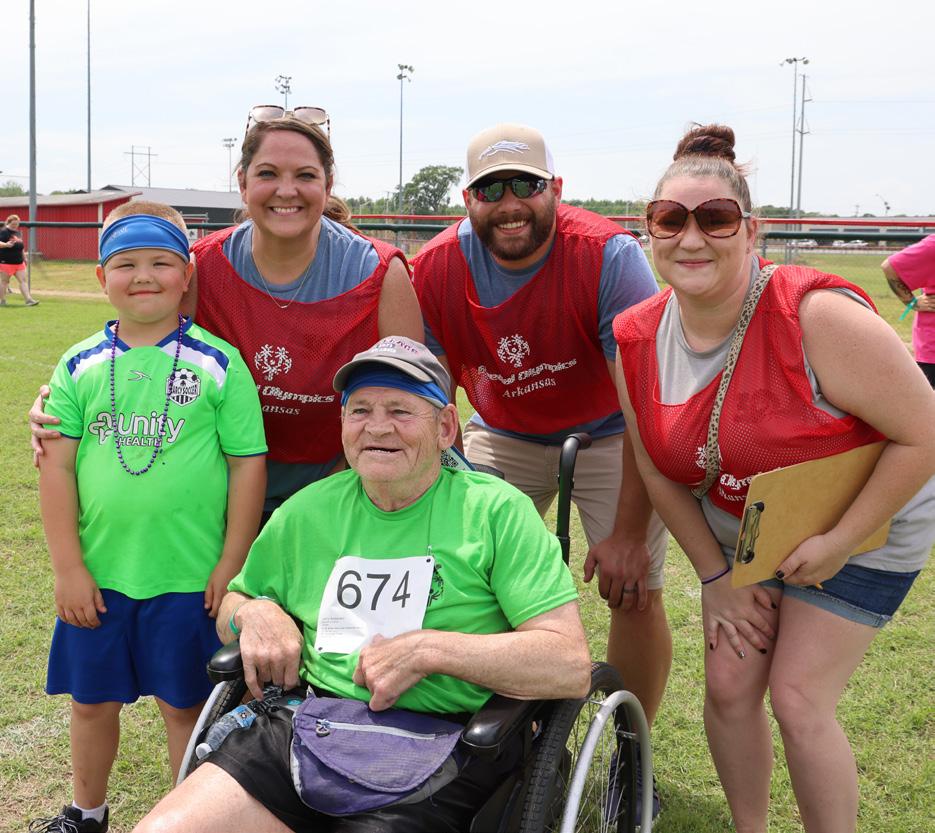


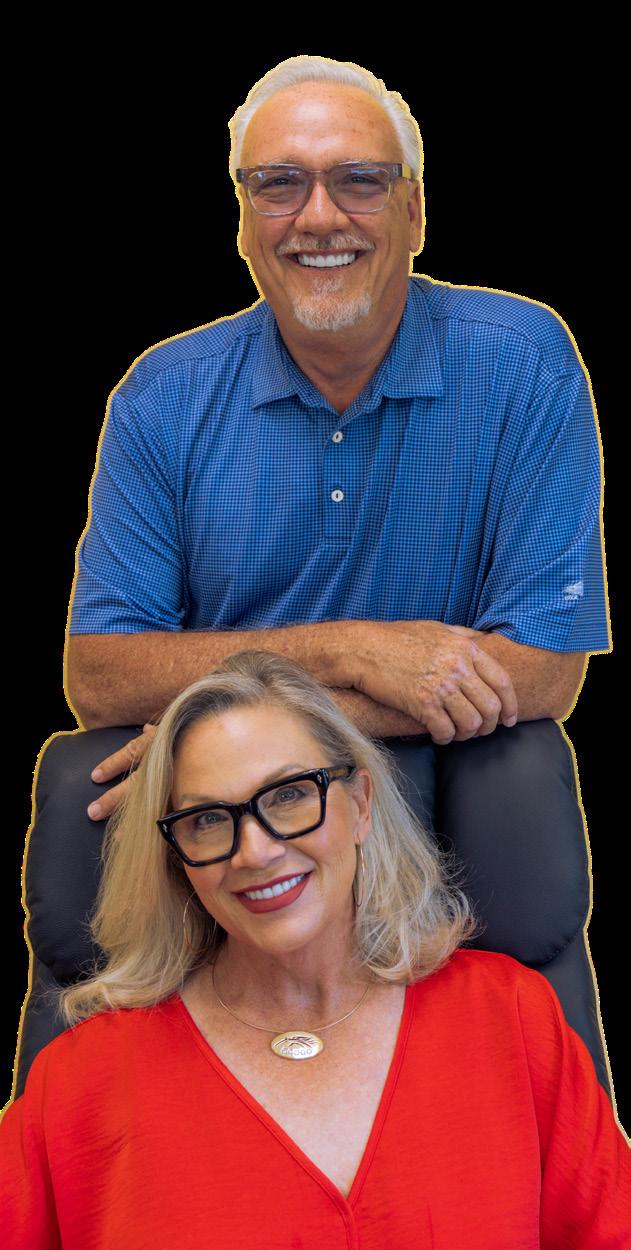
At Stallion Transportation, we are committed to building a culture of excellence. Our outstanding employees are known for their dedication, passion, and loyalty. Thank you for the difference you make in the lives of others.









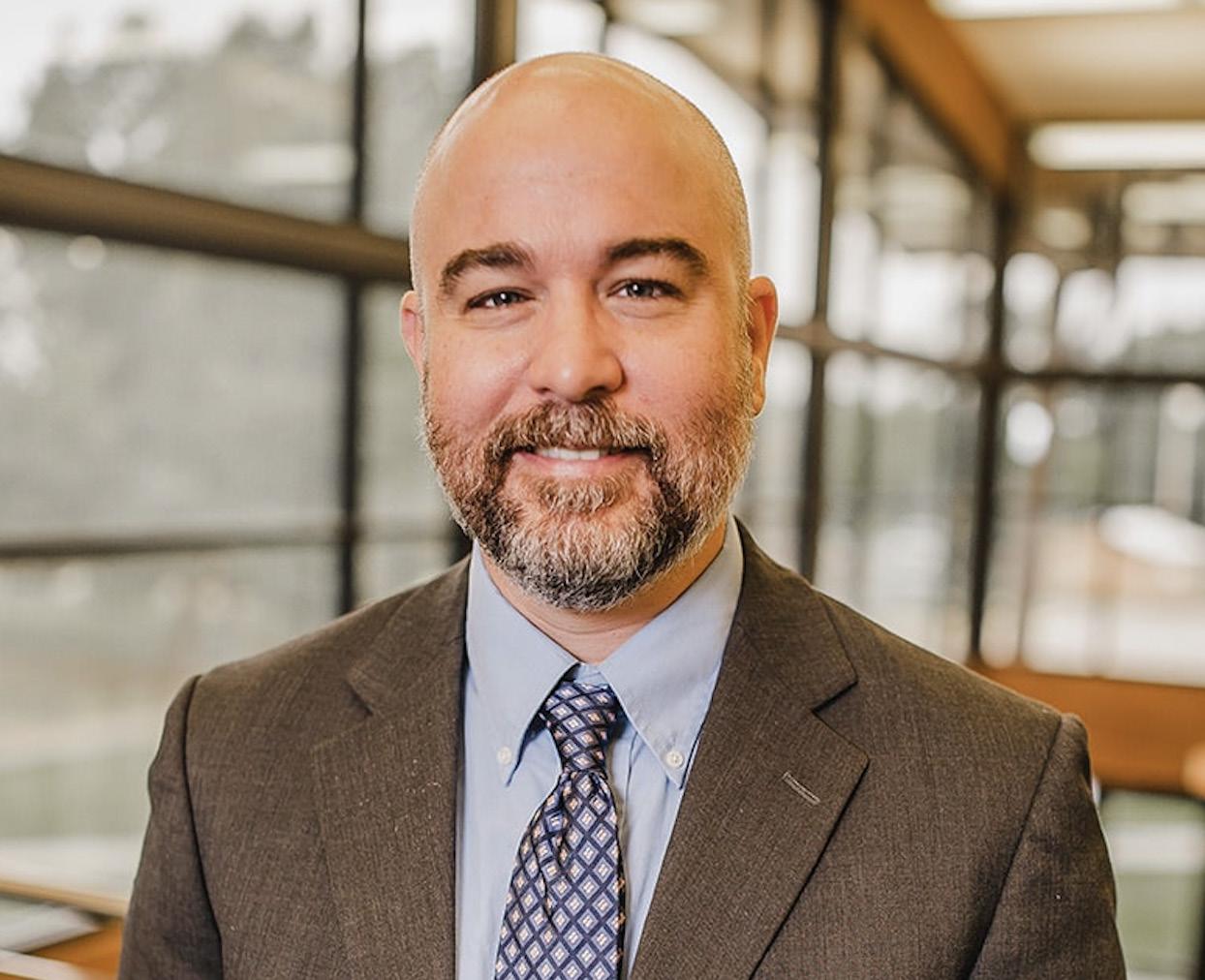


Female trailblazers are changing the world right under our collective feet. Statistics show more than 4 in 10 businesses in the U.S. are women owned.
AMP dives into the LEARNS Act with Jacob Oliva, Arkansas Secretary of Education.
The goal of Forward Arkansas is for teacher residency programs to increase the quantity, quality and diversity of teachers entering the workforce in the state.
Two-year colleges and technical schools can provide young workers with a fast track to a good-paying career. With an aging workforce, the state needs them.
Pulaski County Sheriff Eric Higgins says there is a simple formula for success in his role — treat people the way you would want to be treated.
Leaders at UA-Little Rock are focused on a new strategic plan that centers on affordability and embracing the school’s role as the state’s urban university.
Harding University in Searcy is coming off a big year in which the Bisons won a national title in football, and it just so happens to be the university’s 100th year.
Grounded in ethical business practices and hard work, Nick Polk and Erik Mitchell are realizing a vision of The Payroll Company as payroll powerhouse.
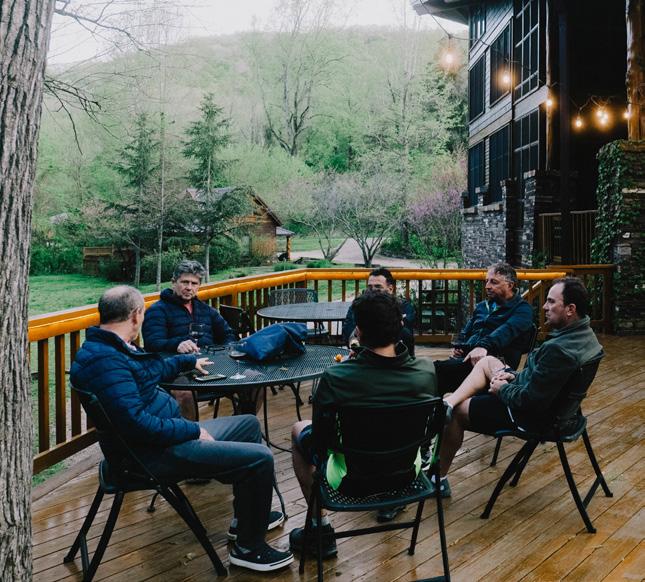
Corporate retreats serve various purposes, the most important of which may be the opportunity for employees to team build. Arkansas has multiple spots that are ideal for such outings.
The next generation of leading Arkansas business leaders are recognized inside. Voted on by AMP readers, these future icons are poised for big things.
U.S. Sen. John Boozman, the lead Republican on the Senate Committee on Agriculture, Nutrition & Forestry, addresses the federal Farm Bill.
PRESIDENT & PUBLISHER
Heather Baker | hbaker@armoneyandpolitics.com
EDITOR-IN-CHIEF
Dwain Hebda | dwain@armoneyandpolitics.com
SENIOR EDITOR
Mark Carter | mcarter@armoneyandpolitics.com
ASSOCIATE EDITORS
Sarah Coleman | scoleman@armoneyandpolitics.com
Mak Millard | mmillard@armoneyandpolitics.com
EDITORIAL COORDINATOR
Darlene Hebda | darlene@armoneyandpolitics.com
STAFF WRITERS
Sarah DeClerk | sdeclerk@armoneyandpolitics.com
Lance Brownfield | lbrownfield@armoneyandpolitics.com
MANAGING DIGITAL EDITOR
Kellie McAnulty | kmcanulty@armoneyandpolitics.com
ONLINE WRITER
Kilee Hall | khall@armoneyandpolitics.com
PRODUCTION MANAGER
Mike Bedgood | mbedgood@armoneyandpolitics.com
GRAPHIC DESIGNERS
Lora Puls | lpuls@armoneyandpolitics.com
Jenna Kelley | jkelley@armoneyandpolitics.com
SENIOR ACCOUNT EXECUTIVE
Greg Churan | gchuran@armoneyandpolitics.com
ACCOUNT EXECUTIVES
Michelle Daugherty | michelle@armoneyandpolitics.com
Mary Funderburg | mary@armoneyandpolitics.com
Karen Holderfield | kholderfield@armoneyandpolitics.com
Jona Parker | jona@armoneyandpolitics.com
Lucie Pathmann | lucie@armoneyandpolitics.com
Dana Rodriguez | dana@armoneyandpolitics.com
EXECUTIVE ASSISTANT
Jessica Everson | jeverson@armoneyandpolitics.com
ADVERTISING COORDINATOR
Allison Runyon | ads@armoneyandpolitics.com
CIRCULATION
circulation@armoneyandpolitics.com
ADMINISTRATION billing@armoneyandpolitics.com
CEO | Vicki Vowell
TO ADVERTISE call 501-244-9700
email hbaker@ armoneyandpolitics.com
TO SUBSCRIBE armoneyandpolitics.com/subscribe
CONTRIBUTORS
John Boozman, Kenneth Heard, Chris Heigle, Ben Kutylo, Paul Sage, Steve Spencer, Todd Traub, Steve Wilcox










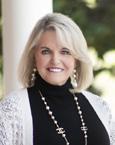



This month, Arkansas Money & Politics introduces Trailblazing Women, a look at 12 of the state’s leading women in business, as seen on the cover. AMP is proud to recognize their accomplishments.
See story on page 87.
WILLIAM JONES IV NAMED PRESIDENT OF SISSY’S LOG CABIN
That’s so great! Congratulations William! Cris Jones
AMP ARKANSAS REAL ESTATE PROFESSIONAL SHOWCASE, PAULETTE RICHIE
Paulette is a rockstar!! Congratulations!
Thomas Lipsmeyer
HFA ARCHITECTURE + ENGINEERING NAMES BAKER AS HOSPITALITY LEAD
Congratulations Steven Baker! You’re an outstanding leader and it’s a privilege to work with you board chair for Ozark Mission Project. Very deserved promotion.
Bailey Newcomb Faulkner
SINGLE VISION: KRIS UPTON TAKES FULL REINS AT RPM GROUP
Kris, I’m so proud for you for all you’ve accomplished! You’ve come a long ways in life from that young man I knew in Stuttgart!
Donnie Davis
LEGENDS AWARD: EVERETT TO BE HONORED BY BRANDON BURLSWORTH FOUNDATION
What an honor. Congratulations, Mrs. Everett! Thanks all around for your generous heart.
Becca Wooten Smith
June 3 — July 4
1 Four New Nonstop Flight Destinations Offered at Little Rock Airport
2 These Arkansas Cities Will Pay You to Move There
3 William Jones IV Named President of Sissy’s Log Cabin
4 Splash Car Wash Expands, Appoints Rogers as CFO
5 Country Club Station Redevelopment Includes Hathaway Move and LR’s Second Buttered Biscuit
6 Legends Award: Everett to Be Honored by Brandon Burlsworth Foundation
7 ABC Fights Desperate Need for Construction Workers in Arkansas
8 AMP Best of 2024 Nominations Are Open
9 Wet? Dry? Sunday Sales? A Look at Arkansas’ Disparate Alcohol Laws
10 Safe Haven: Home Insurance Rates Up, Companies Cracking Down
Kris Upton is the owner of all divisions of Little Rock’s Coldwell Banker RPM Group. The ownership of the residential division was listed incorrectly in the June issue of AMP
Jon Richardson of Little Rock was the first Black athlete to earn a scholarship and compete in football for the Razorbacks, which he did from 1970 to 1972. A story in the June issue identified the wrong person as the first to do so.
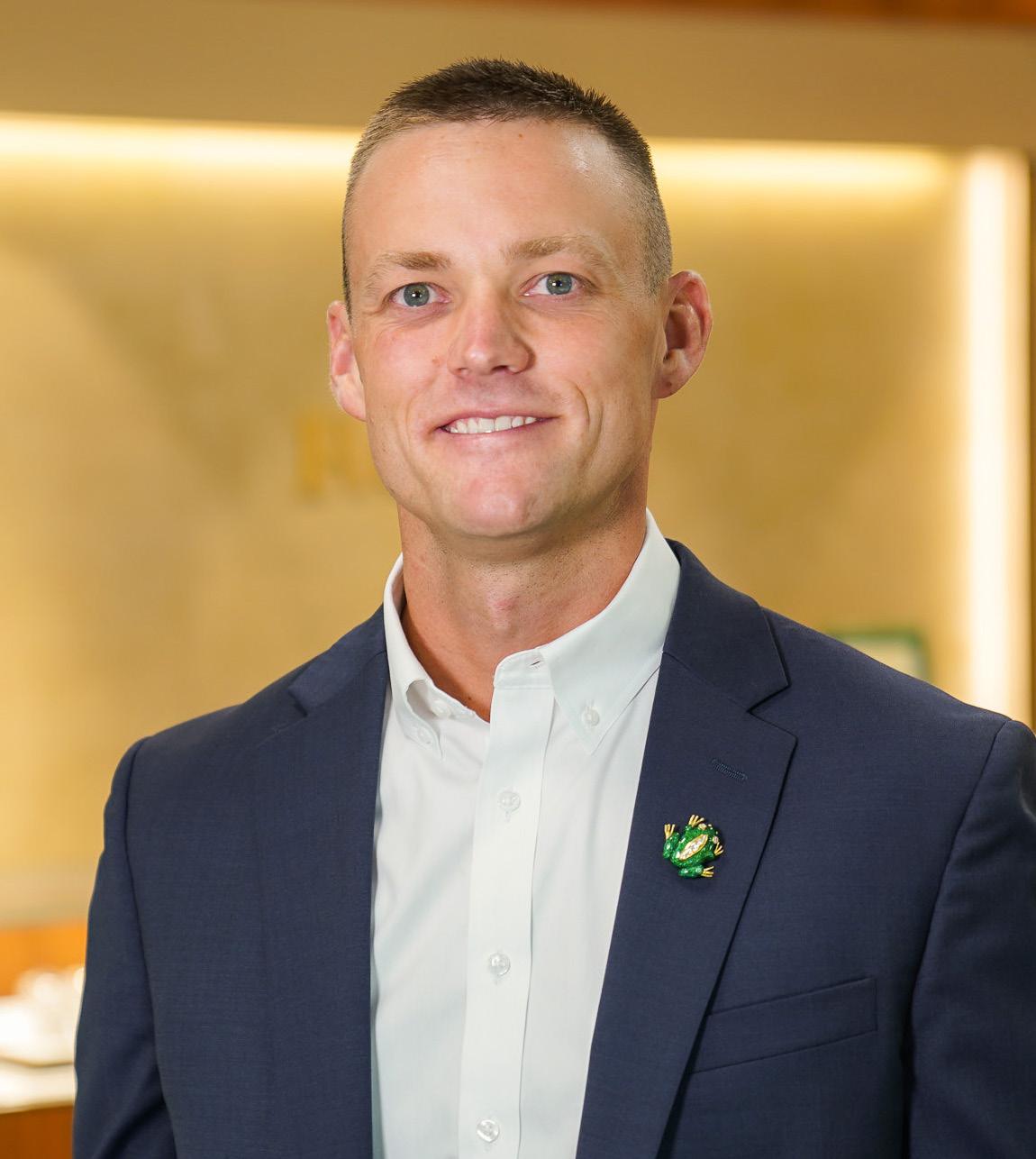
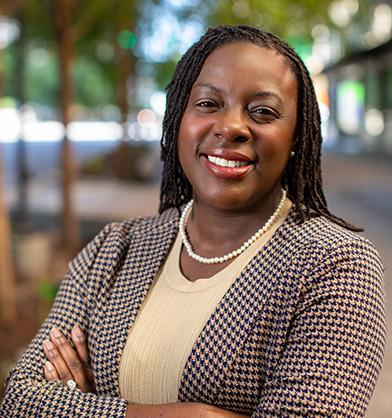
By Mark Carter
The Big 12 conference is quickly becoming the league of last resort for Power Four schools not already in the SEC or Big Ten, and it’s doing an admirable job of thinking outside the quarterback box with creative efforts to close the revenue gap between it and the big dogs.
The latest involves Allstate and corporate naming rights to the league itself. Not naming rights to a conference tournament or venue, mind you. Naming rights. As in the Allstate Conference or the Allstate 12.
The news was first reported by veteran national college football reporter Brett McMurphy on June 13. By the time this magazine hits the streets, it may be a done deal. The proposed deal would be worth $30 million to $50 million annually to the now 16-team league with the revenue spilt among league members. Such a deal certainly would help the Mayhem League close the gap in revenue distribution between its member schools and those of the SEC and Big Ten. (Let’s all take a moment to silently thank Coach Broyles for his foresight.)
McMurphy also reported that the league was talking with a Luxembourg private equity firm, CVC Capital Partners, about a deal that would reportedly pay the league $800 million to $1 billion and give CVC a 20 percent ownership stake.
(Try and wrap your brain around the SEC summer meetings in Destin with Luxembourgers holding one-fifth of the votes.)
All this amounts to a lot of interest in a league for which the future remains a little foggy, frankly. Don’t get me wrong. Big 12 commissioner Brett Yormark has masterfully negotiated the post-NIL chess board of college football and set up his league to surpass the ACC in the Power 4 hierarchy. The ACC meanwhile, appears headed down the Pac 12 road. A road that leads to a cliff with the now defunct Pac 12 — in all but legal paperwork — crashed and burning below.
The additions of Texas and Oklahoma to the SEC and USC and UCLA to the Big Ten — and the subsequent new TV deals those additions wrought — are expected to bump annual member payouts to north of $70 million. By way of comparison, the Big 12 distributed an average of roughly $44 million to its 10 members last year. In the ACC, member shares were around $45 million. It’s not hard to understand why member schools with strong national brands are abandoning ship on the east coast.
Meanwhile, the Good Hands-Mayhem League represents the lifeboat for Power Four schools with no hope of an SEC or Big Ten invite. The world of college football remains a primordial soup with NIL, the portal and other challenges. Will what emerges may be like a college version of the NFL with the SEC, expanded to 24, 28 or 32 teams, serving as AFC and the Big Ten as NFC, or will the SEC, Big Ten and the “your name here” conference carry on as a Power Three in the same basic structure?
Who knows? The Good Hands League, though? We’ll see how dependable those hands are in the next few years because the mayhem has only begun.
As any good Hog fan knows, Jon Richardson was the first Black athlete to receive a scholarship to play football on the Hill, and I’ve known it for most of my life. Richardson was a trailblazer — and a hero, really — as were all the Black athletes who followed and helped integrate college football in the South. It sounds simple when you say it aloud or type it out, but as their families can attest, integrating college football in the South was anything but simple. Therefore, not sure what I was thinking when indicating in last month’s issue that Muskie Harris was the first Black athlete to play for the Hogs. Muskie did not tell me he was the first nor did he try to take credit for being the first in any way, lest anyone think he did, and I’ve always known he was not the first. In the Top Ten profile we did on him, I meant to type that Muskie was among the first wave of Black players to integrate the Razorback program, and well, that wasn’t what I typed. I’ll end with two requests. The first is for forgiveness from the Richardson family. The second — can anyone please pass the Prevagen?
By Heather Baker
The summer of ’24 seems to be intent on making a name for itself in the heat department. Let’s hope it has begun to blaze itself out by the time the Hogs play their first game in Fayetteville on Sept. 14. It almost certainly will not have, of course, but one can dream.
Meanwhile, the only things hotter than the temperatures outside are the men and women featured in our 2024 Future Icons. These are young and emerging leaders in everything from banking to bullfighting (yep, bullfighting) who are making an impact in their professions and are poised to keep doing so.

This month’s issue also looks at education as we start to round the corner into another school year. Two-year and technical schools remain a strong option for many Arkansas high school graduates, and their certificates and degrees
Heather Baker
can deliver higher starting salaries in many cases. Don’t give up on the traditional college path, though. We also spoke with university leaders in Arkansas and looked at the numbers, and they reveal that one’s earnings ceiling rises as one attains higher levels of education. Either way, options are plentiful in Arkansas for young adults who aspire to continue their education.
Plus, as the cover reveals, the July issue also introduces a special section near and dear to my heart — Trailblazing Women. We visit with 12 women business leaders in Arkansas who broke through a glass ceiling or two to prove that women can do anything they set their minds to do. These women are owners of inspirational stories, and we’re proud to feature them in AMP
As always, thank you for reading. Drop me a line at HBaker@ armoneyandpolitics.com.
By Christopher Heigle
As I look back on my first year as president of Arkansas Northeastern College, I see a surge of positive changes both within our institution and across our wider community. By working closely with county economic developers, government leaders and industry partners, we have created training programs that are specialized for specific workforce needs. The partnerships, coordination and teamwork surrounding our institution have set the stage for regional economic growth and success.
The $1.2 million investment made by the Arkansas Office of Skills Development for ANC’s Arkansas Steelmaking Bootcamp illustrates our innovative spirit and our willingness to partner with others. The bootcamp meets the need for skilled workers in our region’s growing steel industry and is projected to train more than 1,000 Arkansans its first year.
Mississippi County has become the largest steelmaking hub nationwide. Companies like Nucor-Yamato Steel, Nucor Steel Arkansas, Big River Steel/U.S. Steel, Highbar Steel, Tenaris, Majestic Steel USA, Lexicon, Atlas Tube, Arkansas Steel Processing, Ratner Steel, SMS Millcraft, Primetals and others are either expanding current operations or constructing new plants. Manufacturers are attracted to the area because we have river, rail and major interstate transportation options to go along with a motivated workforce.
and help build a sustainable pipeline of workforce talent from our local high schools.
Most recently, Zekelman Industries further bolstered our efforts with a $250,000 investment over five years earmarked for workforce training through student scholarships toward associate’s degree programs in applied sciences. The partnership includes internship opportunities with Atlas Tube, which reinforces our commitment to practical education and industry collaboration. The program also enhances our scholarship offerings and complements the highly successful Nucor Diploma Squared Program. Supported by an annual $75,000 commitment from Nucor-Yamato Steel and Nucor Steel Arkansas through the ANC Foundation, the Nucor Diploma Squared Scholarship encourages students to pursue both a high school diploma and either a certificate of general studies or an associate in arts degree at ANC concurrently.
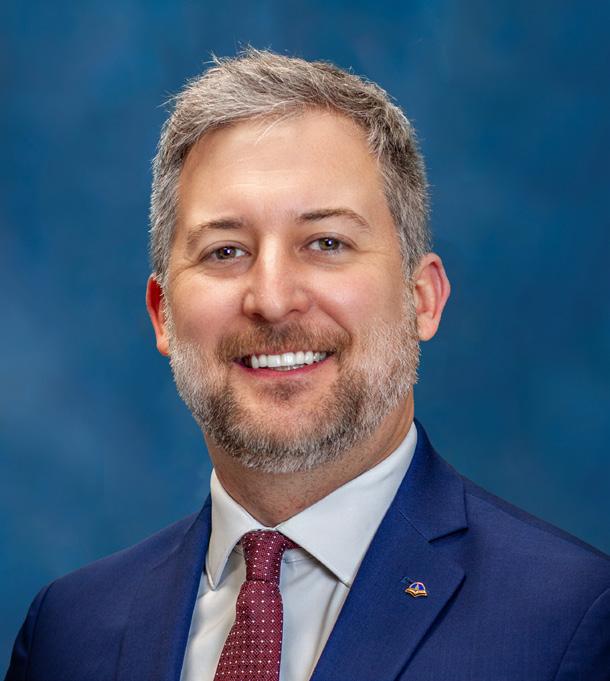
The bootcamp, offered at no cost to participants, provides entry-level knowledge through two weeks of training for those wishing to enter the rapidly growing industry. We began offering cohorts last year and partnered with Black River Technical College, East Arkansas Community College, Arkansas State University - Newport and Arkansas State University MidSouth to offer even more cohorts throughout the region.
The tremendous opportunity afforded to us through the OSD has made it possible for ANC to greatly expand what we do to help meet the needs of our steel industry and its anticipated growth over the next few years. The initiative will provide the industry with an expanded pool of prepared job applicants, illustrating a truly regional approach to workforce and economic development. I am honored to be at the helm of such an innovative and workforce-focused institution.
Additionally, our Steel Tech Academy for Arkansas high school students has been hugely successful. The initiative, sponsored by U.S. Steel Corp. through Big River Steel and Entergy Arkansas, provides early opportunities for students to train for the steel industry
Christopher Heigle
Many of these companies have also invested in Work Here, Live Here, a program that has helped 80 residents of Mississippi County fulfill their dreams of homeownership. In just 20 months, the program has generated $21 million in new home construction for employees at many of the same companies that are making our workforce training programs possible. There is so much happening in Mississippi County, and I am very proud for ANC to be a part of it. The recent endowment of property in Wilson, valued at $27 million, to the ANC Foundation speaks volumes about the trust and support we’ve garnered. As we embark on crafting a comprehensive plan for the utilization of this facility, I’m excited by the collaborative efforts of our faculty, staff, community members and board representatives. Together, we’re committed to ensuring that this resource not only benefits our college but also enriches the lives of citizens in our region.
At our core, we are a student-centered organization and every decision we make is driven by their success. Looking ahead, I am reminded of the importance of our mission and the critical role we play in shaping the future of our community. Together, we will continue building on the foundation we’ve laid, ensuring a brighter future for all.
Christopher Heigle recently celebrated his first year as president of Arkansas Northeastern College in Blytheville.
EY Custom Homes recently celebrated its third year, but Erica York already has more than a decade of com mercial and residential construction and renovation expe rience under her belt. From
the jobsite to the office, York has handled projects at every stage, making waves in a maledominated industry with her fresh, contemporary style inspired by high-end zip codes.
“It’s exciting to be in my third year of business. It was scary starting my construction company three years ago,” York said. “There’s always a fear of failure starting something new and taking financial risk. It’s been a journey, but it’s going well, and I’m loving every minute of it.”

is nearly nonexistent.
While she still builds high-end homes for clients, York has recently turned her attention to areas of Little Rock that are designated opportunity zones, or areas that have not had any new development in several years.
“I’m proud to play a role in the residential development of Little Rock, especially in areas where development is scarce,” she said. “The demand for new homes below $300,000 is palpable. However, the supply


“My small, efficient and affordable cus tom homes are ideal for first-time home buyers, graduate students looking for an alternative to renting and those looking to downsize.”
York recently upgraded her contractors license to commercial so that she could also play a role in the commercial development of these areas.
“I’d like to bring restaurants, entertainment and retail to these communities,” she said.
The trend towards smaller homes has been taking off in recent years due to several factors including higher interest rates and economic uncertainty, York said. As people make decisions around their budgets, a larger home loan is not as appealing as it once was. York’s homes generally range between 1,200 and 1,500 square feet. Her buyers are able to pick a floor plan and then customize the design style by choosing their own finishes and colors.
a positive impact as a developer. When our communities thrive, we all thrive.”



“You can have a nice home that still has nice finishes and style without breaking the bank,” she said. “My goal as a developer and a homebuilder is not just to build beautiful homes, but to contribute to buildeycustomhomes.com @eycustomhomes eycustomhomes@gmail.com 501-366-5115
Education and economic growth go hand in hand. The two factors are inextricably linked, and investments in pre-K-12 education — and the sector as a whole — directly impact the state’s long-term productivity and prosperity. That’s why we must coalesce around ensuring every Arkansas student graduates prepared for college, career and community engagement.
For decades, solving the challenges within Arkansas’s education system has often been seen as a zero-sum game. We laser in on singular, high-need opportunities, but in doing so, we reduce focus on other essential, interconnected areas. We must instead take an approach akin to tackling a 1,000-piece puzzle. Meeting our collective objective requires a comprehensive strategy. It demands recalibration, continually identifying gaps and adding in missing pieces. Only then will the picture — improved student outcomes — come together.
For Forward Arkansas, the symbolic corner pieces of the puzzle are highly effective teachers and school leaders. Research shows that teachers are the single biggest school-related determinant of student achievement. The RAND Corp. estimates educators have two to three times the effect of any other school factor. Unfortunately, Arkansas currently faces complex educator workforce issues. Our state needs more teachers and leaders equipped to enter and stay in our schools and classrooms.
Our 2023 State of Education report highlighted how recruiting more candidates into teaching and supporting them throughout their careers can help foster their continued professional growth and, ultimately, their long-term retention. As an agile external partner, Forward is committed to catalyzing innovation in the highest-priority areas with our partners on the ground to drive system-wide progress across the entire educator career continuum.
Consider our comprehensive, integrated efforts around teacher recruitment, preparation and retention. With the implementation of Teach Arkansas in collaboration with the Department of Education, Forward has increased awareness of potential pathways into teaching — and the available financial incentives to do so — to recruit more residents into that career path, especially in areas of the state facing severe shortages. We’ve also built educator capacity by directly supporting the transformation of university-based educator preparation programs, the largest source of new teachers. Through the EPP Design Collaborative, we offered resources and expert guidance to help participating universities develop plans to enhance
the teacher-candidate experience, such as with paid teacher residencies, to more effectively prepare them to enter the classroom and remain in the field.
Forward understands that encouraging more, betterprepared educators to enter Arkansas schools is essential. However, we also recognize that we need more than corner pieces to complete the education puzzle. Once in schools, teachers and leaders must feel valued, have ample opportunities to grow, and feel empowered to lead and innovate. With the LeARner Collective, Forward provides the dedicated space, innovative strategies and tailored support great educators need to transform learning for students. During Phase 1, select school teams in the Arkansas Delta and northwest Arkansas received five months of personalized coaching to develop pilot solutions to improve their structures, practices and culture around critical areas, such as literacy and durable skills. Participants will expand and transform these innovative ideas into tangible actions in Phase 2, broadening their scope and impact.
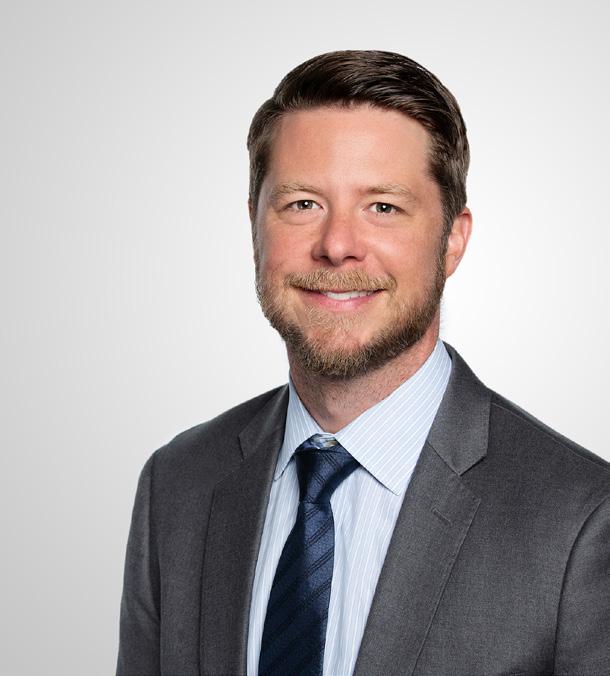
The initiatives may vary — Teach Arkansas, the EPP Design Collaborative, the LeARner Collective and others — but each is a connected part of Forward’s multi-faceted approach to addressing our state’s educational challenges. A 1,000-piece puzzle requires determination and strategic thinking to solve. We must fill all the gaps and ensure everything fits together. Some sections come together quickly, while others take additional time, thought and unique perspectives, but with consistent, concerted efforts, more pieces settle into place, gaps become smaller and the bigger picture comes into view — an educational system where every Arkansas student is prepared for success.
Ben Kutylo is the executive director of Forward Arkansas, a nonprofit with a mission to accelerate the innovative and equitable transformation of education in Arkansas.





By Steve Wilcox
The Arkansas LEARNS Act represented Gov. Sarah Huckabee Sanders’ signature piece of legislation in 2023. Among its components were the implementation of school vouchers, increased pay for teachers and higher literacy standards for elementary school students.
Arkansas Money & Politics sat down with Arkansas Secretary of Education Jacob Oliva, who provided a comprehensive deep dive into the details of the LEARNS Act and its impact.
AMP: What is the provision for teacher training under the LEARNS Act, and how is it being put into motion?
OLIVA: So when you think about the LEARNS Act, I like to look at it as three distinct kinds of priorities that are outlined in the overall comprehensive educational reform initiative. It’s really about supporting early learning, making sure that when students come to school in kindergarten they’re ready to learn, how we’re supporting choice options and pathways for students in K-12, and making sure third graders are reading at above grade level — and then that post-secondary transition for students beyond high school, students are graduating with the skills to be successful in life. We know the greatest investment we can make is the teacher standing in front of that classroom. That is the greatest predictor of improving student performance, so every piece of LEARNS is about recruiting, recognizing, retaining, and supporting the best teachers we can possibly get in each and every single one of our classrooms to make sure the students have access to high-quality learning environments.
AMP: What is the state’s anticipated outcome for the additional training initiative?
OLIVA: Well, it’s more than just training. It’s about reimagining education. It’s about empowering parents. It’s about creating choice
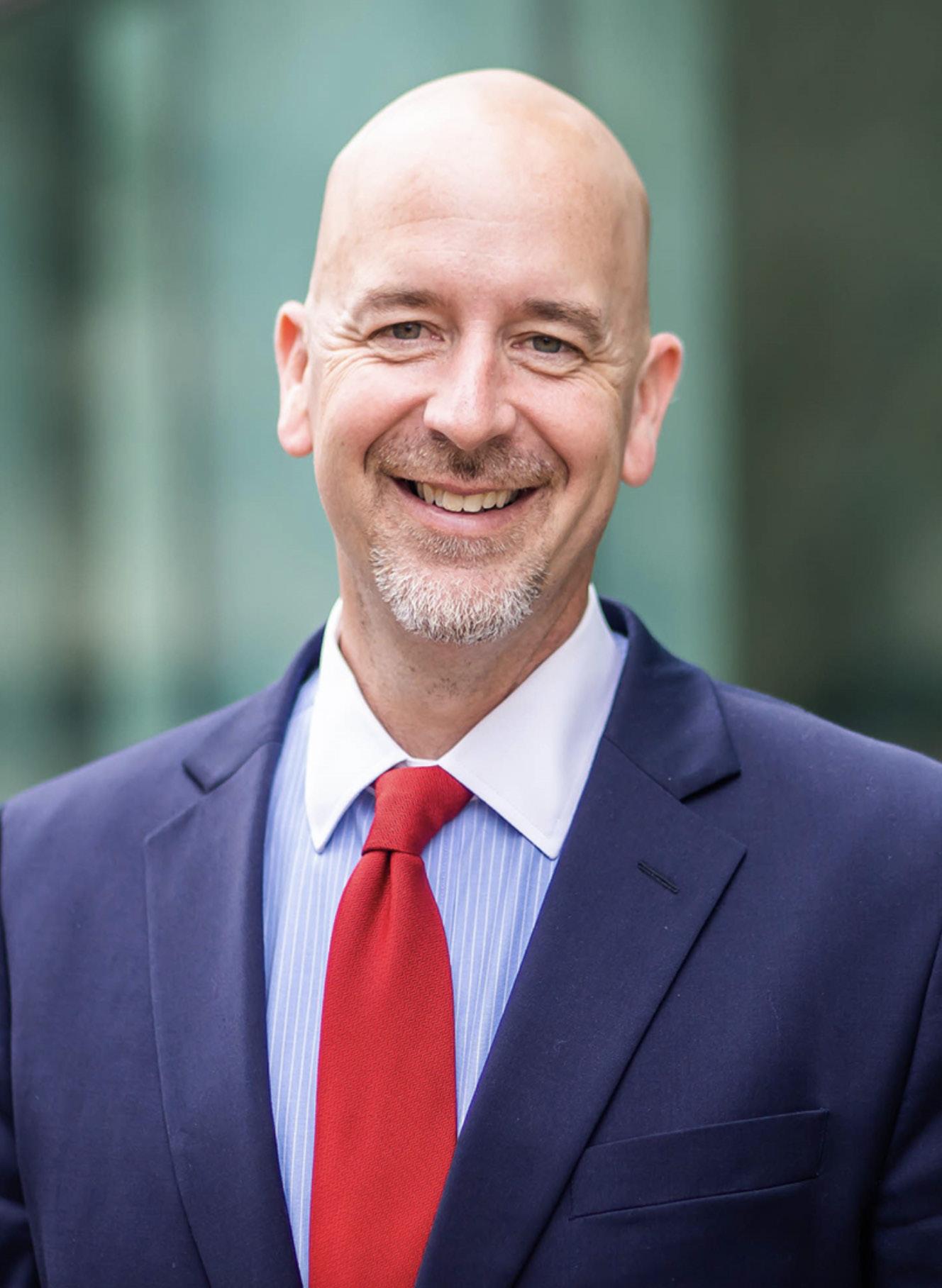
opportunities. It’s about making sure that we’re creating a system that’s grounded on what students’ needs are and making sure that those needs are being met. If you look at any different number sort of metrics that grades overall education in the state of Arkansas, you’ll find that historically, even going back pre-[COVID-19]-pandemic eras, Arkansas tends to rank between 40th and 50th somewhere. Whether it’s measuring students’ ability to read on grade level, to do math on grade level, hit post-secondary attainment — that’s not good enough for the state of Arkansas, and it’s not just anticipation. We know when implementing these priorities with fidelity, we’re going to see rapid growth, and we’re not going to stop until we’re ranked No. 1 in the nation.
AMP: Is there a belief that elements of the LEARNS Act will aid in teacher retention?
OLIVA: Yes, absolutely. One of the greatest parts of LEARNS is recognizing that teachers are the ones that make a difference and we’ve got to bring the best talent that we can to the classrooms and the schools in the state while recognizing the incredible talent that we already have, so one of the big priorities of LEARNS was to raise beginning teacher salary. We went from being ranked about 45th in the nation in starting teacher salary to top five, and in fact, there was a study recently reported by the New Teacher
Project that said when you adjust for cost of living, we are now the No. 1 state in starting teacher salary with the $50,000 minimum while ensuring that every teacher above that [initial salary] got at least a $2,000 increase in their pay. We’re also in the process of rolling out our teacher merit pay system where we’re going to award about another $10 million by the end of this month to our top most talented teachers.
AMP: With the increase in starting salary under the LEARNS Act, have districts across the state seen more interest among a pool of potential young teachers?
OLIVA: Yes, anecdotally we’ve heard from several superintendents who have said this is a game changer. When they would post a job, historically, they may only get three, four or five interested applicants. Now they’re posting the job, and they’re getting 10 to 20 applicants. They have plenty of talent to choose from. Definitely our neighboring states are hearing about teachers moving in from across state boundary lines to take advantage of the wonderful opportunities we have right here in Arkansas.
AMP: Are there provisions under the LEARNS Act that allow unlicensed teachers who have been working in districts around the state to expedite licensure?
OLIVA: Yes, we have many different pathways toward becoming a licensed teacher. In fact, that’s something that we’re really proud of because we want to make it realistic, especially with the increase in starting salaries. We’re seeing a lot of careerchangers, people who may have worked in industry. I’ve heard of bankers that are saying, “I want to go back and become a math teacher. This is an enticing salary. I may not have gone to school to be a math teacher, but I’ve got real-world, relevant experience that students can benefit from. Is there a path for me to become licensed?” Absolutely. We have a path for everyone. If anybody’s interested in joining the best profession of all professions, we want them to reach out to our agency, and we’re going to put them on the right path.
AMP: Can you assess the state’s efforts to improve literacy tutoring and educator preparation programs to this point?
OLIVA: One thing that we know that our state data metrics show is our students still to this day are below pre-pandemic levels, and when we’re looking at students, maybe only a third of them are meeting literacy and numeracy rates. We know that’s not enough, and we need to accelerate learning opportunities, so this past year, we rolled out competitive grants to school districts — just over $10 million — to participate in what we call high-dosage tutoring, which is an evidence-based strategy to help students be put back on an accelerated path. We’re also empowering parents who we know have students in grades K, 1, 2 and 3, students who have been identified as needing a little bit more support in their literacy initiatives. Those parents can now have access to $500 to participate in a tutoring program of their choice, so we’re excited about investing in accelerated opportunities for our students through many different initiatives, and we’re already seeing some progress in monitoring data where we take snapshots of how students are performing — and gains are exceeding what we would’ve expected.
AMP: The LEARNS Act is still relatively young. How would you assess implementation to this point?
OLIVA: I think it’s going great. Once the bill got signed into law last March, we began working with school districts, stakeholders and educational supporters around next steps, which is implementation, and one of the biggest parts of implementation was taking the parts of law and codifying them into rule so that we can tell districts exactly how this is going to look and how we want to work with them as a collaborative partner in building those rules and supporting implementation. So many of those rules are getting across the finish line. Districts are becoming more comfortable with the expectations that LEARNS provides, but it’s creating coherency in a seamless manner, and we’re already seeing the benefits and rewards.
AMP: You have talked about the increase in salary. Are there other elements of the LEARNS Act that will help with retention?
OLIVA: Yes. I think when we look at the retention of teachers, salary is a big, big part of it, but we also want to invest in professional growth and development and create opportunities. Many educators will go into the classroom, and they may stay there their entire career. Some of them may look for more growth within that field, so we’ve invested in supporting coaches where we have added additional literacy coaches throughout the state to support teachers with perfecting their craft or implementing strategies. We’re also pretty proud of the fact that the LEARNS initiative for teacher recruitment and retention has a maternity leave partnership. We’ve had many districts reach out to us to participate because that’s a big factor in many families, and we’re working with districts to make sure that they can take care of their teachers while they’re out on maternity leave. We’re in the process of rolling out our teacher merit pay program where we’re continuing to recognize the rock stars that are in our classrooms, as well as creating opportunities for teachers to become lead teachers and master-designated teachers where they’re able to mentor new teachers and give back to the profession. When you create a culture around excellence, people tend to want to be a part of that, and that’s where we’re seeing our educators thrive.
AMP: The voucher provision has been a hot-button topic. Can you assess its adoption to this point?
OLIVA: When we looked at the fact and the belief that a one-sizefits-all approach doesn’t work for all families and students, we knew a key part of that was to empower parents. Parents have a right to have a seat at the table and to look at different educational opportunities, environments that work best for their students and families. We were very diligent in about a three-year process to roll out the school Education Freedom Accounts where in Year 1, it started a little bit smaller. We had just over 5,000 students participate, and many of the students were already participating in the state scholarship program. (The Succeed Scholarship Program was rolled into the EFAs.) State scholarships weren’t new to the state of Arkansas. They were just expanded, so a lot of the people that were already in the program are parents of students with special needs who needed to get more educational support for their child, and they were participating in the scholarship program.
We also opened up eligibility to first-time kindergarten families and students that were zoned for a failing school, and we know that they may not be able to thrive academically in some of those environments while other families may, so Year 1 was a little bit smaller. We’re ramping up for Year 2. We’ve doubled or almost tripled the amount of folks who are eligible because we’ve expanded it to not just children of military families but also first responders, D and F schools (schools that have a D or F letter grade), kindergarteners and first graders, and all in all, it’s going well. We had to create the right conditions for private schools to feel comfortable to participate but also make sure that we’re able to hold those schools accountable to ensure that students are learning so that when parents are making an informed choice about educational options, they’re of high quality, and they’re not just creating choice options to have choice options. We want high-quality choice options for our families.
AMP: When you use the term “state scholarship,” are you using that interchangeably with the term “voucher”?
OLIVA: We don’t really use the term “voucher.” It’s an educational freedom savings account. So historically the state had what they referred to as a Succeed Scholarship. The Succeed Scholarship through LEARNS has now been rolled into the Education Freedom Account. It took two systems and merged them together. We had a scholarship program; now we have a savings account.
AMP: Was the Arkansas LEARNS Act influenced by public policy from other states?
OLIVA: I think when you look at additional opportunities, all states are always engaging in a cycle of continuous improvement, and one of the things I think many states have learned, especially when we looked at the pandemic era where schools were closed, where schools had to be creative and look at hybrid options and virtual options, parents tended to like some of those options and wanted policy to support being able to participate in virtual options, hybrid options, whether it’s charter schools, magnet programs, participating in neighbor schools. They felt like they had a little bit more access to what’s happening in the classroom, and they liked the increased transparency, and they liked the options that were being brought to them, so nationally, I think you’ve seen a movement among a lot of states and a lot of educational institutions that say, ‘How do we embrace this? How do we meet the needs of our families but also maintain the integrity of why we’re here?’ That’s to make sure that every student is in a learning environment that works for them to be successful.
So what’s great about Arkansas LEARNS is it’s probably the most comprehensive package that any state has undertaken when you look at the fact that we like to say it touches everything from cradle to career. We know that if we just maintain the status quo, that was just an equal failure, and we’ve been letting down students in the state for far too long when you’re ranked in the 40s and 50s. There’s too many people working too hard, there’s too many opportunities and so much talent that when we look at getting early childhood right, when we look at getting K-12 right, and when we get everything in higher education right, we’re not going to be ranked in the bottom anymore. That’s what LEARNS is do-
ing, and it’s an Arkansas initiative that’s focused on what’s best for Arkansas students and families.
AMP: How does the LEARNS Act affect durable or variable skills?
OLIVA: That’s a great question, and we hear that a lot from the business community. When we ask the business community, “What do you want in our students when they graduate from high school? What are those things that you’re looking for in our future employees?” the term “variable skills” comes up. Do people know how to show up on time? Do our future employees know how to work collaboratively? Can they meet deadlines, and how are we making sure we prepare students for this? So that happens in school in many different factors. For me, I may not have realized it at the time, but I was in marching band, and I learned a lot from my band director about durable skills because in his mind early was on time and on time was late and when the bell rang, we better be ready to perform.
I had to learn how to work with the other people in my team. I had to learn that my role in marching band is part of the whole band being successful. Those are durable skills that relate to the workforce, and that learning may happen on the athletic field, it may happen in a STEM classroom, but one of the great parts about expanding LEARNS and looking at different career pathways for students is really the focus on career readiness planning and making sure that in middle school students are having conversations with their teachers and their school leaders about how do I build out a pathway that works best for me, and what are the skills that I need to learn along the way so that when I get there, I will be successful?
AMP: You referenced science, technology, engineering and math. Are there any specific elements of LEARNS that speak to STEM teaching?
OLIVA: Yes. I think a lot of that is recognizing that a one-sizefits-all approach doesn’t work for every student and family. Not every child is on a pathway from high school to university. While that may be the pathway for some of our students, it’s not the pathway for all of our students, and what we have done and learned is really recognizing that career technical education opportunities can be strengthened. LEARNS actually tasked us with identifying the [specific] career technical education pathways that would lead to high-skill, high-demand [jobs] in the state of Arkansas where we hadn’t had a definition like that before. So we got the workforce cabinet together to come up with those qualifying conditions, and we’ve identified 18 career and technical pathways in this state that will be offered. One of those pathways will be offered at every school next school year to make sure that we’re creating that pipeline of talent for our state and our employers in making sure that students experience relevancy in the classroom. When students can see how what they’re learning relates to their own professional and personal goals, they do better. This makes sense, and we’re getting it aligned, and that’s heavily embedded in STEM and is a big part of those high-skill highways, high-demand pathways, as well.
AMP: Are there provisions of LEARNS that are specifically built for the Delta region?
OLIVA: I think all of LEARNS is specifically for the Delta region, as well as all the students in the state. When we started looking at early learning, for example, what we were tasked to do was go out and identify local leads, creating kind of a heat map of where we have high-quality early learning programs, and where do we lack opportunities? It became very clear — very clear — that there were islands and deserts across the state, and the Delta definitely was one of those places where you have families that want to participate in high-quality early learning, and there isn’t much opportunity, so LEARNS is requiring us to go out and create those opportunities. So we know when students are successful in early learning, they’ll come to kindergarten ready to learn. We’ve doubled down on early literacy. We know the metric of making sure students in third grade are reading at our above grade level is important in predicting future student success, which is why we’ve deployed literacy coaches to every D and F school in the state. They are there in the schools every day or at least every week, monitoring and supporting teachers to make sure that students are getting access to accelerated opportunities and interventions so we can move the needle on that metric.
And then there are those current technical opportunities for students and families that we just spoke about, making sure what [educational options are available] in the Delta and in the northwest, central Arkansas, the south, those opportunities are aligned with what’s happening in the regions across the state. LEARNS [applies] to all of that, but I think the No. 1 game changer that I’ve heard from people in the Delta is with the state giving dollars to support starting teacher salary. This came from a different category than their normal allocation, so this wasn’t a burden put on the school district budget; this was funded through a separate state appropriation. They say now they can compete with neighboring school districts when they struggle to reach in their local budget meeting the [previous] minimum salary of $36,500 a year. We had regions or schools districts in the Delta where teachers that had been teaching for over 30 years in that district weren’t at $50,000. There were entire districts in the Delta where not one teacher made $50,000. Now every teacher makes at least $50,000, if not above that. That’s a game changer to not only those teachers for getting access to high-quality pay but for those communities because everybody’s going to benefit from that kind of investment.
AMP: There is a lot of talk about a “culture of literacy.” What components of the act are designated to build a culture of literacy?
OLIVA: The state, historically, has been pretty invested in what we call the “science of reading,” which I think is what you’re referring to as the culture of literacy. What LEARNS does is double down and say, “We’re a science of reading state.” When you look at the systematic, explicit approach to literacy instruction, that’s what the science of reading is. It’s built around phonics, phonemic fluency, vocabulary and comprehension. It’s not whole language. It’s not three cueing. We’re only going to use these strategies, so it aligns our standards around the science of reading. Our
high-quality instruction materials must be aligned with the science of reading, and we had to build out a progress monitoring system, so coming this fall will be the first time we have a unified, coordinated progress monitoring system that will assess literacy, numeracy and science — kindergarten through age 10 — where everybody’s doing the same thing.
And in our kindergarten-through-Grade-3 screener, or assessment, as required by LEARNS, it embeds the dyslexia screener, so not only are we measuring students’ performance around their progression in the science of reading, but if we identify that a student may need some additional support, we’re able to provide that, as well. So all the way from early learning to K-12, we have doubled down in the support with literacy coaches, tutoring, alignment around the science of reading, and additionally, LEARNS asked us to do an audit of our teacher preparation programs, programs that are turning out educators or candidates that want to go into the field of education. How strong is their knowledge around the science of reading, and how can we make sure that our professional development, our teacher prep programs, are meeting that benchmark? So we are doubling down as a science-of-reading state and saying there are some non-negotiables in this space. We have to get this right.
AMP: Dyslexia screener?
OLIVA: Yes. We have the unified, coordinated progress screener that’s going to measure student growth and performance kindergarten through grade 10, but in the kindergarten-through-Grade 3 space, the dyslexia screening is embedded in that assessment, as well, so a student might be identified as someone that may need additional screening, additional testing and additional support. We’re going to be able to monitor that and work with districts at the state level, as well.
AMP: What do you think is the most tangible thing you can point to from implementation of the LEARNS Act to this point?
OLIVA: Well, I think if I had to look at a year and a half of review or things that we’re probably the most proud of, I would say what I’m most proud of is the talent working in our schools each and every day. As we’ve gone across the state and visited every educational co-op, met every superintendent — principals, teachers, leaders, all across the board — the commitment that our professional educators have around doing what’s right for students is remarkable. Watching this kind of progression from, “We’re not really sure what LEARNS is. This makes me a little bit nervous,” to seeing how implementation is coming along with fidelity, and those same professional educators being more comfortable with what’s being asked of them and then hearing from them how they’re seeing their students do better because of what we’re doing is something that we have to be excited about. It is bold. It’s comprehensive. It has a lot of moving parts, but at the end of the day, we’re already seeing more and more students learn, and that’s what this initiative’s about.
AMP: Do you think any specific area of the state has benefited more from this LEARNS Act than others?
OLIVA: I don’t know if there’s any specific area of the state that’s
benefited more. I think every district has their own unique challenges, and a lot of the policies in LEARNS is really providing support to those districts and the flexibility they need to meet challenges. We can’t micromanage every classroom from the state. We can help create the conditions for school districts and leaders to get it right, and that’s what we’re really here to do.
AMP: What is the Department of Education’s expectation for implementation of the next phase of the LEARNS Act?
OLIVA: We talked about once the law was signed, getting those rules codified through the state board. Many of the requirements or deadlines would go into effect for the 2024-2025 school year, so when we look at 2024-2025, the expansion of Education Freedom Accounts — that’s going to happen. In 2025-2026, eligibility is going to be expanded. We’re implementing or finished implementing a new assessment, so we’re going to go through what’s called a standard setting process. We’re going to work on how we can upgrade our accountability system so that when we give school grades, they directly reflect the learning that’s happening in schools, and we can do that with confidence, so that work is going to be ongoing throughout this year, and we’re going to continue supporting students and training teachers and recruiting teachers and supporting principals and leaders and working with our elected officials to get these new opportunities that families and students and school districts have implemented with fidelity.
AMP: Can you access the impact of LEARNS on school/community relationships?
OLIVA: Well, one of the things that LEARNS requires and this year’s ninth graders are required to do is meet community service hours. A lot of people kind of put their hands up when they heard that. So you’ve got to require 75 hours of community service, and we’re a little bit nervous about that, but then we provided the guidance and the support that said, “It’s your community. You know what your students need. You have the flexibility to create the environments that work best for students to meet that.” The number of districts and families that I’ve heard from that didn’t even know the jobs or the opportunities that were within their community, a community that they’ve lived in their entire lives, or how [students] could give back, what civic organizations are in the community, the faith-based opportunities, the number of districts that are creating community-minded initiatives within the school day, in the summer, after school or on weekends is overwhelming. People in the community are being more connected to their students, which is one of the greatest things that we can get students excited about because that gives them hope. It gives them hope for the future. It gives them hope for how they can give back. It gives them hope for accomplishing their goals and striving for their dreams because they can see now how that’s going to pay off.
By Steve Wilcox
The state of Arkansas is concerned about education. That is an obvious statement for any state government, but in Arkansas, there is an urgency to working to improve education because the Natural State lags in test scores in just about every measure of classroom success versus the rest of the nation.
Efforts at the state level are well publicized. The LEARNS Act is well documented, both pro and con, but behind the scenes, there are efforts by independent nonprofits to add some juice to the overall struggle to push Arkansas education to the top of any national comparison of accomplishment in the classroom, rather than the bottom.
“We launched a program two years ago, well before current legislation, to engage and support university teacher preparation programs — we call them educator preparation programs — across the state,” said Ben Kutylo, executive director of Forward Arkansas, a nonprofit organization established in 2015
by
the Winthrop Rockefeller Foundation and Walton Family Foundation to improve outcomes for all students.
For Forward Arkansas, the overall goal is to increase quantity, quality and diversity of teachers entering the workforce in the state.
“There are 19 universities in the state, and they’re the biggest part of that new teacher pipeline each year,” Kutylo said. “In Arkansas, we’re experiencing a teacher shortage, and it’s a really important need [to address] if we want to improve Arkansas education.”
Forward Arkansas opened the program to all universities in the state. The schools applied, and Forward Arkansas selected eight to move forward with in Phase 1. The eight universities that were part of the Forward Arkansas-sponsored EPP Design Collaborative, an independent initiative executed in collaboration with the Arkansas Department of Education, include
Arkansas State University in Jonesboro, Arkansas Tech University in Russellville, Harding University in Searcy, Southern Arkansas University in Magnolia, the University of Arkansas at Fort Smith, the University of Arkansas at Little Rock and the University of Central Arkansas in Conway. Each school received a $100,000 planning grant as part of the program’s design collaborative.
The nonprofit worked with the eight EPPs in the first phase of its program by helping them identify priorities, one being creating closer partnerships with the districts that they serve and developing a much more intensive practical experience for the candidates entering the program. The Phase 1 effort for the eight universities was creation of year-long classroom residencies for the teacher candidates.
“The feedback from the universities in the program has been positive,” Kutylo said. “Universities are continuing to shape their own vision for how to improve their education programs. The universities had never participated in an experiential program like this before. In fact, nothing like this has ever been launched in the state of Arkansas before. It was really in partnership with them, supporting them to develop a transformative vision and providing additional technical support and capacity to help them develop a plan and implement components of it. It was meant to be supportive and collaborative.”
In addition to the capability and guidance of Forward Arkansas, the nonprofit connected the universities with additional resources, including US Prep, an organization that provides technical assistance and consultation in educator preparation, and 2Revolutions, a firm focused on a learner-centered model that incorporates academic, developmental, cultural and social aspects in its work.
The Forward Arkansas effort has concentrated on bringing all of the university teams together so they are not just collaborating with the nonprofit and the third-party consultants but with each other. The teams are together during collaborative sessions but also work individually on different components of their programs, which could be curriculum, program staffing, how to build stronger relationships with school district partners or field experience — what teacher candidates will see during their residency.
“They just began implementing this year, but we are starting to see some of the early impact and result from that work,” Kutylo said.
A key component has been building deeper relationships with the school districts that each university traditionally serves.
“They’ve placed residents, teacher candidates who are going through this much more robust, supported, year-long residency experience, with a teacher from that district,” Kutylo said.
“At SAU, for example, they placed 47 candidates in these residencies across seven districts and those residents are actually getting paid for that experience. This is very much in partnership with the districts that they’re working with. What we’re seeing is that the majority of candidates going through that experience are being hired as full-time teachers in the districts where they’re in residency.”
The mentors are current teachers in the districts where the teacher candidates are being placed. At SAU, the district and university collaboratively identified mentor teachers. The mentor teachers received training and support, and in the case of SAU, they received a stipend to be that mentor teacher, so experienced teachers in those districts are supporting the programs, Kutylo said.
“We’ve gathered best practices and have done research about neighboring states, but also across the country as to preparing high-quality teacher candidates,” he added, “so that’s incorporated into what we’ve done and the support we provide to the universities we’re working with.”
The launch of the EPP design collaborative is independent, but the nonprofit collaborates closely with the state department of education.
“We want to make sure that the work we’re doing with these universities is directionally aligned with where the department is headed,” Kutylo said. “We’re sharing what we’re learning, what we’re seeing, as are the universities themselves, reporting back to the department to inform the department’s work and strategy around teacher preparation.”
Phase 1 of the program is complete, and now the focus is on a second phase, which includes additional funding awards to UA Little Rock and SAU. In addition, in-state education policy will stipulate that all universities move to the year-long residency model in partnership with the Department of Education. Residencies will not be mandatory for implementation in the state until 2027, but Forward Arkansas has offered the model for setting up a successful program.
“What success looks like is that we have more high-quality candidates, more diverse candidates entering these teacher pathways, entering these preparation programs, entering from communities in the state that are highest need and where that teacher shortage is most acute,” Kutylo said. “All of those candidates are going through a much more rigorous and robust, supported preparation experience and entering classrooms on Day 1 much more prepared for that job as an elite teacher. They’re getting support, and they’re going to be more effective on Day 1, and because of that preparation, that leads to better retention too.”
The early returns are promising, and the number of teacher candidates applying for open positions around the state continues to increase. The residency model promises to help in that ongoing campaign.
“We’re really excited,” Kutylo said. “I’m proud of this work and just the kind of change and transformation that these universities are undergoing. This is not easy work. It’s hard work for them, but they have acknowledged and recognized the need in the state and their role in helping to solve teacher and workforce challenges that we have, and so they’re making some big and innovative changes in a lot of ways to start to address that and these teacher residencies, and the other changes that these institutions are making have the potential to make a huge impact on the quality of the educator workforce in the state. I think Arkansas is becoming a leader in the country in this area.”
At UA Little Rock, you can have it all. Immerse yourself in a vibrant campus community, engage in exciting internships, and build connections through dozens of campus clubs.
We continue to lead in affordability with the Trojan Guarantee, ensuring a zero-tuition bachelor’s degree for eligible students by covering remaining tuition and fees after financial aid.
With over 500 student organization events, there’s always something happening on campus. From leadership roles to creative outlets, you’ll find countless ways to grow.
With UA Little Rock, you can Expect More. More value, more adventures, and a future full of opportunities.
Scan the QR code or go to ualr.edu/scholarships to learn more









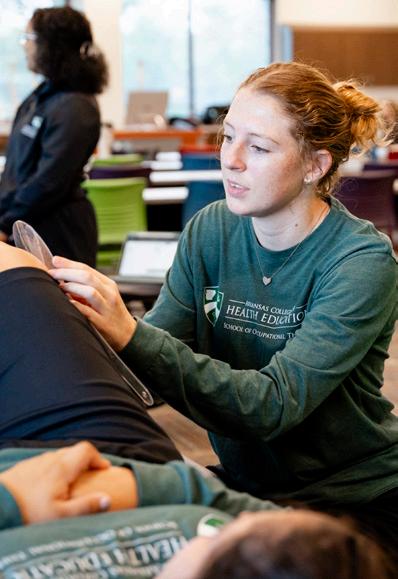
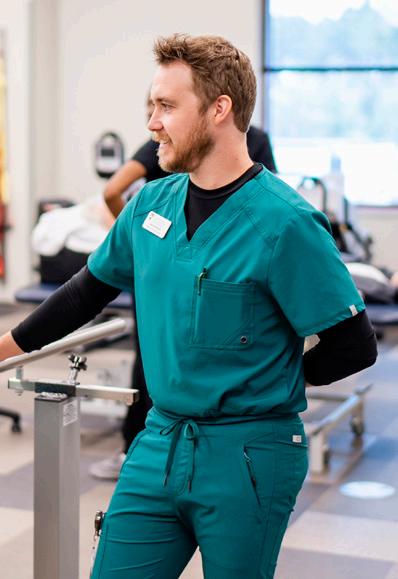

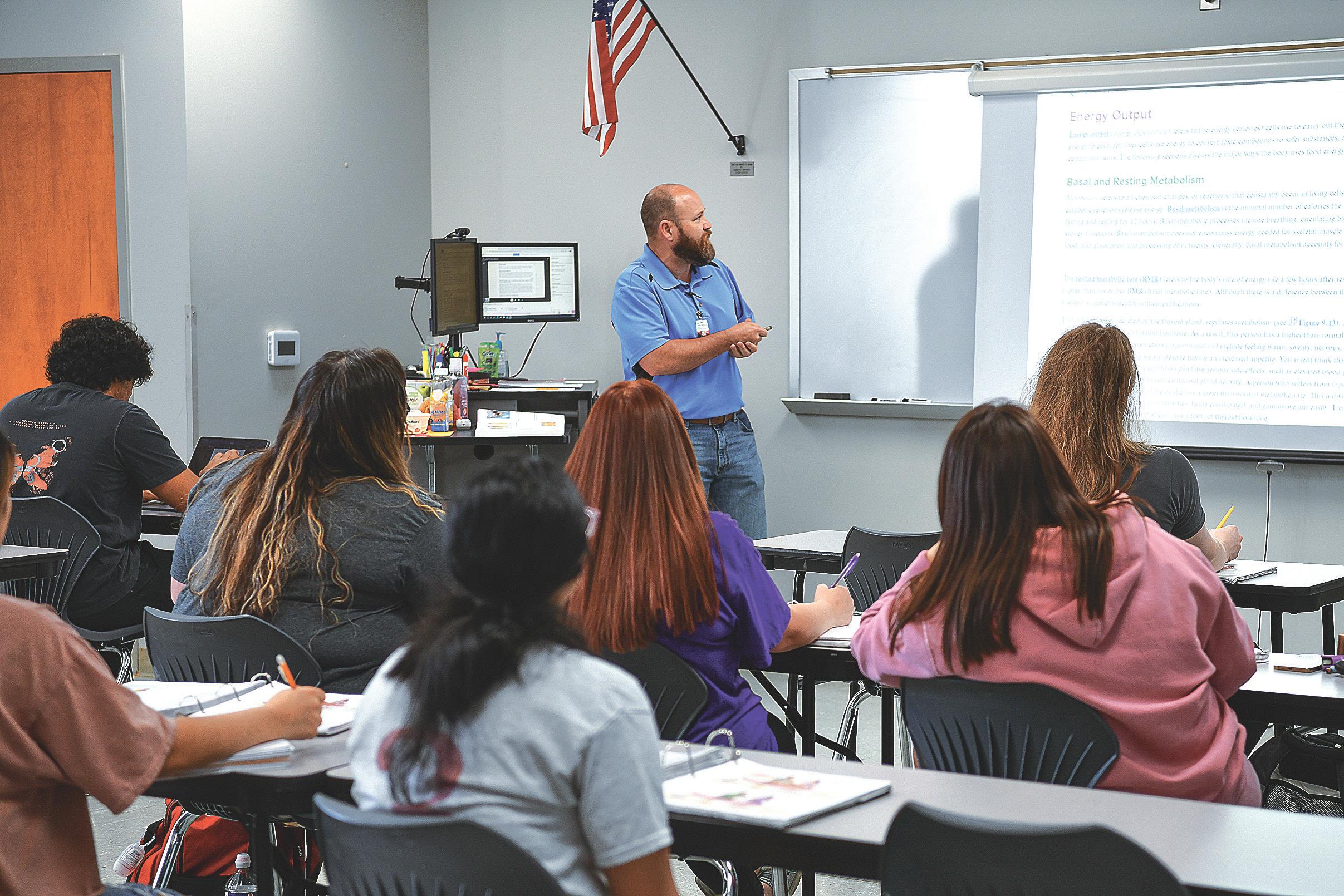
§

§
§
§
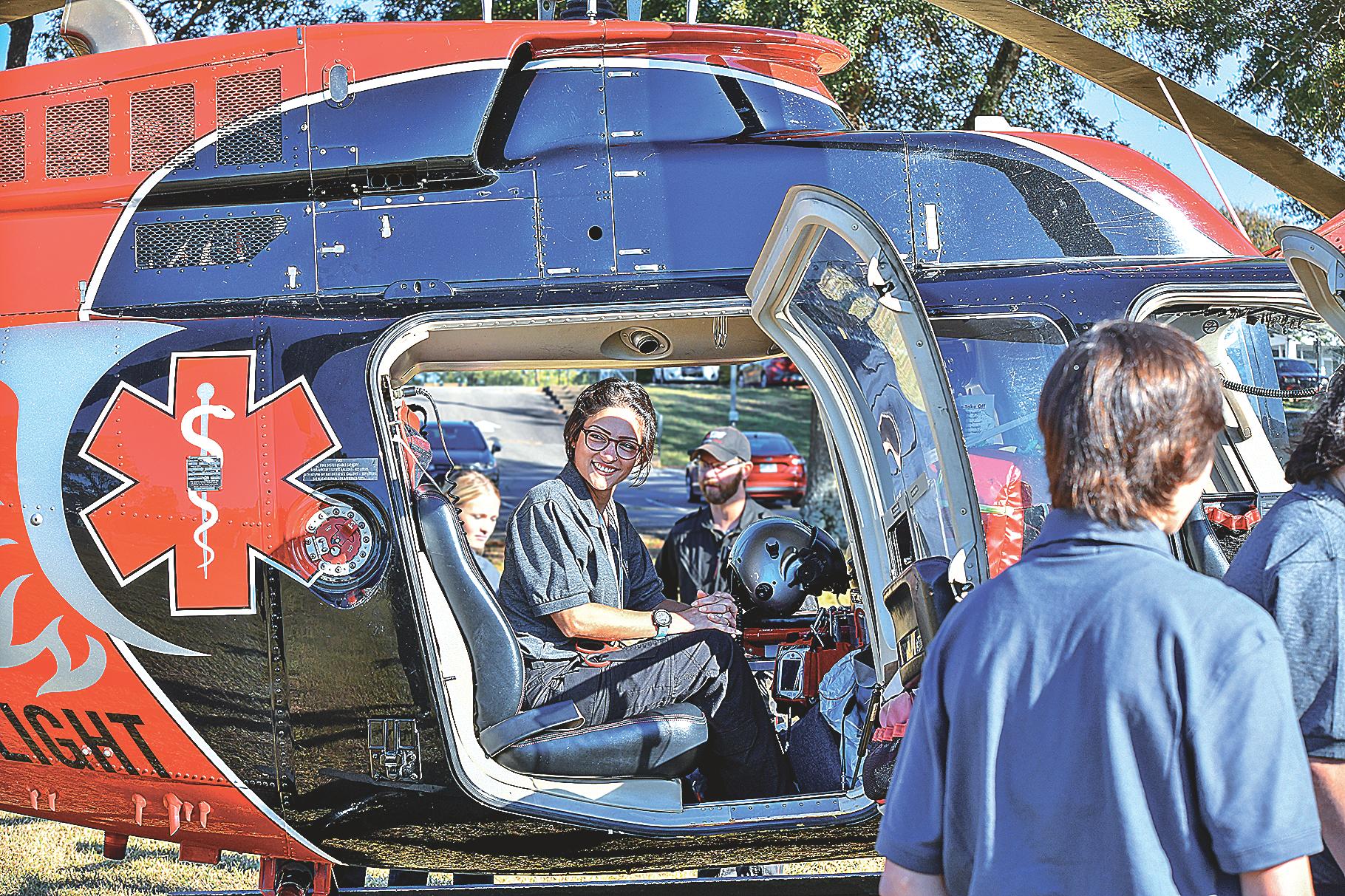
By Paul Sage

Almost 200 private schools in Arkansas offer unique opportunities, educational experiences and religious affiliations. Private school leaders across the state spoke with Arkansas Money & Politics about some of the unique challenges they face.
Passed in the 2023 legislative session and introduced in the 2023-2024 school year, the Arkansas LEARNS Act represents a significant shift in educational policy by providing Education Freedom Accounts to eligible students. The accounts, which can be up to nearly $7,000 per student, aim to alleviate financial barriers and empower families to choose private education options.
During the upcoming school year, more students will be eligible for EFA support, including children of military veterans, first responders and law enforcement officers.
Critics of the LEARNS Act believe the legislation is harmful to public schools, but others champion the choices it offers families who feel their students are languishing in struggling school districts. Many private school leaders remain in wait-and-see mode regarding the impact of the LEARNS Act, while others are ready to sing its praises.
AMP spoke with a handful of private school leaders across the state, some of whom were willing to address the LEARNS Act, about the potential advantages of a private school education.
Leah Myers is head of school at Bentonville Christian Academy, which opened as a preschool and began kindergarten instruction in 2014. This year, the school will offer education to students in pre-K through ninth grade and will continue to add a high school grade through the 2027-2028 school year, when it will graduate its first senior class. Myers explained her school’s approach to education as project-based learning.
“We’re not tied to one curriculum,” she said. “Our project-based learning appeals to a lot of families. We’re able to reach kids on their level. With kids who are advanced, we are able to say you have the capability to go well beyond. At the same time, the teacher is meeting [the needs of] the student who may need some additional help. We’re able to customize the educational experience.”
Myers said being a smaller school offers many benefits.
“Bentonville is a huge school district. So are Rogers and Springdale,” she said. “Students can get lost in the shuffle, and that’s not to say that Bentonville doesn’t have great programming and great teachers. We find parents respond to the smaller school and the personal relationships and
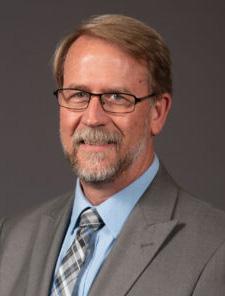
community that it allows you to be a part of. When they come in the door, we know who they are, and we know who their kids are. You’re not always going to get that at a bigger school.”
Myers said the No. 1 barrier for parents choosing private school education is the financial aspect.
“The LEARNS Act has leveled that playing field and put the decision in the hands of the parents about what is best for their student,” she said. “I see it as a positive all the way around. I know there are people who are against it. It’s hard when you’re talking to a parent who has been through the struggle and they just want what is best for their child, and the only thing holding them back from that decision is money. [The LEARNS Act] has opened that door, and you can see the stress and anxiety melt off some of these parents because their child has been struggling for so many years, and they finally get a breath of fresh air by being able to make this choice. The LEARNS Act is putting private school education within the realm of possibility.”
Jim Gurchiek, superintendent of Harding Academy in Searcy, which serves students in pre-K through 12th grade, emphasized his school’s commitment to academic excellence and community values. The school is celebrating its centennial in 2024.
“We have a unique mission, and every year, we strive to stay true to this goal: to be a Christ-centered school that promotes
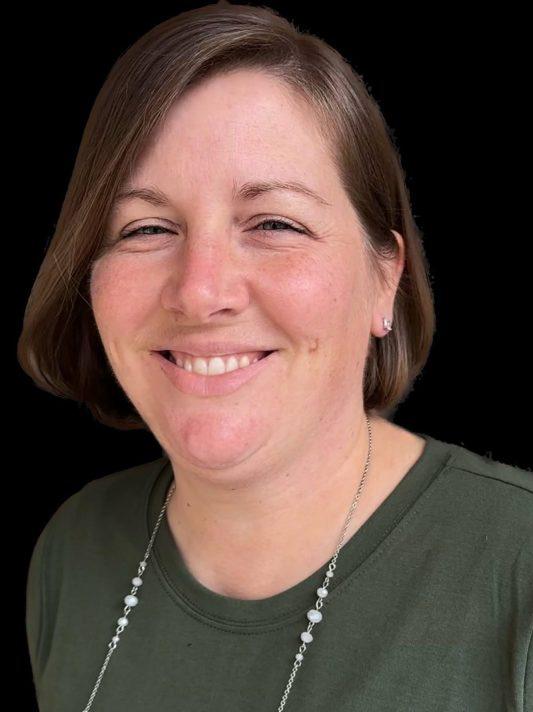
“The LEARNS Act is putting private school education within the realm of possibility.”
academic excellence while building a relationship with God and the community,” he said. “While there’s a lot about our world that is changing, we hold fast to this mission we’ve held for 100 years. Since 2021, we have experienced consistent growth in student population and see new growth opportunities as we look to expand our capacity and resources as we continue propelling our students towards their highest potential.”
Gurchiek said parents have choices between public or private schools, online virtual learning or homeschooling and more.
“Each education path has its pros and cons, and I always encourage parents to look into each option,” he said. “God created each child differently, and every family has their own dynamics, so there is not one choice that works best for everyone. Parents know their child and should pursue whatever option works best for their family.”
Christ the King Catholic Church opened its K-8 school in 1986 in west Little Rock. This fall, principal Kathy House will start her 30th year at Christ the King School.
“The more things change, the more they stay the same,” she said. “Kids are kids. Some of our students are second-generation Christ the King.”
Like most Catholic schools, Christ the King gives priority to church members, then accepts the children of families from outside the parish when it has openings. House said the school is at enrollment capacity for most of its grades and stays true to its focus on Christian virtues, traditional manners and respect for others.
She added that the school adapted quickly to new technology such as Google Classroom during the COVID-19 pandemic.
“School was open every day during the 2020-2021 school year. We had in-room and remote teaching,” she said. “Rules kept changing. Teachers came to school when everyone worked from home. Our families, kids and teachers were heroes.”
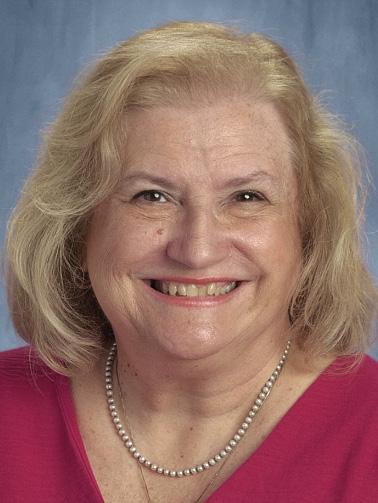
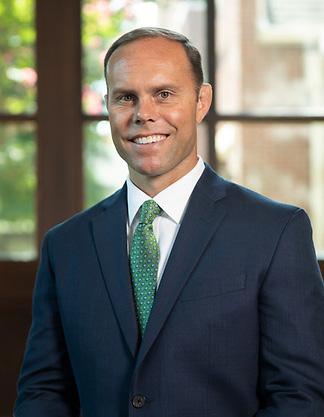
Episcopal Collegiate School, now 25 years old, educates students from age 3 through high school. Jamie Griffin, head of school, said the school emphasizes the importance of nurturing skills such as collaboration, critical thinking and effective communication. Episcopal Collegiate even started a program in entrepreneurial studies and emphasizes arts education.
“We’re proud of the way our program prepares students for college and of our student outcomes,” Griffin said. “We start talking to kids about college from
a values-based approach starting in middle school.” Griffin said his staff works with students to discern their strengths and passions.
“When they get to their junior year, when they’re assigned to a specific college counselor, they’re not starting from scratch,” he said. “I explain to students that their performance keeps as many doors open as possible. We like to say from here you can go anywhere.”
Griffin said there is a right educational fit for every child.
“I tell families if you want your child to be where they’re going to be known and cherished and challenged, we’re an environment that we would encourage you to look at,” he said. “We also understand that there are a lot of wonderful educational options throughout the city, and it’s about finding the right fit for you.”
“I tell families if you want your child to be where they’re going to be known and cherished and challenged, we’re an environment that we would encourage you to look at.”
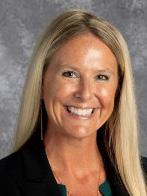
“It’s time to reinvent and rejuvenate and create a revolution in the world of academia.”
Amber Bagby, principal of Our Lady of Holy Souls Catholic School, said her experience as an educator during the pandemic confirmed to her that a world without teachers or a school building would be terrible. Holy Souls serves students in pre-K through eighth grade.
“We need to value and respect this industry,” she said. “I think it showed us all the possibilities with technology and all the ways you can get creative when you’re forced to get creative. It’s time to reinvent and rejuvenate and create a revolution in the world of academia.”
Bagby said the purpose of Holy Souls’ ministry is to cultivate and nourish each child’s individual gifts.
“In the last two years, we launched a junior high elective program,” she said. “Our elective teachers have created a variety of courses. The parents and students choose the courses that best meet their
interests, whether it’s pottery or public speaking or musical theater or ukulele. It’s opened the door to being able to see their capabilities.”
Bagby said the school is partnering with an outdoors consultant to help add an open-air flair to its curriculum.
“We’re trying to embrace that philosophy of getting these kids outside as much as possible for learning, keeping the academic rigor but transforming all our outdoor spaces to where everything is a classroom on our campus, no matter whether you’re indoors or outdoors,” she said. “Any school can say a lot of great things, but I say please just come see us because when you walk in our building, you feel something you don’t feel at the other schools. When a parent asks, ‘Are you going to nourish my child’s gifts?’ I say, ‘Yes, we will, and discipline along the way.’”
Keith McDaniel, superintendent of Shiloh Christian School, said the greatest challenge his school will face in the upcoming academic year is related to capacity. Located in Springdale with a satellite campus in Rogers, Shiloh offers classes for pre-K through 12th grade.
“As northwest Arkansas grows, so do our schools,” he said. “We are currently at capacity for what our current facilities can handle. Our mission of developing godly leaders who engage their culture and change it remains the same. Each year, we pray that we look more like Christ in how we educate, compete and connect. Our leadership team’s core focus is on facility improvement, culture, staff strengthening and community connections. As we work to grow in each of those four areas, our hope is that our campus is impacted in a positive way.”
McDaniel said the benefit of school choice as made available through the LEARNS Act is that families can choose the educational platform that best suits their needs.
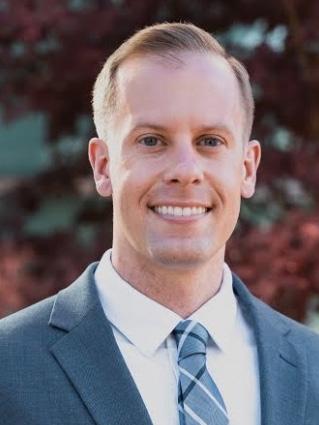
“Shiloh Christian School is just one of the options to choose in northwest Arkansas. We are unapologetically a Christian school that is rooted in God’s word,
and we aim to provide a premier academic, athletic and social experience through a biblical worldview for our students and families,” he said.
McDaniel said he believes the LEARNS Act has benefited both public and private schools.
“Each family has unique needs, and each school has a unique way to care for those needs, and the LEARNS act helps families find a school that can meet those needs,” he said.
the Springdale Public Schools
the
of the largest
and charter school systems in the state by enrollment for the 2023-2024 school year. The Little Rock School District, meanwhile, boasts the most schools, and central and northwest Arkansas — once again — dominate the top 10.

Niche
Unlock your earning potential with a UA Little Rock graduate degree. Propel your career with 40+ programs designed for driven professionals. On campus or online, we offer the support and resources you need to excel. At UA Little Rock, expect more from your education—and your future.
Learn more at ualr.edu/academics/graduate




By Kenneth Heard & Dwain Hebda
For years, anything earned less than a four-year college degree was viewed somewhat with disdain. Vocational and trade schools, internships, and other educational alternatives were not believed to be as impressive as the traditional university programs.
Those seeking the alternative venues were seen back then as slackers, those with Lucky Strike smokes rolled up in their T-shirt sleeves and dirty fingernails.
That has all changed now, and two-year community colleges, technical training and other job programs have filled many jobs in Arkansas. They have also kept people in the state, increased its tax base and helped communities expand.
The phenomenon is having a domino effect as the educational alternatives continue to grow and more students seek them out.
“We still need colleges,” said state workforce director Mike Rogers. “They are important institutions. I don’t want to take that from anyone, but we are also seeing a need for the other forms of training.
“Those who go into that are not ‘less than.’ We are helping them find the next step.”
Last year, the U.S. Bureau of Labor reported, a plumber with a two-year apprenticeship could earn
an average annual salary of $61,500, while a fouryear social worker degree at a university made about $51,000 a year.
“We’ve got to help kids get a good foundation,” said Diane Zook, a former educator, Arkansas Board of Education member and member of the Southern Regional Education Board, a 16-state organization charged with improving educational opportunities.
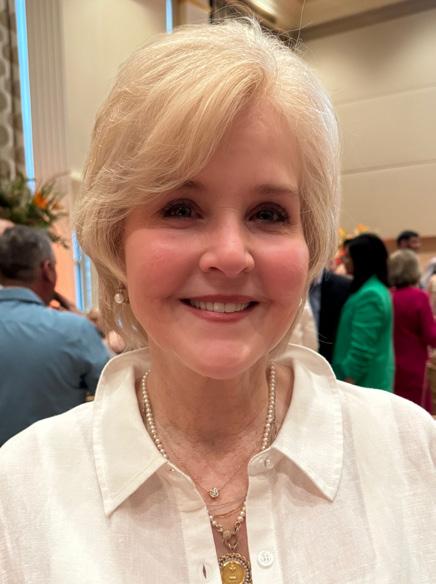
Diane Zook
“They are going to be the leaders of tomorrow,” she said. “The opportunities and jobs are there. We have to show young people the importance of finding them.”
The focus of several efforts is to reach students who may not be college bound but are qualified to receive technical training for thousands of jobs in the state.
Zook’s husband, Randy Zook, is CEO of the Arkansas State Chamber of Commerce/Associated Industries of Arkansas. The state chamber created Be Pro Be Proud, a six-state organization that “brings the perception of technical schools into the 21st century,” its website states.
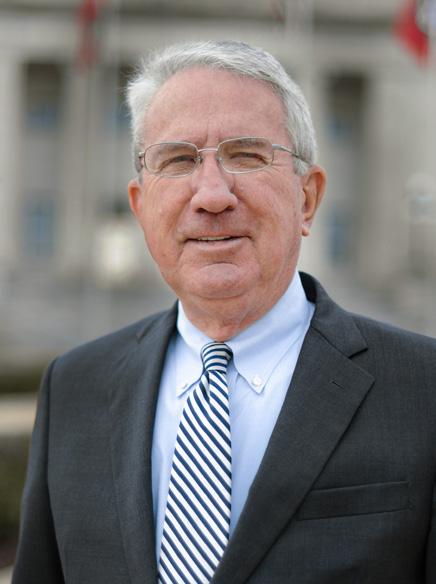
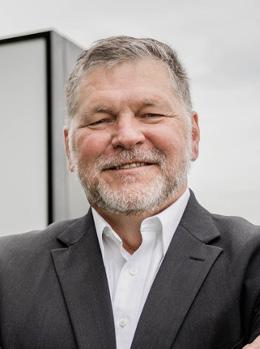
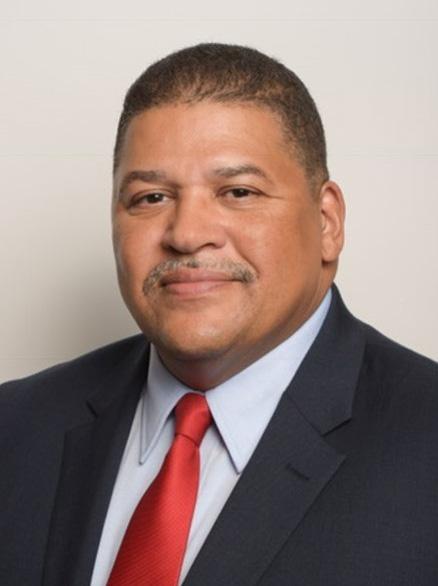
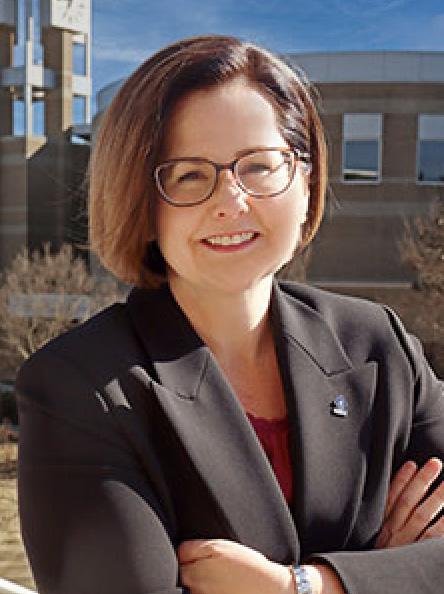
Be Pro Be Proud uses custom-built vans and trailers to travel to schools and sites to offer students virtual reality simulators of driving trucks and tractors and information on technical jobs, medical professions, utility lineman careers, and construction and engineering opportunities.
Zook developed the program in Arkansas in 2017 after seeing how employers in the state were having difficulties filling high-skilled jobs.
“There were thousands of jobs available but not the right people to fill those jobs,” Zook said. “Kids back then thought that if you didn’t go to college, you were economic roadkill. We developed Be Pro Be Proud to give kids a taste of the opportunities.”
The program helps lead prospective employees into positions in industries such as health care, mechanics, distribution, construction and manufacturing. He said Be Pro Be Proud is now looking into providing information and training about broadband internet careers.
“There are thousands of jobs out there with salaries higher than the average wages,” Zook said.
In Arkansas, about 100,000 students have visited the Be Pro Be Proud mobile since its inception. During a typical school day, 1,500 students may receive job information from the program.
CEO Brian Marsh said the organization, which is mostly known for its distribution of donations, trains people in various skills.
As of July 1, 950 have received training, Marsh said. An 18week training in welding can earn a participant a job with a yearly salary of $35,000, he added.
“We look for jobs that will be here in three to five years,” Marsh said. “We want to meet the needs of the communities by finding good positions.”
Goodwill of Arkansas began the training program in 2013 and now has technical training centers in Little Rock and northwest Arkansas. In addition to providing specific skills training and certificates, the centers also help participants in earning high school diplomas.
“There are tens of thousands of jobs. They are ready career opportunities. We have to get a jump on getting them started. It’s had an impact on the state, and it’s still growing.”
— RANDY ZOOK, CEO, ARKANSAS STATE CHAMBER
“It’s a mindset,” Zook said. “There are tens of thousands of jobs. They are ready career opportunities. We have to get a jump on getting them started. It’s had an impact on the state, and it’s still growing.”
Goodwill Industries of Arkansas is also in the job-training business.
There are 49 Goodwill sites in the state. Eighty-five percent of the state’s population lives within 15 minutes of a Goodwill, Marsh said.
“People know who we are, but they don’t always know what we do,” he said.
County jails are also trying to help educate people and reenter them into the workforce after being released from incarceration.
Pulaski County Sheriff Eric Higgins oversees the CSI Academy at the Pulaski County Regional Detention Facility. The academy offers a program consisting of four hours a day five days a week for 12 weeks. Classes include conquering chemical dependency, cognitive behavior therapy, peer recovery support and “inside-out dads.”
A second phase offers six-week courses in welding, industrial manufacturing and culinary arts. Higgins said there are currently about 100 men and 30 women in the reentry program.
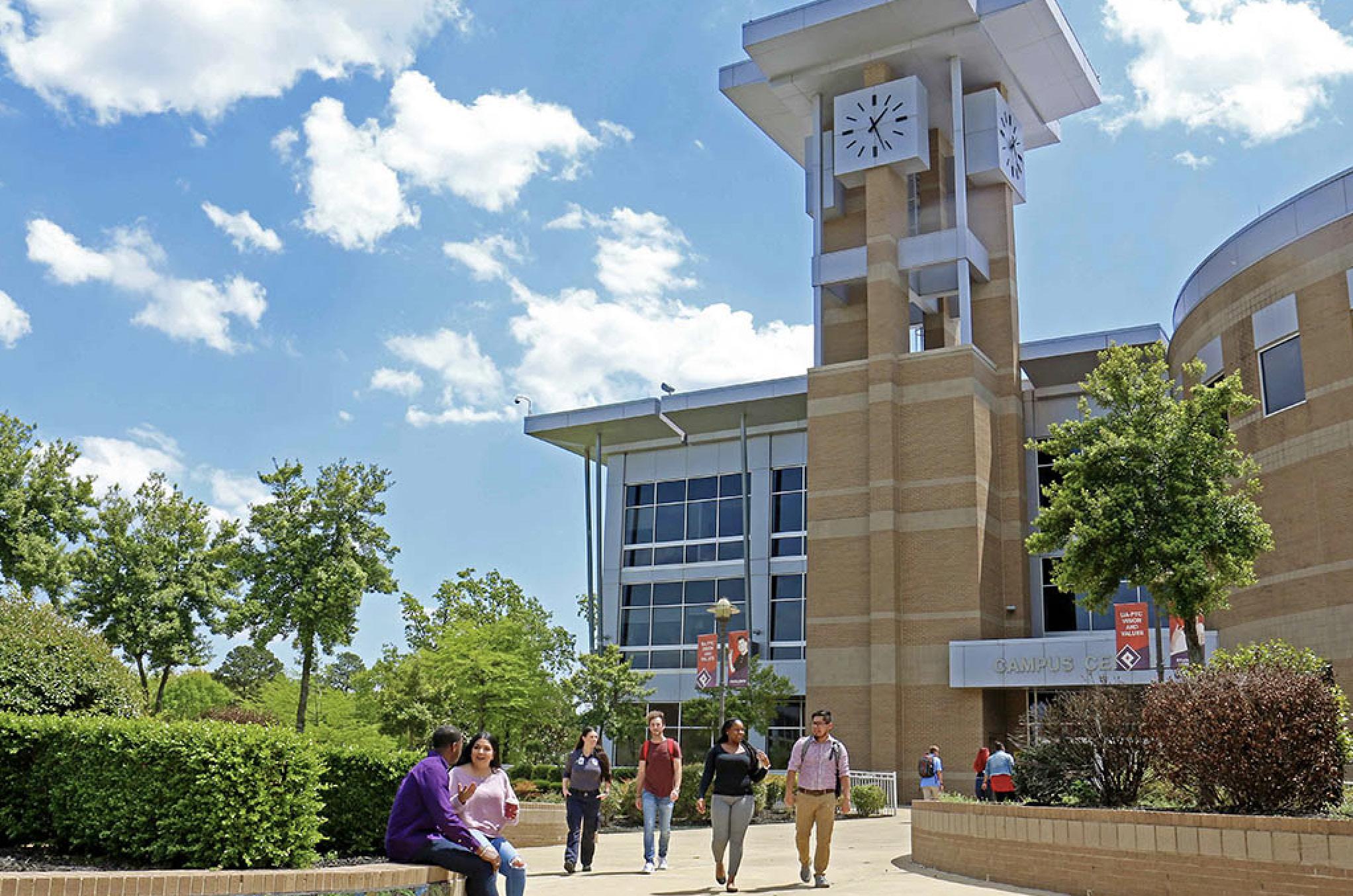
The sheriff said he is working on the third phase, which is finding employment.
“The last phase of it is sending people to work,” Higgins said. “We’re still working on that aspect of it. We still need more programming coming in, but we do help with finding housing, and we deal with addiction.”
He said the jail is using a grant to place people in treatment programs when they leave the jail, and the program has gained a good reputation for success.
“I think we’ve had every circuit court judge sending someone to our program,” he said. “That’s fine. We work closely with the drug court.”
While enrollment dipped slightly this year at the University of Arkansas — Pulaski Technical College in North Little Rock due to changes in applying for Pell Grants, there are still about 4,500 students attending, Chancellor Summer DeProw said.
The school, which has 350 employees, offers courses in five-star culinary, technical sciences, allied health, logistics, engineering, business technology, law enforcement, cosmetology, education and general studies.
“Historically, there’s been a vo-tech mentality associated with this,” DeProw said. “That’s no longer the term. We use ‘direct employment’ now.’”
Graduates of Pulaski Tech in North Little Rock are finding job success after leaving school, the school reported. (Photo provided)
cent are still in the field they studied for two years after completing coursework.
The college received a $5.7 million award from the U.S. Department of Labor in April to expand its nursing education program, DeProw said. It also is continuing developing partnerships with various industries to better prepare its students for future employment.
“It is an exciting time,” DeProw said. “Things are moving fast, and we’ve got to stay ahead. Instead of waiting for industry to find our students, we want to look ahead two years and have jobs waiting for them when they step out.”
Rogers, who was appointed the state’s chief workforce officer in 2023 by Gov. Sarah Huckabee Sanders, said the various alternative education programs are a boon for the state.

Rogers
“People need jobs. Employers need people,” he said. “We ask employers, ‘What do you need?’ and get to the next step. We give them the education for those jobs.”
He said keeping people in the state for jobs will create an economic cycle.
Programs provide customized training for various industries, ensuring students who upon earning degrees or certificates are quickly employed.
The college has an amazing success rate, DeProw said. Ninety-two percent of its graduates are employed and 86 per-
A program at Northeastern Arkansas College in Blytheville tailors training specifically to provide steel businesses with trained employees. The program keeps students in the Mississippi County town, boosts local tax revenues and helps businesses profit.
“We’re seeing a lot of success stories,” Rogers said. “It’s encouraging to me to see people who are having hope now.”




By Mark Carter
The return on investment of a four-year college degree is as valuable as ever, said university leaders in Arkansas, and there is data to back them up.
While an increase in the number of programs offering technical and skills training has opened opportunities — sometimes lucrative ones — to more Arkansans, data reveals that over a lifetime, the earning potential of graduates with four-year or graduate-level degrees is substantially higher.
A welding certification earned a year or two out of high school can deliver a starting salary that might double that of the average newly minted college graduate with a bachelor’s degree. Plus, that starting salary likely comes with a benefits package that most college graduates must wait years to realize. The salary race, though, often comes down to one between the tortoise and the hare when comparing degree levels.
Jonathan Coleman, interim assistant vice chancellor for enrollment management at the University of Arkansas at Little Rock, said he believes the value of a four-year degree has not diminished with the rise in skilled training options. The value of an education simply differs from student to student, he said.
“Students need to consider what they see as a potential career when deciding the value of a four-year degree. In considering what a student sees in their future, they need to consider the range of skills they would need to succeed and the life experiences they would need to get there,” he said. “Many job markets like health care, technology and education require a four-year degree due to the specific skills required to function in those areas. Also, we know that many of the areas like the three above are never going away. There will always be jobs in education, health care and technology. Additionally, college graduates have the ability for advanced education. Gaining a bachelor’s degree opens the opportunity for students to move on to graduate, J.D. and doctorate programs and increases their earning potential and marketability even more.”
The most recent data from the state’s Arkansas Higher Education Planning Guide summarizes employment and earnings outcomes for graduates from 96 programs across 37 colleges based on employment and wage data from 2019. Outcomes vary by profession, of course, but in the high-demand, high-wage field of computer and information sciences, for example, the average first-year salary for 2018 Arkansas graduates was roughly $54,000. After five years, that figure jumps to $68,000.
For students with a master’s degree in the field, the numbers are $74,000 after one year and $84,000 after five. By way of comparison, the salary range in the same field for two-year associate degree holders starts at $41,000 and rests at $50,000 after five years, and the starting first-year salary for certificate holders is $24,000.
Not every student wants to study computer science, though, and an individual’s course of study is dependent on aptitude and
preference. As one might expect, more education generally translates to higher earnings.
Based on 2022 wages, the state data broke down trades and educational levels among the roughly 23,000 students who graduated from Arkansas two- and four-year schools in 2020. Not surprisingly, medical doctors and lawyers made the highest salaries in Arkansas, as seen below by the education levels and their respective average salaries after two years on the job:
· Doctor of Medicine and Juris Doctor degrees, $95,000
· Postgraduate Master of Science degrees, $71,000
· Doctor of Philosophy or Doctor of Education, $69,000
· Advanced two-year certificates, $64,000
· Post-baccalaureate graduates (two or more bachelor’s degrees), $62,000
· All master’s level degrees, $56,000
· Bachelor’s degrees, $44,000
· Associate two-year degrees, $44,000
· Two-year technical certificates, $43,000
· Two-year certificate of profession, $38,000.
As the numbers show, there is money to be made by earning advanced certificates. Arkansas Northeastern College’s Steel Tech Academy in Blytheville is helping supply the workforce for the nation’s new steel-making hub in Mississippi County, churning out graduates who earn starting annual salaries of more than $80,000 in some cases. That is the exception, however, and not everyone wants to work in a steel mill, as clean and technologically advanced as they are today.
For most fields, the salary ceiling rises as one attains higher levels of education, and educators insist the nonacademic benefits of a traditional four-year college path remain valuable, as well.
On July 1, the interim label was removed from Arkansas Tech University president Russell Jones’ title. He joined the Tech faculty in 2020 as dean of the Russellville school’s college of business after a long tenure at Arkansas State University in Jonesboro. He said the traditional experience of attending college on a campus has many personal development advantages in addition to the academic ones.
“Teaching and taking classes online or through a hybrid model can have advantages, and Arkansas Tech offers those opportunities,” he said. “Still, the ability to have meaningful classroom conversations and meaningful experiences beyond the classroom is enhanced beyond measure by the traditional fouryear college experience. We must be careful to keep humanity in higher education or it will not translate well to the career and personal opportunities and challenges that graduates will face for the remainder of their lives.”
The COVID-19 pandemic exacerbated a trend of declining college enrollment nationwide, and many schools in Arkansas are
just now seeing enrollment come back up, but the on-campus experience remains a strong draw. Ben Sells, president of the private Ouachita Baptist University in Arkadelphia, said many former Ouachita graduates tell him they had life-changing experiences during their college years.
“Our students can grow, explore their interests and calling, and develop significant, lifelong relationships in a setting characterized by rigorous academics, a rich Christian environment and a vibrant campus life outside the classroom,” he said. “A traditional fouryear degree path gives students the capacity to pursue double and even triple majors that can broaden their career preparation and increase their flexibility in meeting the demands of the job market.”
When Little Rock native Charles Lehigh graduated from Catholic High School for Boys in 2018, he was not sure where his career path would lead but knew it would require a four-year degree at minimum. He attended Tulane University in New Orleans and enrolled in the esteemed Tulane School of Public Health and Tropical Medicine, earning a Bachelor of Science in Public Health in 2022 and a Master of Public Health in Epidemiology in the fall of 2023.
Lehigh said his experience on a campus like Tulane’s helped him figure out his path. Before he graduated, he had a job lined up with the nonprofit Louisiana Public Health Institute in New Orleans, where he works as an analyst in the LPHI Monitoring, Evaluation and Learning Department. Lehigh said he had considered medicine, meteorology and even military service through an ROTC program, but once at Tulane, he knew public health was his calling.
“I am not doing exactly what I envisioned I would be doing when I entered college, but I enjoy my work, and I think it is important,” he said. “I feel as if I have been given the opportunity to give back to the community that made me the professional that I am today. When I entered my four-year program, I was hoping to work as an M.D. in something like infection control or immunology, but over the course of my time in college, I really learned that I enjoyed the prospect of preventative health rather than treating illness.”
schools. UA graduates who have a four-year degree can expect to earn $58,191, which is higher than the midpoint average of $53,617 among all four-year schools. UA is also more affordable than most with an average annual cost of $16,050 compared to a national midpoint of $19,555; and its graduation rate of 66 percent topped the national average of 58 percent, according to the data.
Coleman said a sometimes-forgotten benefit of a four-year degree earned on campus is the opportunity for personal growth.
“In addition to gaining skills like writing, time management and working on a team, there are opportunities to improve presentation skills and interact with professors and students who will, later on, become part of your valuable career network,” he said. “Finally, the problem-solving and analytical skills are a value-add for a four-year degree. Equipping students with the skills to address challenges that haven’t come up yet is critical for society. ‘College’ and all it entails is so ingrained into our culture but, of course, has evolved over the years.”
Costs will become an even bigger component to students’ higher education decision-making process, he added. In-state universities have introduced scholarship programs that can drastically cut the expenses associated with attending college on campus. Since the inception of UA-Little Rock’s half-off scholarship program in 2021, more than 950 students have accessed more than $3 million in scholarships. The university recently announced the Trojan Guarantee, which guarantees a bachelor’s degree free of tuition and fees for incoming freshmen who are eligible for a Pell Grant and receive the Academic Challenge Scholarship.

“I believe that affordability will become an even bigger aspect of a student’s decision of not just which college to attend but whether to attend at all,” Coleman said. “Research says that finances are now the No. 1 factor in college decision making. For years, UA Little Rock has been at the forefront of affordability campaigns for students. I think programs like this are going to help more students have access to education.”
In addition to providing him with valuable degrees in a competitive field, Lehigh said the four-year college experience helped teach him how to live independently, especially once he moved off campus.
For Arkansas students planning to stay in state and work after graduation, the benefits of earning a diploma from an in-state school extend beyond networking. The U.S. Department of Education’s latest College Scorecard gives the University of Arkansas flagship campus in Fayetteville good marks for graduation rates, average annual costs and median earnings compared to all four-year
The traditional college path is not for everyone, and that path need not emulate the one taken by the members of Delta House. Jones said Tech students have shared stories with him about how much their on-campus experience has impacted their lives.
“One of the factors that helped me accept the offer at Arkansas Tech was my meeting with students on my first visit to the ATU campus,” he said. “I asked them, ‘Why do you go to Tech?’ They answered that, ‘The faculty cares about my success, and I am not just a number to them.’ Tech is a community. I have repeatedly found that to be true during my time on staff. ATU has so much to offer. We have to get the word out. We’re a place where you will love the people once you come here.”
By Lance Brownfield
Arkansas students have more opportunities than ever before. Thanks to two institutions in Arkansas higher education, there will be more options available for those aspiring to be veterinarians and dentists.
Arkansas State University in Jonesboro recently announced that it would bring a veterinary school to the city, and Lyon College in Batesville announced plans to open a veterinary school in Cabot and a dental college in downtown Little Rock. The new programs will be the first in the
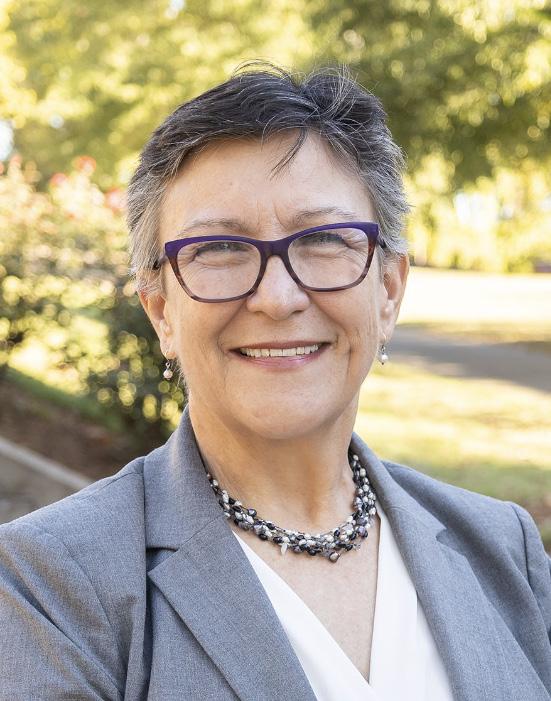

state to offer degrees in the fields. Arkansas students previously had to leave the state to obtain them.
“We are so grateful for the outpouring of support and enthusiasm that we have experienced from the beginning of this project,” said Melissa Taverner, Lyon College president. “Community members, students, alumni and their families have been so excited about the possibilities for growth and service that the two Lyon graduate professional programs will provide.
“Developing two health care graduate programs simultaneously is challenging, but the knowledge that they will be transformative for our communities in Arkansas is definitely the fuel that keeps us on track and on point.”
The Little Rock campus will be housed in Riverfront Plaza Building 5, the former Alltel corporate headquarters in the Riverdale area, and take up six floors. The school of veterinary medicine in Cabot will be new construction.
The school of dental medicine will be strategically located near existing medical institutions in the capital city, while the SVM will be located adjacent to the planned Cabot Animal Services Center and have enough space for future program expansion.
Lyon College School of Dental Medicine will offer a Doctor of Dental Medicine, which provides equivalent training and cur-
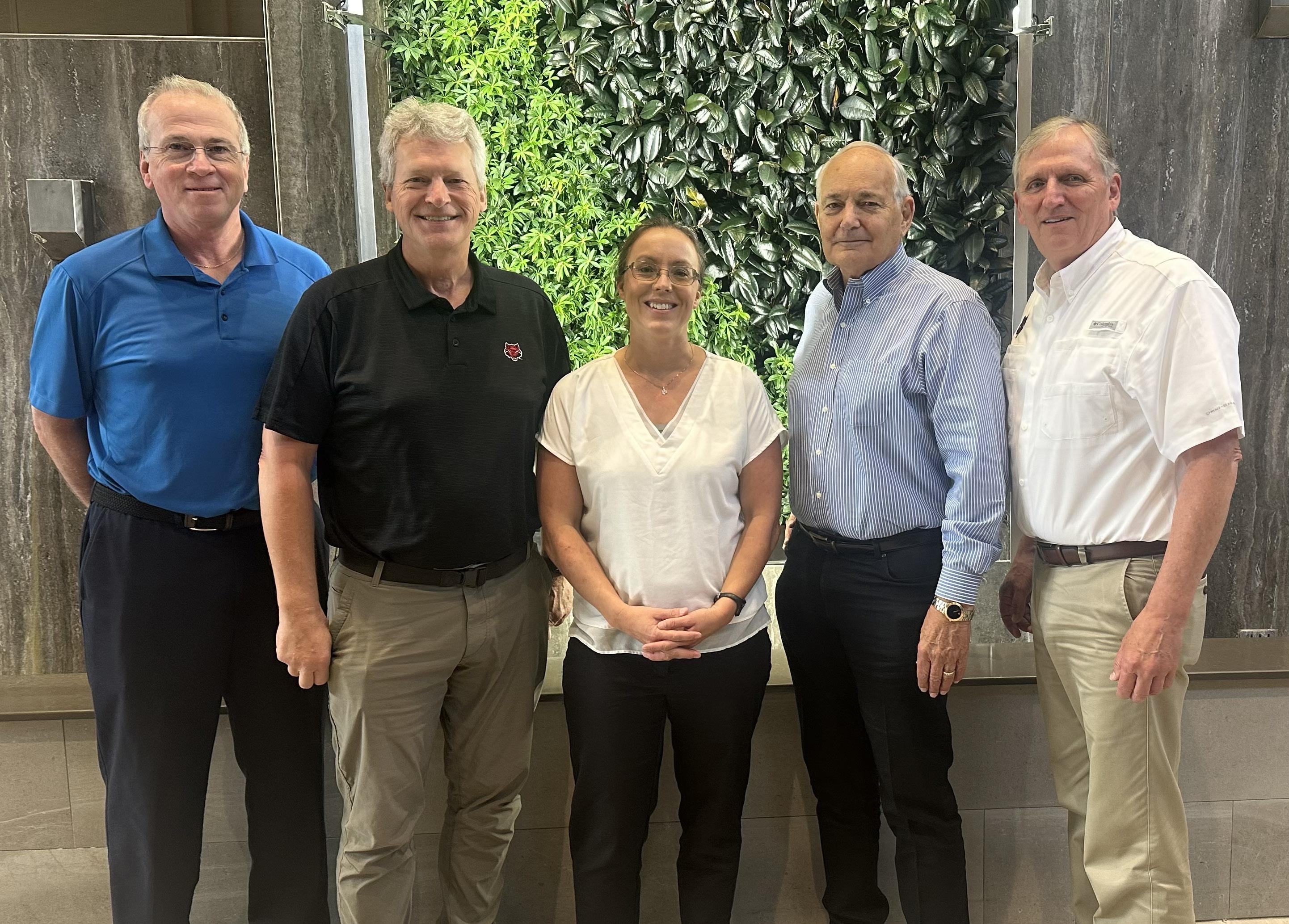
riculum to a Doctor of Dental Surgery, while the school of veterinary medicine will offer a Doctor of Veterinary Medicine degree. Both will prepare students for their necessary board exams and both schools are scheduled to open in 2025.
Eleanor Green is the veterinary school’s founding dean, and Burke Soffe is the founding dean of the dental school. Green previously served as professor emerita and dean emerita of veterinary medicine at Texas A&M University, and Soffe most recently served as assistant dean for faculty development and curriculum at Roseman University of Health Sciences College of Dental Medicine in Nevada.
“Locating the school of dental medicine and the school of veterinary medicine in central Arkansas is critical to our success,” Taverner said. “These higher education facilities will depend upon population density and accessibility for students, faculty and partners for long-term viability.”
In Jonesboro, there are similar challenges but the same reward of preparing students for highly sought-after careers without requiring them to leave the state for the necessary education.
“I think the biggest challenge is making sure we have all the pieces in place to ensure a successful trajectory for the program,” said Heidi Banse, incoming dean of the ASU College of Veterinary Medicine. “Since we are developing a new program, there
are a lot of moving parts. Fortunately, we have an amazing core leadership team in place that has the experience, expertise and enthusiasm to continue to move this forward.
I am so grateful for our CVM leadership team — Dr. Jim Lloyd, Dr. Glen Hoffsis, Dr. John Weale and Dr. Len Frey.” Banse officially started in July, and classes are anticipated to start fall 2026, pending accreditation. Like many in the industry, Banse is well traveled in her career. She graduated from Washington State University’s College of
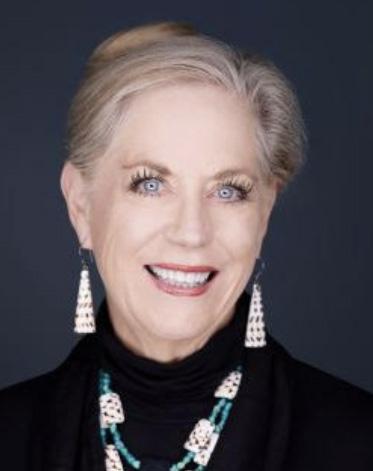
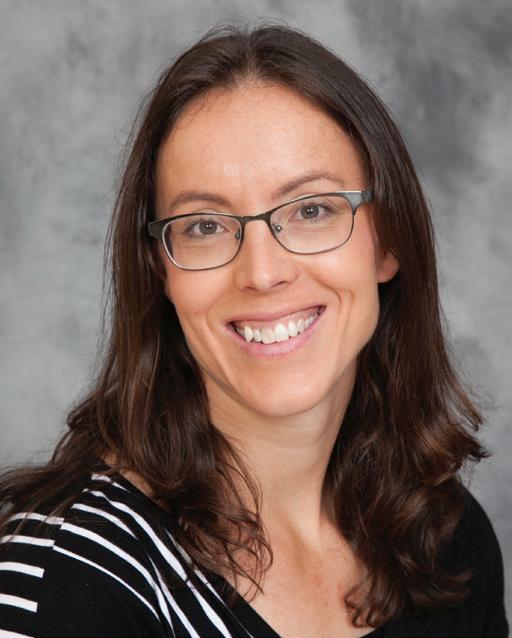
“The dearth of preprofessional training opportunities in veterinary and dental medicine in Arkansas is an obvious area that can benefit from an institution that is willing to think a bit differently about how such opportunities can be brought to serve the state.” — Melissa

Veterinary Medicine in 2007 and completed an internship in large animal medicine and surgery at the University of Georgia. From there, she did a combined residency in equine internal medicine and Ph.D. program in veterinary biomedical sciences at Oklahoma State University. In 2013, she became an assistant professor of veterinary therapeutics at the University of Calgary in Alberta, Canada, before taking a role at Louisiana State University. She was promoted at LSU to associate professor of equine medicine and transitioned into educational leadership as the associate dean for educational strategy. In that role, she spearheaded the implementation of a new curriculum that took effect in the fall semester of 2023.
She said the university is still finalizing plans for the new CVM building, which will include classroom and laboratory spaces, as well as offices. School officials are planning for a class size of 120 students, half of whom will come from in-state. Like Lyon, A-State will offer a DVM degree.
“We are particularly excited about our laboratory spaces, which include areas for clinical and surgical skills, anatomy and communication skills,” Banse said.
Banse is excited for the first class and said having veterinary students on campus will “bring all the planning and preparations to life.”
“We have endeavored to be student-centered as we build our facility and our program,” she said.
She added that much of the state is considered underserved by veterinarians, and the new school should help resources
grow as more students pursuing the career path can stay within the state.
“We anticipate that more Arkansans will be interested and willing to pursue veterinary careers when they are able to stay closer to home,” said Banse. “In addition, having a state school with a lower tuition for Arkansas residents improves accessibility.”
While opening the college may take a lot of work on the front end, ASU officials are ready to see it through and bring another draw to Jonesboro.
“A-State is well positioned to support a veterinary college due to the existing infrastructure and faculty expertise across campus,” Banse said, “including the college of agriculture and the college of sciences and mathematics and the college of nursing and health professions and the research support and opportunities provided by the Arkansas Biosciences Institute.”
Lyon College, a private institution affiliated with the Presbyterian Church (USA), hopes to fulfill the same mission.
“The dearth of preprofessional training opportunities in veterinary and dental medicine in Arkansas is an obvious area that can benefit from an institution that is willing to think a bit differently about how such opportunities can be brought to serve the state,” Taverner said.
While ASU seeks to keep its focus consolidated to
Jonesboro, Lyon is branching out to central Arkansas.
“Although they are vet and dental professionals operating in two additional locations, they are still Lyon and as such coordinate their work with the team in Batesville,” Taverner said, adding that the college is still committed to developing the home campus in Batesville and the surrounding community of Independence County.
“We’ve been so fortunate to assemble an outstanding team of academic leaders and facilities consultants who have been instrumental in the development of the project at all levels,” she said. “These folks are critical to our overall understanding of the needs of these two programs and have been involved from the beginning of the project.”
It was not all smooth sailing, and the college ran into some problems securing the initially planned location thus having to split the two schools, which both fall under the umbrella of the Lyon College Institute of Health Sciences.
“When entering into an ambitious project, one logically expects that there will be changes to the original plans as we learn more about how to optimize our curriculum, adapt to challenges, and ultimately stay true to the project and institutional missions,” Taverner said. “Our original site had challenges that ultimately were not able to be overcome, so in keeping with our mission, we sought and secured alternative locations that presented unanticipated advantages.”
Those advantages include having more room to flesh out the programs over time and coming alongside existing institutions nearby for partnerships.
Students of the veterinary school will live on a newly constructed multi-acre campus. The Cabot Animal Services Center will also be built on the campus, which will aid in the accreditation process.
The college is pursuing accreditation with both the American Veterinary Medical Association Council on Education and the American Dental Association’s Commission on Dental Accreditation.
“Since we’ve had a change in venue for the two professional schools, we have had the opportunity to revisit not only the original plans for the facilities but also the graduate curricula and how they will be delivered,” Taverner said. “For the dental school, the Riverdale location on Allied Drive provides space in an existing renovated building for a much more expansive dental clinic that will serve a wide range of patients and will allow more on-site calibration of instruction.
“For the vet school, the rural location and access to significant acreage allows us to plan for a larger, more integrated new construction, as well as collaborative access with Cabot Animal Services on the same campus, as well as a new equine/large animal teaching facility.”
While the new programs certainly mean growth for Lyon College, Taverner said it will also translate to growth in the Little Rock and Cabot communities where they are setting up shop. She said the school has seen an increase in interest in attending Lyon College for undergraduate study as a way to funnel directly to the graduate professional schools and added that she hopes to foster a connection between the two satellite campuses and the Lyon College campus in Batesville.
“The influx of graduate students and, many times, their families into both communities will have an immediate impact in terms of economic growth and new people entering the job market and educational systems,” she said. “I truly believe that these three campuses can be unified in a way that benefits all of the programs involved.”
The initial class sizes will differ depending on the program, but the dental school has a target of 80 students in the inceptive class, and the admissions portal is already open. The vet school is planning for a class of 110 to 120 students. Tuition has been set for both schools.
Tuition and fees for the dental school will be $34,000 per trimester or $102,000 per year, while the vet program will cost $33,500 per trimester or $100,500 per year. Taverner said the costs are near the national average for both programs. Both programs will take three continuous years, making up nine trimesters.
“We have a well-established track record of preparing undergraduate students for careers in the health professions, and for two of the most popular fields, qualified undergraduates have been required to leave their home state for training as dentists or vets,” Taverner said. “The data indicates that professionals many times will choose to remain in or near the communities in which they train. By providing home-state options, we hope to retain these young professional Arkansans so that they can live and practice in the communities that need them.”
Banse said schools like ASU’s CVM will contribute to filling the current needs of the veterinary workforce across the country. Due to a substantial shortage projected for the next several years, vet jobs will be in high demand nationwide because not enough workers are trained to fill the need.
Taverner said Lyon “will be able to find creative and authentic ways to connect the educational objectives of all three campuses and that we can train health care professionals who are grounded in service.”
Neither Lyon nor A-State looks at the opening of their schools as a competition. The real winners are students from across the state and the communities that will benefit from their future services as dentists and vets.
“I am so grateful for the outpouring of support for the AState CVM across campus, within the Jonesboro community and across the state of Arkansas,” Banse said. “I am inspired by the enthusiasm for the CVM and so honored to be a part of building this program.”
By Lance Brownfield
Embracing its role as an urban, commuter-based school with a higher percentage of non-traditional students, the University of Arkansas at Little Rock has made accessibility a cornerstone of a new strategic plan.
The school recently unveiled the plan aimed at making the college more affordable and attractive for students in greater Little Rock and around the state, and it starts with the Trojan Guarantee.
This new scholarship ensures most Arkansans the chance to earn a zero-cost bachelor’s degree. The university has initiated other measures to make college more affordable, and freshman admission is up significantly as a result. The latest strategic plan will remain in effect through 2028, and UA Little Rock Chancellor Christina Drale said the motivation behind it can be summed up in one word — focus.
“We do strategic plans for a variety of reasons, but for me, the most important function of the plan was to bring all of our stakeholders together on our fundamental purpose as an institution and to project from that purpose the most important goals for the next few years,” she said.
The new Trojan Guarantee scholarship provides a no-cost bachelor’s degree for Pell-eligible freshmen receiving the Arkansas Challenge Scholarship. The school’s Half-Off Scholarship, started in the fall of 2021, covers half of the costs of tuition and fees regardless of family income for students’ freshmen and sophomore years.
Drale said many freshmen receive the Half-Off Scholarship and the Arkansas Challenge Scholarship, which allows freshmen to earn a bachelor’s degree from UA Little Rock for $14,000 or less. Since 2021, 991 full-time, firsttime freshmen have received the HalfOff Scholarship. For fall 2024, freshmen admission up 41 percent.

“This can be challenging when you are using an inclusive process with many inputs. The tendency is to try to include everything that comes up, and we’ve all seen plans like that. The key is to ask the right questions and keep asking until you get to the essence of who we are and what we need to concentrate on.”
Drale said school officials asked a lot of questions about values and prioritized those when considering the plan update.
“In the end, everyone agreed that the most important thing we do is providing access to an excellent and affordable education that ultimately facilitates social mobility,” she said. “I think this plan succeeds in providing goals that are reflective of our role and scope, as well as responsive to the current landscape for higher education.”
“The response to the plan has been very positive,” Drale said. “The goals appear to resonate with a broad cross section of people, and as you might guess, the affordability piece was particularly well received. We actually started working on affordability several years ago, but we’ve accelerated that effort recently and have done more to get the word out.”
School officials want UA Little Rock to be known as the most affordable public university in the state, a strategy that fits right into the school’s wheelhouse.
Historically, the school has served the role as the state’s urban, commuter-oriented university, one more equipped to accommodate nontraditional students.
“The demographics of our student body include many individuals who don’t have much disposable income,” Drale said. “A lot of our students and prospective students are struggling to cover basic expenses. When we poll our non-returning students, the No. 1 reason for dropping out is financial strain. Like many institutions across the nation, we experienced enrollment decline over the last decade. We knew that if we were going to turn the tide on enrollment and fulfill our mission, we had to make a college education more accessible, more affordable.”
The new strategic plan is unique for several reasons. Once institutional-level goals were identified, Drale said, a planning committee was not convened to come up with objectives and strategies. Rather, 10 teams representing different functional areas of the university were formed. For example, teams represented areas such as academic affairs, enrollment management and advancement.
“Each component team was tasked with developing their own strategic plan based on the institutional goals but specific to their sphere of activity,” Drale said. “We also asked them to be collaborative across teams as appropriate. Our intent was to ensure that the specifics under each institutional goal has built-in operational viability, built-in relevance and built-in accountability. Once we had those plans, we integrated them under each of the institutional goals, and that is the institutional plan you see before you.”
The plan contains five goals — access, experience, attainment, research and community engagement. Drale said the goals were developed by an institutional-level strategic planning committee based on the input from faculty, staff, students and external stakeholders and based on UA Little Rock’s role as a regional comprehensive research university.
“We went through several iterations of these and invited feedback at each stage,” she said. “Each goal stems from an aspect of our purpose as an institution and represents our aspirations in that area. For instance, access speaks to our fundamental purpose to provide access to transformative educational experiences that are affordable, versatile and relevant. The research goal speaks to our role as one of several research institutions in the state and how we fulfill that role, bringing advantages to our students and the broader community.”
Like many colleges and universities worldwide, UA Little Rock is looking to reverse a trend of enrollment decline. The school topped out at more than 10,000 students and its 2023-2024 count was roughly 8,200, making it the fifthlargest college or university in the state.
School officials are confident the new plan will help grow enrollment and to help ensure the new strategic plan would resonate, Drale and university staff underwent training with the Society for College and University Planning and other training entities
“It’s important that the planning leaders understand the components of successful strategic planning and are able to train others — and don’t forget the action verbs,” Drale said. “Planning is about action and change. If you’re not going to change anything, there’s no need to plan.”
The university was founded as Little Rock Junior College in 1927 and became a private, four-year university under the name Little Rock University in 1957. Twelve years later, it merged with the University of Arkansas System. For an institution approaching its centennial, UA Little Rock is in the middle of only its second capital campaign.
“For an institution its age, UA Little Rock has a
relatively young advancement operation,” Drale said. “The first campaign exceeded its goal, and we expect this one to do the same. The great thing about the strategic plan is that it brings focus to our fundraising goals, as well. It is a lot easier to raise money when you’re confident about your purpose and clear about your priorities. This campaign’s target is double our last one because we believe our fundraising potential is growing.”
Drale said the university is looking at learning outcomes as an aspect of attainment. The methods of teaching and modalities used have changed significantly over the years, she added.
“We need to know more about the efficacy of these approaches for different populations and under different conditions,” she said. “There are studies in the field of education, but they aren’t specific to our institution and our students. We will be trying to close that gap in the near future.”
Indeed, knowing one’s stakeholders well and keeping up with their evolution in the field is key for any university, Drale said, and especially for one filling the role of UA Little Rock. To help meet those needs, the school now has more than 20 advisory councils on campus for various academic disciplines, as well as research and public service centers.
“These are made up of experts in the field who not only help us stay current and relevant but who also engage with our students to provide value added education,” Drale said. “Another strategy is through strategic partnerships with specific goals such as our collaboration with the Venture Center and the Little Rock Regional Chamber to bring entrepreneurs to Little Rock to teach our students while developing new companies in our community.”
Drale is optimistic that the current strategic plan will lead to many positive outcomes when the UA Little Rock board of trustees revisits the campus master plan again in 2028.
The new Trojan Guarantee scholarship provides a no-cost bachelor’s degree for Pell-eligible freshmen receiving the Arkansas Challenge Scholarship.
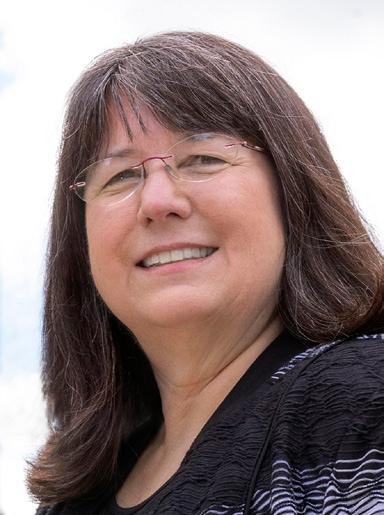
“I expect to see a vibrant, welcoming and growing institution that has a variety of well- supported, high-demand programs, an expanding research portfolio and strong community partnerships,” she said. “I also expect to see more students getting a college credential in central Arkansas. Christina Drale

arly on, Harding University looked like a bad bet to survive. From humble beginnings in 1924 with 75 students, Harding resulted from the merger of two small junior colleges in Morrilton. As a Southern drought raged and with no wealthy philanthropists to provide support, the school did not seem long for closure.
Survive and thrive it did, however. A century after its founding, Harding boasts a bustling campus with a student population nearing 5,000 that calls Searcy home for four years and often longer.
“Part of this 100-year celebration is a reflection on the sacrifices and the values that drove the institution to start,” said Michael Williams, Harding president, who has lived more than some of that history as a Harding graduate and former administrator, “but it’s not just a year of nostalgia; it’s a year that says, ‘What do the next 100 years need to look like?’ so we’ve been going through a very careful collaborative process to put together a new mission statement, a new vision statement, a set of core values and a strategic vision document that shapes the next 100 years.”
By Steve Wilcox
A private institution affiliated with the Church of Christ, Harding sees itself as very much a part of the educational fabric in Arkansas. As such, Williams said Harding wants to be a contributor in ways that range from bringing more talent to the state to making its considerable energy and brainpower available to assist with statewide projects.
“One of the things we want to continue to do is partner with Arkansas leaders as they think about the future of our state and how Harding can be a contributor. We want policymakers and leaders, as they think about challenges, to call Harding first,” he said. “We’d like them to say, ‘How can we partner together to think about a robust future for all of us?’ All of our futures are intertwined, and the quicker we get to that moment where we know that our futures are intertwined, the sooner that good collaboration can produce better solutions.”
One way the university is helping to ensure its vision finds activation in the real world is through programs that not only target students’ academic and professional aspirations but also serve Arkansas communities. The university’s new digital forensics lab is such an example.

“It’s a huge opportunity for the institution and for the state as we seek to equip students and graduates with the skills they need to help us ensure a safe and secure nation and state,” Williams said.
The digital functionality in the forensics lab can equip law enforcement with skills and capabilities it has not had before. In many cases, local law enforcement does not have the bandwidth to pursue all the evidence that is readily available in a case.
“The digital forensics lab will be a great training ground for graduates in cyber security, but part of the mission of the lab will be outreach to smaller communities where they’ll actually contract with us to do some of the investigative work,” Williams said. “Our goal is to have better-prepared graduates and to help smaller communities in pursuing and investigating cases to fair and appropriate outcomes.”
For Williams, the lab is symbolic of what he hopes is an even richer part of the university’s future.
“We’re celebrating 100 years, but as we look toward the future, part of our relevancy is in how we can partner with policy makers and state leaders as we address societal challenges. How can Harding pivot and partner with state leaders to say, ‘We can address some of these issues together, collaboratively’? This is just a great symbol of how that can really be a win-win for everyone in partnership.”
Another growing program that speaks to increased need not only across Arkansas but the nation as a whole is occupational therapy.
“There are four other occupational therapy programs in the state, but there’s room for all of us,” Williams said. “We need more occupational therapists, so it’s not like we’ll be competing. The one caveat that we think will be attractive about the Harding program is that the other curriculums are doctoral programs and this offering is going to remain a masters degree program.”
Occupational therapists, whether they graduate from a doctoral program or a masters degree program, are pursuing the same types of jobs. At Harding, occupational therapy is a twoyear program, rather than three years, so there are fewer costs involved for students, and graduates are in the marketplace one year earlier.
“We believe this program will be a great complement to the other four programs in the state and will create more access and a more affordable way to get into the field,” Williams said.
The future of economic development in the state is about talent acquisition, Williams said, noting that 75 percent of Harding’s student body comes from out of state, and many of the university’s faculty members are recruited from outside Arkansas. A significant percentage of Harding graduates stay in Arkansas to live and work.
“We did a study for our nursing school, and 35 percent of our students are from Arkansas, but 50 percent of our alumni work in Arkansas,” Williams said, “so that’s a net gain of 15 percent of our nursing school graduates serving in a very high-need profession. I grew up in Ohio, and my wife is from West Virginia. We came to school here. We raised our family here. We’ve got extended family who have moved here as the result of us moving here, so I know firsthand that Harding is a net importer of talent in the state.”
Williams and his team see the talent acquisition dance play out virtually every day. It is just part of
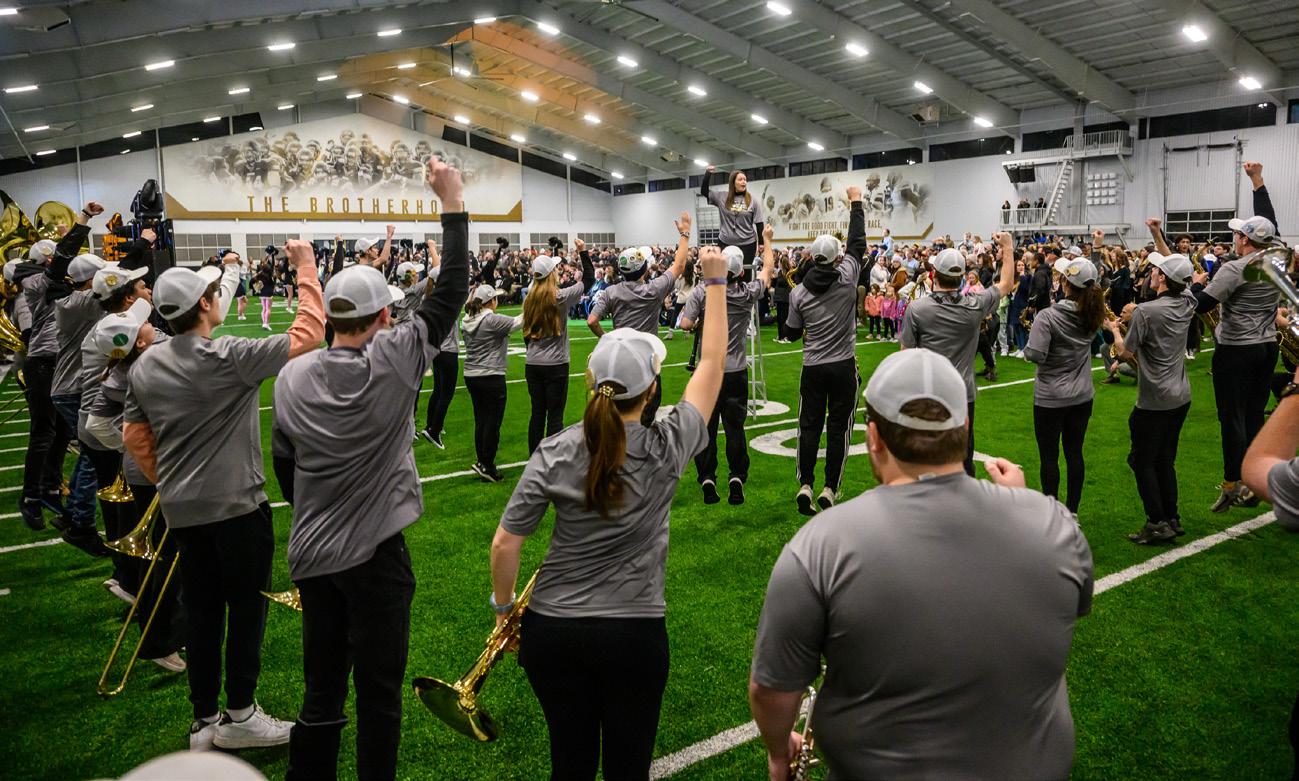
the university effort to be open and attractive to students looking for a Christian environment in higher education.
“I literally walked into the office from the lobby to take this phone call, and I was meeting with a family whose daughter is going to be a freshman, and they’re from Pittsburgh,” he said. “We hope she’ll have a rich experience, and if she does an internship in Little Rock … she gets an offer in Little Rock, who knows? She’s more likely to live in Little Rock post-graduation than going back to Pittsburgh. That’s where we think we fit into the equation of helping the state of Arkansas.”
A lot of things are going right at Harding University in its centennial year, including a football team that is
“One of the things we want to continue to do is partner with Arkansas leaders as they think about the future of our state and how Harding can be a contributor.”
— Michael Williams, Harding president
coming off a Division II national championship and is rated No. 1 in 2024 preseason polls to repeat that success.
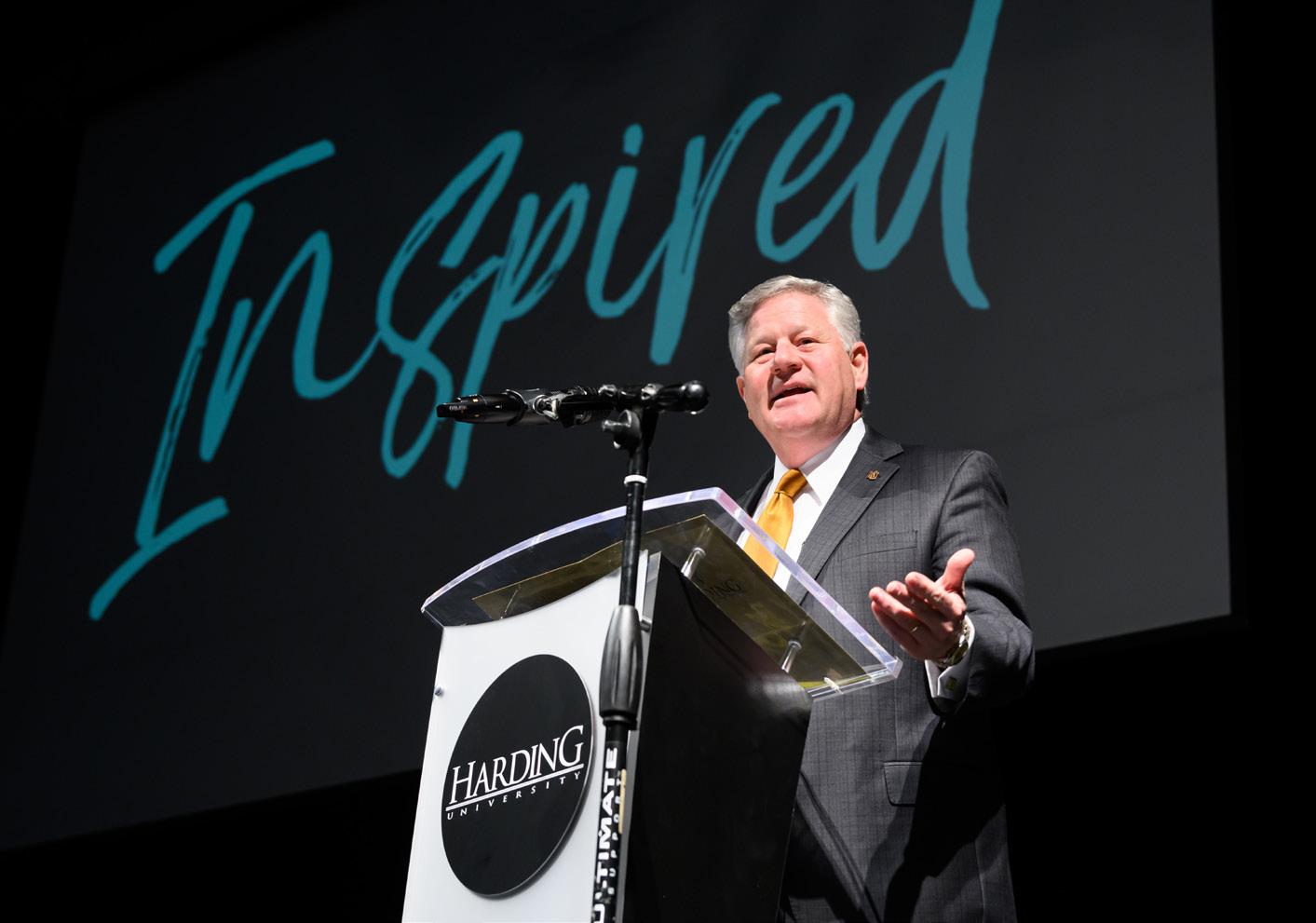
“How about it?” said a university president who knows that is rare icing on the academic cake. “What a magical year — a centennial year and a national championship in football. It was a great way to rally the Harding Nation around the country to get behind the Bisons.”
Williams said Harding has 64,000 living alumni across all 50 states and 103 nations around the world.
“There are some that will stay in Arkansas, but there are many who will go global,” he said. “This is a different kind of institution in terms of our geographic footprint and where our graduates go to pursue their careers. This has been a hallmark of Harding for a long time with alums everywhere. It’s part of the reason why this family from Pittsburgh stumbled upon Harding. Someone from their church went to Harding, and this girl went to high school with two kids that are at Harding, and they’re having a great experience. She came to visit and said, ‘That’s where I want to go to school.’ It’s a pretty robust family.”
As a Church of Christ school, Harding leans heavily into its commitment to integrating faith and rigorous academic training. It is an institution that really wants to know how faith impacts the learning initiative each day as it looks at the next 100 years.
“A lot of our focus is born out of this Christian mission. Sometimes we define that in too small a way. We’re trying to expand on it,” Williams said. “Yes, as part of a Christian university, students take courses in theology. We have a lofty code of conduct. We have a university chapel. I like to define it more broadly that we produce graduates who take their God-given horsepower, and regardless of their discipline or profession, they run toward brokenness. The world has lots of challenges, so how can we produce graduates with a missional, empathic heart? Whether they’re an accountant, engineer, architect or elementary school teacher, how can they have a missional perspective where they move into a community and they are part of the solution?”

The goals are imposing for any university looking to survive and thrive in a new world order that questions not only moral values but dollars-and-cents educational value. Harding is banking on meeting that challenge with a powerful legacy of commitment to faith while striving for the higher ground and building a network of friends and alumni who firmly believe in the mission. Even as the school reflects on its milestone 100 years, there is no doubt Harding University is just finding its stride.

100%
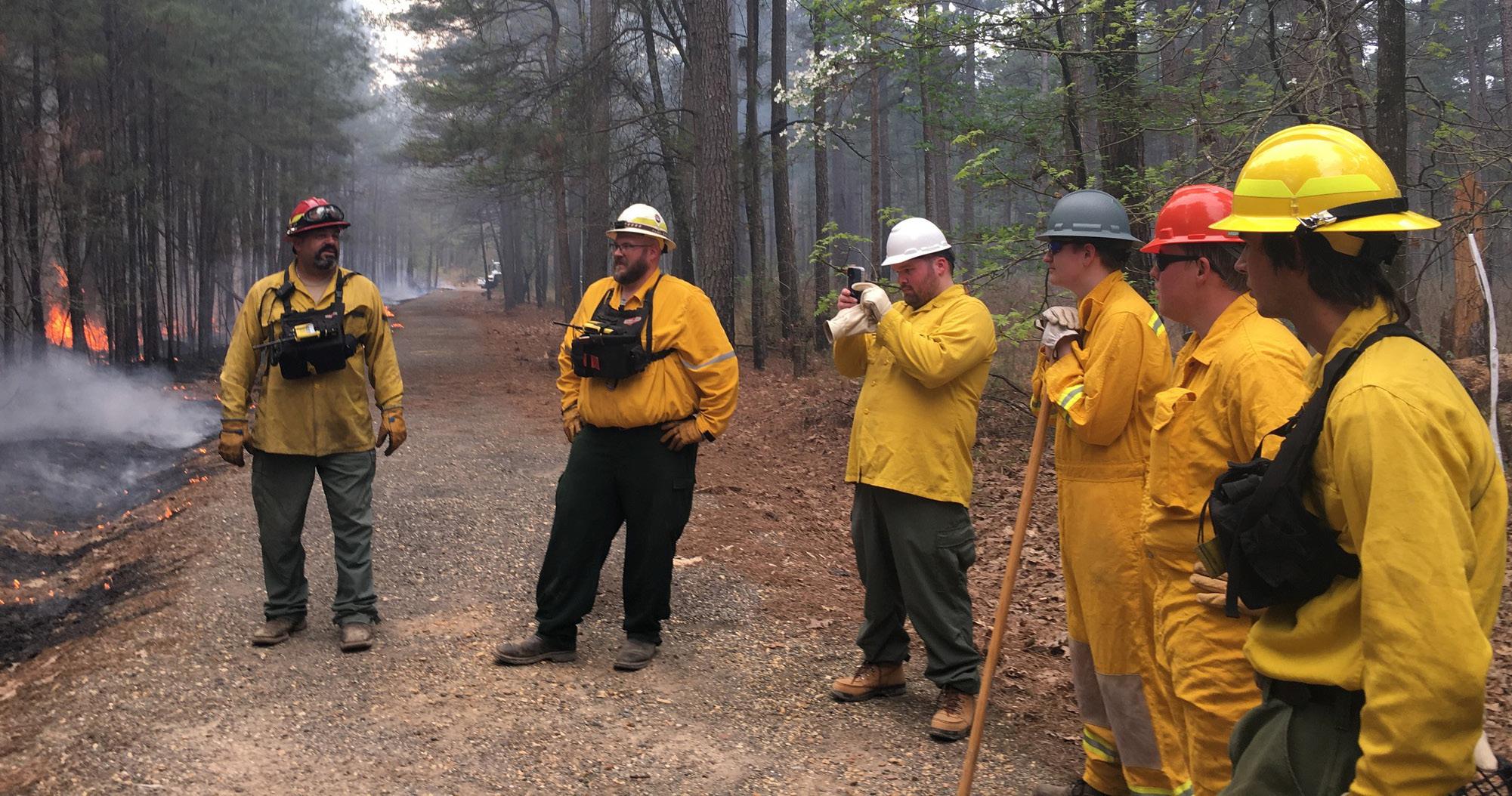
Arkansas is home to collegiate curricula that helps deliver a surprising economic punch yet still flies under the public radar.
One such example can be found at the college of forestry, agriculture and natural resources at the University of Arkansas at Monticello, the only school of its kind in the state. The college includes the Arkansas Center for Forest Business and the Arkansas Forest Resources Center, part of the University of Arkansas System Division of Agriculture and a UA System Center of Excellence, as well as the system’s spatial analysis lab. The college will soon add the Arkansas Forest Health Research Center.
Michael Blazier is the dean of the UAM forestry college and serves as director of the Arkansas Forest Resources Center on the Monticello campus. While much attention in recent years has been devoted to two-year workforce development programs that deliver higher-than-average starting salaries, Blazier oversees programs that are churning out foresters, conservationists, food scientists and others who make roughly twice the median household income in Arkansas.
By Mark Carter
$78,500, according to data from Lightcast. The salary range for these professions ranks in the 75th percentile for Arkansas. Blazier, who recently returned from a forestry conference in Finland, told Arkansas Money & Politics that degrees offered by the college are in high demand. The professions they feed, after all, involve working outdoors as much as in an office, he said.
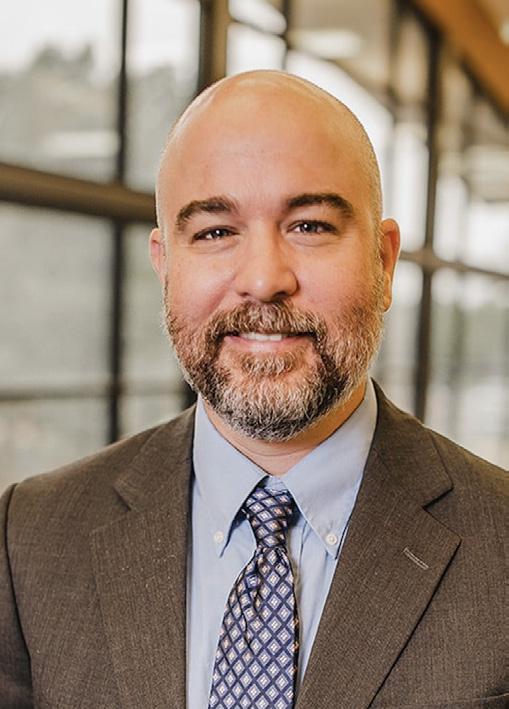
The college has almost 28,000 former students currently employed in jobs related to forestry, agriculture and natural resources who make an average annual salary of just under
The college offers two- and four-year degrees in forestry, wildlife conservation, environmental science, geographic information systems, animal science (including a pre-veterinary track), plant and soil science, agribusiness, and land surveying, as well as graduate degrees in forest resources, waterfowl management and forest business.
Along with activities that depend on healthy forests, such as hunting, hiking, camping, and surveying and construction, forestry and agriculture make up about 25 percent of the Arkansas economy, Blazier said. The direct contribution of forestry alone to the state is substantial, according to data included in a 2023 report on the industry’s economic impact by state and released by UAM and the Center for Forest Business.
Arkansas ranks second in the nation in forestry contribution to total gross domestic product at 4.1 percent ($6.14 billion), the report states. More than 50,800 Arkansans were directly or indirectly employed in the industry, contribut-
ing a labor income of more than $3.1 billion.
“It’s an honor and privilege that we’re providing the workforce for these industries,” Blazier said. “Our faculty conduct research and outreach in a wide array of topics, such as wetlands conservation, forest management, wildlife ecology, forest economics, agronomy and land surveying, and they incorporate their leading-edge knowledge of these topics into the classroom.”
Even in a state as oriented to the outdoors as Arkansas, UAM’s forestry college remains something of a hidden gem.
“I’m willing to shout about us from the highest mountaintop to get the word out about the great careers we can get folks started on,” Blazier said, adding that UAM’s location at the intersection of the Arkansas Delta and the piney woods of south Arkansas makes for an ideal location from which to teach.
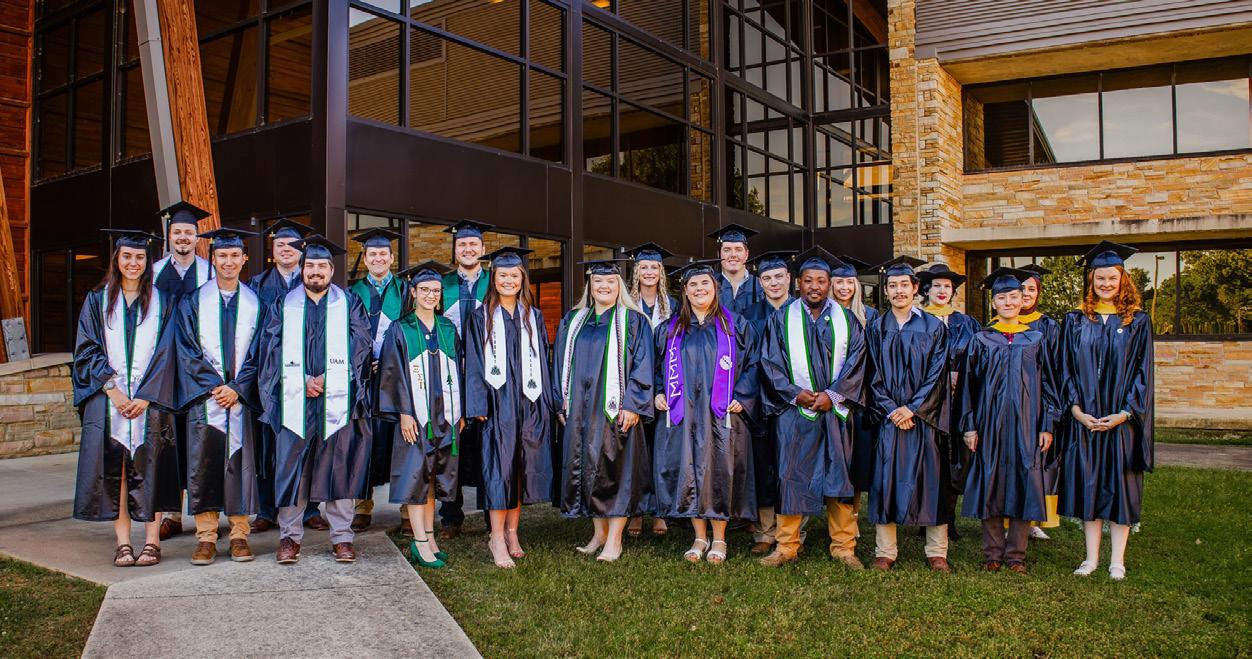
“As such, a short drive from campus gives our students exposure to pine and bottomland hardwood forests, cow-calf operations and row crops,” he said. “Our campus also includes a 200acre farm on which we manage cow-calf and sheep herds and 400 acres of pine and hardwood forests, and we teach a lot of labs in those areas. The outdoors truly is your classroom here.”
Blazier spoke further with AMP about the college and the future Arkansas Forest Health Research Center, the growth of forests in the U.S., the diversity of Arkansas forests, the impact of conservation practices, the dreaded (and invasive) emerald ash borer, and more.
AMP: Tell us about securing the grant for the Arkansas Forest Health Research Center and its expected impact. How will it help ensure future generations can rely on healthy forest ecosystems?
Blazier: Its capabilities will be a huge step forward in the evolution of our campus and the services we can provide to the state, and it could not have happened without widespread support in the Arkansas legislature and in Gov. [Sarah Huckabee] Sanders’ office. Forestry has a large direct impact to the Arkansas economy at about $6 billion per year, and there are a lot of recreation activities, notably hunting, that depend on healthy forests and contribute about $10 billion per year to the state’s economy.
There’s been a growing recognition in state leadership that healthy forests are a foundation to a strong state economy. In 2022, the state authorized recurring funding for the creation of the Arkansas Center for Forest Business, which is now a team of six economics experts housed in the college who provide support for forest businesses and landowners statewide.
The Arkansas Forest Health Research Center will have a parallel mission of safeguarding our state’s forestry economy through monitoring of insects and diseases affecting our forests and conducting research to mitigate those threats. Our state leadership recognized that Arkansas lacked a research facility of this nature and were dependent on labs in other states when we have forest health crises.
Once constructed, this facility will be the best of its kind in
the western half of the Southeast and equivalent to the top-end forest health labs in Alabama and Georgia. A high level of credit for the funding must go to Rep. Jeff Wardlaw [R-Hermitage] and Sen. Ben Gilmore [R-Crossett], who recognized the importance of such a facility to the state and built support within the legislature and governor’s office for its funding.
AMP: How many students are enrolled in the college, and does it attract students from other states?
Blazier: We have 220 undergraduate and graduate students in our college. As the state’s sole university that offers four-year degrees in forestry and land surveying, we draw in students from across the state. Since the University of Arkansas at Monticello offers in-state tuition for all states that border Arkansas and has low tuition rates, we have students in all our majors from Louisiana, Mississippi and Texas.
Two years ago, we adopted a hybrid approach to our land surveying degree, so students can take all its courses either online or in-person. Since we made that adjustment, we’re getting more students from northern Arkansas and Louisiana, which requires a Bachelor of Science in land surveying for licensure but has one campus that offers the degree in the southeastern part of the state.
Because of how robust agriculture is in the eastern half of the state, we draw a lot of our agriculture students from that part of the state.
Our pre-vet program has a vet school placement rate of about 75 percent, so we’re getting students from around the state for that program, as well. Our graduate programs draw students in at a national and international scale. We have two graduate certificates, which are completed in two semesters beyond the bachelor’s degree. Our waterfowl graduate certificate is accompanied by scholarships that allow students to live, work and study at the Five Oaks Duck Lodge near the town of Humphrey, and every year, we have applicants from across the country for that program.
Our graduate certificate in forest business is offered entirely in hybrid format and has one day per week evening classes that can be attended online or in-person. It was designed to help people working full-time advance in their careers with increased
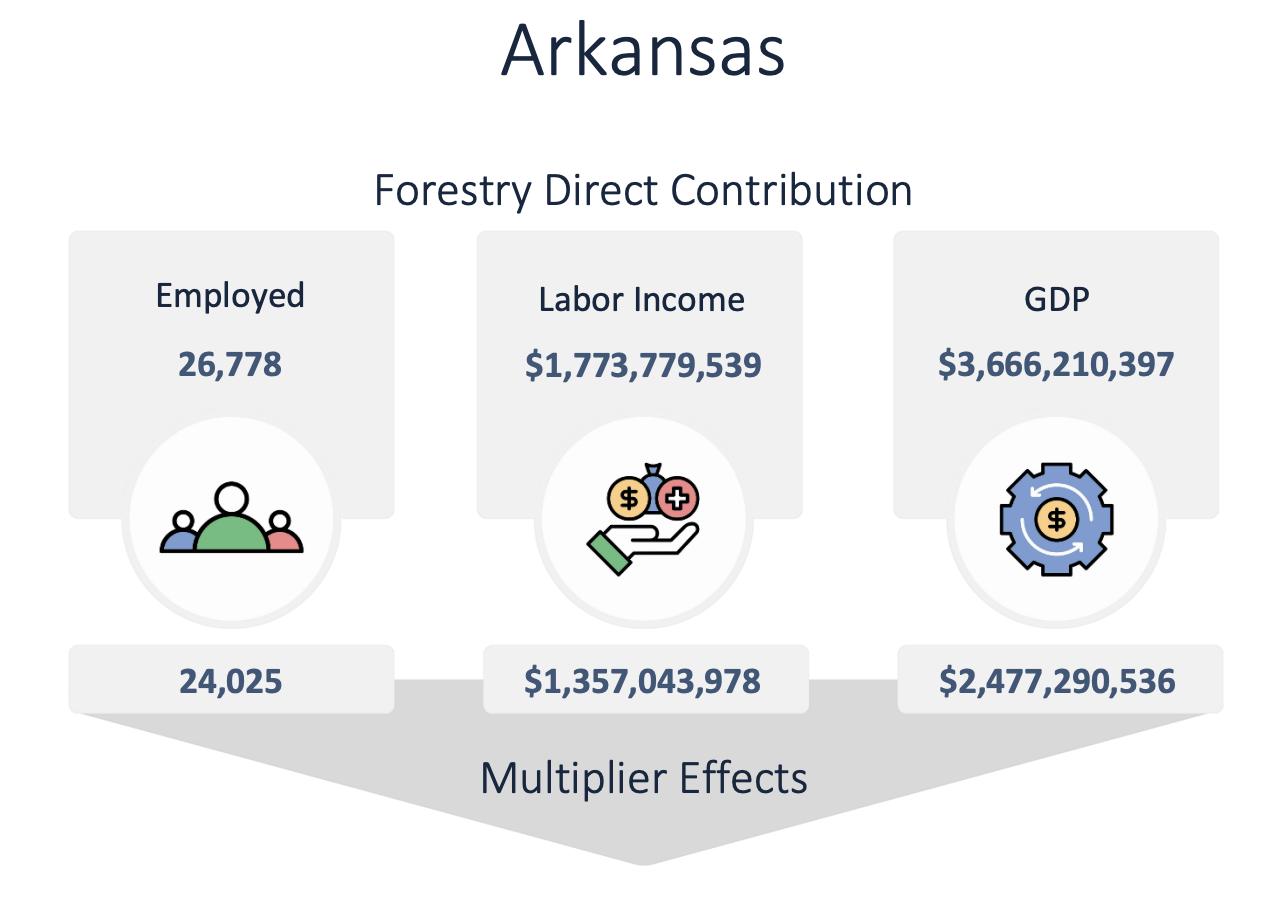
forest business and personnel management acumen, and we have students from across the state in that degree program. Our master’s degree in forest resources currently has students from across the U.S. and five different countries.
AMP: Why is the forestry industry so strong here?
Blazier: The short answer is that the Natural State is blessed with abundant natural resources. We have diverse forest ecosystems, all of which have valuable timber, wildlife habitat and water resources.
In northern Arkansas, we have upland, mixed hardwood forests; in central and southern parts of the state, we have pine forests; and in the eastern part of the state, we have bottomland hardwood forests. All these forests support industries for traditional forest products, like sawtimber, and they’re valued from around the country for outdoor recreation.
We haven’t had large losses of forests from urban expansion like other states, and our central location within the U.S. and close proximity to the robust population growth occurring in Texas are advantageous in marketing and transporting our forest products.
AMP: One of the college’s fact sheets reports that U.S. forests are getting larger. In Arkansas, annual forest growth exceeds removals by 50 percent for pine and 70 percent for hardwoods. Why is that?
Blazier: That’s the expansion in forest acreage and biomass that’s been occurring over the past few decades. In Arkansas, for example, we could cover the entire state of Delaware with the number of forests we’ve added over the past 20 years. Increases in forest area have been happening predominately on idled farmland.
Some of that has been driven by landowners who don’t have generations coming after them to keep up family farms, leading them to plant the property
in trees. Some of that has been driven by conservation-focused federal programs such as the Wetland Reserve Enhancement Program of the USDA Natural Resources Conservation Service, which provides cost match payments to foster planting of native hardwood species on retired agriculture land.
The increase in forest biomass is driven by tree breeding programs that have improved the hardiness and growth rates of the trees we plant, and some of the increase has come from fewer markets for small-diameter trees that were once harvested to provide pulp for papermaking. As people shifted from reading newspapers and magazines in print toward electronic media, paper mills have curtailed production or closed entirely. Helping with that situation is a high priority of our college’s faculty.
AMP: If forests cover 29 percent of the U.S. today, how much of the landscape was covered with trees before the Europeans arrived? How important have conservation efforts been? Blazier: If we look at the time period immediately prior to European exploration and colonization, it is estimated that about 50 percent of the United States was covered in forests.
I’d be remiss if I didn’t mention that those forests were under active management by Native Americans, who were very adept at using fire to foster improved hunting, foraging and navigation of forests.
We’ve actually experienced a substantial increase in forestlands since the beginning of the 20th century, and the profession and practice of forestry has been integral to that. There was a prevailing belief from the earliest European colonists that the forests of the country were inexhaustible, so they’d clear forests without regard for replanting and move ever onward to different parts of the country for new forests to clear.
By the late 1800s, it was recognized that management was needed to make sure there would be forests in the future. Yale University established the first forestry program then, bringing in knowledge from forestry schools in Europe. One of the destinations they brought their students every year was southeast Arkansas. There was a fast expansion of forestry schools and the forestry profession in the early 20th century, which fostered regeneration of forests and sustainable management across the country.
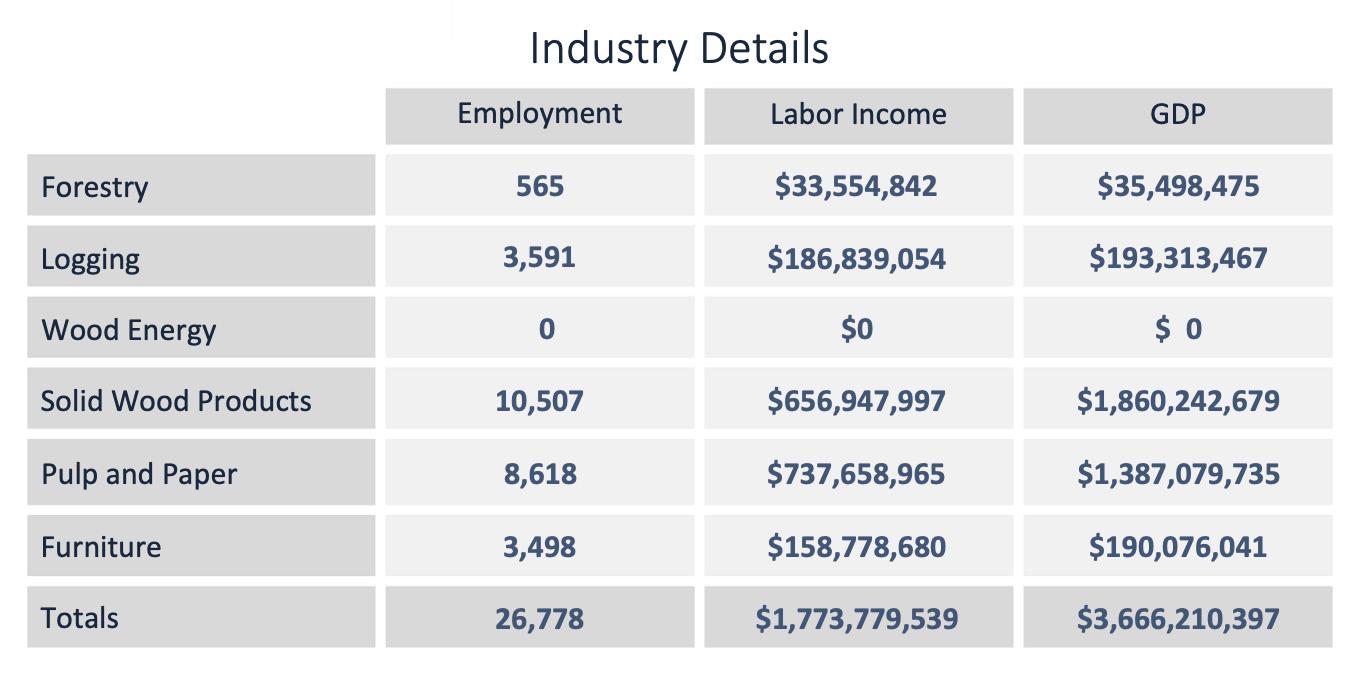

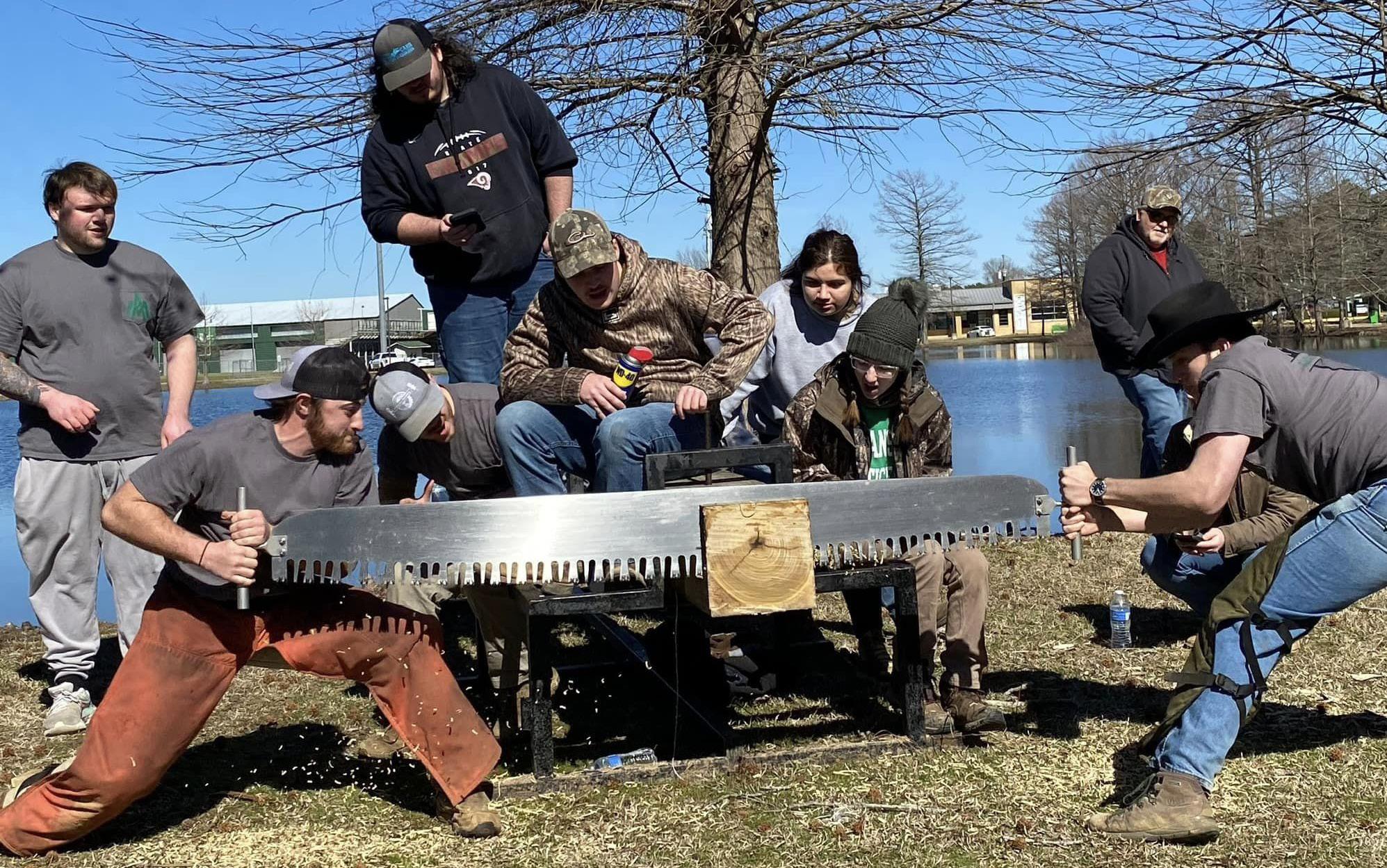
Tax structures that incentivized people to clear their forests to save on their taxes were changed, as well, which also helped with maintaining forestlands. The invention of a process to make paper from southern pines in the 1920s and a fast explosion in home building after World War II were also influential in promoting more forestlands in the Southeast. In short, the profession of forestry in the United States was integral to conservation of its forests and remains so today.
AMP: The pine tree is an indelible part of the state brand — it is the state tree, after all — but Arkansas forests have more oak and hickory than pine. How important is diversity in the forest?
Blazier: I suspect for someone living in the pine-dominated southern parts of the state, that may come as a surprise. I’ve always been amazed at how sharp the change is in Arkansas from pinedominated forests of southern Arkansas to hardwood-dominated forests of northern Arkansas. When you drive into Little Rock from the south, that change is almost instant. I always tell our new faculty that the diversity of Arkansas forest ecosystems provides abundant opportunities for forestry research and teaching.
AMP: What goes into maintaining a healthy forest and rehabilitating those that are not healthy?
Blazier: There are always ways forests can be rehabilitated. Because they’re long-lived, they’re impressively resilient. It may be counter-intuitive, but it’s a lack of disturbance that can make forests unhealthy. Just think of how forests would grow in the millions of years before humans showed up. Fires would be lit by lightning strikes and burn for untold acreage before going out. Consequently, forests adapted to fires and other disturbance agents like ice storms and high winds.
For the university’s forestry students, Blazier said the outdoors is their classroom.
In forestry, all our practices are designed to mimic natural phenomena to keep forests healthy. If the only management done for forests is protecting them from fire, the forests grow thick, the trees get sicker and more vulnerable to pests because they’re competing for water, light and nutrients, and there’s barely any plants under the trees for wildlife forage and cover because of the high level of shade.
Partially harvesting, or thinning, forests in that scenario will make the remaining trees healthier by providing more light, water and nutrients for them. The better light to the ground layer allows plants to thrive to the benefit of wildlife. We can also burn forestlands in a controlled way, much like our Native American forebears, and recycle nutrients to the soil and provide more light. Those are just a couple of examples of how to improve forest health through active forest management; there are many others.
The agents that can turn forests unhealthy to the point of no return are typically invasive pests, so those are the most worrisome. People have unfortunately introduced insects, diseases and plants from far outside our native ecosystems, and they have highly detrimental effects on our forests. For example, we first noticed the emerald ash borer in Arkansas about 10 years ago.
This insect comes from Asia, and in our forests, it has no natural factors to keep its population in check. It likely came into Arkansas by “hitching a ride” on firewood moved by campers from another state it had already infested.
Because its population grows unchecked, it’s able to kill a high number of ash trees in our forests. We no longer recommend planting ash trees in Arkansas because they would eventually be killed by emerald ash borers until we can find a way to control them. Conducting research to suppress such invasive pests is part of the mission of our Arkansas Forest Health Research Center.
A look at a few of the current ongoing construction projects in the state related to education
Owner: Little Rock School District
Project location: Little Rock
Valuation: $145.6 million
Target completion date: Aug. 1, 2025
Architect: Lewis Architects Engineers, Little Rock
Construction manager: Baldwin & Shell, Little Rock
Electrical/mechanical engineer:
Lewis Architects Engineers, Little Rock
Structural engineer:
Greeson, Gatlin, Gangluff & Associates Engineers, Little Rock
PINE BLUFF HIGH SCHOOL (new school)
Owner: Pine Bluff School District
Project Location: Pine Bluff
Valuation: $74 million
Target completion date: June 19, 2026
Architect: Lewis Architects Engineers, Little Rock; Cromwell Architects Engineers, Little Rock
Construction Manager: East Harding, Little Rock
Owner: North Little Rock School District
Project location: NLRSD East Campus
Valuation: $68 Million
Target completion date: TBD
Architect: Taggart Architects, North Little Rock
CENTRAL HIGH SCHOOL
(new science building and field house)
Owner: Little Rock School District
Project location: Little Rock
Valuation: $60.6 million
Target Completion Date: Sept. 1, 2025
Architect: Crafton Tull, Rogers; WER, Little Rock
General contractor: Clark Contractors, Little Rock
CENTRAL JUNIOR HIGH SCHOOL (expansion)
Owner: Springdale School District
Project Location: Springdale
Valuation: $54 million
Target Completion Date: Q4 2024
Architect: Architecture+, Fort Smith
Construction manager: Baldwin & Shell, Springdale
SOUTHWEST JUNIOR HIGH SCHOOL (expansion)
Owner: Springdale School District
Project Location: Springdale
Valuation: $47 million
Target Completion Date: Q4 2024
Architect: WD&D, Little Rock
Construction manager: Baldwin & Shell, Springdale
BATESVILLE SOUTHSIDE HIGH SCHOOL (expansion)
Owner: Southside School District
Project location: Batesville
Valuation: $46.9 million
Target Start Date: May 31, 2026
Construction Manager: Nabholz, Jonesboro
BATESVILLE HIGH SCHOOL
(new cafeteria and performing arts center)
Owner: Batesville School District
Project Location: Batesville
Valuation: $46.6 million
Design Publish Date: May 27, 2023
Target Start Date: Aug. 29, 2025
Architect:
Jackson Brown Palculict Architects, Little Rock
General Contractor: Nabholz, Jonesboro
UA ANTHONY TIMBERLANDS CENTER
Owner: University of Arkansas
Project location: Fayetteville
Valuation: $37.9 million
Target completion date: June 25, 2025
Construction manager: Nabholz, Rogers
HOT SPRINGS WORLD CLASS HIGH SCHOOL (Phase 1 – new school)
Owner: Hot Springs School District
Project Location: Hot Springs
Valuation: $37.5 million
Target Start Date: Fall 2025
Architect: French Architects, Hot Springs
Construction Manager: Hill & Cox Corp., Hot Springs
ATU FERGUSON STUDENT UNION
Owner: Arkansas Tech University
Project Location: Russellville
Valuation: $34 million
Target completion date: January 2026
Construction Manager: Kinco, Little Rock
NLRHS OLE MAIN RENOVATIONS
Owner: North Little Rock School District
Project location:
North Little Rock High School campus
Valuation: $30 Million
Target completion date: TBD
Architect: Taggart Architects, North Little Rock
LISA ACADEMY HIGH SCHOOL - ROGERS
Owner: LISA Academy Public Charter Schools
Project location: Rogers
Valuation: $22 million
Target completion date: Not listed
Architect: Lewis Architects Engineers, Little Rock
Construction manager: Baldwin & Shell, Little Rock
Electrical/mechanical engineer:
Lewis Architects Engineers, Little Rock
Structural engineer:
Greeson, Gatlin, Gangluff & Associates Engineers, Little Rock
STUTTGART HIGH SCHOOL
(arena and ball fields)
Owner: Stuttgart School District
Project location: Little Rock
Valuation: $20 million
Target completion date: Not listed
Architect: Lewis Architects Engineers, Little Rock
Construction manager: Nabholz, Conway
NLRSD INDOOR SPORTS COMPLEX
Owner: North Little Rock School District
Project location:
North Little Rock High School campus
Valuation: $18 Million
Target completion date: TBD
Architect: Taggart Architects, North Little Rock
UACCM NURSING AND SCIENCE CENTER
Owner: University of Arkansas
Community College at Morrilton
Project location: Morrilton
Valuation: $16 million
Target completion date: Fall 2025
Architect: Crafton Tull, Conway
Construction manager: Nabholz, Conway
ALICE WALTON SCHOOL OF MEDICINE
Owner: Crystal Bridges Museum of American Art
Project Location: Bentonville
Valuation: Not listed
Target completion date: Sept. 1, 2025
Architect: Polk Stanley Wilcox, Little Rock
General Contractor:
Crossland Construction, Springdale
Civil/Consulting Engineer: McClelland Consulting Engineers, Fayetteville
Mechanical/Electrical Engineer:
Henderson Engineers, Bentonville
Structural Engineer: Martin/Martin Consulting Engineers, Bentonville
Landscape Architect: Outdoor Spatial Design, North Charleston, S.C.
Source: Firms, Dodge Construction Network

WHO ARE THE STATE’S FUTURE ICONS IN 2024? Who are those leaders in Arkansas poised to do big things? AMP readers told us who they thought represented the future of Arkansas business, politics and even culture.
They could be up-and-comers, business executives or owners already established, or they might be industry veterans who have switched fields. They all share one thing in common, though — from them, big things are expected. This year’s Future Icon honorees run the gamut of Arkansas industry from banking to bullfighting, and that’s no bull.
We’re proud to highlight these exceptional Arkansans.
CBy Dwain Hebda
all him driven, call him ambitious, call him an overachiever, but George Friedmann, principal and vice president of development at Moses Tucker Partners in Little Rock, is not what most people would call a typical 29-year-old.
Friedmann, who joined the esteemed development company in 2017, has made the most of his time with the firm, assisting with more than $300 million in commercial transactions and development projects. Among them are the active $36 million revitalization of the historic Boyle Building in downtown Little Rock and the $70 million multifamily development, the Resort at Rockwater, a soon-to-be luxury riverfront apartment community in North Little Rock.
He also found time to squeeze in an executive Master of Business Administration degree around such deals, earning it from the University of Arkansas in Fayetteville last summer. He rounded that out with making partner in January and today serves as MTP’s vice president of development.
None of that is something anyone might guess when talking to the softspoken Little Rock native who is quick to share the credit for his accomplishments, particularly with his boss and second-generation CEO Chris Moses.
“For anyone wanting to succeed in business, I recommend finding a mentor who can be both a professional guide and a good friend,” he said. “Chris has been that mentor for me. He has had a strategic plan and mission in place ever since he took over as CEO of the company. It’s been incredibly helpful learning from a leader like that, especially when it comes to overcoming obstacles. You have to suit up, show up, and be ready to learn.”
Friedmann said he first developed an interest in real estate during high school, an interest that intensified during his undergraduate years at the U of A, where he earned a degree in business with an emphasis in finance.
“Impactful projects coming to life throughout Little Rock and across Arkansas have always caught my eye, and that is what initially drew me to commercial real estate,” he said. “The opportunity to interact with diverse businesses and leaders and to help them navigate creative real estate solutions that benefit stakeholders on a local and state level is something that really excites and energizes me.”
He started at Moses Tucker Partners as an intern in college, then came aboard full-time right after graduation, jumping into the deep end of brokerage and new projects. While he makes it look easy now, at the start, he was like any other hungry new employee, eager to make his mark while learning all he could about his chosen profession.
“Coming out of college with minimal real estate experience was tricky at first. Understanding the nuts and bolts and different types of asset classes presented an initial learning curve,” he said. “Commercial real estate is a dynamic industry with many components, but it didn’t take long to grasp the basics.”
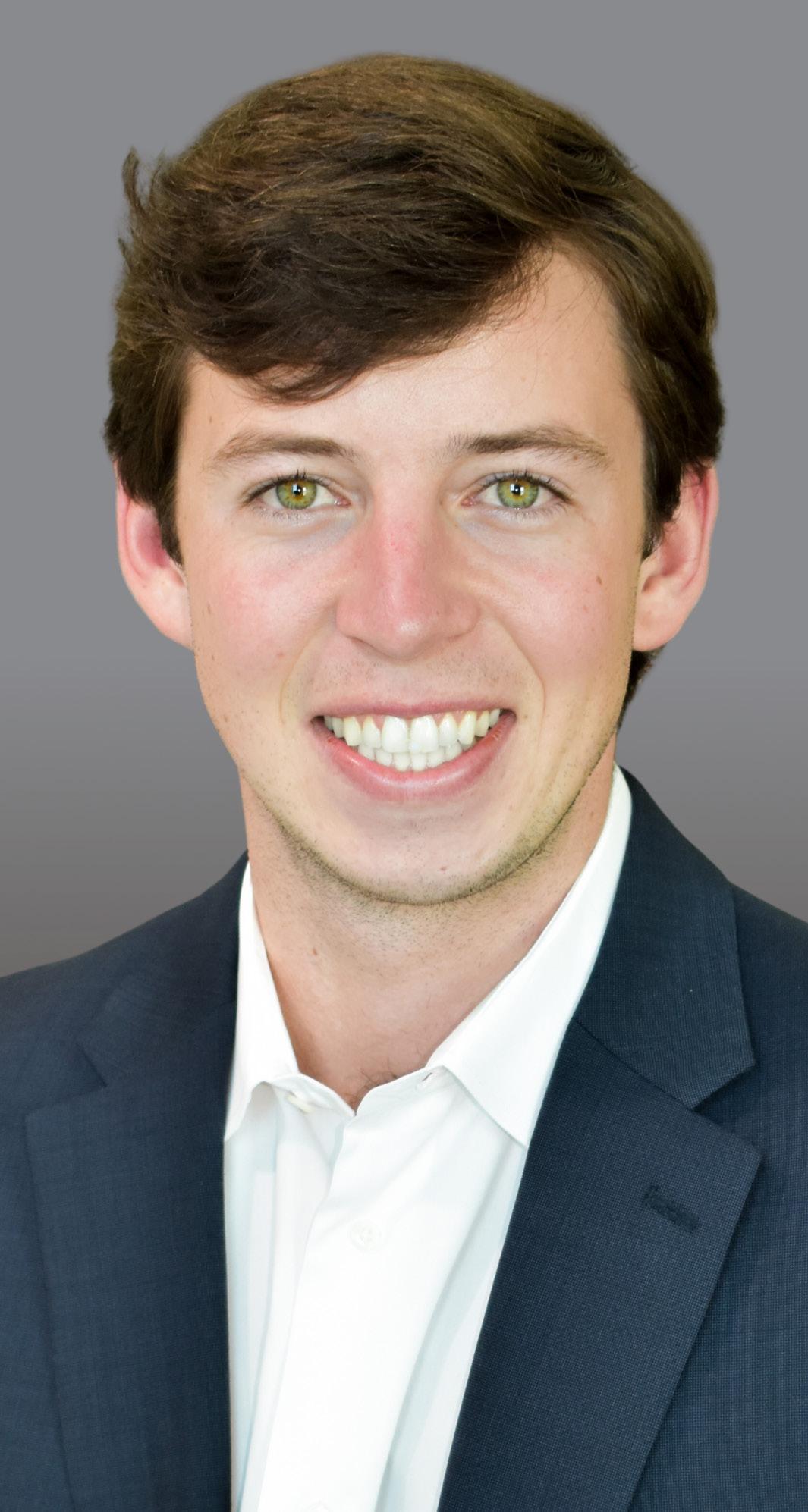
Friedmann has not had much time to slow down and reflect on his success as he plays a lead role in one of the more conspicuous renovation projects in all of downtown, the Boyle Building, now the Bob R. Brooks Jr. Justice Building, the soon-to-be home of the state attorney general’s office.
“The historic Boyle Building has been vacant—and an eyesore in the heart of downtown—for 15 years,” he said. “The opportunity to restore the building to its former glory is very exciting. I believe the work we’re doing will not only benefit the building but also transform and spark additional development along Capital Avenue. This is a project that many people have their eye on, and I’m proud to be a part of.”


Arkansas Capital Corp.
Adriana Fuentes

Archila is vice president of community development for Arkansas Capital Corp. in Little Rock. Born and raised in San Salvador, El Salvador, Fuentes Archila moved to Arkansas to complete a degree in business administration at Harding University in Searcy and a master’s degree in public relations at the University of Arkansas at Little Rock.
In her role as vice president of community development at Arkansas Capital, she assists minority entrepreneurs in obtaining funding and also implements a new microlending program.
Prior to joining the team at Arkansas Capital, she was a business consultant at the Arkansas Small Business and Technology Development Center in Little Rock, where she helped minority entrepreneurs to start and grow their businesses.
Fuentes Archila serves on the boards of ASBTDC and the Southern Capital Project, and she is a mentor at Entrepreneurship for All.
gross revenues of $100,000 to large enterprises with revenues exceeding $50 million. Ausley said he gets the most reward from helping small businesses because their joy and successes are much more visible.
More than 12 of his 15 years in banking have been spent at Arvest. Throughout his career, Ausley consistently demonstrated strong leadership skills and a keen understanding of the financial industry. He has successfully managed various lending and retail banking teams, which shows his ability to drive results and foster growth within his teams and the organizations he serves.
His leadership extends to his local community, where he is president of the Bismarck School Board. He has a bachelor’s degree in agricultural business marketing and management from the University of Arkansas in Fayetteville.
University of Central Arkansas
Garland County Prosecutor’s Office
police officer, which marked a significant milestone in her career and showcased her ability to handle the most challenging and critical cases. Bornhoft’s unwavering commitment to her community and her extraordinary legal skills continue to make her a prominent figure in Arkansas’s legal landscape, shaping her as a future icon in the field.

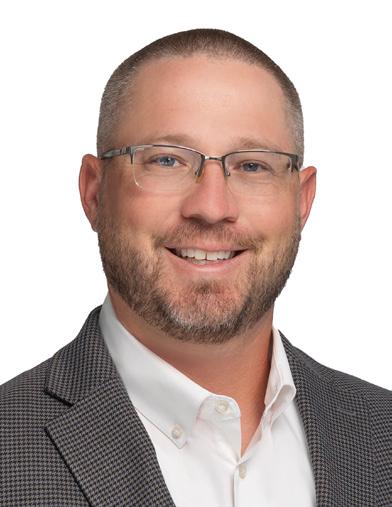
Brett Ausley, commercial loan manager at Arvest Bank, leads the bank’s new focus on agricultural lending in the central Arkansas market. It is a natural fit for someone with a passion for helping small business people and whose family owns and operates Ausley Family Farms and Ausley Family Premium Beef. Ausley Family Premium Beef provides Arkansas-grown wagyu and wagyu-cross beef to consumers across the country. The ranching operation consists of 560 acres and 150 head of cattle.
Before being appointed to his new position with Arvest, Ausley was already a top lender at the bank and oversaw a wide range of lending and deposit banking relationships for businesses of varying sizes. He worked with small companies with annual
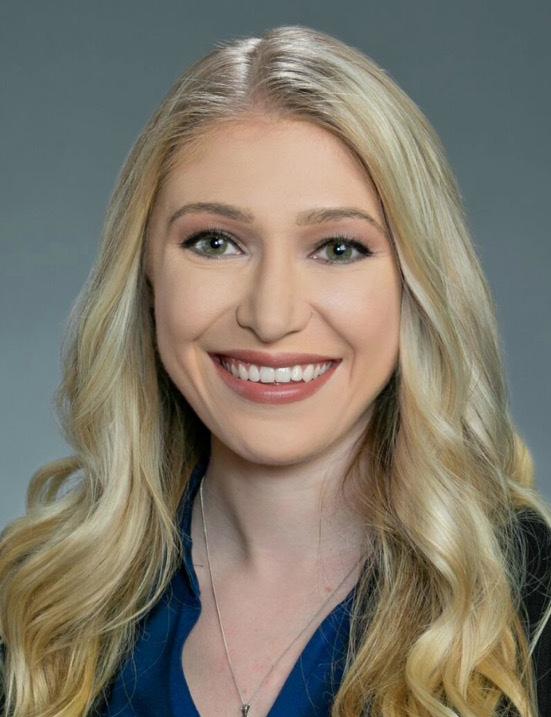
At just 28 years old, Caitlin Bornhoft has distinguished herself as a formidable force in the legal community of Garland County. Serving as the chief felony prosecutor at the Garland County Prosecutor’s Office, Bornhoft has shown exceptional dedication and acumen in her pursuit of justice. Her noteworthy achievements include prosecuting a wide range of criminal cases, from high-profile murder and sexual assault trials to aggravated robbery cases. Her work encompasses every level of crime within the state.
Bornhoft’s legal prowess was particularly highlighted in her successful prosecution of William Costan, resulting in a conviction for a Class Y felony rape involving a victim younger than 14. The case not only underscored Bornhoft’s commitment to protecting the most vulnerable but also earned her the Superhero award from the Cooper-Anthony Mercy Child Advocacy Center, which recognized her dedication and impact.
Her career achievements also include prosecution in the murder of a Hot Springs
It would be fair to say that Beau Browning of Hot Springs was born into fishing. Son of legendary Arkansas pro bass fisherman Stephen Browning, 22-year-old Browning is following in his father’s wake, as it were. Browning currently competes at the semipro level on the Bassmaster Opens Elite Qualifier Trail and is on his way to joining the elite ranks reached by his father, who turned pro in 1996, competed in more than 250 professional-level events and qualified for 10 Bassmaster Classics. The younger Browning has numerous wins under his belt, including the 2016 Junior Bassmaster National Championship, the 2020 High School State Bassmaster Champion, the 2021 Major League Fishing College Championship at Lake Dardanelle and the 2022 Bassmaster College Championship at Lake Norfork.
Browning said he is a proud member of Team Browning. As he grows in the sport and begins to blaze his own trail, Browning said he is taking things one day at a time after graduating from the University of Montevallo in Alabama in May.
“In real life, it’s tough and ugly, but at the end of the day, you have your family, your sponsors and your fans,” he said.
Marshall D. Butler is a seasoned financial advisor with a wealth of knowledge and experience in the world of finance. Butler’s specialization lies in business financial management, efficient portfolio management, and mergers and acqui-
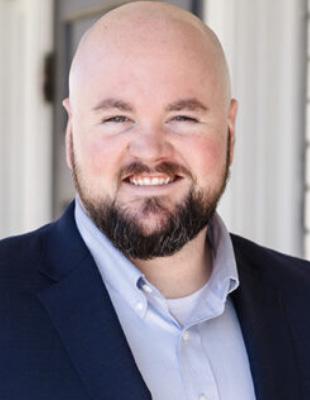
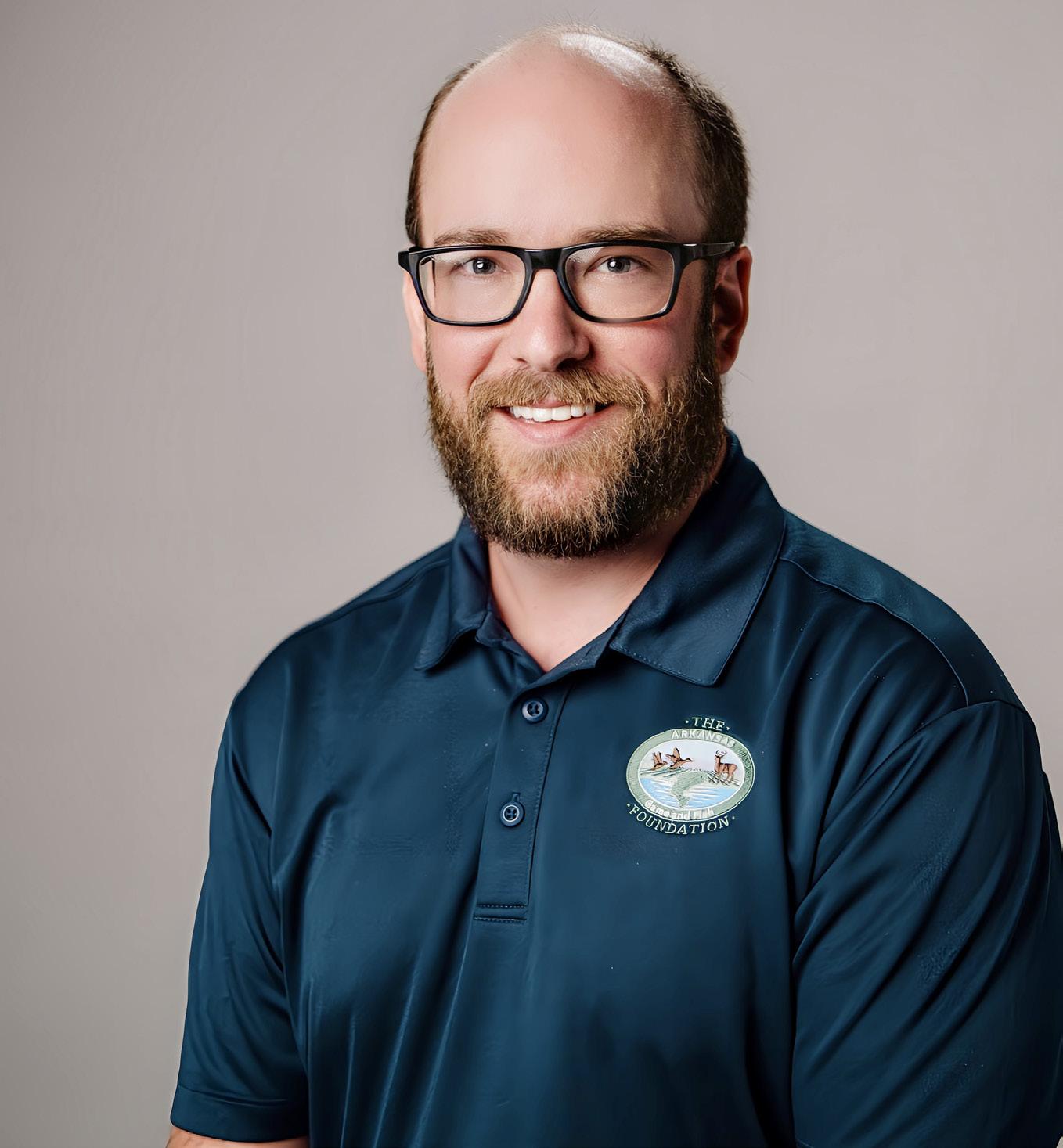
Tyler is the Events and Program Director for the Arkansas Game and Fish Foundation and plays a pivotal role in organizing events that attract over 6,000 attendees annually, raising more than $1.25 million to support the Arkansas Game and Fish Commission.
The Foundation has consistently collaborated with the Commission to ensure the future of quality hunting, fishing, and outdoor recreation in Arkansas. Learn more by visiting www.agff.org
501-223-6468
2 Natural Resources Drive | Little Rock, AR


HBy Lance Brownfield
ot Springs is known for gangsters, gambling and speakeasies. One restaurant and its chef are helping to bring the 900 block of Central Avenue back to life by leaning into the city’s seedy history.
DONS Southern Social, which anchors the block at the corner of Central Avenue and Market Street, stands out with its black-and-red color scheme and upscale takes on traditional Southern dining. For Chef Joshua Garland, the establishment represented a chance to prove himself on his home turf.
Garland is originally from Little Rock and attended high school at Baptist Preparatory School before going to the University of Central Arkansas in Conway for a degree in business. After spending two years in pursuit of a business degree, however, he decided to take a chance on his dream and go to culinary school. He enrolled in Le Cordon Bleu College of Culinary Arts in Las Vegas. From there, he went on to work all around the country.
“I pretty much traveled around the country and soaked up as much knowledge as I could from different chefs from all around the world,” he said.
His talents took him to Alaska, where he worked for Princess Cruises, as well as to Sun Valley, Idaho; Martha’s Vineyard and Nantucket Island in Massachusetts; and Vero Beach, Florida.
Garland was excited to set up shop in Hot Springs and credits business partner Rusty Thompson for the momentum around the 900 block of Central Avenue.
“The 900 block is really becoming a cool spot downtown thanks to Rusty Thompson,” Garland said. “He is the guy who helped me create DONS, and he is the reason the 900 block has come back to life.”
Garland is inspired by Italian chef Massimo Bottura because his “dedication to the kitchen, to his family and to the community is amazing.” While traveling and learning under others in the industry was rewarding, Garland said he wanted something bigger for himself and to prove himself back home.
“I chose Hot Springs because of the history, prohibition, gangster museum,” he said. “Also, the tourist attraction it brings. Hot Springs is a beautiful city that is growing rapidly. I wanted to be a part of the culinary scene here and bring something different to the table.”
DONS fits the bill. From the minute diners make a reservation — which is highly encouraged — until they exit the building, the DONS experience is unique.
When a reservation is made, the restaurant provides a code which allows customers access to one of the two entrances — either through the art gallery on the Central Avenue side or the bright red London-style phone booth on the Market Street side. If the code is a number, guests enter through the phone booth, but if they are given an artist’s name, they enter through the art gallery.
The restaurant’s name is derived from an acronym, “Doing Overtime,
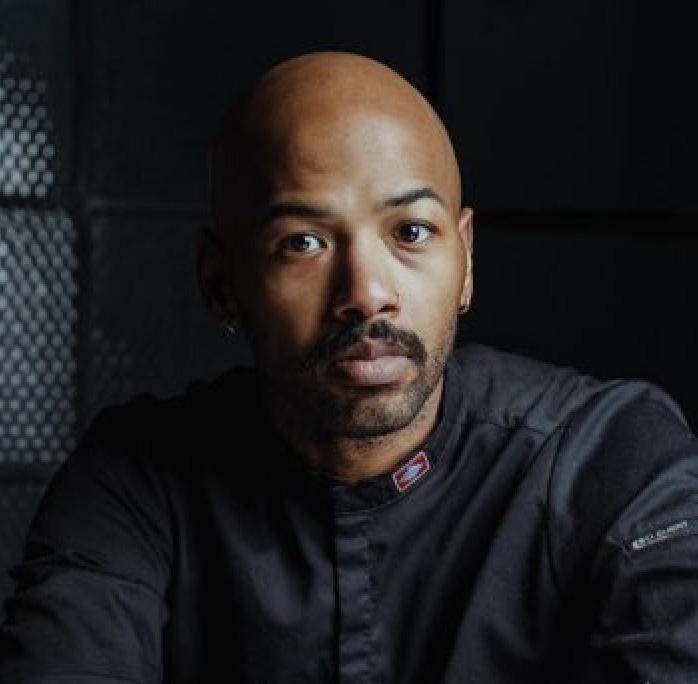
Sleeping,” which embodies the workload of a chef and restaurateur.
“The experience you get when you come through the door complemented by a menu that is truly different and brings this town flavors that they probably aren’t used to” are the biggest reasons to check out the restaurant, Garland said.
For Garland, nothing beats “the experience of entering an art gallery and exiting through a phone booth, the creative menu options, upscale service and classic speakeasy cocktails.”
The location is full of flavor and completely Hot Springs, Garland said, but he plans to eventually expand by adding a location in Little Rock.
“I would love the challenge of joining the culinary scene there,” he said. “For myself, I want to continue to learn the business and find my place in it and help in whatever way that I can.”
DONS offers fresh takes on Southern classics, including its Southern Bolo & Fried Catfish and Woo Pig Sooie grilled bourbon-applewood smoked pork belly. Among the selection of cocktails is the signature Suite 443, which features Campo Blanco, ginger liqueur, housemade margarita mix and house-made pear simple syrup finished with a sugar rim and a rosemary sprig.
While the theme of the menu stays consistent, items on the menu change frequently. DONS is now approaching its one-year anniversary, and Garland said the community has been very supportive in that time.
The restaurant brings back the charm of a bygone era with the chic elegance of a modern, upscale establishment. A dinner restaurant, DONS Southern Social opens at 5 p.m. Thursday through Monday and is closed Tuesday and Wednesday.
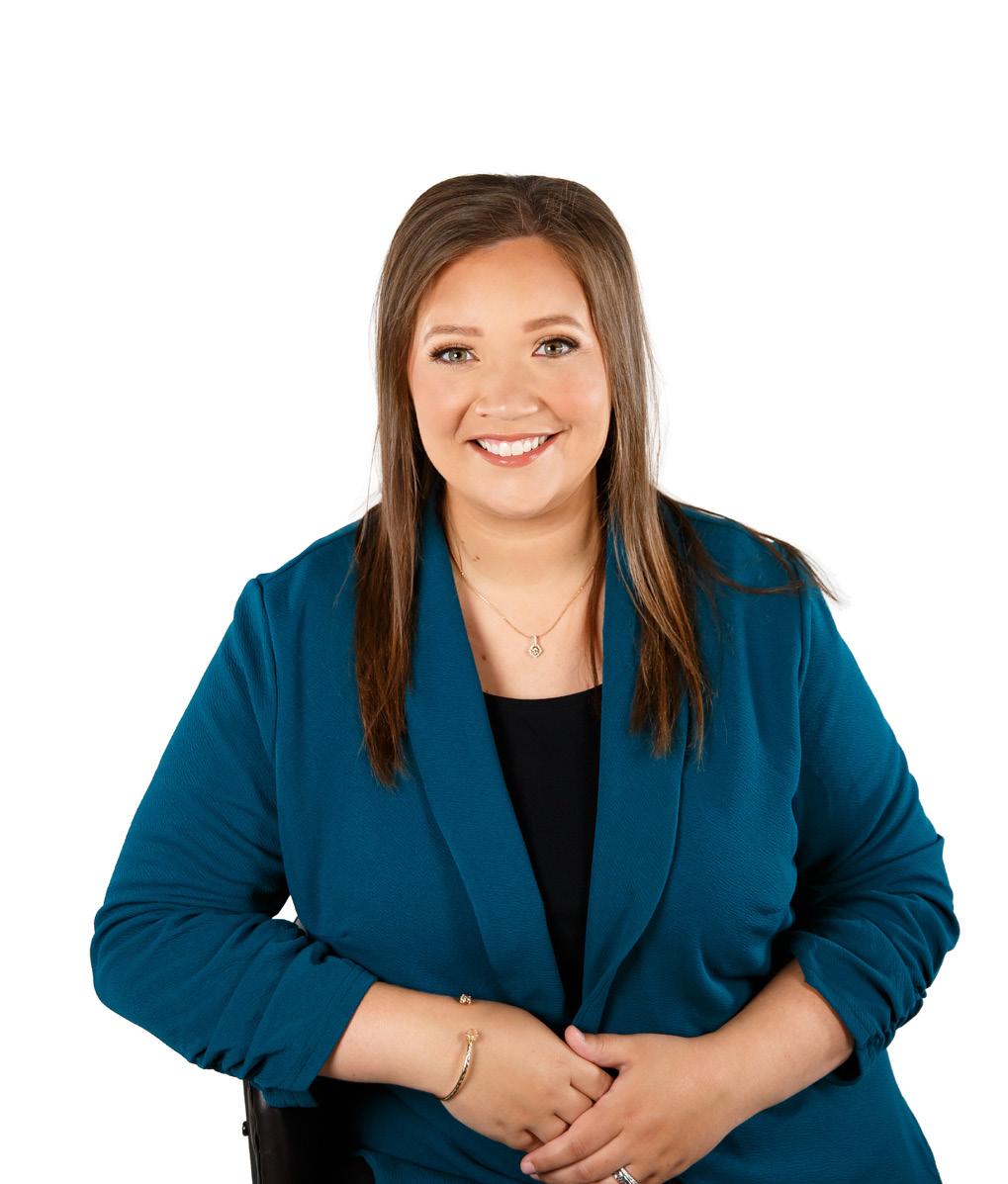
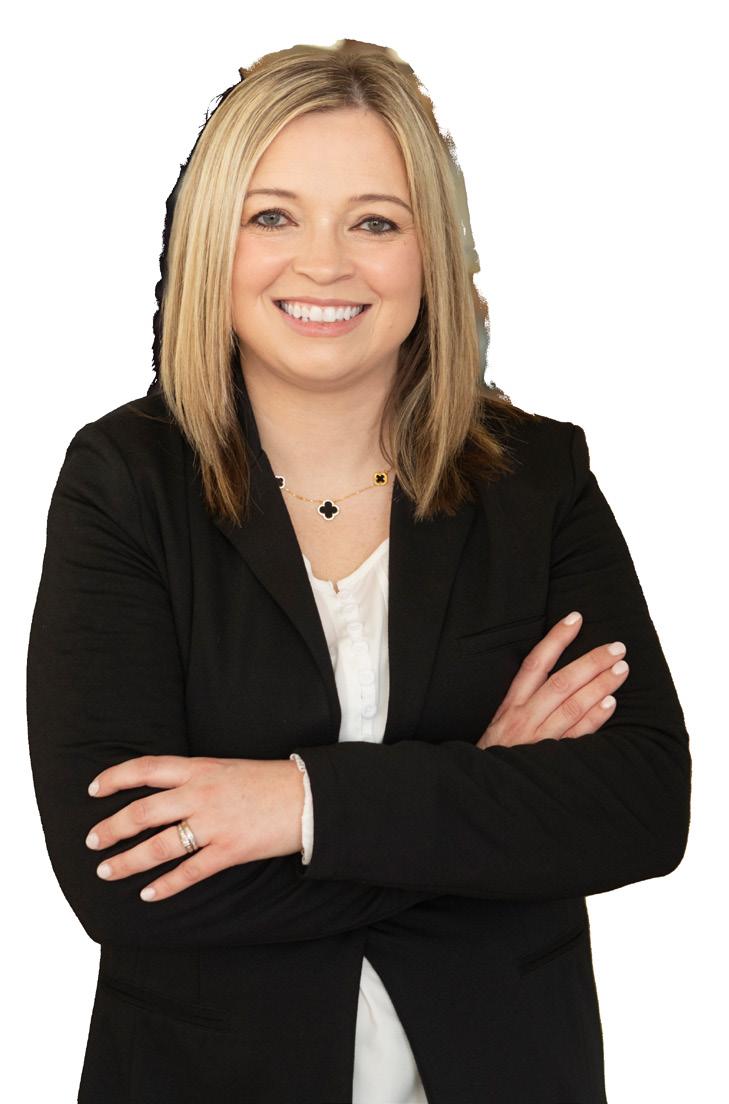

sitions for small businesses. His strategic insights and financial solutions have made him a trusted advisor for businesses seeking to optimize their financial performance and navigate complex financial transactions, as well as the individual owners for their personal planning.
One of Butler’s most rewarding engagements comes with Lyon College as their Interim VP of Business and Finance. Lyon’s new Institute of Health Sciences will encompass both the School of Veterinary Medicine and School of Dental Medicine, the first and only programs of their kind in the state.
“The cool thing is that we will have about 100 seats for a dental clinic at the new building, expanded from a 20-seat clinic that was going to be in the original design” he said. “Another really exciting thing is we will have a special needs clinic there with about 6 chairs that can facilitate children and adults. There such a gap in both education and awareness of children with special needs who still have to have their teeth cleaned. Learning how to have good bedside manner with a patient who has special needs is a pretty big gap in the educational process right now. We’re happy to help fill that and I’m honored to be able to assist.”
Whitney Butler
Good Day Farm
Christin Byrd
Little Rock Convention and Visitors Bureau
Sober Sidekick/Empathy Health Tech
Tara Cobb
Small & Associates Financial
desire to make a meaningful difference, she decided she wanted to do more. With her sights set on becoming a financial advisor, Cobb pursued her goal diligently and, in 2021, solidified her position as a trusted and knowledgeable advisor.
What sets Cobb apart is genuine enthusiasm for meeting clients and forming new connections. She finds great joy in hearing about her clients’ financial goals and working together towards achieving those goals. Cobb takes pride in empowering her clients by helping them to understand, achieve and manage their financial independence with confidence.
Priority Wire & Cable
Ryan Daniel currently serves as vice president of purchasing for Priority Wire & Cable, a premier supplier of wire and cable products to the North American market headquartered in Little Rock.

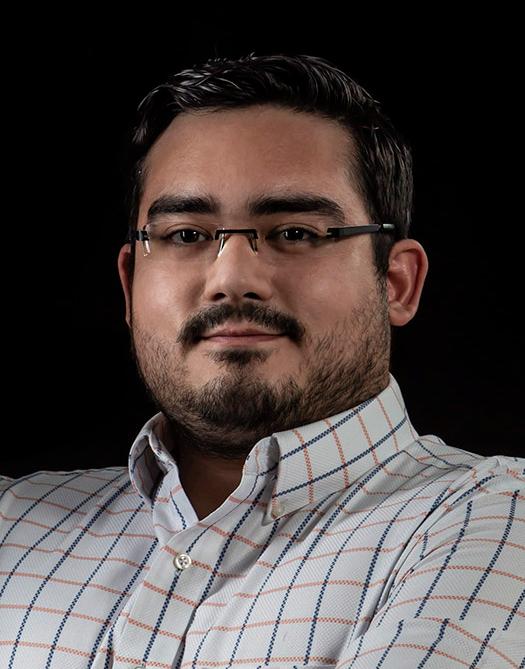
For Frank H. Cox III, founder, president and CEO of CMW Marketing + Creative in Little Rock, his introduction to business was his strong entrepreneurial spirit. That is evidenced by the fact that he started several businesses in his 20s, including a legal service company, and co-owning Leo’s Greek Castle in Little Rock, a Hillcrest landmark, for a decade before he exited in 2022.
His experience owning and operating businesses gave him a strong foundation for brand building, marketing and advertising, resulting in the founding of CMW Marketing + Creative in 2015 with partners Chris Minshall, Alex Winans and Frank Cox Jr. In addition to serving as president and CEO, Cox oversees all operations of the agency.
Daniel has been with the company since 2011 and helped drive a fivefold increase in business that ledPriority to now rank as the sixth-largest private company in Arkansas. He started with the company while he was completing his bachelor’s degree in risk management at the University of Central Arkansas in Conway.
In his current role, Daniel oversees procurement activities and inventory profiles, which include 20 distribution facilities. That includes more than $500 million in rolling stock, supply chain activities and strategic supplier partnerships. Through his leadership, product availability has been a key component in enabling the company’s best-in-class sales and operations team to continue to build on a tradition of world-class service in the electrical industry.
Great River Economic Development Foundation
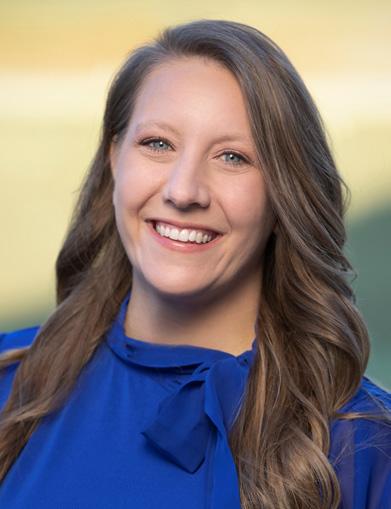
Tara Cobb, a native of Cabot, is a financial advisor with Small & Associates Financial in Little Rock with more than a decade of industry experience. After graduating from the University of Arkansas at Little Rock in 2008 with a degree in marketing, Cobb started her financial career at Small & Associates Financial in 2010, initially serving as a receptionist. Her dedication and passion for the field quickly became evident. In 2011, she successfully passed her FINRA exams, earning certification as a paraplanner. Fueled by a
Today, the CMW agency provides marketing and media services to a wide variety of industries, from local to international, including financial, manufacturing, wholesale merchandise, government, home service and retail clients. Over the years, Cox, or FH as he is known inside his company, has learned to balance work with his many hobbies, believing that personal projects, service work and micro-obsessions provide ongoing education and are necessary for maintaining a diverse and adaptable skill set.
In addition to his professional duties, Cox is active on the boards of Women & Children First and Habitat for Humanity. His passions and ventures are approached with fearlessness, resourcefulness and prudence — fitting traits of a young business leader.
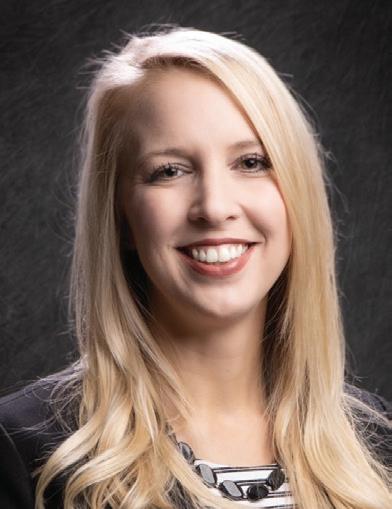
Mallory Darby began her career in economic development in 2012 in Columbus, Mississippi. She is a graduate of Mississippi State University, where she studied business management and marketing. Her career began swiftly after accepting a position as office administrator for the Golden Triangle Development LINK in Columbus. After that, Darby left Mississippi to be closer to her family in Arkansas. In 2017, Darby began working for former Mayor William Johnson in West Memphis as the project manager of the economic development office. She continued to work under Mayor Marco McClendon’s administration in the same



• 2016 Junior Bassmaster National Championship
• 2020 High Scholl State Bassmaster Champion
• 2022 Bassmaster College Champion (Lake Norfork) Congratulations on being named a FUTURE ICON!
Semi-pro level on the Bassmaster Opens Elite Qualifier Trail and is on his way to elite ranks.
• 2021 Major League Fishing College Champion (Lake Dardanelle)

role. In 2022, she accepted the position of vice president of the Great River Economic Development Foundation. GREDF was formed in 2002 to provide cohesive economic development for Mississippi County, and it serves as the lead organization for business recruitment and expansion in the county. Darby finds it incredibly meaningful and fulfilling to be able to work in the community in which she was raised, and she hopes to bring new ideas and support ongoing efforts of community and economic development for Mississippi County.
Argenta Contemporary Theatre
training they need to not only succeed here at home but also on the college level and on national and international stages.
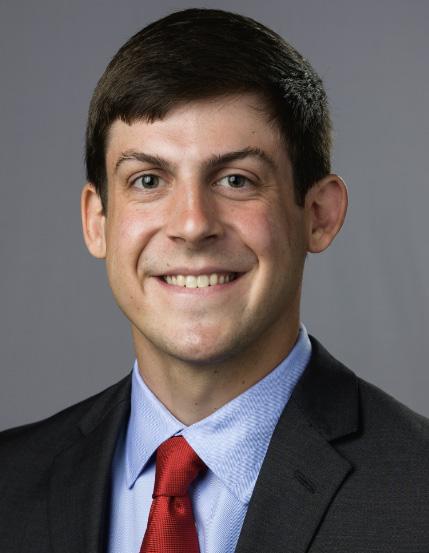

Bridget Davis serves as director of education at Argenta Contemporary Theatre in North Little Rock. A Little Rock native and Pulaski Academy alumnus, she received her Bachelor of Music in music theater from Oklahoma City University. For more than a decade, Davis has worked as a performer, educator and mentor for young artists. She has performed professionally all across the country and even internationally, including throughout Canada and China. Her most notable credits include the role of Sally in the national tour of A Charlie Brown Christmas , young Patsy in A Closer Walk with Patsy Cline at the Oklahoma City Repertory Theater, Ariel in The Little Mermaid at Murry’s Dinner Playhouse in Little Rock and Dyanne in Million Dollar Quartet at the Arkansas Repertory Theatre in Little Rock. Prior to her time at ACT, Bridget led young artist programming at the Rep, OCU summer music programs, the Arkansas State Thespian Festival, Little Rock Christian Academy, Murry’s Dinner Playhouse and the Studio Theatre in Little Rock. Since joining the team at ACT in 2022, Davis has more than quadrupled young artist participation in the theater’s education programs by introducing year-round after-school classes, additional summer camp sessions and student matinees, as well as in-school and onsite workshops. She has significantly enhanced the theater’s community impact through her innovative programming and unwavering dedication. Davis is committed to making sure young artists in Arkansas have the opportunity and
First Service Bank of Arkansas Spencer W. Day was named loan and business development officer at First Service Bank’s Little Rock branch in July of 2022, and his goal is to bring in new clients and contribute to the continued growth of the company. A graduate of the University of Arkansas, Day majored in finance with a real estate concentration and minors in accounting and legal studies. Headquartered in Faulkner County, First Service Bank has been in operation for more than 60 years and has locations in Clinton, Conway, Dermott, Flippin, Greenbrier, Little Rock, Mountain View, Shirley and Yellville. Day was drawn to banking because of its diverse challenges and wide-ranging impact on a number of industries. Day is a Little Rock native who graduated from Catholic High School in 2018. He is an alumni member of Sigma Chi Fraternity and a member at Pulaski Heights United Methodist Church.
graduate. He serves as a city planning and zoning commissioner and chairman of the IMPACT Foundation Board. Downing also serves on the boards of Batesville Area Chamber of Commerce, Woodlawn, and Jamestown Crag Foundation. He recently graduated from Leadership Arkansas Class XVIII.
An avid outdoor enthusiast, Downing speds much of his free time gravel cycling, caving and rock climbing. A member of the Nomads Cave Rescue Team, he has participated in two official cave rescues within Arkansas. Since 2013, the Nomads have developed and managed Jamestown Crag, a rock-climbing destination near Batesville that is frequented by visitors from across the United States.
Haag Brown Commercial Real Estate & Development
Apptegy
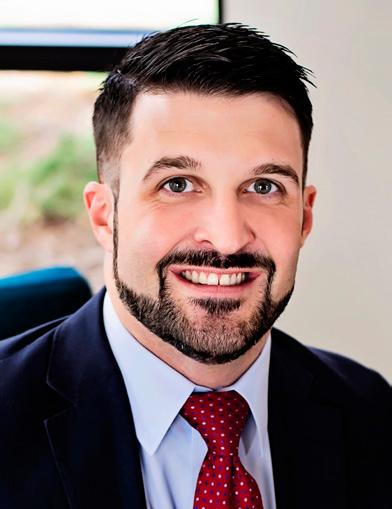
Landon Downing serves as vice president and commercial loan officer for Citizens Bank. As a community banker, he takes pride in developing and maintaining strong customer relationships throughout the state, and on behalf of the bank, he is heavily involved in community development initiatives.
Downing joined the Citizens Bank team as a retail sales manager in 2017, later serving as the bank’s treasury management officer for business customers across north central Arkansas.
He is a 2013 graduate of Lyon College in Batesville, where he worked for three years in enrollment services prior to joining the bank.
Actively engaged in the community, Downing is a 2016 Leadership Batesville
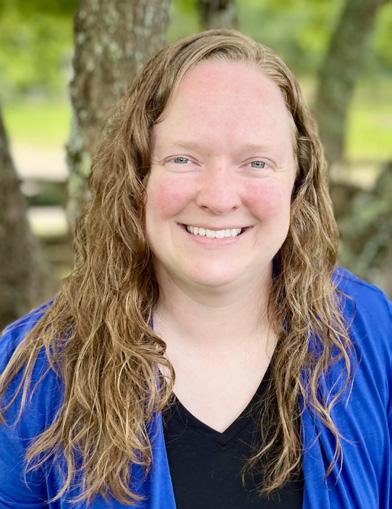
Helping others find and have confidence in their voice has always been a priority for Torri Ellison, a client success team lead at Apptegy, a Little Rock education technology firm. Originally from Jessieville, Ellison went to college at Arkansas State University in Jonesboro, where she earned her Master of Arts in communication studies. Prior to joining Apptegy in 2022, Ellison worked for 10 years at Henderson State University in Arkadelphia, where she taught communication courses and served as director of the HSU Communication Center. At Apptegy, Ellison gets to feed her passion by helping clients better tell their stories and build their brands. She and her team ensure clients strategically use the communication platform to confidently engage their communities. Ellison works collaboratively with multiple teams at Apptegy to help provide creative solutions to meet the communication goals of each unique client. Ellison said she enjoys working with a team at Apptegy that is highly motivated and embraces challenges with a spirit of togetherness.
Seis Puentes
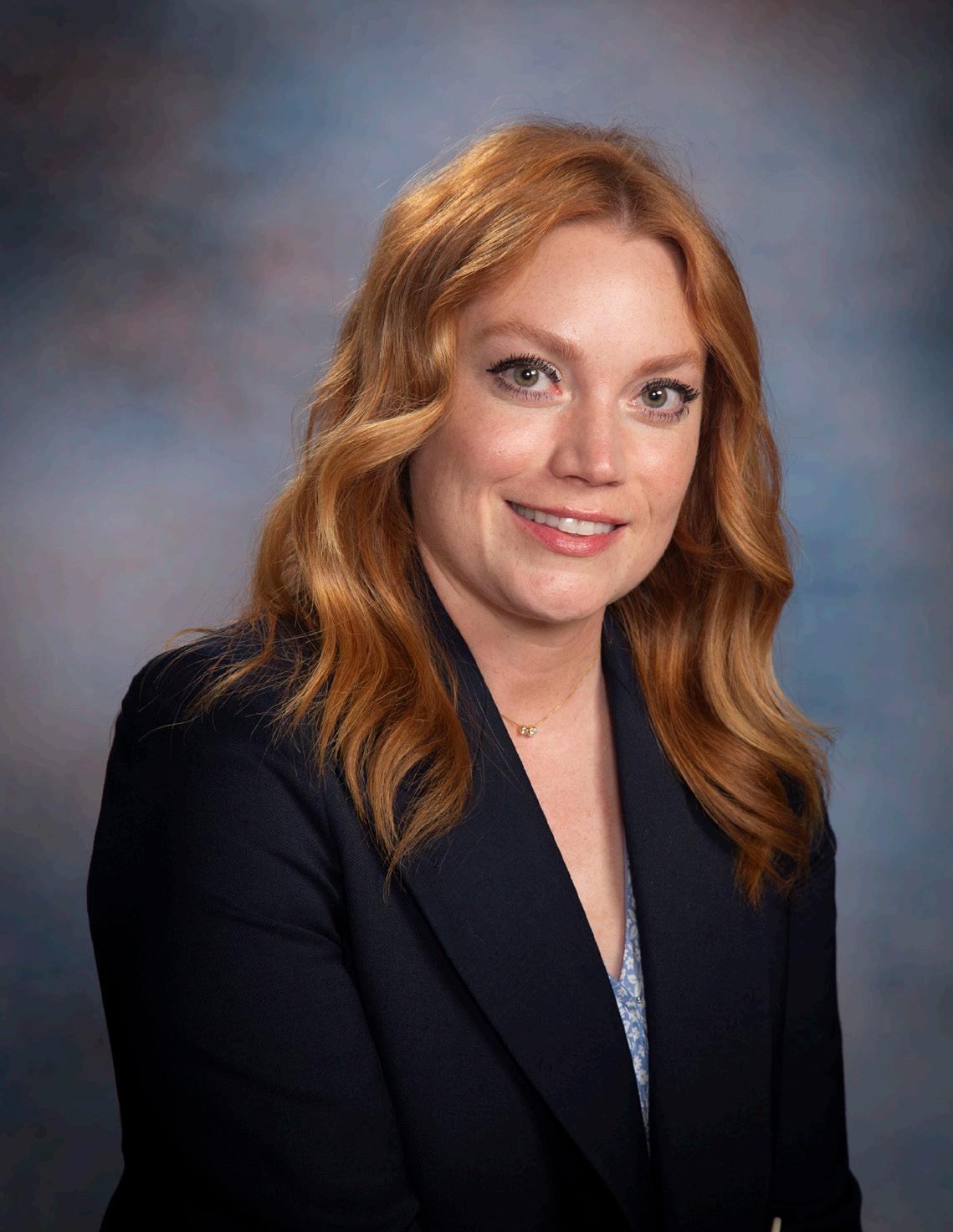
Mallory Rogers is a doer. She’s a problem solver. She thinks beyond the “now” to find new and strategic pathways to better serve our members. Her interpersonal skills allow her to build strong, trustworthy relationships with co-workers and company stakeholders. In her role at Arkansas Blue Cross and Blue Shield, she demonstrates exceptional communication, negotiation and collaboration skills and a deep understanding of her clients’ business and industry. She is instrumental in taking good care of our members now and into the future.
Congratulations, Mallory, on being named an Arkansas Money & Politics 2024 Future Icon!
This recognition is very well deserved, and we are so proud of all your accomplishments!!
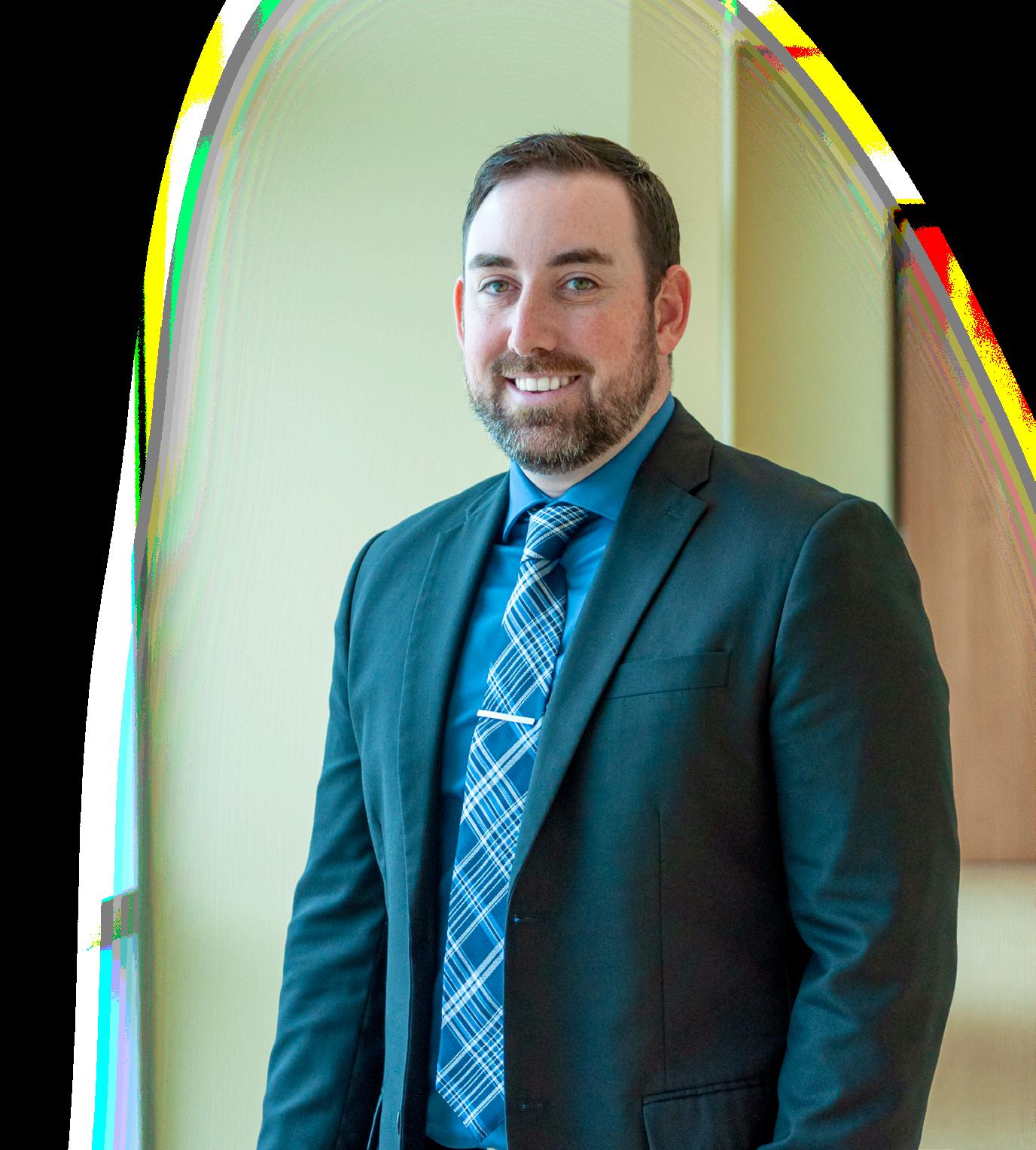
TBy Sarah DeClerk
here is plenty of room for growth in the financial industry. Just ask Dillon Richard, who began his career as a credit analyst and is now vice president of commercial lending at First Community Bank in Conway.
Upward mobility is not the only reason Richard has an interest in banking, however. The institution allows him to serve the community where he grew up and is now raising a family of his own.
A graduate of Conway High School, Richard completed his bachelor’s and master’s degrees at the University of Central Arkansas in Conway.
He said he became interested in banking toward the end of grad school. Unsure of what he wanted for a career, he began looking into jobs he could pursue locally without moving that involved people and numbers.
“Personal financial planner and banking are the two that checked all the boxes,” Richard said. “I ended up going the banking route and haven’t looked back since getting my first opportunity.”
He joined First Community Bank in 2021 and said he is grateful for the opportunity each and every day.
“The thing I enjoy most about my job is the fact that I get to work in the community that I was born and raised in,” he said. “I love that I get the chance to help local business owners, as well as individuals, reach their financial goals.”
The lending side of banking is a hard field to break into, and starting as a credit analyst is a great way to understand the numbers and the back end of how businesses operate, he said. He also advised up-and-coming bankers to find mentors who they can learn from in their respective banks.
“I feel like I learn a new lesson every day,” he said. “The biggest lesson I’ve learned that comes to mind, though, is to always have time, no matter the customer or the situation, whether big or small. Everyone is busy these days. Setting aside time to meet with someone shows that you care.”
With an eye for furthering his career, Richard is midway through his first year of banking school at Barret School of Banking in Memphis.
“I predict a lot of change in the future of banking,” he said. “I’ve experienced a considerable amount of change in the short time I’ve been in the industry, and I expect that trend to continue.”
He added that he hopes to continue growing both personally and professionally.
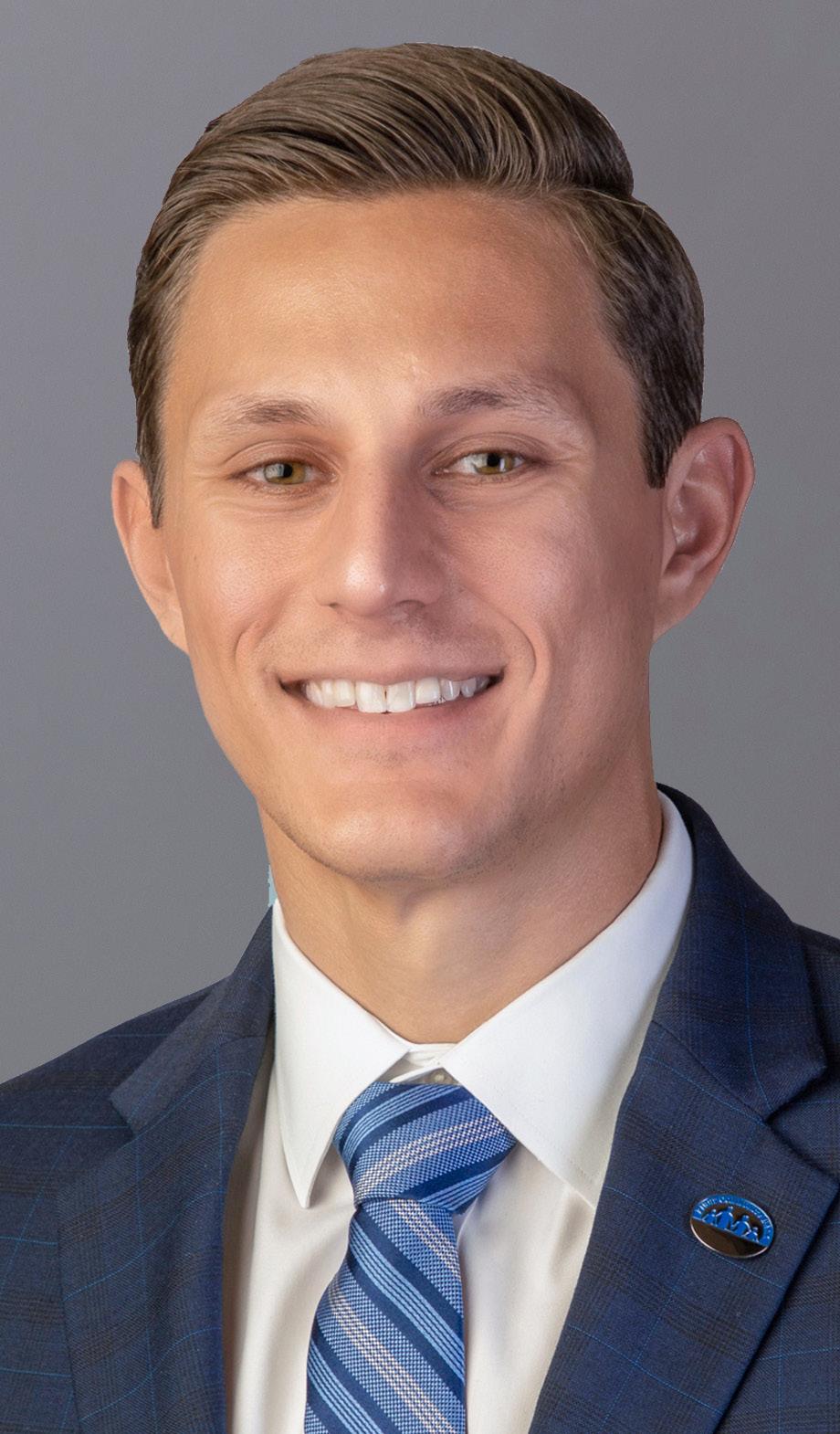
“I plan to never stop learning and be the best banker, as well as husband and father, that I can be,” he said. “There is a lot of opportunity here in Conway for First Community Bank. I want us as a bank to continue to capitalize on that opportunity and grow our footprint here.”
Richard is involved in various community organizations, including Big Brothers Big Sisters, Boys & Girls Clubs, United Way and Bank on Arkansas+. He also helps out with the annual Toad Suck Daze festival in Conway.
“I enjoy giving back to the community that’s given to me with both money and time,” he said.
He and his wife, Morgan, have three sons: Beckham, 5, Bennett, 4, and Brody, 1.
“Being a dad takes up just about all of my spare time, and I couldn’t imagine it any other way,” he said. “I’m not good at golf anyways.”
One of Arkansas Money and Politics Future Icons. This is a remarkable achievement and a testament to your hard work, talent, and dedication. Your leadership is truly unmatched.
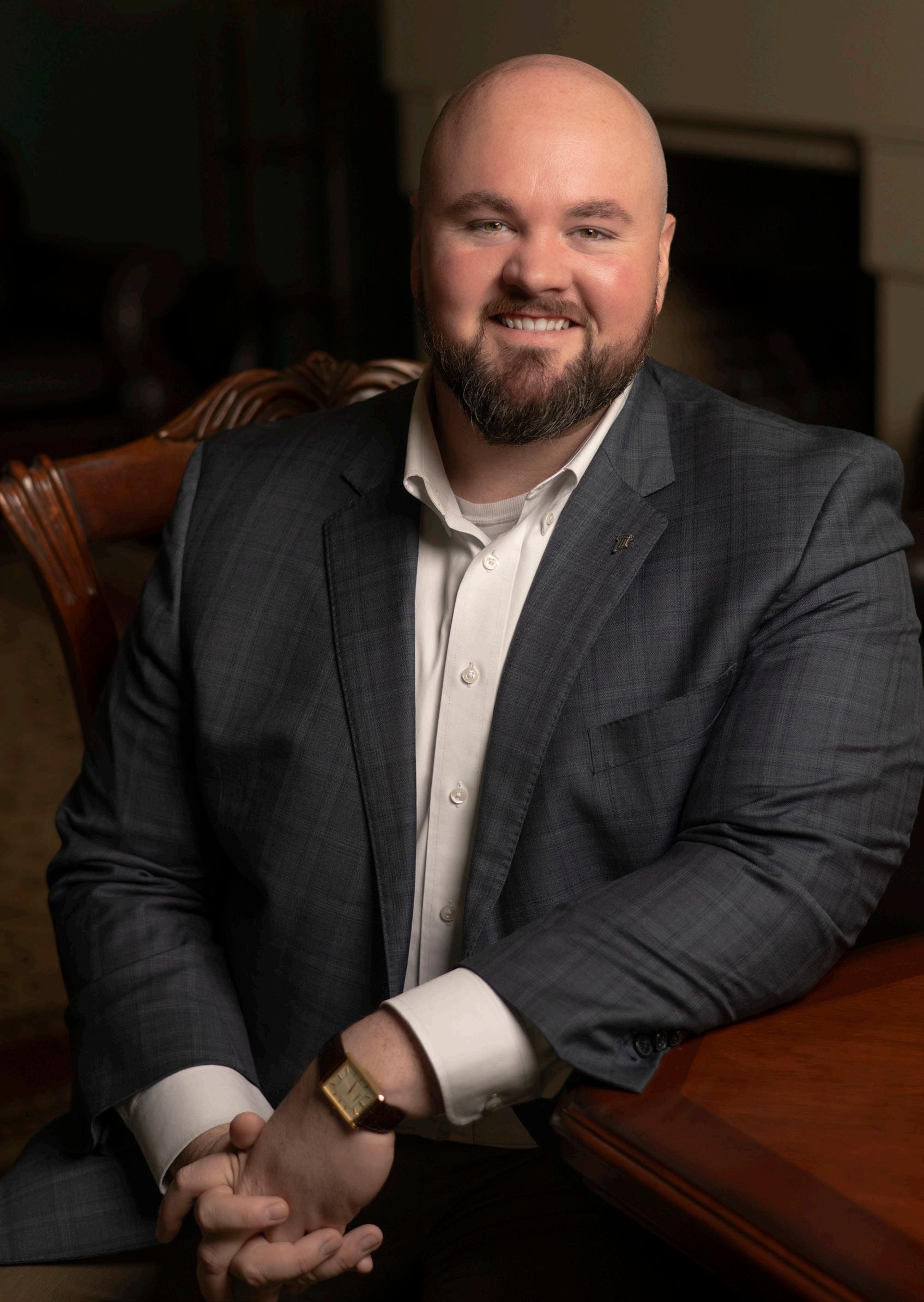

Dalton Fischer is a roller coaster junkie who turned his summer internship at Silver Dollar City in Branson into a career. Fischer is the communications manager for the Silver Dollar City Company, which includes the renowned 1880s theme park, the Showboat Branson Belle, White Water water park and the Silver Dollar City campground.
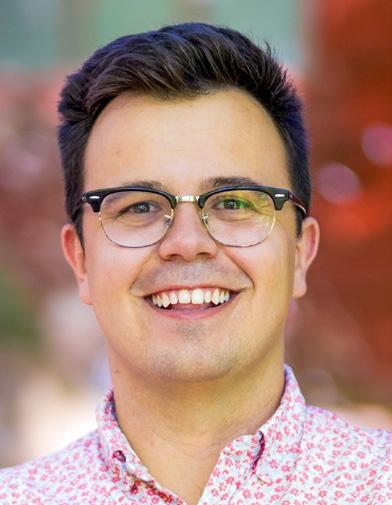
The Butler, Missouri, native graduated from nearby Missouri State University in Springfield with a bachelor’s degree in marketing with an emphasis in sales and sales management. He was instrumental in Silver Dollar City’s publicity efforts around the $26 million Time Traveler roller coaster, which opened in 2018; 2020’s Mystic River Falls water ride; the new Fire in the Hole roller coaster ride, which opened this year; and other park enhancements. A former ambassador at the International Association of Amusement Parks and Attractions’ International Attractions Expo, the largest trade show of its kind, Fischer has been involved with multiple video shoots at Silver Dollar City for content that appeared on the Travel Channel, TODAY and TBN.
After interning at Silver Dollar City in 2017, Fischer joined the park full-time in 2018 as a publicist and was promoted to senior publicist in 2019. Before returning to SDC as communications manager in 2023, he served as a business development manager for Springfield-area digital marketing agency Mostly Serious, then as director of communications and information at his fraternity’s international headquarters, Theta Chi Fraternity, in Carmel, Indiana. .
Cushman Wakefield Sage Partners
represent numerous Fortune 500 clients and has specifically tailored his focus on property valuation, site selection and underwriting services.
Fowler has valuated or underwritten more than 400 properties across Arkansas ranging from office and retail to industrial uses. He has also performed overall portfolio analysis projects for many private, public and government organizations.
He attended Catholic High School for Boys in Little Rock and graduated from the University of Arkansas at Fayetteville with a Bachelor of Science in Business Administration in finance concentrated in real estate. He is a mentor at Enspire Advantage of Arkansas, a nonprofit entrepreneurial education program for high school students in central Arkansas. He also enjoys volunteering at the Northwest Arkansas Food Bank and the University of Arkansas Real Estate Club, where he served as vice president of outreach his senior year.
With offices in Little Rock and Rogers, Sage staff members work with faith and integrity while utilizing their expertise and experience to provide superior real estate services that benefit the company’s clients, families and communities. Its core values are serving others, authenticity, giving back and entrepreneurship.
eration of skilled workforce professionals through the Associated Industries of Arkansas Foundation Be Pro Be Proud platform. She is an avid supporter of AR Kids Read. Freeman is also a thriving entrepreneur within the Little Rock community, and she continuously seeks opportunities to support the future growth and development of individuals around her. She received a Bachelor of Business Administration in human resource management and communications and a Master of Arts in strategic communications from the University of Arkansas at Little Rock.
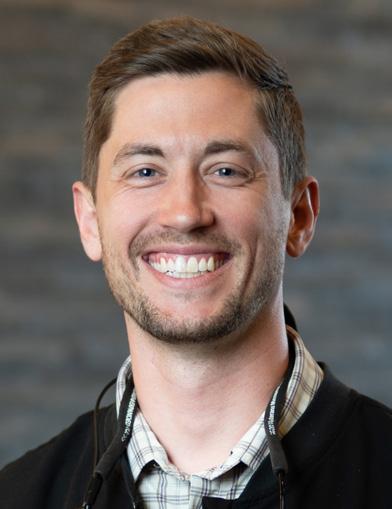
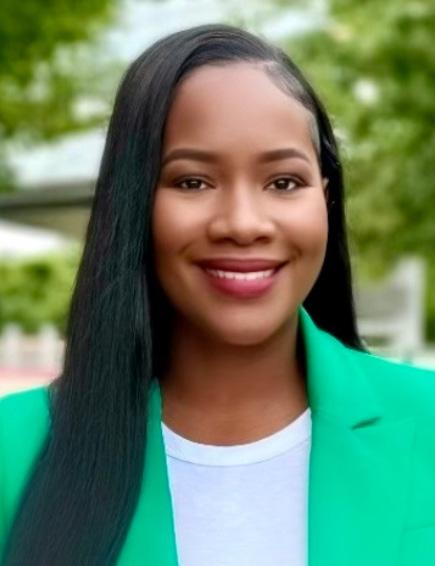
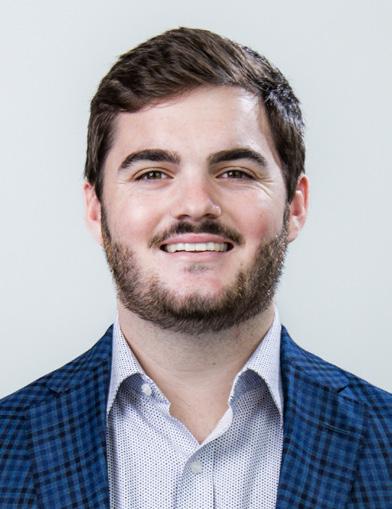
Ethan Fowler joined Cushman Wakefield Sage Partners in Rogers as an analyst in June 2023 after interning at the company for one year prior. During his time at Sage, he has worked exclusively alongside Sage brokers who
Nichole Freeman is talent and acquisition specialist at Central Arkansas Water, Arkansas’ largest metropolitan water system, which serves more than 500,000 customers in 23 communities. Since joining the utility, Freeman’s keen leadership and management abilities have contributed to an unprecedented level of talent acquisition in the utility’s history, and she has assisted in onboarding some of the best and brightest individuals in the region. Her passion extends beyond sourcing and acquiring the best of the best to support providing quality source water for the region.
A recent Little Rock Regional Chamber Outstanding Young Professional of the Year finalist, Freeman serves on the Little Rock Racial and Cultural Diversity Commission and the Central Arkansas Human Resources Association board, and she enjoys providing support for the next gen-
Dr. Luke Fruchey is the founding dentist and owner of Two Rivers Dental Care in west Little Rock. A graduate of Little Rock Christian Academy, Fruchey completed his undergraduate studies at Ouachita Baptist University in Arkadelphia before obtaining his doctorate of dental surgery from the University of Alabama at Birmingham School of Dentistry. In 2022, Fruchey fulfilled his long-held dream of opening his own practice in his hometown, and he plans to spend the rest of his career serving patients in west Little Rock. Fruchey’s goal with Two Rivers Dental Care is to bridge the gap between the more personable but outdated practices and the more modern but impersonal ones. Neither sacrificing on innovation nor lacking in family-friendly atmosphere, Two Rivers offers general dentistry, as well as high-end cosmetic dentistry, implants, whitening and more. Fruchey and his practice were also recently recognized with Invisalign’s gold status, making him one of the top five Invisalign general dentists in central Arkansas.
University of Arkansas - Fort Smith
Project Zero
Arkansas Hospice



Coldwell Banker RPM Group
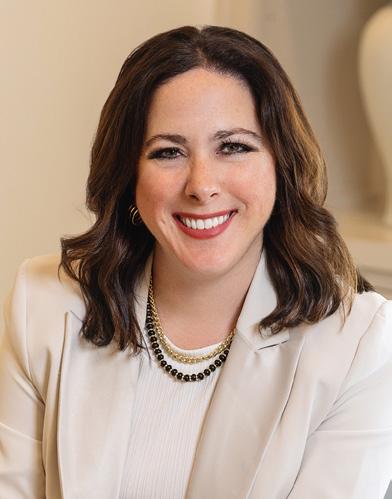
Lindsay Hammers has two decades of marketing experience, the last 13 years of which concentrated on real estate marketing. Currently, she serves as the vice president of marketing and development at Coldwell Banker RPM Group in Little Rock, where her expertise has significantly revitalized the company’s marketing strategies and promotional efforts. In her role, Hammers has leveraged her understanding of the real estate market and consumer behavior to implement innovative campaign strategies. She has a track record of driving growth and enhancing property visibility in competitive environments. Her approach involves integrating sophisticated digital marketing tools, ensuring that Coldwell Banker RPM Group remains ahead in a very competitive sector. Starting her career in marketing directly after college, Hammers quickly advanced in various positions with companies and most recently within the franchise brand, Coldwell Banker, serving as brand ambassador/account manager and director of franchise sales. Throughout her career, she has demonstrated a strong capacity for responding to market needs and leading initiatives that respond to market shifts. At Coldwell Banker RPM Group, her responsibilities involve leading an energetic marketing team focused on creating dynamic campaigns that meet evolving consumer demands. Her strategic, data-driven leadership not only propels the company’s growth but also solidifies its marketplace presence. Her leadership is characterized by a responsive, outside-the-box approach, which ensures the company’s marketing efforts are not only effective but also adapt to the ever-changing market landscape.
Carty & Co.
Buddy Harding joined the team at Carty & Co. in Memphis in February 2022 as a senior vice president, stockholder, director and manager of the Little Rock office. After playing basketball
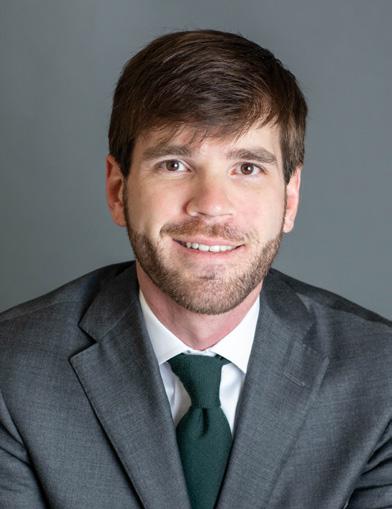
on scholarship at the University of Arkansas Little Rock, Harding received his Bachelor of Science in health sciences and began a successful tenure at Crews & Associates in Little Rock, where he was a consistent top five producer. Since 2008, Harding has specialized in fixed-income sales and trading to institutional and retail investors. Harding has served on several boards for UA Little Rock athletics, Little Rock’s Arkansas Baptist College athletics, Junior Deputy and the Centers. He and his wife, Rachel, are involved in and support many charitable organizations. Outside of the office, Harding enjoys coaching their two boys, Rush “Five” Harding V, 11, and Wilder, 7, in football and basketball.
Heaton & Harris
Marit Hedgecock Hair
Farmers & Merchants Bank
An accomplished finance professional, Megan Henderson serves as vice president and controller at Farmers & Merchants Bank.
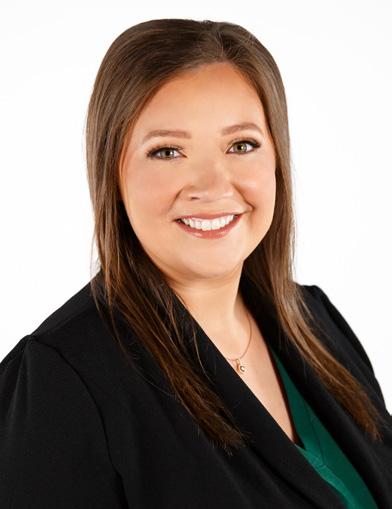
A first-generation college graduate, Henderson earned her Master of Accountancy from the University of Central Arkansas in Conway before joining the bank in 2018 as an assistant vice president finance manager.
Henderson quickly demonstrated an exceptional work ethic and leadership skills, playing a key role in Farmers & Merchants Bank’s successful acquisition of Integrity First Bank in 2019. Her rigorous due diligence, financial analysis and comprehensive strategy ensured a seamless general ledger integration process during the merger. Recognizing her talents, the bank promoted Henderson to her current role as controller vice president in 2020.
Guided by a deep commitment to serving bank employees, Henderson has revolutionized the organization’s approach to retirement planning. She has led initiatives that enhanced investment returns, increased oversight and expedited enrollment opportunities for employees. Through meticulous research and strategic decision-making, Henderson and her team
have implemented innovative investment techniques tailored to the bank’s goals and risk tolerance, providing employees with greater financial security during their retirement years.
Beyond her professional achievements, Henderson is deeply ingrained in her community. She is a longtime school supporter, volunteer and youth sports coach. With her exceptional work, expertise, and dedication to the well-being of both the bank and its community, Henderson continues to drive success at Farmers & Merchants Bank.
E.Leighs
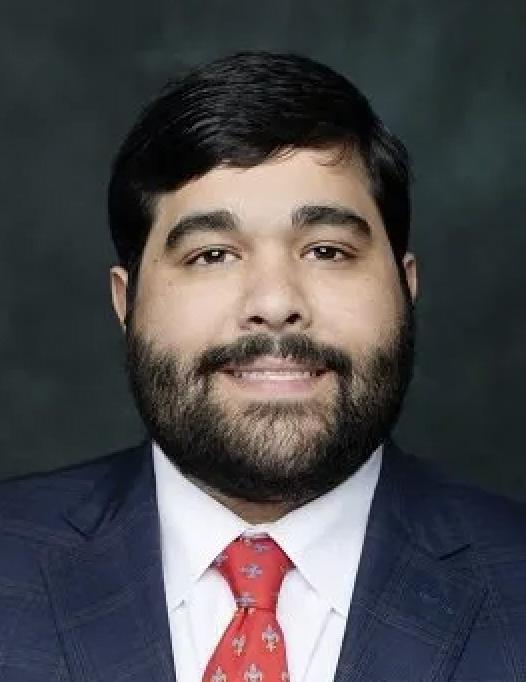
Chris Hussein joined Taylor Law Partners in Fayetteville as an attorney in 2022 and within two years was named a partner at the firm. His practice mirrors that of the firm and entails criminal defense, civil litigation, probate and family law, and it is easy to see that helping people has always been a priority for Hussein.
Prior to joining Taylor Law Partners, the Shreveport native worked for Legal Aid of Arkansas, which provides free legal services to low-income individuals and families. He joined Legal Aid out of law school as a transitional attorney, working with children ages 5 and younger from troubled homes and left as the supervising attorney overseeing domestic relations cases and the attorneys handling them at Legal Aid.
Hussein found an opportunity he could not pass up with Taylor Law Partners, but upon leaving Legal Aid, he posted, “I learned so much in my time at Legal Aid ... I won’t forget all the incredible folks I worked with and the community that we served. I know Legal Aid of Arkansas will continue to do great things in our community, and I’m excited to watch it continue to grow.”
A graduate of the University of Arkansas in Fayetteville, where he studied hospitality management, Hussein went on to earn his Juris Doctor from the U of A School of Law.





Scan the QR code to visit states.aarp.org/arkansas/ to RSVP for our next events and learn how to volunteer.






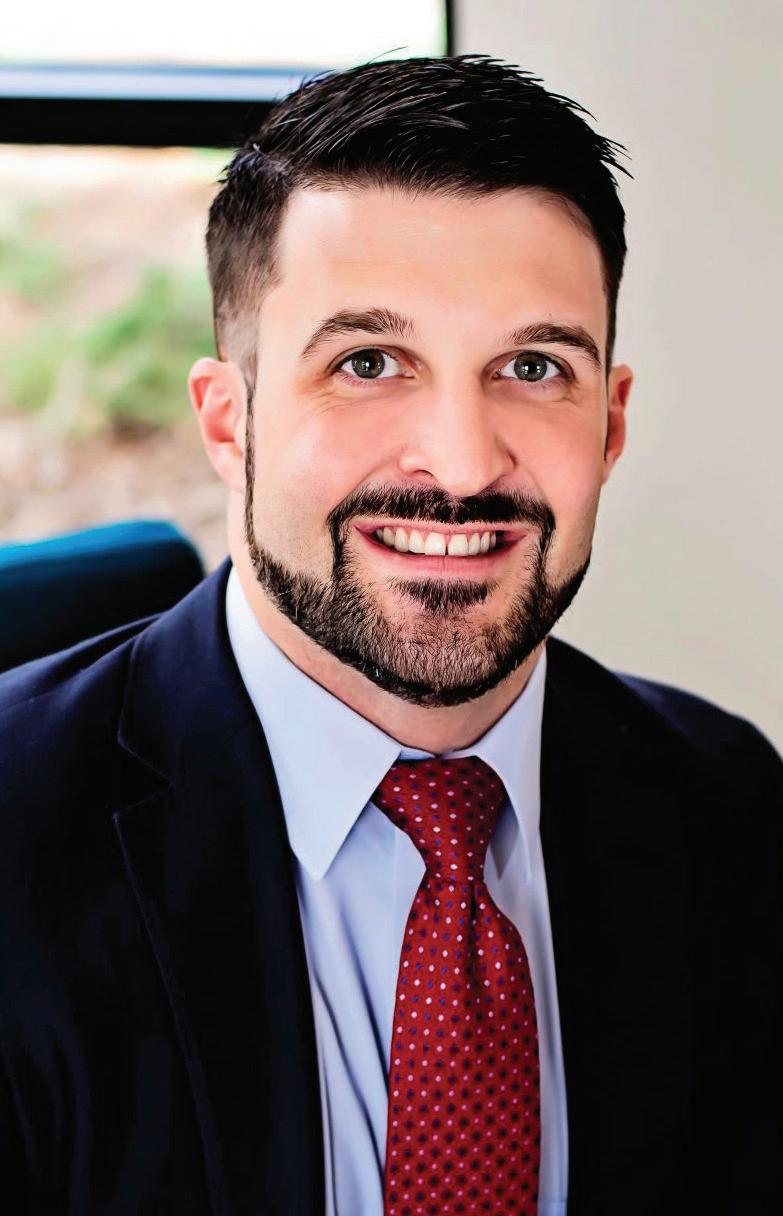

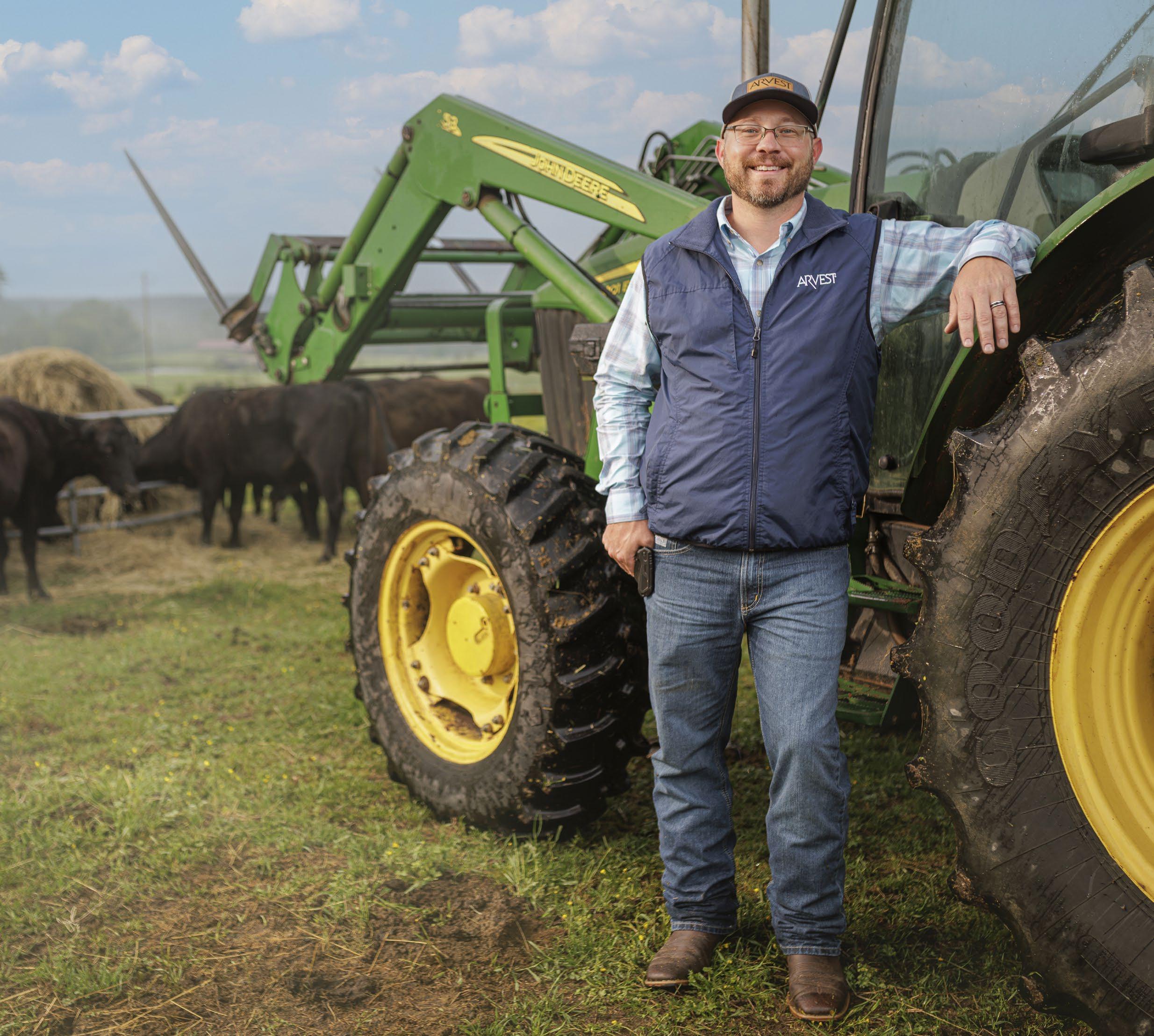
IBy Mark Carter
t did not take Hunter Stuckey long to “master the numbers.” In 2022, just three years after joining the Signature Bank of Arkansas team in Fayetteville as a lender, the 2013 University of Arkansas graduate was promoted to senior vice president of lending.
Any trepidation about stepping out of his comfort zone and joining the banking industry was all but gone after his first promotion to VP in 2020.
Step out of his comfort zone, he did. Stuckey was a history major on the Hill and had previously spent four years at Downtown Bentonville Inc. as event manager, senior event manager and finally, director of promotions before Signature came calling.
“The transition into banking was hands down the biggest risk I have taken in my life so far,” he said. “With DBI, I was interacting daily with a variety of people and companies, Signature Bank being one of them. They were partners/sponsors on several events that I managed over the years, and one day, [future boss] Ryan Dagley invited me to meet with him. He pitched the idea of me joining the bank as a lender. Let me be clear — I was a horrible student when it came to math, and that was the first thing I shared with him. He assured me that while yes, you have to master the numbers, the job is really about working with people. He thought I could excel in this type of role. It took a while to get the hang of things, but I wouldn’t change it for anything, and I am so glad I took the risk.”
Prior to working for DBI, he was a group leader and program coordinator at a YMCA camp in North Carolina. Working with people came naturally for Stuckey; it just took him a few years to realize it.
“Going into college, I felt unsure of what I wanted to pursue,” he said. “I knew I liked history and social studies — really just anything to do with learning about people. My dad taught history, so it felt like a very natural path to follow his lead. Funny enough, once I earned my degree, I realized that I loved working with people, just not in a school setting.”
In his new role, Stuckey said he appreciates most that no two days are ever the same.
“Every day brings new situations to help serve our community and the people within it,” he said. “Working in this space, a huge reward for me is helping people achieve their big life dreams and goals, whether it be buying their first house, building their dream home, or starting a business and seeing it thrive. I love being able to drive around town and see my clients’ homes or businesses and being able to say that I had a part in making that dream come true.”
The other side of that coin, he added, is the occasional necessity to provide “a healthy dose of reality for people by helping make sure they don’t get too far out over their skis” into situations that could be too risky.
“Sometimes it can even be a guiding conversation of, ‘Hey, you qualify for this, but are you sure this is what you really want to do?’ Our customers really trust and rely on us to make sure that they are doing what is best
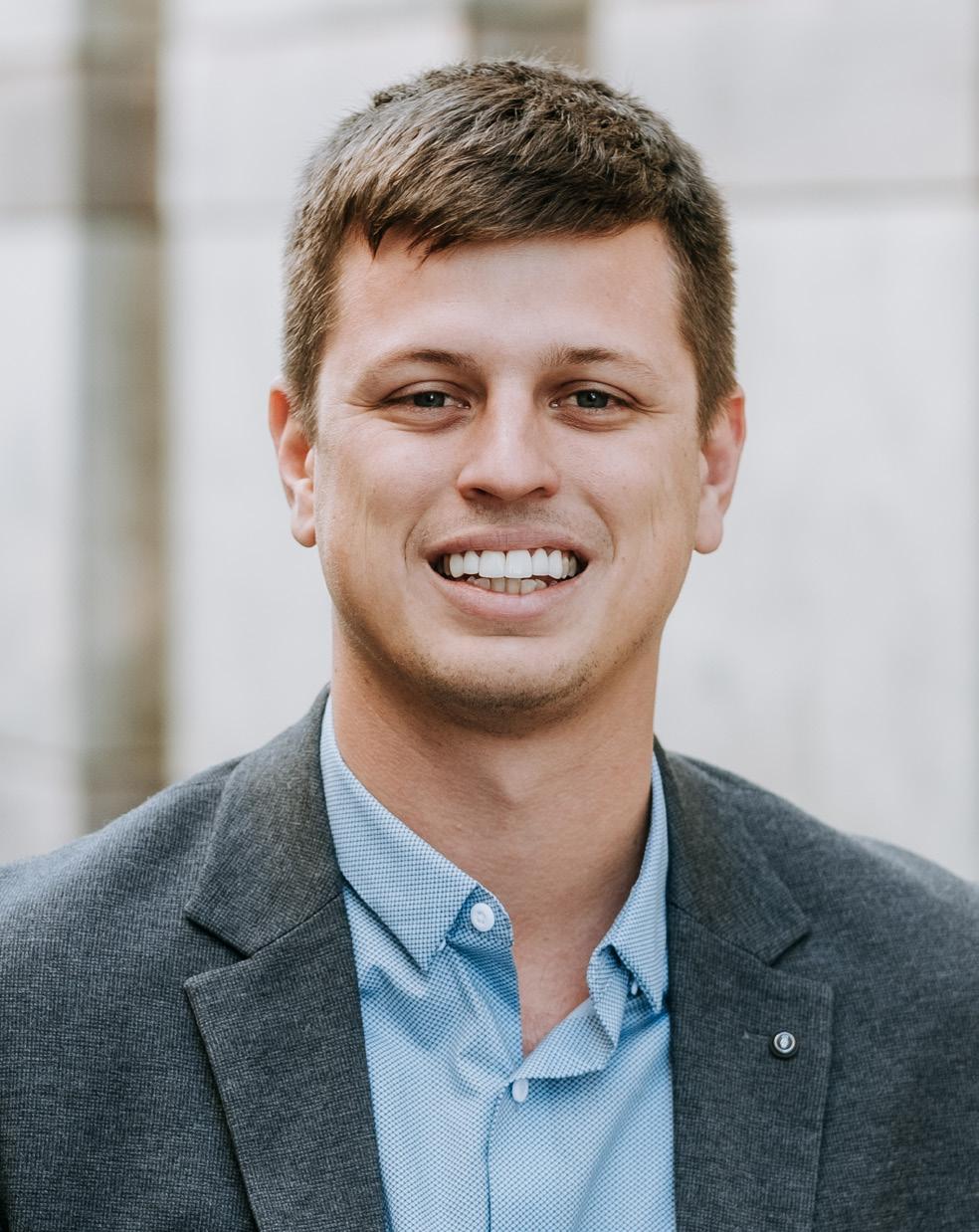
for them and their families going forward,” he said. Signature Bank is big on community, and its community is growing. Northwest Arkansas is projected to be home to a metro population of 1 million by 2050. Stuckey said such growth translates into more banks competing for new business.
“I can’t wait to read the case study that will eventually be done on the meteoric rise of NWA over the last decade and its continued growth and success,” he said. “It has definitely brought about its own set of unique challenges, whether you’re viewing it from a supply shortage perspective or how it has affected the overall infrastructure of the region. Competition has risen in the area, as well, in just about every space. It seems as if there is a new bank opening every quarter, so making sure you have top-notch customer service and are taking care of your people is more important than ever.”
As long as it sticks to its core community values, Stuckey said, the bank will be just fine.
“We make sure to take care of our people locally because we truly are the local bank,” he said. “We really strive for that Cheers type of atmosphere where you’re never a stranger in your bank, and all the decision making is also done here at the local level. We make sure that we are out in the community any way we can be, even if it’s just the little things like running paperwork over to your customer’s place of work so they don’t have to shift their day around.”
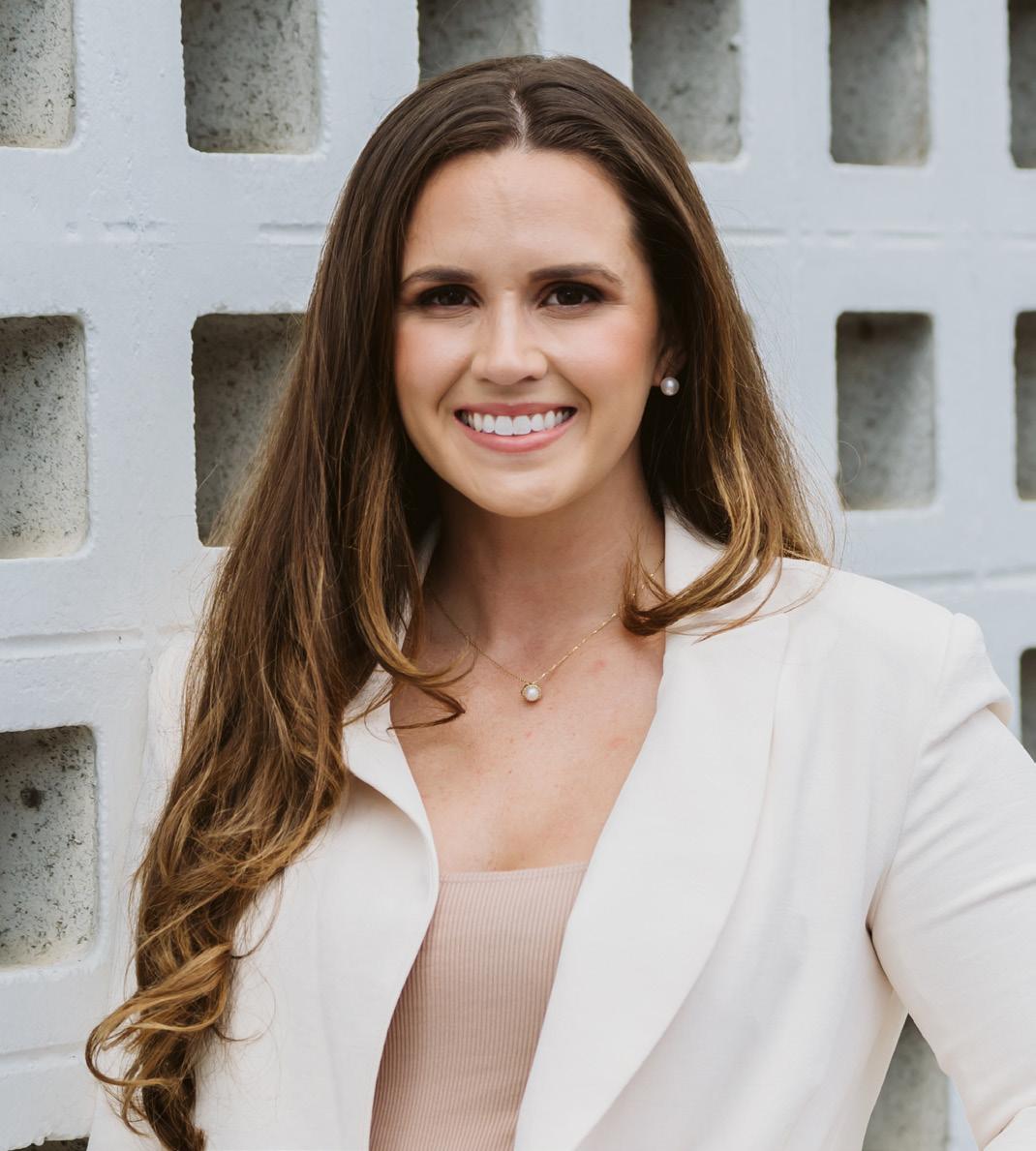
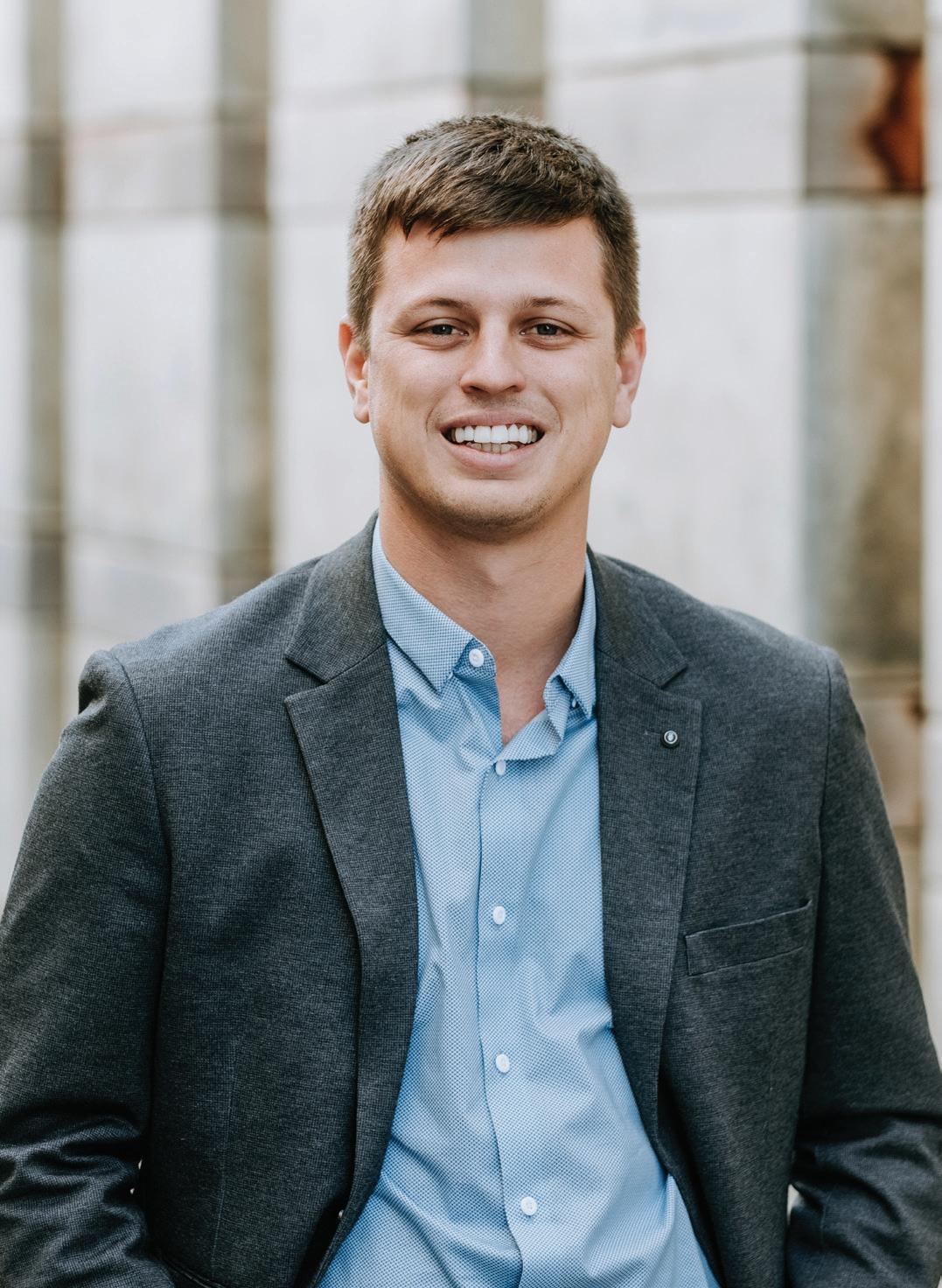



In his free time Chris serves on the board of directors for the Family Network, serves on the Springdale Planning Commission and can be found cheering on the Razorbacks.
he has played a pivotal role in the development and growth of the company’s revolutionary product suite through his technical expertise and ingenuity. His involvement has been crucial in establishing INFORM Branded Calling as an industry-leading solution.
two boys for seven years and enjoys hiking, soccer, playing piano and beating any challengers in Lord of the Rings trivia.
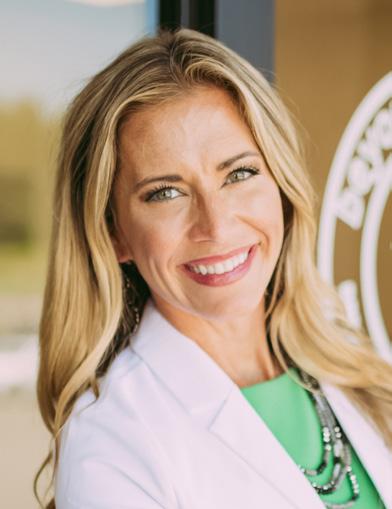
Christa Jackson, a distinguished nurse practitioner, is celebrated for her dedication to holistic health care. She graduated as a registered nurse in 2010 from the University of Arkansas for Medical Sciences in Little Rock and went on to earn a Master of Science in nursing in 2015. Jackson has consistently demonstrated her commitment to integrating holistic approaches into her practice, enhancing patient care and outcomes. With a profound understanding of both conventional and alternative medicine, she has become a leading advocate for comprehensive health strategies that address the physical, mental and emotional well-being of her patients. Her innovative practices and compassionate care have set a new standard in the health care community, earning her recognition as a forward-thinking professional dedicated to improving lives. Jackson firmly believes in listening, educating and empowering her patients to protect and restore their health. Specializing in a range of areas, including weight management, peptide therapy, hormone therapy, laser therapies, body contouring, micro-needling, radio frequency micro-needling, hair restoration, joint injections and injectables, Jackson finds further fulfillment in her work when she can integrate her faith into her practice. Her exceptional contributions to the field have not only improved the quality of care for her patients but have also inspired her peers and the next generation of health care providers.
Aaron Jacobi, associate director of software engineering at First Orion, relies on hard work and a sharp intellect to help transform the mobile call experience.
Since joining First Orion in 2018,

Jacobi has also been instrumental in establishing First Orion as a leader in innovation, helping the company acquire five patent grants and submitting nine additional patents (pending approval). He led and was a key engineer in enabling enterprise companies to manage their business and calling programs. In addition, he and his team developed a platform that gives small and medium-sized businesses access to prepaid branded calling plans — the only platform of its kind in the industry.
Beyond his technical contributions, Jacobi’s friendly nature and quick intellect continue to make a lasting impact. Today, he leads a team of engineers and architects dedicated to bringing new features and functionalities to market, and he has cultivated a high-performance work environment that inspires and motivates employees within and outside his team. His leadership fosters transparency, trust and mutual respect, enabling employees to excel in their roles and achieve business goals and personal growth.
Hudson Jones’ life mission is to develop and empower leaders to operate to their fullest potential. While he works as business development manager for Elite Movers in central Arkansas, his goal is to also help individuals move toward a position of maximum impact in life.
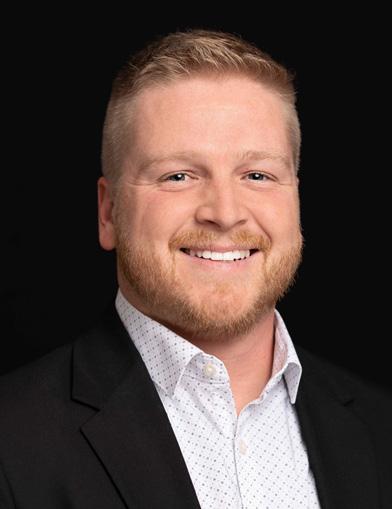
Jones strives to be a master connector and the person people think of first when they want to build effective business networks in Arkansas. He serves as an ambassador for the Little Rock Regional Chamber and North Little Rock Chamber of Commerce and has a goal of building strong relationships with local business owners and leaders in the metro Little Rock region.
As a success coach for Business Network International, Jones loves helping people see a clear vision of what the future could be and inspiring them to take the next step within their networking community. He has lived in Conway with his wife and
As the oldest of two children, Jamie Jones always felt a strong sense of responsibility and drive. After graduating from Texas High School in Texarkana, Texas, in 2010, she earned an associate’s degree in psychology from Texarkana College in 2015 and a bachelor’s degree from Philander Smith University in Little Rock, where she moved in 2016 to join the hospitality industry as a guest services manager for Hilton Hotel Group. Her knack for making guests feel welcome and her enthusiasm for excellence quickly set her apart.
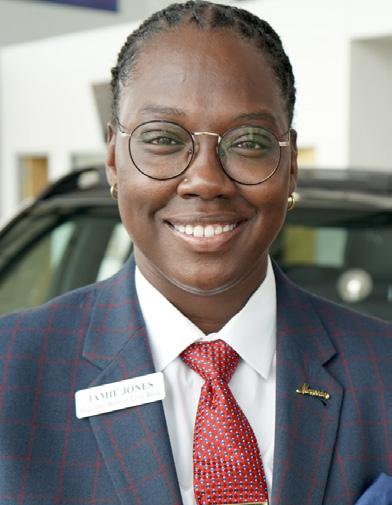
In 2020, Jones decided it was time for a new adventure and switched gears to join the sales team at Mercedes-Benz of Little Rock. Her talent and charm shone through, and she was soon recognized as the top sales representative for Mercedes-Benz of Little Rock from 2021 to the present. Her genuine care for her clients and her drive to go above and beyond have made her a star in the showroom.
Jones’ life philosophy is about grabbing every opportunity with both hands, no matter the size, and doing everything with sincerity and a thirst for clarity. She is all about living each moment to the fullest and encouraging others to do the same. Her positive energy and commitment to making a difference are truly infectious. Jones is chasing new dreams by pursuing a master’s in business administration. Her journey of personal and professional growth is a testament to her dedication and zest for life.
Kayla Jones is Stone Bank’s vice president and loan operations manager for the Harrison branch. Jones has been with Stone Bank since 2016 and has worked as a loans operations specialist
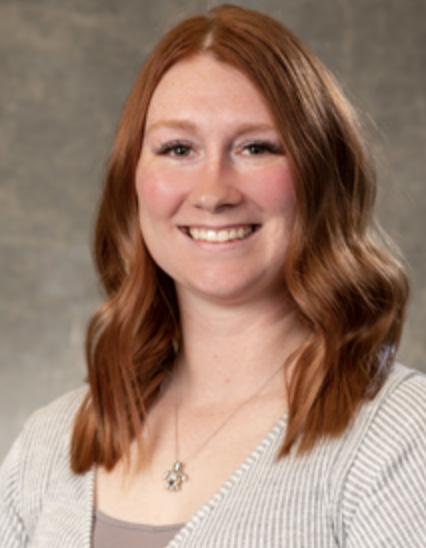
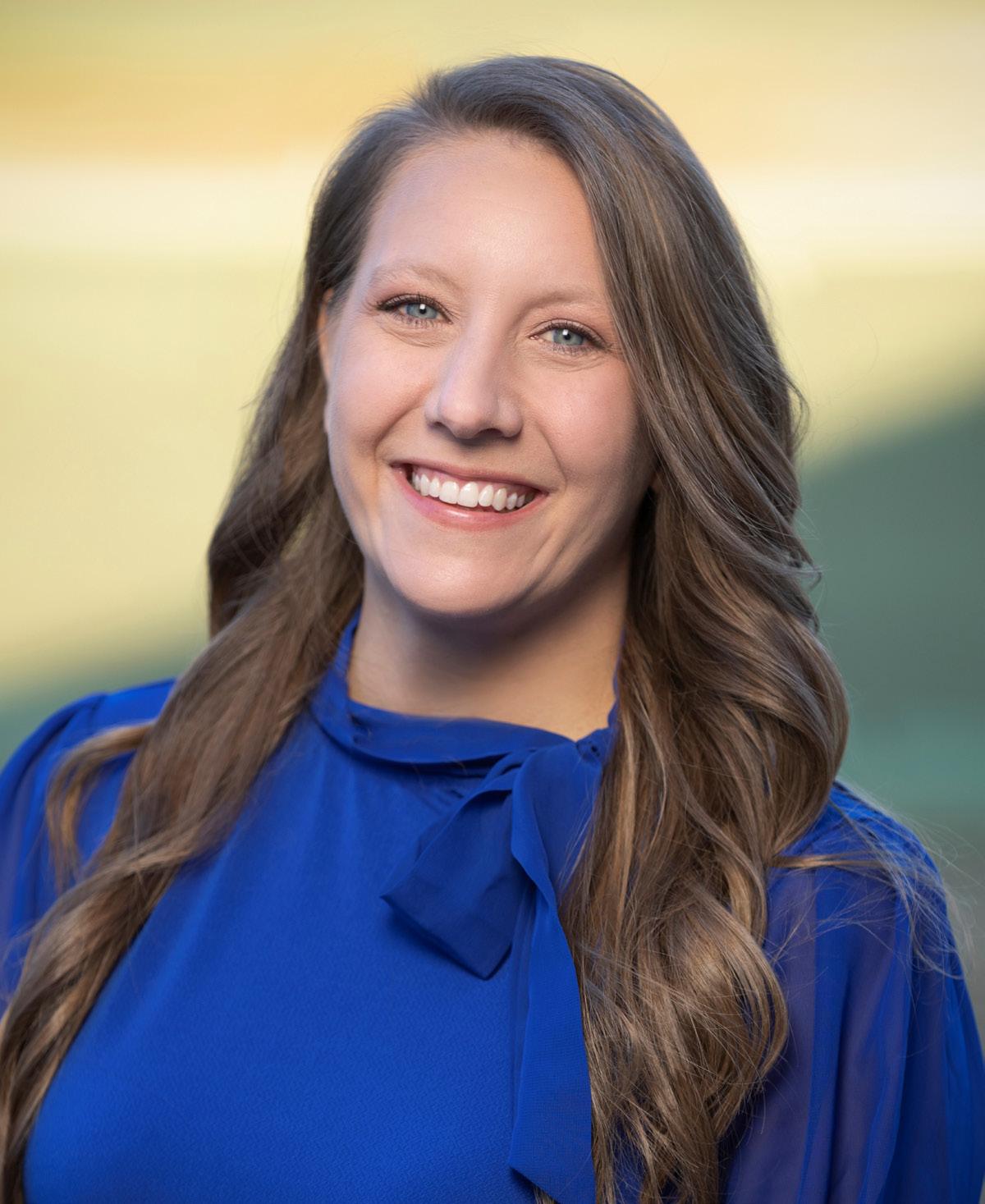

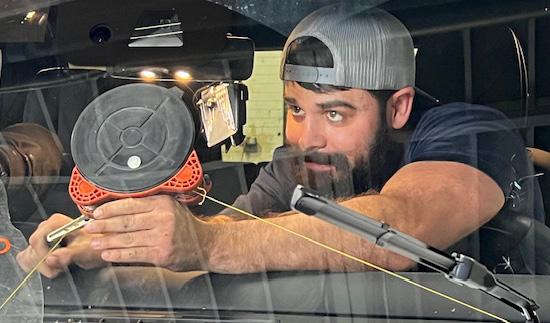


and a loan operations assistant manager. In 2020, Jones assumed her current role, in which she is responsible for managing day-to-day lending operations and overseeing the loan operations department. Jones earned an associate’s degree in business administration and management from North Arkansas College in Harrison and is a 2024 graduate of the Boone County Leadership Institute, a program through the Harrison Regional Chamber of Commerce.
NEA Baptist
Lexicon
Emily Keith, director of analytics at Lexicon, graduated magna cum laude from the University of Northern Iowa with a Bachelor of Arts in accounting. From a young age, Keith was involved with numbers.
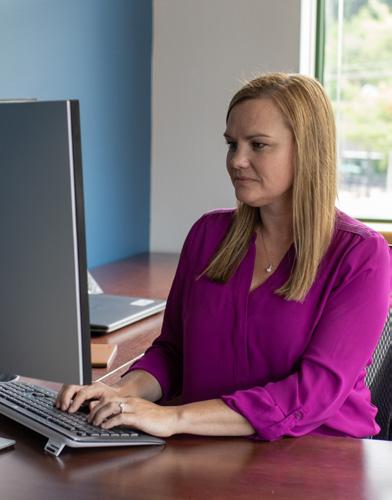
With the possible exception of the giant beasts they sit upon, bull riders often steal the spotlight. Noah Krepps aims to change that as a professional bullfighter who ensures the riders live to compete another day.

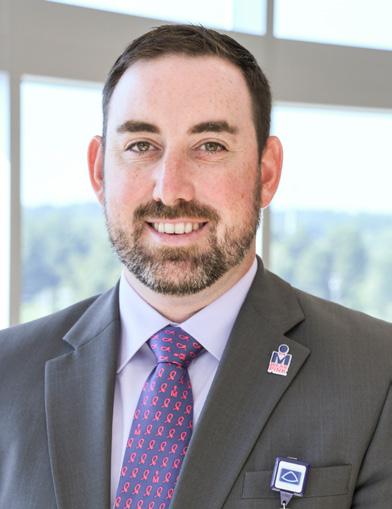
As a dynamic marketer and compelling storyteller, Ty Jones oversees the advertising and communication strategies for NEA Baptist Health System and the NEA Baptist Charitable Foundation. The 17-year marketing veteran holds a bachelor’s degree in business administration from Williams Baptist University in Walnut Ridge and a Master of Business Administration from Columbia Southern University in Alabama. With the help of an awardwinning creative staff, Jones successfully achieves growth for key service lines and new providers, along with providing accurate and timely responses to public relations needs.
He relies on a combination of creativity and an intense focus on the customer to create memorable advertising campaigns that brand NEA Baptist as a statewide leader in safety and culture. As an avid outdoorsman, Jones also directs the marketing efforts for the Duck Classic, the signature fundraising event for the NEA Baptist Charitable Foundation, which raises more than $825,000 annually.
Jones serves as a board member for the American Red Cross and the Craighead County Community Foundation. He is also an active member in Jonesboro Young Professionals Network, Paragould Emerging Professionals and the American Advertising Federation. Prior to arriving at NEA Baptist in 2019, Jones served as a professor of business at Williams Baptist University and was responsible for recruiting and establishing the men’s and women’s golf programs.
“My mom did the books for the grocery store my parents had in Iowa, and she had me help her with bookkeeping. I just thought it was cool, and I enjoyed it,” she said.
Keith started off her career working for Flowerama of America as an accounting clerk. After years of increasing responsibility and experience, Keith joined Lexicon in 2022 as a corporate analyst. In September 2023, Keith was promoted to director of analytics. Currently, Keith manages an analytics team devoted to obtaining valuable insights that helps fuel Lexicon’s business growth. “What we do is try to take pieces from all different areas and then put them all in a scorecard to see how we are doing on the project. Whether it’s schedules, financials or man hours, there are multiple systems we can pull from to make metrics that are meaningful for someone to see.”
Under her guidance, Lexicon has built an analytics team that aids in the company’s development, decision-making, efficiency and automation. Her leadership has driven the analytics team to new heights, and her expertise in data keeps Lexicon moving forward as a company. “I really appreciate that Lexicon is investing in people, investing in technology and wanting to push that technology forward,” she said.
Apart from managing an analytics team, Keith is also a devoted wife to Jason and mother to Gavin and Ledger. “I think it’s really important to have a work-life balance, and Lexicon has given me the flexibility to do just that. I may have to take my child to a doctor’s appointment, but as long as I get my work done, they appreciate me, and they’re good with it.”
Hailing from Little Rock and Jasper, the native Arkansan continues to push boundaries and garner respect for an often-overlooked rodeo profession.
Discovered at 17, Krepps was signed to a professional team, and within weeks, he found himself in the arena competing at the highest levels of American Freestyle Bullfighting in Las Vegas. Freestyle bullfighting is a man-versus-animal event where bullfighters showcase their dazzling skills, such as jumping over bulls. Within a year, he captured numerous championships and a world title.
In 2019, a near-fatal injury threatened his career, but Krepps returned just four months later to secure another world title, exemplifying his resilience.
Now 25, he works from coast to coast, safeguarding riders for the Professional Bull Riders and the Professional Rodeo Cowboy Association. His fearless bullfighting can be seen live on the Cowboy Channel and PlutoTV, where Krepps continues to redefine what it means to be a bullfighter.
“It’s more than a career. It’s a lifestyle that chose me,” he said. “I truly believe I was born to be a bullfighter.”
Justin Lareau, vice president for analytics and IT for Lexicon, graduated from the University of Arkansas in Fayetteville with a Bachelor of Science in business administration: finance. During his time at the university, he was involved in Leadership Walton, Emerging Leaders, Kappa Sigma Fraternity and the dean/chancellor’s list. He started his career at Vestcom,
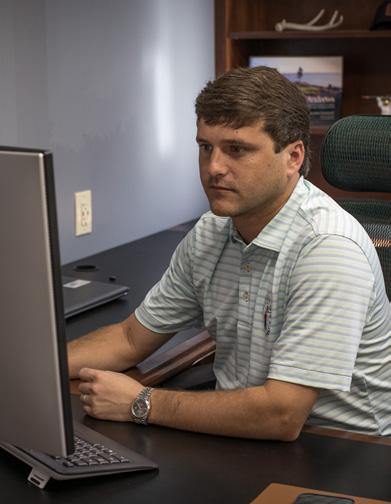

@cbrpmgroup
@coldwellbankerrpmgroup
cbrpm.com | 501-664-1775






Nichole
water in the nation. Cheers to Nichole for being a shining example of high-performance within the water industry.





“It’s more than a career. It’s a lifestyle that chose me. I truly believe I was born to be a bullfighter.”
With the possible exception of the giant beasts they sit upon, nothing rivals the bull rider’s popularity in rodeo lore, not even, ironically enough, the bullfighters who ensure the rider lives to compete another day. Noah Krepps aims to change that as a professional bullfighter.
Hailing from Little Rock and Jasper, this Arkansas native continues pushing boundaries and garnering respect for an often overlooked rodeo profession.
Discovered at 17, Krepps was signed to a professional team, and within weeks, he found himself in the arena competing at the highest levels of American Freestyle Bullfighting in Las Vegas. Freestyle Bullfighting is a man-versus-animal event where bullfighters showcase their dazzling skills, like jumping over bulls. Within a year, he captured numerous championships and a world title.
In 2019, a near-fatal injury threatened his career, but Krepps returned four months later to secure another world title, exemplifying his resilience.
Now 25, he works from coast to coast, safeguarding riders for the Professional Bull Riders (PBR) and the Professional Rodeo Cowboy Association (PRCA). His fearless bullfighting can be seen live on the Cowboy Channel and PlutoTV, where Krepps continues to redefine what it means to be a bullfighter.

JBy Mark Carter
illian Wilson’s life was not necessarily mapped out in advance, but when one comes from a family of attorneys, “going to law school was a surprise to absolutely no one.”
Wilson’s father, the late Robert Wilson, founded what is now one of the state’s largest group of lawyers, the Little Rock-based Wilson Law Group, which is comprised of Wilson & Associates and Attorney’s Title Group.
Wilson, who grew up in Little Rock, said she knew early on that her path would lead to the family business. Her mother and brother are also attorneys, and her late grandfather was a lawyer, as well.
“My dad started our firm, so I got to watch him build it, and learning about that really fascinated me,” she said. “I have a memory of asking my parents what I needed to do to run the firm when I was maybe 8 or 9, so I’ve known I wanted to be involved for about three decades.”
After obtaining her undergraduate degree from George Washington University in Washington, D.C., Wilson came home to attend law school at the University of Arkansas School of Law in Fayetteville. She earned a Juris Doctor in 2013, and two years later, following an externship with the real estate legal department at Walmart corporate, she joined the family firm.
Wilson made partner in 2019 and was named co-managing partner for Wilson & Associates in 2022. (Her brother, Robert Wilson III, is the comanaging partner for Attorney’s Title Group.)
Wilson said she earned a Master of Business Administration from UA’s Sam M. Walton College of Business in 2023 “because I knew I needed new tools if I wanted to be effective as a manager of a large law firm.”
When asked about the challenges she faces leading a large firm that specializes in real estate and mortgage banking law, Wilson quipped, “Let me think of something about my practice that isn’t a challenge.”
She said the firm’s practice is extremely regulated and subject to ebb and flow of politics, so part of her role is to ensure that clients are following the letter and spirit of the law. Doing so, she said, “creates a labyrinthine process when representing various large, sophisticated institutions with their own ideas of how they want legal services performed.”
The real challenge, she added, is that the processes are constantly changing based on new regulations, new regulations and new best practices developed and disseminated by firms like hers or legal associations in which the firm takes part, all of which is compounded by a highly competitive market.
“We have no choice but to be nimble, adaptive and capable of predicting what’s next,” she said. “On top of that, default work is only one area of the law we practice, so ensuring our firm has a balanced mixture of practices is a challenge when thinking about resource allocation and demanding the highest level of service.”
Wilson was not handed the keys to the corporate office. She joined the firm as an associate attorney, and the experience of working her way up the chain of command has paid dividends, she said.
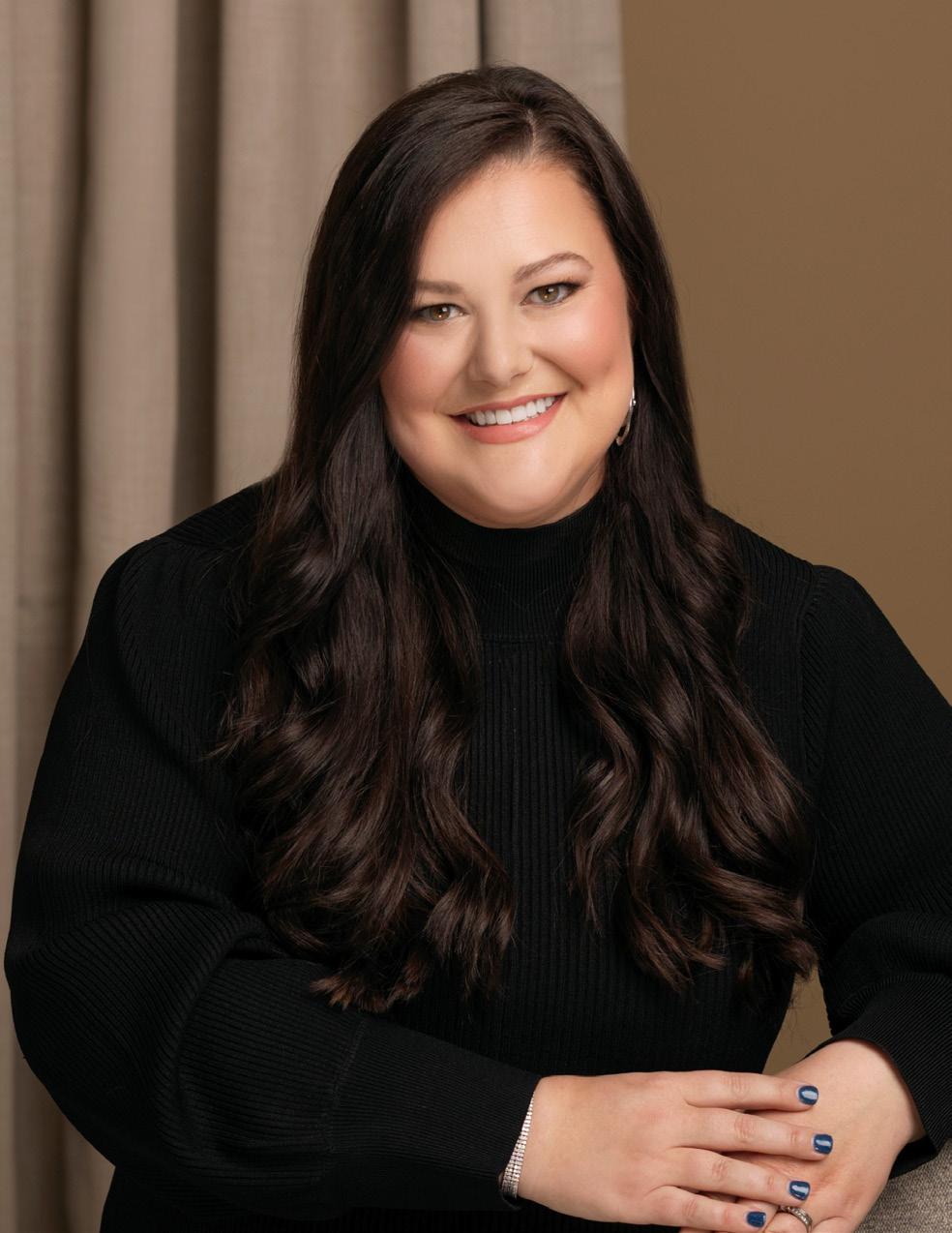
“Moving from the weeds to the trees is a monumental change to my daily practice,” she said. “I was certainly still focused on managing a team previously, but thinking about the firm as a whole presents a very different set of issues and job practices. It’s so important to be present, listen, and encourage our employees, associates and partners. I really think Wilson provides a great work experience because we really think about the best ways to invest in our people. They are spending a huge percentage of their daily lives with us, and that time should be fulfilling and meaningful. Many times, we can achieve that through the exchange of ideas in both directions. We’ve learned a lot from our employees that helps us better guide the firm.”
Of all her responsibilities, Wilson said she relishes most the opportunities to strategize and plan.
“I love the strategy that goes into our practice and our vision for the future,” she said. “Taking plans and goals and turning them into action is very exciting to me because that’s how the firm is going to grow. We are very focused on how we move forward, especially after the shock to our system that was COVID-19. We have to be extremely thoughtful about our practice, and putting all of that together into something that works is challenging, but it’s also pretty fun to see it come together.”

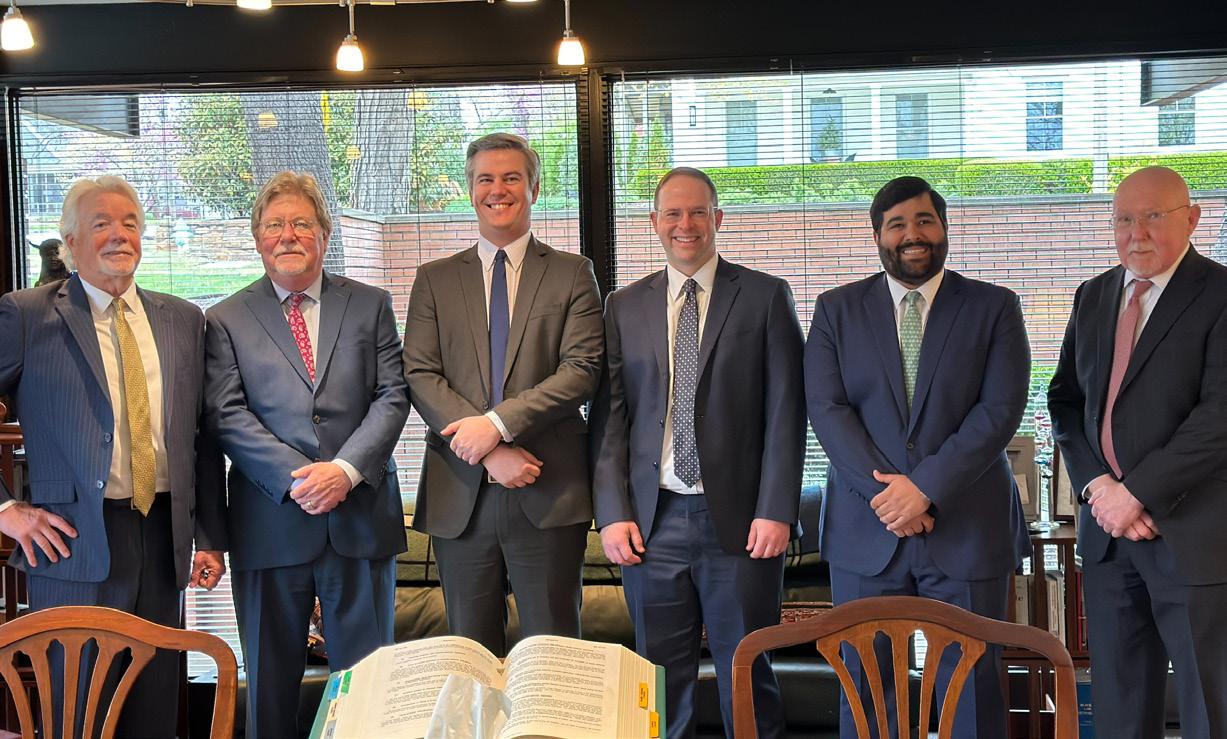
Scott
Matthew

ultimately attaining the role of accounting manager. Lareau joined Lexicon in 2020 as a corporate analyst.
“The most significant event that accelerated my career and growth was moving to a steel mill construction site in Brandenburg, Kentucky, to assist our Lexicon Industrial Constructors team with Building America,” he said.
On the site, Lareau learned a great deal about the construction world and, most importantly, about people — what is valuable to them and how Lexicon can support them from the corporate side.
“It’s amazing, actually, to understand the different perspectives you get from people when you’re actually out in the field,” Lareau said. From there, he became director of analytics, using data to improve Lexicon’s operations and productivity. His experience and contributions to the company’s innovation and efficiency earned him the position of vice president of analytics and IT in 2023. His energy, initiative and ability to evaluate a situation and come up with solutions has made him a driving force in Lexicon’s meteoric success.
Outside of Lexicon, Lareau is involved in the Construction Financial Management Association, where he serves as vice president, and devotes volunteer time to Our House in Little Rock. He is a devoted husband to Mallory and father to Gregory and Olivia, saying, “I wouldn’t be where I am today without Mallory’s support and encouragement.”
Arkansas Game and Fish Foundation
more than $1.25 million to support the Arkansas Game and Fish Commission. The foundation consistently collaborates with the commission to ensure the future of quality hunting, fishing and outdoor recreation in Arkansas. Notably, the Arkansas Outdoor Hall of Fame Banquet, attended by over 1,600 people each year, honors individuals who have significantly contributed to the enhancement and enjoyment of Arkansas’ outdoor resources and conservation education.
Established in 1982, the Arkansas Game and Fish Foundation is a nonprofit organization committed to supporting the mission of the Arkansas Game and Fish Commission. The Foundation organizes diverse events, including fundraising banquets, golf tournaments, trap tournaments and fishing tournaments, which ensures broad participation and support for conservation efforts.
chair of the student activities committee for 2019-2020 and sat on the board of governors from 2021 to 2022. She is currently the chairman-elect for studioMAIN, a Little Rock nonprofit that collaborates to advocate for innovative design and engaging the community through design.
Maverick USA
Pinnacle
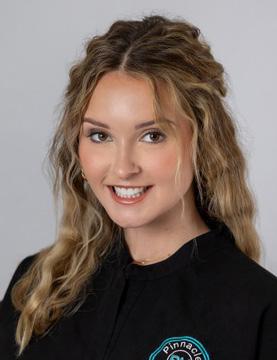
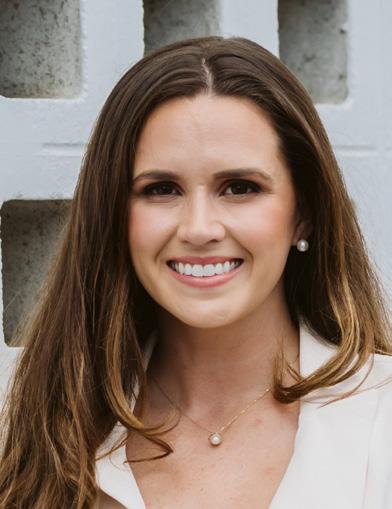
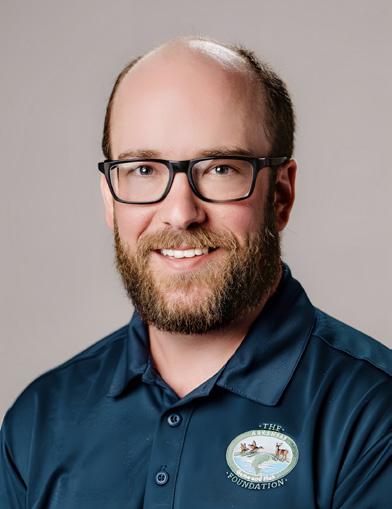
Born and raised in Arkansas, Tyler Lawrence spent most of his youth in Pangburn near the Little Red River. He earned a Bachelor of Business Administration degree from the University of Central Arkansas in Conway. Before joining the Arkansas Game and Fish Foundation, he served as regional director at the National Wild Turkey Federation for three years. With a lifelong involvement in the nonprofit community, Tyler is also a longtime hunter and angler.
In his current role as director of events and programming at the Arkansas Game and Fish Foundation, Tyler plays a pivotal role in organizing events that attract over 6,000 attendees annually, raising
Fallon Lee is a principal and mechanical engineer at Insight Engineering. She has experience in commercial, higher education, K-12 and health care projects. She is a registered professional engineer and a graduate of Arkansas State University in Jonesboro with a Bachelor of Science in mechanical engineering. Lee has worked on projects ranging from HVAC equipment replacements to new commercial buildings and existing facility renovations for buildings of all sizes.
The inspiration behind her hard work is a desire to change the world for the better. That may seem a daunting task, but Lee believes working on projects that improve Arkansas communities is one of the best ways to make a difference. The new Arkansas Symphony Orchestra Stella Boyle Smith Music Center in Little Rock and the Artspace Windgate Campus in Little Rock are two examples of such projects because of their direct, positive impact on the community. Lee is also passionate about inspiring other young women and girls to become engineers. She is an active member of the American Society for Health Care Engineering and the Arkansas Chapter of the American Society of Heating, Refrigeration and Air-Conditioning Engineers, where she was named outstanding
Dr. Allison Mabry is a dedicated audiologist at Pinnacle Hearing in Little Rock and is celebrated for her role in serving patients from rural communities in Arkansas. Following the completion of her residency at Pinnacle Hearing, she officially joined the team full time in May, having earned her doctoral degree from the University of Arkansas for Medical Sciences in Little Rock. Originally from Lonoke, Mabry is deeply committed to enhancing the hearing health care landscape throughout the state. She plays a pivotal role in the Pinnacle Hearing Giveback Program, where she generously provides community hearing screenings to residents across Arkansas. Mabry’s passion lies in educating patients about hearing loss and hearing health. She embraces the ever-evolving advancements in prescription hearing aid technology and is dedicated to leveraging every available resource to improve her patients’ quality of life.
AcreTrader
Martinez Sports Cards
Ashley McBride
AARP Arkansas
When AARP hired Ashley McBride as Arkansas state director in 2022, Sam Wilson, the organization’s regional vice president, called her a strategist and change agent. Already a vet-
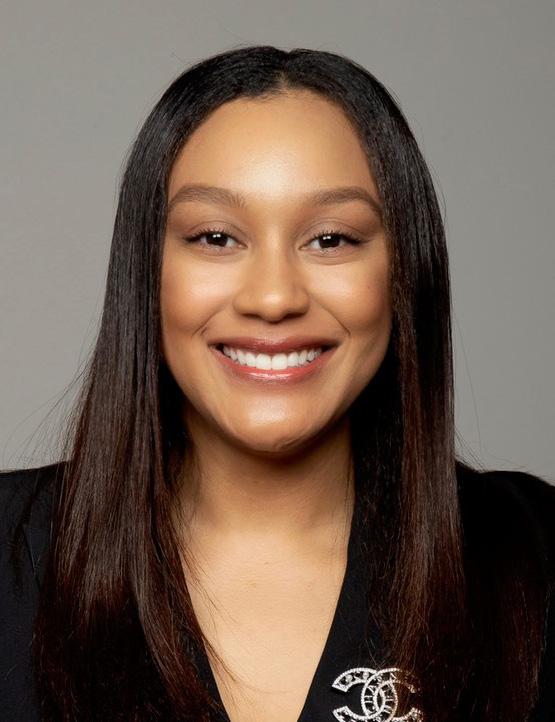


Conway Regional Health System congratulates our Director of Marketing for being named one of Arkansas Money & Politics’ 2024

eran of the nonprofit field when she took the reins of AARP’s Arkansas operations, McBride has led strategic change wherever her career path led her.
Prior to joining AARP, she served as director of education for the American Indian Center of Arkansas. In that role, she created a digital platform and established the Accessing Choices in Education program. Her efforts were recognized by the U.S. Department of Education, and her program was ranked as one of the top five ACE programs in the nation.
As director of mission and education for the Arkansas chapter of the Susan G. Komen Foundation, she traveled across Arkansas and Texas to educate and increase awareness about breast cancer.
The Little Rock native also served as assistant professor of biological sciences at New Life Church College in Conway, Arkansas Baptist College in Little Rock and Grambling State University in Louisiana, and she led the STEM program at the University of Colorado Denver.
McBride earned a Bachelor of Arts degree in Spanish/pre-medicine from Spelman College in Atlanta and a Master of Science degree from the University of Colorado Anschutz Medical Campus. Her scientific research focused on neurological diseases and their effects on the human body, specifically Alzheimer’s disease. Her philanthropic efforts include organizing grassroots campaigns and providing access to competitive careers through college preparation, trades, certifications and skill development for the 50-plus community.
Synergetic Social
Ashley Missile
Visit Hot Springs
Marshall Moon
Meridian Investments
wealth management. He prioritizes providing a healthy and open environment so that current and prospective clients feel heard and can be vulnerable about an emotional topic like money. In his current role, Moon serves as a trusted partner to clients, leads Meridian’s investment strategy team and is responsible for the company’s equity research initiatives and portfolio management. In his day-to-day role, Moon enjoys helping people become comfortable with their financial well-being and giving them the confidence to use their resources to live the life they always dreamed of living. He understands that everyone’s financial journey is unique to them, and prides himself on being openminded while providing tailored advice. A graduate of the University of Central Arkansas, Moon earned a degree in finance before joining the Meridian team in 2015. Moon earned his Certified Financial Planner® designation in 2020.
Alzheimer’s Arkansas
Blytheville Police Department
Conway Regional
Feather Parrish is operations coordinator for Bryant’s Elder Independence Home Care.
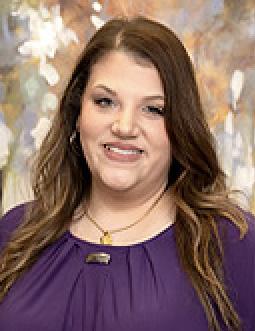
A Little Rock native who graduated from Joe T. Robinson High School in Little Rock, she earned a bachelor’s degree in finance from the University of Arkansas at Little Rock.
Parrish initially pursued a law degree but quickly discovered that her career path was about to change. While in law school, she landed a job in the business consulting, taxes and financial field. That position allowed her to assist the elderly with stewarding their resources so they could afford to stay at home. For five years, from age 18 to 22, she was the caretaker for her grandfather. That helped her realize her true calling — that she had a heart for helping others.
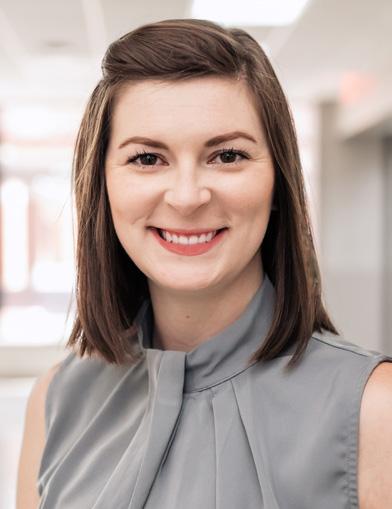
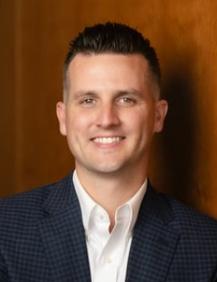
Marshall Moon is a senior investment advisor and chief equity strategist at financial advising firm Meridian Investment Advisors, based in Little Rock. Whether working one-on-one with clients or overseeing the company’s investment process, Moon relishes the opportunity to blend the art and science of
Currently serving as director of marketing at Conway Regional Health System, Lauren Norris is responsible for increasing brand recognition and spearheading advertising campaigns for all service lines. With a bachelor’s degree in graphic design from Arkansas Tech University in Russellville and a master’s degree in business administration from the University of Arkansas at Little Rock, Norris is a dynamic professional known for her expertise in blending creativity and analytical thinking. Having experience in two seemingly opposing fields, art and business, she has honed her adaptability and thrives in challenging environments. Her success as an artist, leader and strategist has equipped her with the skills necessary to thrive in collaborative settings. With a belief that anything worth doing is worth doing well, Norris approaches every task with intention.
Denton Zachary and Norwood Law Firm
In 2017, Parrish crossed paths with Kim Clatworthy and was given the opportunity to pursue that calling. As operations coordinator, Parrish is committed to caring for the elderly and assisting them and their families in the journey of “aging in place.”
Parrish spends her free time with her daughter, Tayler, and has a strong compassion for animals. If her fur babies could speak, they would likely say her heart for helping others extends beyond humans.
Amy Patterson is the vice president of revenue cycle at Little Rock’s Rock Dental Brands, where she excels in developing and implementing revenue cycle strategies, processes and improvement initiatives. With 17 years of experience in the dental field and five years in her current position, Patterson has a proven track record of leadership and innovation. She began her career as a billing specialist at Ocean
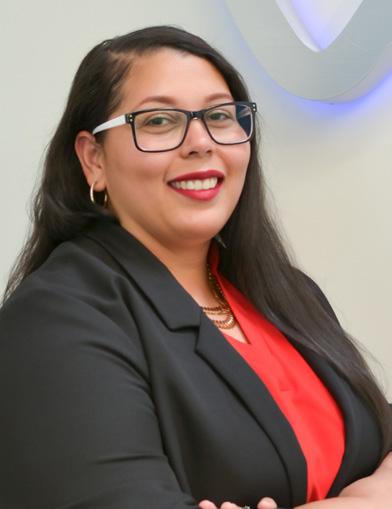

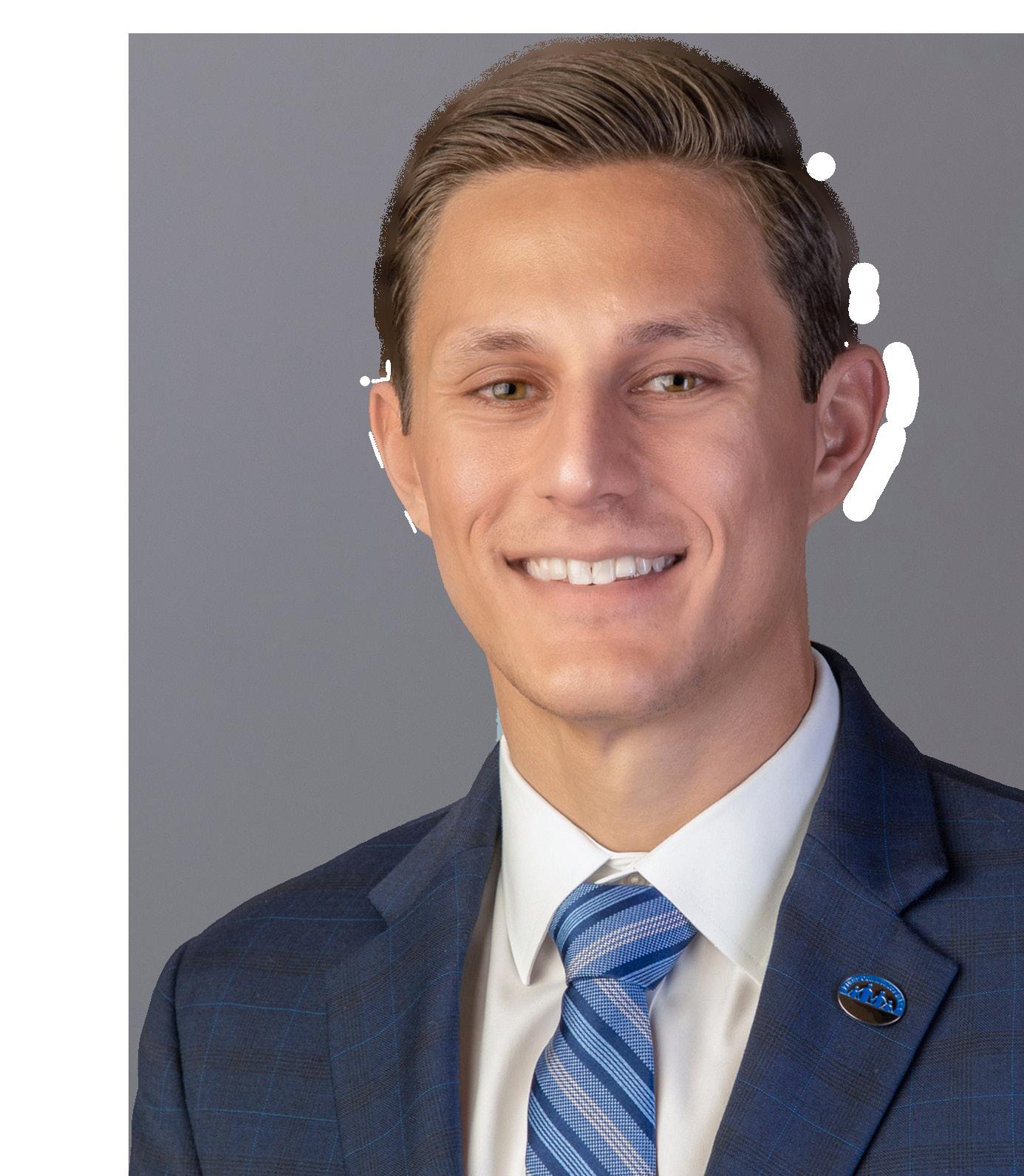
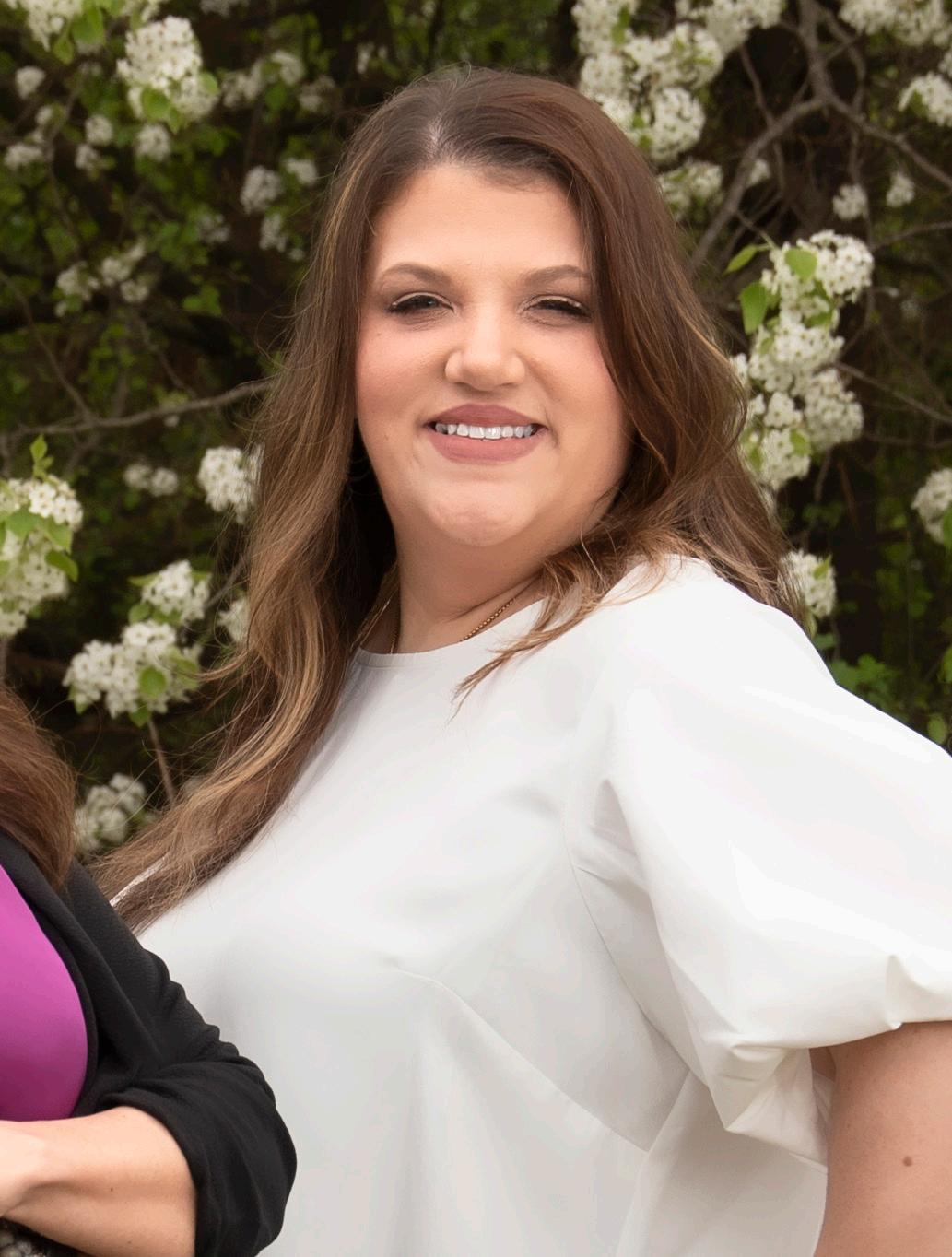
Dental in Little Rock and later advanced to office manager at Bevans Pediatric Dentistry in Little Rock before joining Rock Dental Brands in 2015.
Patterson’s passion for dental care stems from her belief that dental care is essential to overall health. She finds it rewarding to see lives transformed through great oral care. Her greatest accomplishment is successfully developing a revenue cycle management department that exceeds industry standards while maintaining a strong commitment to supporting providers, staff and patients.
Despite challenges such as industry changes and economic uncertainties, Patterson has led her team to adapt and thrive by adhering to Rock Dental Brands’ core values of value, quality, respect and service. She attributes her success to influencing others positively and continuously pursuing daily and lifetime success as inspired by principles from The Go-Giver by Bob Burg and John David Mann.
Patterson has a Bachelor of Science in health care administration from John Brown University in Siloam Springs.
Jones, Jackson, Moll, McGinnis & Stocks
The Orthopedic and Spine Hospital/UAMS
Baptist Health
phia’s Henderson State University. Phelps is a proud member of the nursing honor society, Sigma Theta Tau International. In college, Phelps was president of the student nurses association, a member of the executive leadership team for the UAPB chapter of the National Association for the Advancement of Colored People, a member of the student government association and an executive leadership member of Alpha Kappa Alpha Sorority, Alpha Rho Chapter. Professionally, Phelps said she aspires to become an executive nurse leader who cultivates an expansion of diversity, representation and access in the field of nursing and manages a workplace that addresses and combats health care disparities.
Ouachita Baptist University
Greenbrier Chamber of Commerce
Beyond her professional achievements, Reed’s commitment to community involvement aligns with Farmers & Merchants Bank’s values. She serves on the board of faith-based nonprofit Life Ministries in Prairie Grove, where she contributes to the well-being of those in need.
Reed’s leadership, customer-centric mindset and dedication to her community make her a rising star in the world of community banking. Her journey shows that success in banking lies in the balance between technological advancement and human connection.

Tanisha Phelps is the nurse manager of inpatient behavioral services at Baptist Health Medical CenterNorth Little Rock. She previously served as a registered nurse in the Baptist Health system and for CHI St. Vincent in Little Rock. As an RN in the behavioral health and adult recovery units at Baptist, Phelps served as a preceptor and mentor for nursing students and new team members. She also conducted quality-based in-services to educate staff about safer care practices such as fall prevention, medication administration and unit safety.
Phelps also served as an adjunct clinical instructor for the University of Arkansas at Pine Bluff, where she received her Bachelor of Science in Nursing. Phelps earned her Master of Science in Nursing (nursing administration and education) from Arkadel-
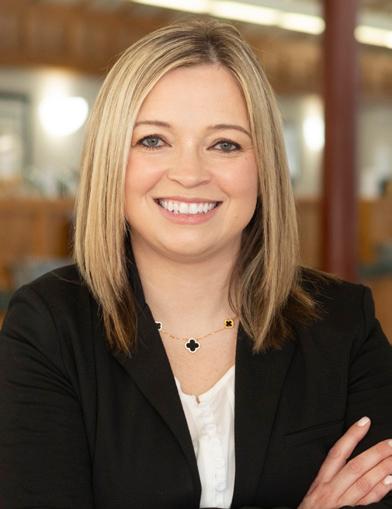
Bethany Reed, vice president of retail operations at Farmers & Merchants Bank, epitomizes community banking. With her unique career journey, Reed brings a fresh perspective to her role, emphasizing the importance of cultivating genuine customer relationships.
A former hairdresser, Reed began her banking career in 2011 as a teller at the Bank of Fayetteville branch in West Fork. Her dedication and leadership skills quickly propelled her through the ranks. After a stint as the Prairie Grove branch manager during the Bank of Fayetteville conversion to Farmers & Merchants Bank, she took on a larger role in northwest Arkansas, overseeing nine locations. Now vice president of retail operations, Reed represents true community banking by cultivating trusted relationships with her customers.
As a key member of the bank’s culturecentric committee, Reed champions a mission-focused approach informed by data-driven decisions and a tireless pursuit of services that benefit customers. She has played a key role in the successful launch of 40 interactive teller machines, leading cohesive teams and driving innovation while maintaining a human touch.
Garland Rice IV currently serves as the vice president of Beebe’s Stallion Transportation Group. Under the influence of his father, Butch Rice, president and CEO of Stallion, Rice has developed into a strong and highly respected leader in his own right. His understanding of the industry, loyalty to the company’s values, and passion for continued growth and expansion all make him invaluable to the company.
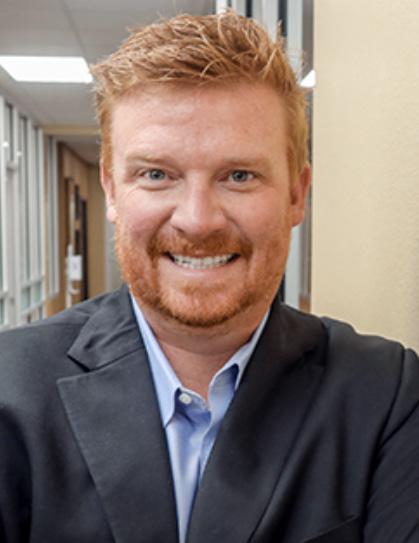
From an early age, Rice worked his way up the company ladder doing grunt work. “Working in the shop and maintaining the grounds was the introduction to my career path,” Rice said. After his teenage years, he began working full-time.
“My first job assignments were working in each department of Stallion for a minimum of three months or until I could complete all functions of that department,” he said.
Now, 20 years later, Rice is an important voice of influence in all major decisions at Stallion. He has become highly skilled in overseeing a variety of different functions, from customer service and freight movement operations to purchasing equipment and negotiating contracts. Most importantly, Rice has learned the importance of leaders surrounding themselves with high quality people. He is proud of the team at Stallion Transportation and is grateful for their knowledge, insight, hard work and loyalty.
As he looks to the future, Rice said he will build on the solid foundation built by his father, ensuring that Stallion has both the people and the tools necessary to keep the wheels turning for many years to come.
Mallory Darby Vice President Mississippi County Economic Development





www.cottontosteel.com
Rock City Digital
The Peacock Group
Arkansas Blue Cross and Blue Shield
Bernhard
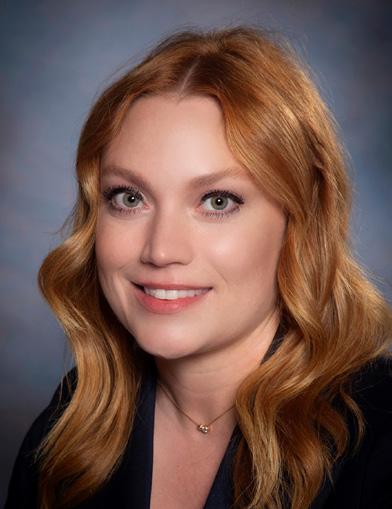
Mallory Rogers joined Arkansas Blue Cross and Blue Shield in Little Rock in 2013 and currently serves as a strategic account executive working closely with clients to understand their industry and business, analyze data and performance metrics, monitor performance and identify trends, and collaborate with internal teams to develop comprehensive, strategic, tailored solutions for clients’ health insurance benefit needs. While at Arkansas Blue Cross, Rogers has served as director of vendor integration and as analyst, supervisor and manager of medical informatics. Developing business relationships to ensure open, collaborative communications in an effort to help clients be successful is her passion. Prior to Arkansas Blue Cross, she served as assistant administrator/social services coordinator for Easter Seals Little Rock’s 40-bed children’s rehabilitation center. She continued to serve as a guardian board member and Butler Adult Living Center Human Rights Committee member at Easter Seals until 2023.
Rogers received her bachelor’s degree in international relations and European studies from the University of Arkansas J. William Fulbright College of Arts & Sciences in Fayetteville and her master’s degree with honors in epidemiology from the University of Arkansas for Medical Sciences Fay W. Boozman College of Public Health in Little Rock. She studied abroad in 2005 at the University of Westminster in London. Rogers graduated magna cum laude and was a member of Phi Beta Kappa, received an undergraduate research fellowship, was a member of Gamma Beta Phi, Phi Kappa Phi, National Society of Collegiate Scholars and on the dean’s list and chancellor’s list for four years at the University of Arkansas.
Ozark Tails
Sam Selig, professional engineer, is senior vice president of renewable energy at Bernhard, where he leads a team of ten in the development of solar, demand response, distributed generation and renewable energy initiatives for Bernhard’s energy-as-a-service projects. Under his leadership, his team has secured contracts for an impressive 42 megawatts of solar energy and 10 MW (26.5 megawatt-hours) of battery storage capacity.
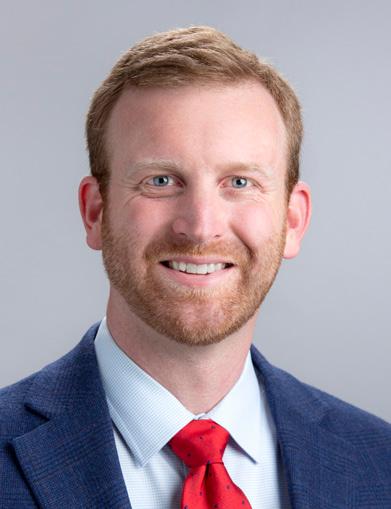
Selig’s strategic focus on health care institutions has not only advanced significant project milestones but has also established Bernhard as a frontrunner in the development of solar and storage solutions across the United States health care sector. With a wealth of expertise in project development, asset management and decarbonization strategies, Selig excels in forging strategic partnerships that are pivotal in meeting and exceeding his clients’ sustainability objectives.
Selig is a graduate of the University of Arkansas in Fayetteville. He currently serves on the board of directors for the Arkansas Advanced Energy Association.
Shadwick Mobile Detailing
Matt Shaw
Capital City Tree Service
CS Bank
Mickey Belle

Shields-Manley is assistant vice president and director of marketing at CS Bank, a $575 million community bank based in Eureka Springs. Her current roles include overseeing all brand, market and community advancements and development. Her passion is to provide those in her community with an accessible, fair and seamless banking experience.
Shields-Manley attended Arkansas
Tech University in Russellville and later went on to the American Bankers Association Bank Marketing School, where she graduated with a certificate in advanced bank marketing and serves as a member of the school’s advisory board. She also is an incoming member of the Arkansas Bankers Association’s emerging leaders council and marketing and member engagement committee. She is currently working toward obtaining her certification in financial marketing. Shields-Manley recently received the ABA’s 2023 Bill Holmes Emerging Leader Award. Most recently, she was part of the team that won CS Bank the Independent Community Bankers of America’s 2023 Best Community Bank to Work For Award.
Shields-Manley is an active volunteer for local nonprofits. She is a chamber ambassador for the Greater Berryville Area Chamber of Commerce, oversees the digital media for New Life Church Berryville and, when not volunteering her time to a community cause, can be found running a marathon somewhere.
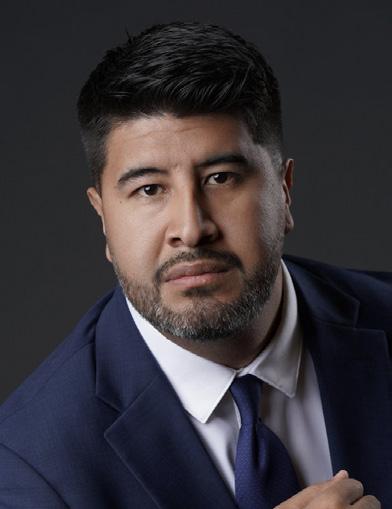
Sierra Group Roofing & Solar Founded in 2017 in the garage of Marcos Sierra, Sierra Group Roofing & Solar has swiftly grown into a leading business in the southeast. Sierra and his wife, Victoria, transitioned from a modest startup to operating out of an 11,000-square-foot showroom by 2020, and further expanded to a 35,000-square-foot headquarters in 2022. The company now employs 30 full-time professionals and continues to uphold its commitment to quality and customer service.
With nearly a decade of experience in business management, Sierra has guided the company to notable success. Sierra Group was honored with the Better Business Bureau’s Torch Award for Ethics in 2019, and the company ranked as the 69th fastest-growing business in the southeast by Inc. magazine in 2023. Marcos was recognized as an emerging leader by the Small Business Administration in 2021.
Deeply rooted in the northeast Arkansas community, Sierra Group hosts annual roof giveaways and engages in various local organizations. Sierra serves on the boards of the Mississippi County Commu-






nity Foundation and the National Latinos in Roofing organization. The company’s expansion into metal manufacturing in 2022 further underscores its growth and commitment to the region.
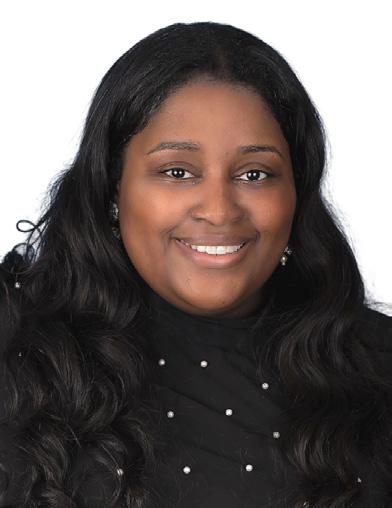
Simone Singh is a seasoned commercial loan officer at Arvest Bank with more than 10 years of expertise in lending and relationship management. Initially joining the bank to fund her film school education, she discovered a deep passion for supporting business owners and their financial needs.
In her current role, Singh excels in assisting clients with their financing and cash management processes. She prides herself on partnering with entrepreneurs to uncover tailored financial solutions that drive their businesses forward.
Singh attended the University of Arkansas at Little Rock and has a degree in mass communications. She also attended the Arkansas Bankers Association Commercial Lending School. Her commitment to professional growth and community involvement is evident through her leadership roles.
Currently, she serves as the president of the Junior League of Northwest Arkansas, where she leads the organization in its mission to foster community improvement and develop women leaders. She is also a founding member of CREW Northwest Arkansas and serves on the young leaders committee of the Urban Land Institute’s Northwest Arkansas chapter.
Kortney Spann
The Women’s Clinic
Jonathan Stalnaker
Weaver-Bailey Contractors
Steele Strauss
Jon Underhill Real Estate
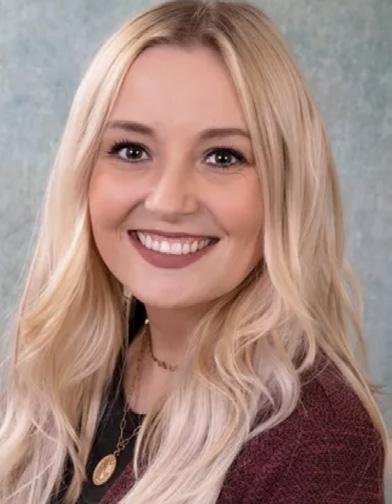
Kendall Stubbs is a Stone County native and a community leader as Stone Bank’s vice president of retail operations and Mountain View branch manager. In her role as branch manager, she has led sales efforts that have resulted in a $30 million increase in deposits in her market. Stubbs has a bachelor’s degree in business management from Western Governors University in Utah and was recently recognized by the Arkansas Bankers Association as an emerging leader in the industry. She also was recently named to the business technology advisory council at Ozarka College in Melbourne and leads a group at the bank called Rock Stars, who are responsible for keeping Stone Bank employees engaged at all levels of community service in Stone County.
Melissa Sutton has been in banking for 15 years, 13 of which have been at Stone Bank. Since being employed by Stone Bank, she has worn many hats working in several different departments such as accounting, credit, farm service and accounts payable, but human resources is the area that she feels the most passionate about. She has a total of six years of human resources experience and was promoted to human resources manager two years ago. To Sutton, HR is not just about policies and paperwork — it is about people, relationships and having a positive impact on the company.
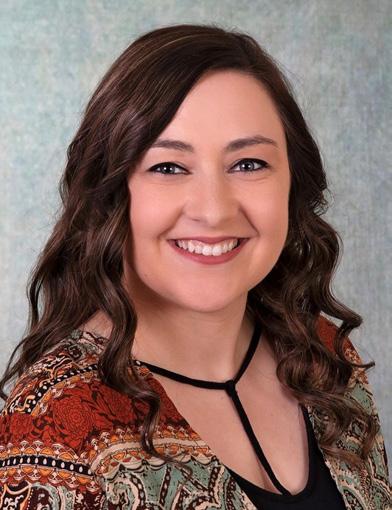
Sutton, a mother to two boys ages 8 and 12, is a 2022 recipient of the American Bankers Association’s Emerging Leader Award. A graduate of Arkansas Tech University in Russellville, she has a bachelor’s degree in management and marketing. She is currently enrolled in Northwest Missouri State University to complete her Master of Business Administration with a concentration in human resources.
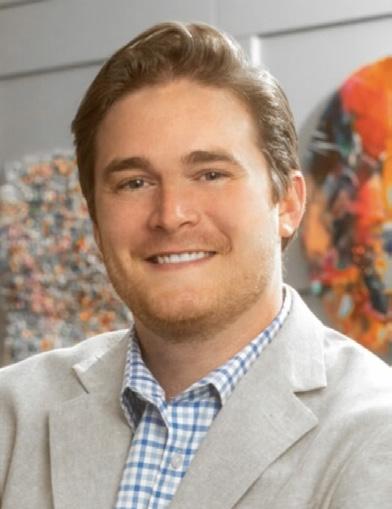
A newspaperman at heart, Caleb Talley won numerous awards for his work as a reporter, photographer and editor at the Times-Herald in Forrest City and AY Media Group in Little Rock before returning to northwest Arkansas to help grow an already thriving startup ecosystem.
A graduate of the University of Arkansas in Fayetteville, Talley returned to the Hill and joined Fayetteville’s Startup Junkie in 2019 as marketing and events director. In that role, he was responsible for planning and carrying out the foundation’s portfolio of events and workshops geared to serve the local entrepreneurial community. It was not long before he was handed the reins of Startup Junkie Foundation. Active in northwest Arkansas’ thriving startup community, Talley has helped create several entrepreneurial television programs that appeared on local public TV.
Talley received national recognition for his work in Forrest City, including multiple Associated Press Managing Editors Awards for best hard news reporting and best news photography.
He then served as editor of AY About You magazine, the state’s largest lifestyle publication, and was the first editor of Arkansas Money & Politics, growing it from an online publication to the state’s largest magazine of its kind.
Talley is now part of the Startup Junkie leadership team working to build the entrepreneurial ecosystem in northwest Arkansas through free consulting services, events, workshops and programs, as well as by providing access to capital and talent.
Sarah Testa
Birch Tree Communities
Jack Thomas
Little Rock Regional Chamber
Chris Thompson
Sobor Sidekick/Empathy Health Tech
Susanna Watt
Anchor Strategies




Austin Watters is a glass man and the son of a glass man. He is a Greers Ferry native who grew up working on cars, boats, motorcycles and ATVs with his father, Jeff Watters, who has also worked for Capitol Glass Co. for more than 40 years. After growing up around the auto glass industry, Watters came to work full-time at the company, which, at 74 years old, is the oldest and largest locally owned auto glass shop in central Arkansas. He quickly became a highly skilled auto glass installer and learned his way around the office and the business side of the company, as well. He also spearheaded bringing Capitol Glass up to the current technology standards of the ADAS calibration industry.
Watters worked his way to general manager after four years and became a partner earlier this year. His responsibilities include running the day-to-day operations in the shop, overseeing the calibration department and helping in the office. Watters is certified in Opti-Aim calibration, Autel calibration and DuPont fixed glass installation. What sets him apart is his commitment to quality work and an unmatched
work ethic. He takes pride in being part of a trusted, locally owned company with such a long history of quality craftsmanship and top-notch customer service.
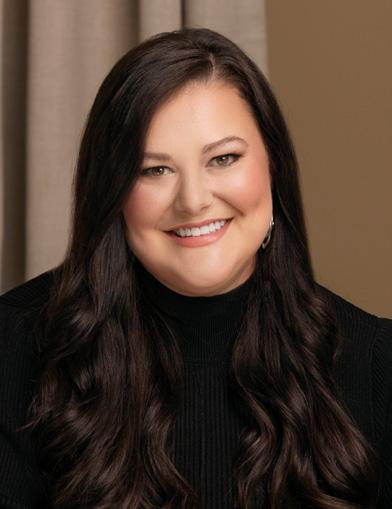
In 2022, Jillian Wilson was named co-managing partner of Wilson & Associates, a law firm founded by her father, Robby Wilson, that practices in Arkansas, Tennessee and Mississippi. For Wilson, taking on a leadership role at the practice, alongside her mother, Jennifer Wilson-Harvey, represents a significant milestone.
“My goal as co-managing partner is to continue the firm’s long legacy by providing outstanding service to our clients, as well as maintain a fulfilling and positive work environment for our staff,” she said.
A member of the bars in Arkansas, Maryland, Mississippi and Tennessee, Wilson received her undergraduate degree from George Washington University in Washington, D.C., her Juris Doctor from the University of Arkansas in Fayetteville and a Master of Business Administration from the UA’s Sam M. Walton College of Business. She is also
a member of the Junior League of Little Rock and currently serves as hair of the advocacy committee.
Named partner in 2019 and appointed to the firm’s executive committee, Wilson made significant contributions to the firm’s growth including by spearheading development of the firm’s Mississippi default practice, establishing the firm’s annual continuing legal education program, and providing support and participation in the firm’s community outreach and involvement committees. She is active nationally in her industry as a panelist and moderator for multiple national mortgage banking events and conferences. Her current focus is on local and national business development.
Actress


Atrailblazer is a person whose shoes others aspire to fill and whose example they seek to emulate. In its newest feature, Arkansas Money & Politics Magazine salutes Trailblazing Women, those who refuse to settle for the status quo or to be boxed in by stereotypes. In our inaugural class, we find entrepreneurs, health care professionals, community servants, promoters, marketers and other warriors on the business front.
Female trailblazers are changing the world right under our collective feet. Statistics show more than 4 in 10 businesses in the U.S. are women owned. Such companies employ almost 9.5 million and generate about $2 trillion in revenue annually. In fact, Small Business Trends reports nearly 2,000 new woman-owned businesses open their doors every day in America, each led by a trailblazer seeking to take destiny into her own hands.
Trailblazers do not generally shine brightest in the majority, however; it is quite the opposite. Consider that just 7 percent of Fortune 500 CEOs are women, and just one-quarter of all executive- and senior-level roles in S&P 500 companies are held by females. Trailblazing women are often the only women in the room, yet with courage and tenacity, they press on for themselves, their families and all who would follow.
The life of a trailblazer is not always easy, nor is the path one all can follow, but for them it is the only way — walking on faith, striving for excellence and working from the heart.
Our neighborhoods, our community and our state are singularly honored to have such women as these among us. These are their stories, which AMP is privileged to tell.


Co-founder and Managing Attorney ARlaw Partners
Vanessa Cash Adams is co-founder and managing attorney at ARlaw Partners, a firm with offices in Little Rock and Fayetteville. Adams graduated from the William H. Bowen School of Law in 2007 and was admitted to the Arkansas Bar that same year. Her undergraduate degree in journalism at the University of Arkansas in Fayetteville gave her a strong foundation in communication, while other essential skills have come through hands-on experience.
ing how to achieve and attain those goals,” Adams said.
In 2020, Adams founded ARlaw alongside her partners Charlie Cunningham, Dustin Duke and Katie Freeman. Over the course of 17 years in private practice, Adams has focused primarily on consumer and business transactions, negotiations and bankruptcy. Splitting her time between the firm’s two offices, the bulk of Adams’ work is spent helping her clients through some of the most difficult times of their lives. Sudden unemployment, medical procedures and divorce are just a few of the myriad unexpected circumstances that can upend a family both emotionally and financially, so Adams’ role is just as much about education as it is about empathy. While her depth of experience allows her to provide the best solutions to her clients, it is Adams’ careful and caring approach that enables clients to take those tools and embark on a new chapter.
”
DON’T TRY TO LIMIT YOURSELF. TRY NEW THINGS. THE MORE YOU LEARN, THE BETTER EQUIPPED YOU’LL BE TO HANDLE THINGS IN THE FUTURE.
In addition to serving clients around the state, Adams spends time investing in the future of her profession both inside and outside the firm. She is past president of the Arkansas Association of Women Lawyers, having served on the board and a number of committees over the years. AAWL raises funds to support women law students, as well as supporting law students preparing for the bar exam or seeking interviews and internships.
With her eager involvement in these and other groups, the Little Rock native embodies the advice she would offer to women getting started in their own careers.
“Don’t try to limit yourself. Try new things,” she said. “The more you learn, the better equipped you’ll be to handle things in the future.”
LAW
“Throughout my career, I’ve had to learn to take nothing personally and to let trivial things go so I can focus on what’s important: figuring out the ultimate goal for my clients and determin-
Adams’ work ethic is matched by her own self-confidence, a trait that can make or break any lawyer, let alone a woman frequently facing male-oriented spaces. Adams credits her mother — whom she described as ”one tough lady” — for teaching her how to be a strong woman and to know her own worth. Now a mother herself, Adams said that being a woman and a mother has profoundly shaped how she approaches her work.
“There have been great changes to how we approach motherhood in the workplace, with things like designated nursing areas for new moms, as well as how PTO and maternity leave is structured,” she said.

Owner / Agent
Brooke Brolo studied criminal justice in college with the intention of going to law school. The death of her stepfather after a four-year battle with cancer set her on a different path.
“After he passed away, we learned that the life insurance policy he owned had lapsed, so my mother started over at age 53 with nothing,” she said. “I witnessed firsthand how not having life insurance can financially devastate a family.”
From then on, Brolo committed herself to making sure people knew the importance of insurance protection. While her formal education did not overlap much with her newfound
professional passion, another piece of her background did.
“Waiting tables and working retail through my college years gave me diverse experience in sales, problem solving and multitasking, as well as in customer satisfaction, which are crucial to running a successful agency,” she said.
Brolo fulfilled her dreams of business ownership by opening Brolo Insurance Group in North Little Rock. An ingrained knack for service and sharp communication skills prove especially useful in insurance, where anxiety over dollar signs can get in the way of coverage decisions.
“It’s difficult at times because people tend to focus more on the price than the protection,” Brolo said. “What’s the purpose of insurance if you don’t have the coverage you need when you need it the most?”
One of the most important lessons Brolo has learned is the power of teamwork — not just leading a team, but trusting them to do the work, as well.
” YOU CANNOT BE YOUR BEST SELF AND DO BIG THINGS FOR YOUR FAMILY AND BUSINESS IF YOU ARE RUN DOWN AND BURNED OUT.
“It takes a lot of trust and willingness to let go, but delegating and hiring to my weaknesses has been a winning combo for quickly growing a scratch agency into a double-digit million-dollar agency,” she said.
Another hurdle is what Brolo called the “dual burden” between career and family. Like many entrepreneurs, she has struggled with work-life balance and has had to be intentional about making space for herself.
“I started scheduling in self-care on my calendar, just like I would an important client or appointment,” she said. “You cannot be your best self and do big things for your family and business if you are rundown and burnt out.”
Also key to Brolo’s sustained success is the network of support she has built, from a tight-knit group of fellow “boss babes” to her husband, Jason, who has helped her realize her business ambitions while raising two sons. Brolo has also always looked to her mother for advice, she said, and their close relationship has been invaluable.
That personal community has given Brolo a strong foundation from which to pour her energy and talents into others. About two years ago, she began mentoring other agents in her field.
“I’ve shared a lot of the same struggles they face, so if I can make a small difference and help them overcome a challenge or obstacle to succeed, it gives me a sense of purpose and fulfillment that I’ve helped make the world a tiny bit better,” she said.

Ashley Bearden Campbell received a piece of wisdom in college that has stuck with her ever since: “What is most personal is most universal.” There is power in vulnerability and being genuine with others, Campbell said, and that drive for interpersonal connection has driven the course of her career.
Campbell started out as an intern at consulting business Impact Management Group in Little Rock 15 years ago. This year, she made company history as the first female to hold the title of partner. Campbell has also recently become the executive director of Arkansans for Improving Maternal Health, an organiza-
tion close to her heart in one of those deeply personal, all-too-universal ways.
“I got involved with AIM after experiencing postpartum mental health challenges associated with my daughter’s premature birth and subsequent NICU stay,” she said. “Being an advocate for other moms became a focus for me, and this role provides me the opportunity to raise awareness around the maternal health crisis and spark change in the way we address access, affordability and quality care for all Arkansas moms.”
Campbell has a passion for making the Natural State a better place to live and raise a family. Both of her roles allow her to put her professional and personal skills to use making that vision a reality.
“Knowing that Arkansas ranks No. 1 in maternal mortality is heartbreaking,” Campbell said, “but it’s incredibly rewarding to be part of something bigger than myself, encouraging others to speak up and knowing we are collectively working to address many of these obstacles.”
” GO WITH YOUR GUT, AND NEVER COMPROMISE YOUR INTEGRITY BY SAYING SOMETHING YOU DON’T BELIEVE IN.
As a lobbyist, Campbell has learned many lessons from working in a male-dominated industry. She has never wanted gender to dictate her career, and she has worked tirelessly to prove herself in the policy world. Her career has also shown her just how important it is to have more women in positions of power and involved in advocacy, politics and leadership.
Not surprisingly, Campbell extolled the value of relationship building when it comes to women in any career, and she has experienced firsthand what a strong community of family, friends and colleagues can do for one’s journey.
“I continue learning from all the women in my life every day, and their guidance has shaped me into the person I am,” she said. “I am so passionate about supporting other women and helping them achieve their goals in any way I can.”
While part of honing her communication skills has meant pushing through nerves and discomfort in challenging situations, Campbell does have one important boundary that can be easily overlooked by those on their way up the ladder. The courage to say no, she said, is invaluable.
“It doesn’t matter if it’s your friend asking for your opinion on something important, pushing back on a client or passing on an invitation. Go with your gut, and never compromise your integrity by saying something you don’t believe in,” she said.
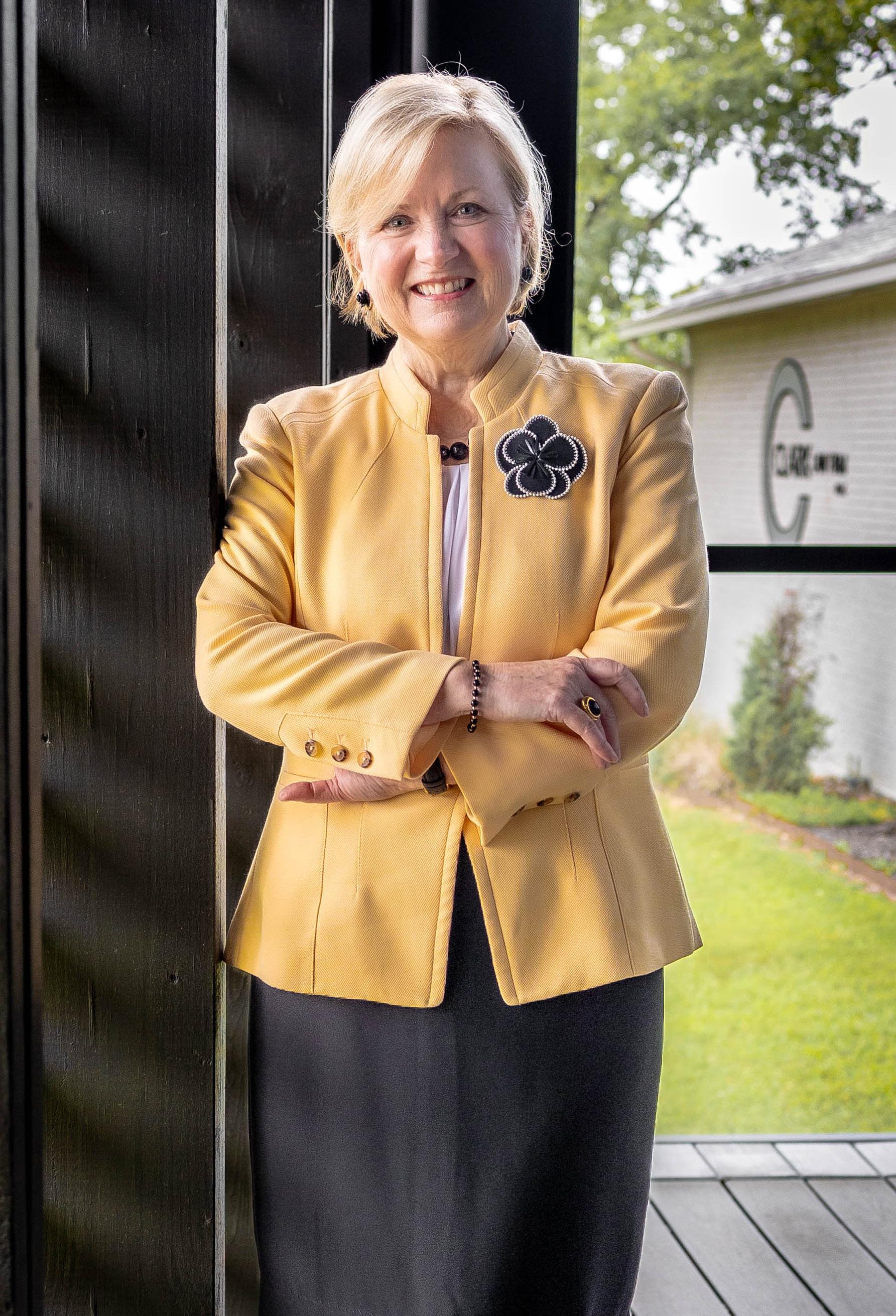
SUZANNE
Owner Clark Law Firm
LAW
In a life too short to do just one thing, Su-
zanne Clark is an example for women everywhere who welcome a change of pace. Clark left her career in chemical engineering after 25 years and started law school in her forties. She now owns Clark Law Firm in Fayetteville, where she primarily works in civil litigation.
“I could have stayed on the corporate track, but I would have missed out on a mountain of time with my family, especially my grandchildren, who give me more joy than just about anything,” she said.
Clark has loved every second of her now 16-year legal ca -
reer, as reflected in her long list of accomplishments and honors. She currently serves at the Arkansas Women’s Hall of Fame and previously served on the boards for Welcome Health in Fayetteville and Fayetteville Public Library.
“Going to law school was a pretty scary decision at the time but one of the best decisions I have made,” Clark said. “Being elected by my peers as the president of the Arkansas Bar Association 10 years later was a great honor. I was also very honored to be appointed to serve as an associate justice of the Arkansas Supreme Court by [former] Gov. Mike Beebe.”
Clark has learned valuable lessons about becoming a successful woman on her own terms. She recommended always putting loved ones before a job. Clark also advised young women starting their careers to dream big and set goals.
”
I’VE LEARNED TO WORK HARD AND STRIVE FOR EXCELLENCE AND THAT IF YOU WANT OTHERS TO NOTICE AND REWARD YOUR WORK, IT MUST BE OF A QUALITY THAT MAKES THEM TAKE NOTICE.
“Trust your gut and stand up for yourself, but do not burn bridges,” Clark said. “Opportunities most often arise through people who know you, respect you and like you. Things will not always go your way, and life is not always fair, so keep your head up and do the next right thing.”
While Clark has been blessed to have several people pour into her professional life, her original mentors were her parents.
“They raised me to believe that I could do absolutely anything and that there is no job worth compromising values or family,” Clark said. “I’ve learned to work hard and strive for excellence and that if you want others to notice and reward your work, it must be of a quality that makes them take notice.”
Clark manages her office by demanding high standards while providing full support for anyone going through difficulties. In 2022, Clark met with challenges of her own after being diagnosed with breast cancer.
“I got through that because I have the most supportive husband and family on the planet, as well as my law partner, Payton Bentley, who carried the ball when my practice took a back seat to my health,” Clark said. “Moving through significant obstacles has always been with the help and support of others.”
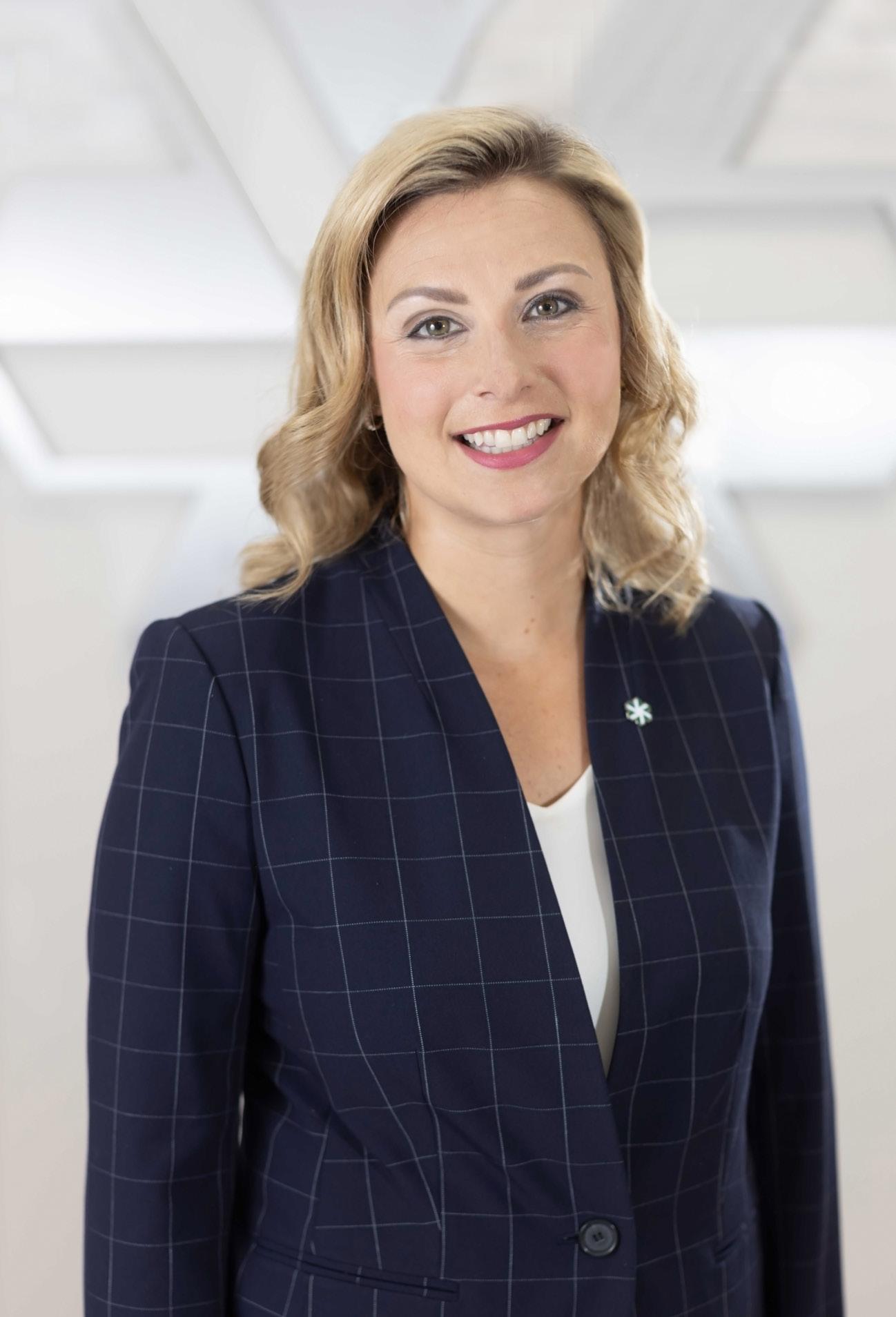
REBEKAH FINCHER
Chief Administrative Officer
Conway Regional Health System HEALTH
Rebekah Fincher was just a child when her family told her she has a responsibility to do all the good she can during her time on Earth. Growing up in rural Arkansas taught her something else that would define her professional aspirations — the importance of access to health care.
“Having experienced firsthand the difficulty of navigating the health care system influenced my desire and drive to make health care more accessible for all Arkansans, but especially for rural communities,” she said.
Fincher joined Conway Regional in 2010, and the past 14 years have provided her with many avenues for professional growth.
“Having the opportunity to serve as the chief administrative officer for Conway Regional Health System is something I never dreamed up,” she said. “Each day, I wake up in awe that I have an opportunity to work with such an incredible organization.”
Undergraduate and graduate studies in political science, public relations and communication gave Fincher a strong foundation in organizational dynamics, but the work itself has taught her the value of persistence and the need to learn continuously. Experience as a leader and communicator has allowed her to be a more effective mentor and coach to others in the field.
“Working with talented individuals on a day-to-day basis has been incredibly rewarding,” she said. “Seeing others establish goals, forge their own path and achieve their aspirations is perhaps the most fulfilling part of my career.”
” IT’S IMPORTANT TO CHALLENGE THE STATUS QUO AND CARVE OUT YOUR OWN PATH, EVEN IF IT MEANS GOING AGAINST CONVENTIONAL WISDOM.
To others looking to advance professionally, she recommended being authentic and empowering others.
“Seek out mentors, be open to learning, and don’t be afraid to take on challenges, even those that may seem out of your realm of responsibility,” she said. “Looking at every chance as an opportunity to grow is the best opportunity for learning.”
Both she and Conway Regional are working to continue paving the path women’s rights activists have been building for more than a century.
“There is still room for improvement in terms of representation in leadership roles and pay equity,” she said. “I am grateful for Conway Regional’s focus in these areas, and I view our organization’s efforts as trailblazing.”
Becoming a mother made her more mindful of the challenges women face in the workplace, she said. It can be difficult to give 100 percent to work, family, friends and spiritual life every day.
“Our kids understand that both Mom and Dad work, and sometimes that means late-night meetings, evening phone calls or projects after hours,” she said. “I am hopeful that talking about these things as a family instills a focus on hard work, loyalty and commitment for our kids.”
She added that she is happy to defy traditional gender roles and expectations as a trailblazing woman, saying “It’s important to challenge the status quo and carve out your own path,” she said, “even if it means going against conventional wisdom.”

Managing Senior Corporate Counsel
Midcontinent Independent System Operator
Kandi Chitman Hughes, Esq., has practiced several types of law throughout more than 15 years in the legal profession, and her professional chops span from private practice to government and higher education. Of all the sectors she has worked in, however, Hughes called the electric power industry one of the most complex and challenging. Ever up to tackle those obstacles head-on, she is now managing senior corporate counsel at Midcontinent Independent System Operator, or MISO, an independent, not-for-profit, member-based organization focused on managing the flow of high-voltage electricity across its region.
“I did not know the energy industry held opportunities for
attorneys until I was actually in it,” she said. “I love to work with people while at the same time being a transactional attorney, and an opportunity landed in my lap to be able to do both.”
Hughes has received numerous recognitions for her professional impact but the most rewarding part of her work happens off the clock. Her proudest achievement by far is being a mother to her two children, she said. She is thankful to help guide and shape their lives, just as her own mother, Dr. Phillis Anderson, provided an example to her of what it means to live with purpose.
“Everything she leads turns to gold. I would not be half the mother or professional without her friendship, mentoring and wise counsel,” Hughes said. “My mother has taught and shown me resilience, perseverance, leadership, empowerment, advocacy, authenticity, vision and courage.”
”
I WOULD ENCOURAGE OTHERS, WOMEN IN PARTICULAR, TO CONTINUE TO BRING THEIR FULL AND AUTHENTIC SELVES TO ALL SPACES.
Hughes makes it a point to support those around her. Whether breaking down complex legal concepts with mentees or providing career guidance, Hughes wields her expertise to the benefit of everyone following in her footsteps.
“I have been extremely intentional in lifting as I climb, especially as it pertains to women and the Black community,” Hughes said. “Women are adept at handling adversity and change, are amazing innovators and problem solvers, and bring significant emotional intelligence and empathy to the workplace.”
While there has been much progress for women in the workplace, Hughes said, there is also much room for improvement. The methods she points to — increased representation on boards, leadership roles within companies, more support networks and sponsorship programs — are all fundamental for helping women build fulfilling, successful careers.
“I am in the wonderful sweet spot in life where my professional and personal experiences are in alignment,” Hughes said. “I would encourage others, women in particular, to continue to bring their full and authentic selves to all spaces.”
For Hughes, all of the hurdles leapt and skills honed have only reassured her that she is on the right track. While hers has not been a linear career path, as far as she is concerned, there were no other paths to be taken.
“I’m a firm believer in the Creator’s timing and planning being much better than mine,” she said. “I believe I am squarely in sync with where I am and what I am supposed to be doing.”

Education has always been at the forefront of Staci Medlock’s journey. The North Little Rock-based Realtor called education vital in laying the foundation for her work in real estate.
“While obtaining my real estate license provided me with the necessary technical knowledge, real estate is a dynamic and everevolving industry that demands continuous learning,” she said. “I have embraced a mindset of perpetual growth, seeking to stay abreast of the newest technologies, refine my marketing skills and adapt to the latest industry changes.”
One of central Arkansas’ top sellers, Medlock’s almost two de-
cades in the business have shown her that invaluable lessons are learned through real-life experiences.
“This holistic approach has equipped me with the insights needed to thrive,” she said. “I have always had a passion for serving others, leveraging a diverse background in the beauty industry and real estate to help individuals achieve their goals.”
Medlock said the most challenging aspect of her job is the shared disappointment when a client’s dream home appears out of reach in a fiercely competitive market.
“The most rewarding part is witnessing the eventual resolution and realization that things have a way of falling into place as they should,” she said. “Finding the right home for my clients and seeing their joy makes every hurdle worthwhile.”
Medlock credited the “many remarkable women” throughout her life for leaving a lasting imprint, and she strives to do the same for young women in her path.
”
SUCCESS IS NOT JUST ABOUT PERSONAL ACHIEVEMENTS, BUT THE RELATIONSHIPS YOU NURTURE AND THE DIFFERENCE YOU MAKE IN THE LIVES OF OTHERS.
“Just as the women before me have influenced and inspired my journey, I am committed to passing on wisdom, support and encouragement to the next generation of women,” she said. “I believe in the transformative power of mentorship, guidance and empowerment in nurturing the potential of those around me.”
Medlock’s advice to young women starting a career in real estate is to approach work with a genuine passion for helping others and to keep clients’ best interests at the heart of every decision.
“Uphold a strong sense of integrity, and always strive to do the right thing, even when faced with difficult choices,” she said. “Success is not just about personal achievements but the relationships you nurture and the difference you make in the lives of others.”
Medlock said she is most proud of her own personal journey that led to her becoming a Christian and her role as a mother and grandmother. On the professional front, Medlock is proud of the positive impact she has had on clients.
Medlock is also an active community volunteer through her church, local schools and a nonprofit dedicated to helping the homeless. She also serves as a Pulaski County Justice of the Peace.
“I aim to make a meaningful difference, foster positive change, and contribute to building a more compassionate, inclusive and thriving community,” she said. “I love what I do, and am very blessed to do what I love.”

Director of Economic Development
City of Cabot
Alicia Payseno is passionate about driving her community forward, and as the director of economic development for the city of Cabot, she is able to do just that. While economic development was not Payseno’s first taste of success, her background in operations, manufacturing and small business has been beneficial to her current career.
As the recipient of numerous scholarships for culinary arts, Payseno dreamed of working in kitchens across the country and opening her own restaurant. After becoming a mother, the rigorous demands of that career led her to change paths, leave that institution, and transition into the marketing field. “As a single
mother, I continually balance the demands of raising children and the ambition of a successful career. I have shown my daughters that dreams can thrive through adversity and that goals are obtained through hard work and dedication,” Payseno said.
Throughout her 25-year career, Payseno sought professional development opportunities and is grateful for employers who offered tuition reimbursement and paid for accreditations. Most recently, she graduated from the Community Development Institute at the University of Central Arkansas in Conway and in 2023, she earned her professional community and economic development certificate.
“Pursuing education throughout your life professionally and personally is the most impactful way to grow and flourish,” Payseno said.
With an understanding of small business management, workforce development and public relations, she entered into economic development with the Maumelle Area Chamber of Commerce. In 2021, she transitioned to her current position at the city of Cabot.
” I AM ABLE TO BE A TRAILBLAZER IN MY INDUSTRY BECAUSE OF THE AMAZING PEOPLE THAT SHARE A MUTUAL VISION FOR A PRO-GROWTH ENVIRONMENT.
“We are able to provide space for people to come together for the common good and transform shared hopes into action,” Payseno said. “From critical causes like food insecurity, child protection, domestic violence, homelessness and rescue relief to community development efforts, including the arts, athletics, education and inspiration, city administration fosters this civic engagement and leadership.”
Working with the local administration, Payseno works to enhance Cabot through programming, jobs, education, health care and economic growth.
“I am currently working on projects that may not come into our community for years or perhaps even after this current city administration has left,” Payseno said. “However, we will passionately pursue these efforts for the betterment of our city.”
Collaboration and unity are at the cornerstone of moving Cabot forward, and both are present in the announcement of Lyon College School of Veterinary Medicine.
“It will be the most impactful advancement for Cabot, and the entire team worked to make this project possible. I am able to be a trailblazer in my industry because of the amazing people that share a mutual vision for a pro-growth environment,” Payseno said.
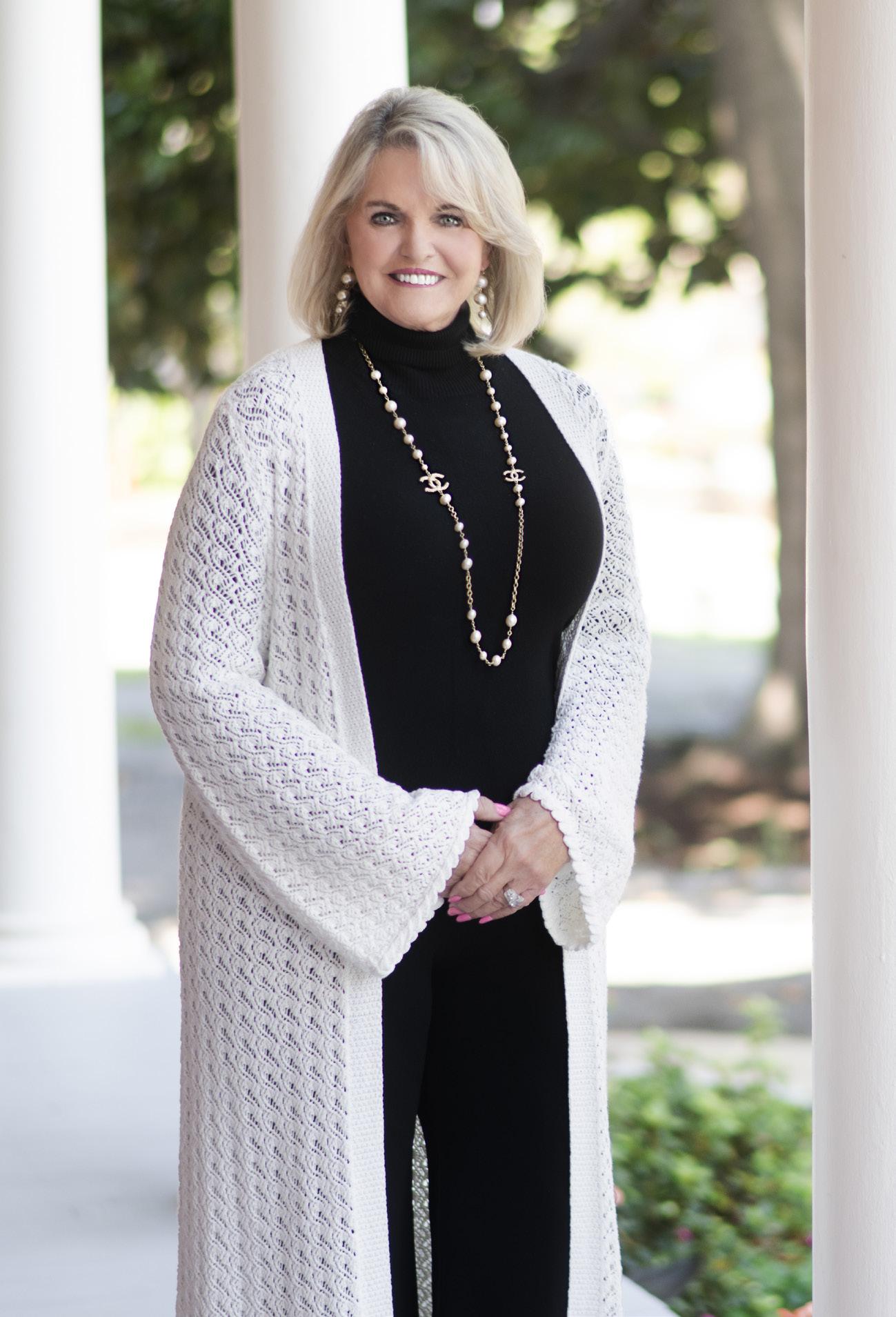
A long and fulfilling career is something to be proud of, but a true life of service to others can last well after retirement from the corporate world. Sandra Storment enjoyed over 26 years as senior vice president and regional human resources director at Regions Financial. At the time, the Little Rock-based southwest region was the largest market in the Regions system, and Storment and her team were responsible for 4,000 employees across Arkansas, Texas and Louisiana.
The close of Storment’s tenure at Regions was an opportunity to pursue her outside passions even more fervently. That drive led her, on one hand, into part-time interior design work with Stor-
ment Consulting in Little Rock. On the other, it allowed Storment to delve further into the world of advocacy.
Perhaps closest to her heart is the nonprofit Women & Children First, which works with victims of family violence. Storment has been involved with the organization for more than three decades. So instrumental has her role been that WCF awarded Storment the Peacekeeper Award in 2021.
“The same work ethic that I used working at Regions Bank, I continued in my volunteer work. I like to make a difference in whatever I am involved in,” she said. “My philosophy is that you work just as hard whether you are getting paid or not, and your payback is the joy it brings to help others have better lives.”
” WE ARE ALL IN THIS TOGETHER, WORKING TO SUCCEED IN WHATEVER WE DO. OUR REPUTATION AND HOW WE TREAT OTHERS IS ALL WE HAVE AT THE END OF THE DAY.
Storment’s ardor for supporting women and children might come in part from one of her earliest role models, her mother. As a newly divorced mother of two, she began working when Storment was 6 and her sister was 3 at a time when a woman in the workplace was still a revolutionary concept. Her work ethic, independence and tactful diplomacy left an impact on Storment, who considers such qualities essential for women building their own careers.
Storment has also taken lessons from former mentors on the importance of networking and building true relationships with fellow career women. Supporting each other and teaching younger women the skills it takes to compete is fundamental, she said.
“There is plenty of room for all women to be successful,” she said. “We are all in this together, working to succeed in whatever we do. Our reputation and how we treat others is all we have at the end of the day.”
Never one to be content on the sidelines, Storment is fully committed in everything she does, from family life to creative pursuits and advocacy work. Full engagement in the moment brings even more joy to whatever she is involved in, she said, not to mention the community she is able to build through each experience.
“There is so much good to do in our world that everyone can find people and causes to help,” she said. “We need to work at keeping our encounters with others who are diverse and different from us. It helps us grow and accept other points of view. Those ‘aha’ moments can mean growth and expansion to who we are.”
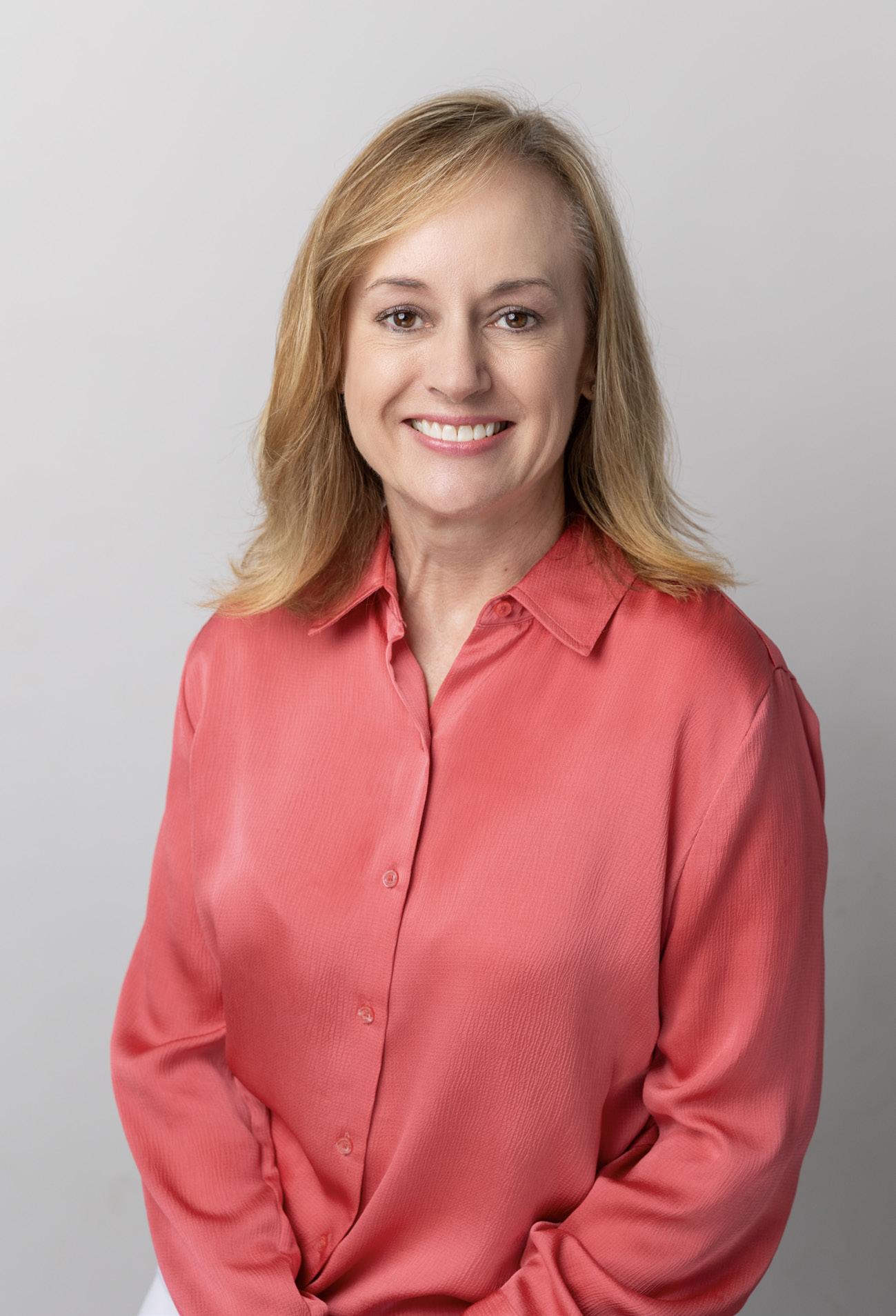
Owner / Principal Broker
Apartment Hunters
While entrepreneurship often involves striking out alone to find creative solutions to unheard-of challenges, the journey also yields strong relationships that demonstrate the importance of having a supportive community at one’s back.
RENTALS
For Cathy Tuggle, owner and principal broker at Apartment Hunters in Little Rock, a number of women helped on her voyage by teaching her patience, balance, focus, a good work ethic and servant leadership. She now pays it forward by passing her values onto others and supporting them during their professional journeys.
“I try to set a good example to everyone I’m around — family, friends and colleagues,” she said. “I believe my involvement in the community might give others ideas to serve, as well.”
Tuggle got her start as a leasing consultant at a luxury apartment community more than 30 years ago. She quickly worked her way up the ranks to assistant, property and regional manager, then became a contractor to help lease new construction. After learning the ins and outs of property management, she went into business for herself as owner of Tuggle Services, purchased Apartment Hunters and founded Arkansas Suites.
Along the way, she earned her Arkansas real estate sales license and principal broker’s license from the Arkansas Real Estate Commission.
“I am extremely proud that we are celebrating our 25th work anniversary this year,” she said. “The time has flown by.”
”
GIVING BACK TO OTHERS IS EXTREMELY IMPORTANT. I WANT TO HELP OUR COMMUNITY GROW AND THRIVE.
Sometimes it feels like there are not enough hours in a day to accomplish everything that needs to be done, she said, but the reward is seeing the relief on clients’ faces when the company assists them during the often-stressful moving process by providing them with short- or long-term rentals.
Although writing one’s own paycheck is a perk of owning a small business, Tuggle said that green does not mean a thing if she keeps it all to herself.
“I’ve always told myself to never allow greed to become part of my growth, business or personal,” she said.
She said she would advise any up-and-comer to serve the community because doing so not only cultivates meaningful relationships and creates networking opportunities but provides personal fulfillment that money cannot buy.
“Giving back to others is extremely important,” she said. “I don’t necessarily do it for my business; I do it because I want to, and I want to help our community grow and thrive.”
Some organizations Tuggle is personally involved in include the Little Rock Regional Chamber, Fifty for the Future, AR Kids Read, Rotary Club 99 and the University of Arkansas at Little Rock School of Business.
With more than three decades in the industry, Tuggle is a shining example of what women can accomplish in business and in life.

Founder and Managing Principal
The BIG Agency + YELLO
Alexandria Washington got her start in marketing during the COVID-19 pandemic, but she has always had an eye for connecting with audiences large and small. Washington initially spun her public relations degree into posts at TMZ and Fox News, as well as working as a radio personality in the U.S. and the U.K. Once back home, she began exploring opportunities in central Arkansas, finding that the harder she hustled, the more doors she opened.
voters to the polls in a battleground state from relationships made during my time in radio,” she said. “That moment confirmed that I was exactly where God wanted me to be and exercising a muscle he had in me the whole time.”
Washington is now the CEO and founder of both The BIG Agency and her newest venture YELLO, a creative consultancy specializing in branded experiences for consumers. The move from the news desk to the C-suite was not without obstacles, but Washington’s growth mindset allowed her to deepen her knowledge through workshops, networking and mentorship. She pointed to two women in particular as instrumental voices on her path — DeJuana Thompson, CEO and president of the Birmingham Civil Rights Institute, and Candis Grace, president of The Brand Group LA. From these relationships, Washington secured some of her first clients and learned to move out of her comfort zone and into her professional prowess.
”
WHEN YOU PLAY SMALL, YOU PLAY YOURSELF. YOU BELONG IN THE ROOM, SO WALK CONFIDENTLY AND BOLDLY IN YOUR GOD-GIVEN TALENT, AND HE WILL ALWAYS MAKE ROOM FOR YOU.
“When you share parts of you in that way to better someone else, it’s the most beautiful display of your character in action,” she said. “You should always pull up a seat to your table for those coming behind you.”
The entrepreneur has blazed trails in other ways, as well. She was part of the inaugural Master of Business Administration cohort that marked Philander Smith’s transition from a college to a university, not to mention graduating top of her class with honors. The program has empowered her to take up and make space in business for other young creatives of color, she said, and she looks forward to inspiring the next generation of leaders.
CREATIVE
“During the election season in 2020, I landed a big contract that allowed me to craft and execute a campaign for a Grammy-Award-winning artist that mobilized over 400,000 young
One of the worst pieces of advice Washington ever received — and one she is grateful she did not follow — was to “just stick to what you know.” On the contrary, whether it is professional success, building relationships or bettering her community through groups like Beautiful Feet, Beautiful Minds and the Dunbar Historic Neighborhood Association, Washington has made it her mission to do it all.
“Go after any and every single thing you want,” Washington advised. “When you play small, you play yourself. You belong in the room, so walk confidently and boldly in your God-given talent, and He will always make room for you. When you get there, treat people with kindness and respect.”

President and CEO
Winthrop Rockefeller Foundation
For grantmaker Sherece West-Scantlebury, Ph.D., it’s all about pouring into others. President and CEO of the Winthrop Rockefeller Foundation, she has spent more than 25 years in the industry, investing in the community and in those who wish to make a difference.
PHILANTHROPY
“I did not know philanthropy was an industry when I started my career,” West-Scantlebury said. “Initially, I set out to be a housing advocate. Advocating for children and families has always been part of my DNA. My career in philanthropy evolved naturally from my commitment to improving the lives of marginalized families and communities.”
She said the most fulfilling part of her work is seeing the impact of grantmaking on the lives of individuals and communities. Knowing that the foundation is improving the quality of life for ALICE Arkansans (Asset Limited Income Constrained Employed) is rewarding and fuels her passion and commitment to philanthropy daily.
On top of supporting those in need, she has made strides to ensure others are able to do the same through coaching and guiding others personally and in the workplace.
“My advice to a young woman starting her career is to prioritize purpose over perfection,” she said. “Discovering and nurturing your purpose takes time, but it will be your guiding star in a world where many external forces will try to shape you. Women who embrace their journey of purpose are the ones who will change our world for the better.”
West-Scantlebury is a certified executive leadership coach at Executive West Coaching and Consulting. She believes in paying forward the support and encouragement she received as a way to help others navigate their path.
”
WOMEN WHO EMBRACE THEIR JOURNEY OF PURPOSE ARE THE ONES WHO WILL CHANGE OUR WORLD FOR THE BETTER
“Coaching is about giving advice and listening, providing a safe space for growth, and empowering others to find and follow their purpose,” she said. “I strive to inspire and support those around me to reach their full potential, just as my mother did for me. Through coaching, I aim to contribute to developing future leaders committed to social change and equity.”
She hopes to highlight the need for equity and inclusion in all sectors. As a Black female leader, she has experienced the barriers and challenges firsthand but has also seen the “incredible progress that can be made when diverse voices are included and valued.”
“I urge everyone to advocate for and work towards creating more equitable and inclusive environments,” she said
While leading the esteemed Winthrop Rockefeller Foundation is a testament to her dedication and hard work in the philanthropic sector, West-Scantlebury is most proud of her accomplishments as a loving aunt to her two biological nieces and a coach to many young women in nonprofit leadership and philanthropy. At work and in her personal life, West-Scantlebury hopes to continue inspiring change.
“I am deeply grateful for the support and inspiration from my family, mentors and colleagues,” she said. “Their belief in me has been a driving force in my journey, and I hope to pay it forward by continuing to support and inspire others.”
By Dwain Hebda
Early in his law enforcement career, the extent of Eric Higgins’ crime fighting with the Little Rock Police Department was limited to screening local pawn shops. There, he checked inventories against items reported stolen and, when located, returned the merchandise to the rightful owners.
It was not glamorous work — not even that exciting, really — but decades later, he hearkens back to those days as the most instructive to his philosophy as an officer of the law.
“I was returning an item to this gentleman, this Black gentleman,” Higgins said. “I wouldn’t recognize him if I saw him today, but as he’s walking out the door, he turns to me and he says, ‘You know, Detective Higgins, I’m going to have to change the way I think about police officers because of the way you treated me.’
“I didn’t do anything special for him. I just treated him like my mom and dad taught me, to treat people with respect, you know? Treat them how you want to be treated.”
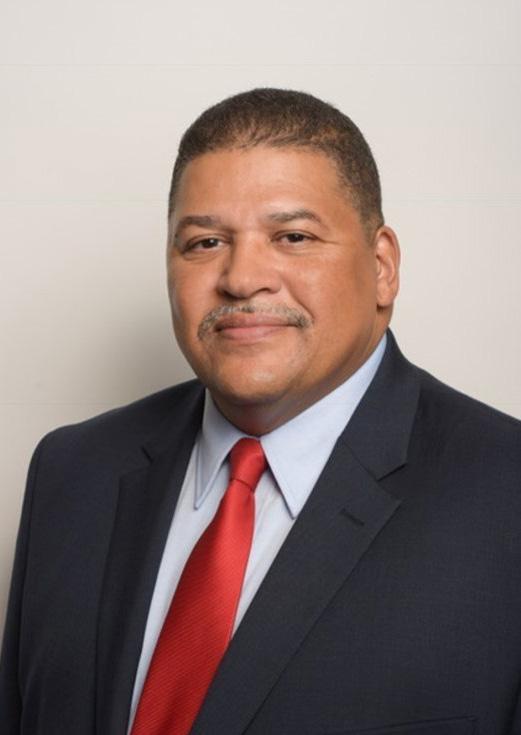
Higgins never forgot that interaction or the ethic that it illustrated throughout 30-plus years of his career on the
force. The code shaped the way he reacted to situations on the street and taught him the value of knowing when to listen and what to shrug off from people under duress. It emboldened him on his history-making run for Pulaski County Sheriff against a departmental lifer with strong endorsements and deep pockets. Once in office, it underpinned his leadership with the people he was responsible for, staff and detainees alike.
This year, the 40th anniversary of his first year in uniform, that outlook has also been his bulwark against a storm of criticism for implementing radical new ideas in incarceration, which he is convinced can revolutionize the system, reduce recidivism, and restore hope and dignity to inmates and their families.
It took two centuries for the first Black Pulaski County Sheriff to take office, but Eric Higgins has proven more than worth the wait.
“We need to hold people accountable if they commit a crime, but not everyone needs to be punished for life,” he said. “If you get sentenced, you’re in jail, but that doesn’t mean, you know, bread and
water. Inmates are still human beings. Plus, 80 percent of people booked in the county jail are released to the community, so the question is are we better preparing them to come out and not reoffend, or are we letting them leave here dealing with the same trauma and the same issues and the same attitudes that they walked in here with?”
****
Louisiana-born Eric Higgins arrived in Little Rock at a young age and settled down with his parents and seven siblings at the junction 28th and State streets in south Little Rock. Growing up, he shared many of the same experiences as his peers of color, from enduring racial epithets from white classmates to developing a healthy distrust of the police.
“It was a good neighborhood where I grew up, but I’d say we didn’t have a positive perception of law enforcement,” he said. “The things you heard from older people made you kind of want to keep your distance. It wasn’t so negative that you couldn’t interact if you had to, but we just looked to have as little interaction with law enforcement as possible.”
Higgins’ parents promoted Catholic education and sent the kids to parochial schools, including Catholic High School for Boys. The youngest of eight, Higgins got plenty of direction from his siblings on how to steer clear of issues.
“In high school, you know, I had older brothers who went there, and they’d let you know what the environment you’re going into was,” he said. “Being a very small minority at school, the Black students all tried to stick together.”
He graduated CHS in 1983, and his decision to become a police officer was about as happenstance as they come. Higgins enrolled at the University of Arkansas at Little Rock to study computer science, but when a certain prerequisite class was full, he filled out his class schedule with a criminal justice class that piqued his interest. Needing a job, he applied to the LRPD on the urging of some of his friends.
“Initially, I wasn’t interested in law enforcement, but I was interested in a decent job,” he said. “I ended up applying and taking the job while I was in school.”
It was not long before Higgins began to see in law enforcement the opportunity to combine his parents’ teachings on respecting the dignity of others, his Catholic education on social justice and his own desire to recast the image of police officers among marginalized populations. Everywhere he looked, the idealistic Higgins saw ways to be a force for change.
“As a cadet, part of my job was working in the city jail, and I still think of a jailer who worked there,” Higgins
said. “He was a white gentleman who treated detainees very respectfully. He did things for them. He worked with them. ‘Hey, you guys don’t cause any problems, and I’ll pop some popcorn on Friday and bring in a VHS and let y’all watch a movie.’ He respected the people in there, and he taught me that regardless of somebody’s charge, you can treat people with dignity.”
“People in authority need to seek to address underlying issues, but they must also act to correct undesirable behavior. Consider the old broken window syndrome: There’s an abandoned house. Kids break a window out. Nobody does anything, so they break another window out. Nobody does anything. They kick the door in and vandalize the place — nobody says anything. Then it’s, ‘Hey, let’s go in there and drink. Let’s go in there and do other illicit activity.’ Pretty soon, it impacts the neighborhood. The approach that cities or counties or managers or CEOs have to take is to be proactive in addressing the underlying issues before they lead to more destructive behavior.”
Higgins quickly traded his college courses for police work. Though he later went back and earned multiple degrees, the job provided a much larger classroom in human behavior, the nature of authority and the principles of leadership.
“What I found was [that] a uniform changed people’s behavior, both in the person wearing it and in how the public receives you,” he said. “Sometimes the problem in law enforcement is we have a mentality of it’s us against them, you know? The police are the good guys, and the criminals are the bad guys. If you’re not careful, that becomes the police against the community because you’re only getting calls to negative things, and you can become jaded to where that negativity comes to represent the community itself.
“I wanted to have a career in law enforcement that changed people’s perception of police in how we treat people and how we did the job. As law enforcement, we’re part of the community. We’re empowered by the community. There are people out here that are doing bad stuff, and we need to find them, and we need to arrest them. We are here to do that job, but we have to do it with understanding and in partnership with the community, and
“My best advice is to believe in what you’re called to do. Look at what you are wanting to do, and ask yourself, ‘What’s the purpose behind it? Am I trying to do this to benefit me, or am I trying to do something bigger than myself?’ If you’re trying to do something that’s bigger than you, make sure the impact on the community, on society or a group, is a positive impact. With that, you can walk through that process with your eyes wide open, regardless of the negative feedback that comes your way.”
therefore, we always have to be working on our relationship with the community.”
Higgins relished the feeling he was changing longheld attitudes toward cops, but he also realized one officer can only do so much. He set his sights on climbing the ranks to have a wider impact by helping change behaviors department-wide.
“For me, it all started with my faith and my belief that we’re all human beings, we’re all equal, and we all need to be treated respectfully regardless of the circumstances,” he said. “God put it in my heart that if I can have an impact at the bottom of the ladder, what can I do if I increase my area of influence?”
Higgins would make assistant chief, a role he held for the last decade of his career with LRPD, and even threw his hat into the ring for chief of police. When that went to someone else, he decided to call it a career and retired in 2014. Members of his church quickly pounced, recruiting him for a faith-based reentry program, Exodus.Life, which serves inmates nearing release. Higgins liked the idea of equipping those who were about to get out with the tools to stay out and successfully rebuild their lives, but what really impacted him was how much he learned from the people he was there to help.
“When I started volunteering with the reentry program, I listened to the students and what they needed, the peer support that they needed,” he said. “Sometimes, we address crime as this obscure blob out there. We have to fight crime. Well, it’s an individual who commits the crime, an individual that chooses or is influenced by circumstances. There’s a lot of factors that go into a person going down the road of committing a crime or engaging in criminal activity. There’s a tremendous need for these individuals to have access to other people who can support them, understand their situation and encourage them to better themselves, as well.
“Educating someone who has been incarcerated is not just saying, ‘Go to work. Don’t do crime.’ It’s showing
them where the resources are in the community. There are a lot of resources available, but the expectation is that everybody knows where they’re at and has the ability to get there to access them. That’s not the case.” ****
Higgins was so impacted by his volunteerism that when people approached him about coming out of retirement to run for sheriff, his first bid for elected office, he was intrigued by the possibility to create a reentry program within the county jail. Job experience and good intentions aside, however, he looked like cannon fodder against an opponent who boasted 20 years in the county sheriff’s office, had the endorsement of the outgoing sheriff and a war chest that far exceeded Higgins’. His historic win was one of the major upsets in recent Arkansas elections.
True to his word, he developed a framework for a comprehensive reentry program, CSI Academy, which puts inmates through a 12-week curriculum that addresses financial literacy, parenting skills and life skills training, as well as providing additional support with addiction issues and job training. Grants have been written, partnerships with colleges and employers have been made, and the program continues to grow.
In 2022, Higgins cruised through his reelection bid with no more of a mandate than to keep on keepin’ on with what he started. Instead, he implemented a new program that made the
“You go to a disturbance call, and they’re arguing, and they’re cussing, and you show up, and they want to cuss you out. The first thing a lot of people want to do is respond to being cussed out, and that’s a mistake. If you can remain calm and try to deescalate by showing respect for people, trying to ask questions and find out what’s going on, you’re able to drill down and find out what the real issue is that caused this whole situation to get out of hand in the first place. I found that the more positive the response I had to the community, even among people who were going to jail, nine times out of 10, they would cooperate.”
world sit up and take notice. Higgins identified a unit in the county jail on 23-hour lockdown, opened the cell doors and removed the guards. The radical social experiment was designed to help detainees develop a system of self-enforced rules and the interpersonal skills needed to function in community with others.
“Society is not an obscure blob; it’s individuals, and individuals make decisions about our system of government, about what we do and what we invest in,” he said. “Can we take a typical unit and help them realize that if you go beyond yourself and think beyond yourself and think about the community and the benefit of the community, will you realize that you personally can have a positive impact on the things that occur in your community?
“I wanted to show that if we raise the expectation of people, they will meet it, even these 43 guys who are forced to live together. They didn’t make arrangements to come to jail together, you know? They all just happened to be here. People come into a jail, and they’re fearful. All their guards are up. What I wanted for these individuals was to see that they could rise above that and create a community.”
we’ve done. We’ve created that community,” he said. “I didn’t reach out to Netflix or the production company to do this. The production company reached out to me. When we met, I explained what my goals were. I wasn’t interested in doing a show; I was trying to impact people’s lives.
“Did we have drama? Yeah. We still have drama periodically now. This was a way to capture some things, to document what we’re doing, and if anyone saw it, I also wanted to humanize people in jail.”
Higgins’ move was not without its supporters. The Little Rock NAACP called his actions “very progressive and one worthy of being noted by the entire law enforcement community throughout this nation.”
“It’s important to have wise counsel around you, not just a bunch of bobbleheads — you know, yes people. Surrounding yourself with people who you know will tell you the truth from the beginning is important. You can’t wait until that big decision to ask people to give their honest opinion because if they don’t trust you, then they won’t risk being ridiculed for disagreeing with you.”
The idea was groundbreaking enough on its own to have caused controversy had it unfolded in private, but instead, it played out to the world via an eight-part Netflix documentary series, Unlocked: A Jail Experiment, that was released earlier this year. Afterward, Higgins found himself on the hot seat with county administrators and state legislators alike. Some of the criticism was levied at the experiment itself, while much of the outcry was over him allegedly greenlighting the documentary without the requisite approval. Others accused him of grandstanding, exploiting inmates’ experiences and shining an unfavorable light on Arkansas in the process.
Throughout the controversy, Higgins remained staunchly unmoved. The unit portrayed in the series was not the first in the jail to have undergone the experiment, and Higgins said he was very clear with producers as to what elements of prison life were off-limits to minimize sensationalism.
“My goal was to transform the facility, and that’s what
There is also the undeniable detail that Higgins’ calculated gambit appears to have been validated; despite a couple of inmate-requested tweaks, the cell doors to the unit remain unlocked today.
Asked if he would do it over again or agree to a second season of the documentary were it offered, Higgins responded in the affirmative. He has also forged ahead in the next phases of reform, pushing hard for more mental health services in the jails, the latest bold step he said is needed to reform an archaic, punitive system.
“I have a 1,210-bed facility. I average 1,300 people in here,” he said. “I’ve got probably 50 people waiting for mental health treatment, a hundred and something waiting for evaluations. This boils down to attitudes and priorities. Do we as county government or city government want to invest money in someone who’s in jail, who is suffering from addiction, mental health issues, trauma? Do we want to help them or not? What’s the value of people in jail?
“I think it goes back to humanizing people, to seeing that even though they’re charged with a crime, 99 percent of them aren’t evil people. Then maybe we can invest resources in them so that they’re not out creating another victim in our community and we’re not paying for them, down the road, to spend 15, 20 years in prison. I am trying to move toward reducing recidivism in this jail and thereby reducing crime in our community. The ultimate goal is changing people’s lives.”
by Polk, Mitchell
By Dwain Hebda
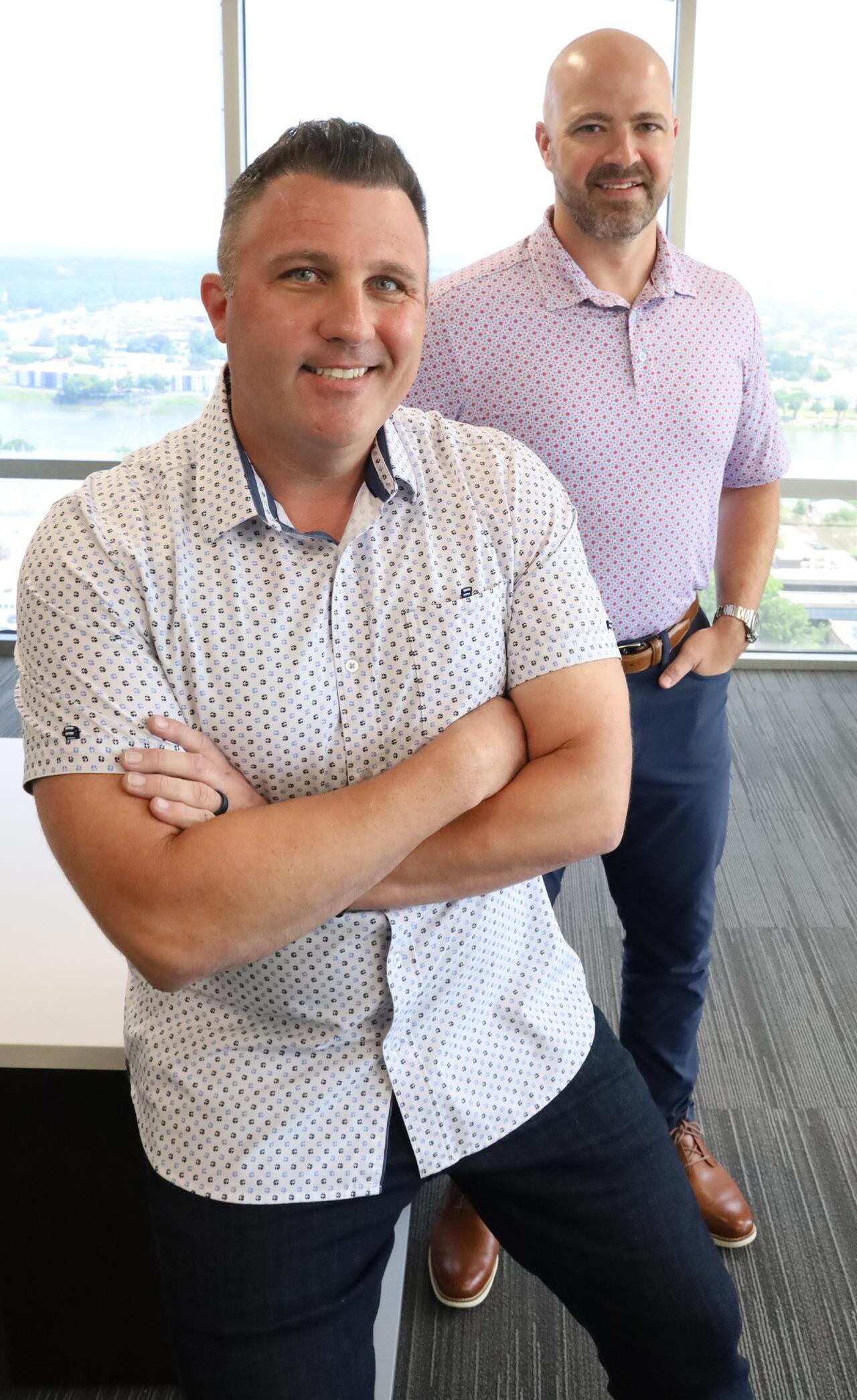
In the sprawling conference room that dominates one section of The Payroll Company’s downtown Little Rock offices, the visitor takes in two radically different yet interrelated views of the city. The two versions, set side-by-side as they are on adjoining walls, create an interesting duality of what can be imagined and created from that which is.
The first, a vividly illustrated painting of the downtown skyline, shimmers with intense color, the artist’s mind’s eye dazzled by the capital city at sundown. The other, the real-life vision of the city spreading out to the horizon on the other side of floor-to-ceiling windows, is equally captivating, pulsing with life from the midday traffic below.
These conjoined images — the envisioned and the authentic — are an appropriate metaphor to describe the approach of the Little Rock office of The Payroll Company and the two driven professionals that have led it from upstart contender status to a force to be reckoned with in the local market.
“When I first started, my big picture was to eventually have an office full of people processing payroll out of Little Rock, but you have to build that trust first,” said Nick Polk, partner and human capital management adviser, who has been with the company for 11 years. “We’re not Coca-Cola, where everybody automatically knows what Coca-Cola is. We’ve been in the market for a long time, and over that time, we’ve built a name for ourselves.”
Polk has invested 11 years with the company, building the Little Rock office’s reputation one satisfied client at a time over a market footprint that includes most of the state, save for a swath carved out by the Bentonville office. The enormity of the area and the boundless opportunity therein led him within two years to hire additional advisers, one of whom is Erik Mitchell, now a fellow human capital management adviser, with whom he shared similar Arkansas roots.
“Nick and I, we have a pretty good history. We met each other at a football camp in high school,” Mitchell said. “We ended up being roommates in college, and even after
college, we were roommates for a little while until I moved to Little Rock. Fast forward from that, Nick called me one day, and he was just kind of spitballing and was like, ‘Hey, what’d you think about coming to work for TPC?’ I was just like, ‘Sure.’ I knew he was in a great spot, good environment, and the company treated him well.”
The combination has proven unbeatable. As products of small-town Arkansas — Polk of Des Arc and Mitchell of Rison — the duo shares a common grounding in ethics and hard work. Their long friendship also gives them the luxury of direct, open communication and mutual trust, all of which is elemental, incidentally, to their customer relationships.
“You can’t sit behind a desk and do this job,” Polk said. “There’s no way in the world you can sit behind a desk and just call on people. You have to go meet people. They have to get to know you. In sales, we call it the likability factor, and you have to have that along with a sales acumen. We both are really good with people, really good with meeting new people.”
Both Polk and Mitchell brought a history of sales experience to TPC, and those ample skills have been put to the test from their first day, in part because the company’s name sets an image in prospective customers’ minds of being something of a one-trick pony. While payroll is, in fact, one of the main areas of expertise the company offers to businesses, it is hardly the only one, a gospel Polk and Mitchell preach over and over again to current and prospective clients alike.
like most of their largest competitors, The Payroll Company has no call center, and when one considers the long tenure of many of the employees that work there, it is not much of a surprise. Clients who expect to be routed through a phone system or sent offshore are often delighted to discover they can reach the same person, be it the one who sold them the solution or a customer service representative, time after time.
“Nick and I throw the statistic out all the time — our customer service reps’ average tenure is over seven years. That doesn’t exist in our industry,” Mitchell said. “That shows our personal approach to this industry, what we call the TPC difference, which is just another way we show that we do care about the people doing business with us.”
For everything else the company has done right in building its reputation, the most fundamental element of its success is the sheer tenacity with which Polk and Mitchell go out and make themselves known in the marketplace via business functions, networking events and various gatherings where cards are exchanged and business is done. The duo leverage their ample people skills in a variety of capacities, which has resulted in wide name recognition in a short amount of time.
"There’s no way in the world you can sit behind a desk and just call on people. You have to go meet people."
— Nick Polk, The Payroll Company
“I would say more than not, clients find us looking for payroll because we’re The Payroll Company, but then our tagline, ‘More Than Payroll’ really helps us get into that conversation of, ‘What’s more than payroll? What else do you offer?’” Polk said.
Of the non-payroll services, one of the fastest growing is outsourced human resources functions, something that has become increasingly appealing among smaller companies struggling to keep up with fast-changing regulations and myriad paperwork requirements.
“A lot of small businesses these days are really drinking from a fire hose when it comes to HR,” Polk said. “It can be a difficult job to navigate because it’s ever changing. It’s a catchall. Everybody’s coming to you. Everybody’s knocking on your door.
“We come in, and we act as an extension of the client’s HR team, empowering their HR professional to do their job more efficiently. It also provides continuity for that business. If a HR director leaves or something happens and there’s no backup who has any experience to step in, we’re there to keep that continuity going.”
Another key to the Little Rock team’s growth and success lies with how the company services clients after the sale. Un-
“We’re definitely not introverts. We’ve really taken on the approach of doing as much networking as we can,” Polk said. “Over the last two or three years, Eric’s been a really big advocate of, ‘Man, we really need to show our faces more,’ and he was exactly right. You see a company name out there, but you can’t put a company with a face. It seems like a small thing, but we even put our picture on our business cards so prospective clients can relate TPC with Eric or TPC with Nick.”
The strategy has paid off as The Payroll Company has grown to serve a wide clientele in Little Rock and beyond. The company services companies with thousands of workers down to mom-and-pops with just an employee or two. Today, TPC’s ads are in heavy rotation on various media outlets, and both Polk and Mitchell gained additional exposure as two of AY About You magazine’s Men of Distinction 2024.
What sets them apart from merely savvy marketers, however, is a keen understanding of when not to sell, such as when they show up to support one of the several community service functions they volunteer for simply because it is the right thing to do.
“It gives us a lot of credibility when we show people we care,” Mitchell said. “We are all about the people who do business with us, but then we also genuinely care about the nonprofit organizations and community service causes we support. People get to see that you’re not just trying to make a buck off them, but that you care about them, and you care about the community, which we do.”
By Mak Millard
Agrowing population, diverse industries and the advantages afforded by its status as a college town have given Batesville much to be excited about when it comes to business and development.
As with any close-knit community on that kind of trajectory, the importance of small business owners cannot be overstated. For Karen Coltharp, it was a groundswell of local support that allowed her to trade hospital administration for entrepreneurship and open Clara Jane and Jax, the children’s boutique recently voted the state’s best by AY About You readers.
Opening a place of her own had always been on Coltharp’s radar, especially since there was a need for a children’s store closer to home.
“There’s something sweet about babies and moms coming into that new chapter of their life. It’s such a special time,” she said. “We had to go to Little Rock, Jonesboro and other places to get baby gifts. I just thought, ‘Well, let’s see if we can make this little dream happen.’”
Clara Jane and Jax opened its doors in 2017 more as a proof of concept than a full-fledged business venture. Coltharp’s daughters, Megan Hughes and Sara Clinkscales, helped get everything up and running. Hughes handled day-to-day operations for the first couple of years while Coltharp held onto her hospital position. Initially unsure what the community response would be, it was only after two years of growth and an upgrade to a bigger space on Main Street that Coltharp was ready to jump in headfirst.
“Around the end of 2019, I couldn’t continue to do both jobs. I was in a position where I could take a step back from the administrative role and just focus solely on the store,” she said. “At that time, Megan left to pursue other interests, and I wanted to leave and focus my attention on this. Everything just seemed to happen at the right time.”
Coltharp’s exit from the health care industry was also well timed given what 2020 would bring, although entering the precarious world of business ownership during the COVID-19 pandemic was scary in its own right, she said. While the store was forced to close for a time and reduced its hours after that, the loyal shoppers who had brought Coltharp success in the first place did not soon forget their new favorite shop.

“It reminded all of us of the importance of shopping small and how important our small businesses are,” she said. “We were very lucky that year to not have a loss; we actually grew in 2020. Our community rallied around our small businesses and showed them some love.”
The store is a family affair in more ways than one, from its clientele to the early sweat equity put in by Coltharp’s daughters. Also key to the shop’s success has been Coltharp’s husband, Brian, and another full-time team member, Kim Wilson, better known as Ms. Kim.
“Everybody needs a Ms. Kim in their life,” Coltharp said. “I would not be here without Ms. Kim. She’s terrific.”
A similar family mentality among fellow entrepreneurs is
what has kept Coltharp downtown and, indeed, is what drew her to it in the first place. Welcoming weekend visitors and families as they visit the farmers market, stroll along the streets and peruse the various shops has only strengthened those bonds. As the backbone of downtown’s recent bustle, collaborations, giveaways and open houses are frequent occurrences that help draw more interest to the area.
“Staying on Main Street is really important to me. We live downtown. We work downtown,” said Coltharp, who is also on the board of Main Street Batesville. “I love to see all of the new businesses that are coming in. We’ve got some new restaurants that are coming. Anytime I can collaborate with a fellow downtowner, I’m all about that.”
In March 2023, Clara Jane and Jax was able to expand further by acquiring the space next door. One renovation project and an additional 900-orso square feet later, the store now has an expanded section dedicated to all things baby. The entire space is fashioned to be as welcoming as possible and has constantly updated displays and areas for little ones to play or have story time while Mom and Dad shop.

“When I started the vision for the store, we would go to antique stores, and we would buy old doors, shutters and tables. I wanted it to be a place that was kind of lived in, that felt warm,” Coltharp said. “I may have some white bookshelves, but most of the stuff that I have are things that we have taken and repurposed to make it feel more like a home.”
Coltharp’s store is often the backdrop for people’s most vulnerable moments. A newly expectant couple comes in looking for the best way to announce the news to family and friends. Later, those loved ones pour in to shop from a baby shower registry. A mother-to-be comes in and chats about her excitement and nerves, and in a few weeks, she returns to the store to introduce the latest addition to the family.
Throughout each of those interactions, Coltharp has ways of rewarding customers for turning to Clara Jane and Jax for their young families’ needs. Gift wrapping is complimentary, as is a card to go with it. As an extra token of appreciation, mothers who register with the store get a gift card with 10 percent of all the purchases made from the registry for their showers.
“People have a choice where they shop, so whenever they choose to shop with a small business, I want to do something to thank them for that,” Coltharp said. “I feel like it’s important to give back to the people who help support our shop.”
Another business hurdle that takes on new dimensions is merchandising, an art Coltharp has learned through hands-on experience since 2017. A large majority of the store’s items are ordered six to eight months in advance, meaning Coltharp is already looking at trends for Christmas and next spring while shoppers are busy snapping up this summer’s selection.
“To run a children’s store, you have to be very optimistic. I am really trusting that we’re going to be around in six to eight
Coltharp said opening her business downtown was important.
months to be able to take all of these orders,” she said.
Quality is the top priority when it comes to potential new products. With an eye towards longevity, Coltharp searches for unique items that larger stores might not carry, as well as products and fabrics that are soft, stylish and beloved by both mother and baby. She wants outfits that can be worn more than once or twice and toys that will hold up for more than just a few months.
“We have a line of wooden cars and trucks that do pretty well for us. It’s not gadgety. It’s not techie. It’s just a toy, and they can use those toys for their imagination,” Coltharp said. “I try to find things that they can use to pretend play.”
Those deeply researched items and kid-friendly touches pay off in myriad ways. Coltharp has seen babies from the early days of the store grow into toddlers and big kids, and her selection has grown and expanded with them. In fact, it is her youngest clientele that can often be some of her most loyal customers.
“This happens often, but recently we had a 6-year-old boy. He had his birthday money, and his mom took him to Walmart. ‘OK, what do you want?’ [He said,] ‘I don’t want anything here. I want to go to Clara Jane and Jax.’ He came and he spent his birthday money in my store,” Coltharp said. “When kids save their allowance or they bring their birthday money and they want to shop from the things that I’ve picked out, it’s an incredible compliment.”
Whether shopping for birthdays or baby showers, picking up something for mom or picking out a new book to read before bedtime, Coltharp wants Clara Jane and Jax to be more than just another business. She has made so many friends through the store, she said, and wants to be a true part of their lives.
“I’m just blown away by people I didn’t know who have supported us from Day 1,” she said. “This has been a tough year for small businesses in general. For our customers to continue to trust us and spend their money with us for those special moments, it really means a lot.”
Marilyn Bailey
By Steve Spencer
When telling the story of Marilyn Bailey, interim chair of the department of human sciences at the University of Arkansas at Pine Bluff, the best place to start is with Bailey’s return to her hometown.
Her work at UAPB, she said, boils down to one thing — making the world a better place through service.
Bailey’s career has been filled with many accomplishments and challenges overcome, and it was during a span of two decades working in southern California that Bailey discovered a passion for early childhood development. She started as a nurse assistant and worked her way up to working for the California Department of Education’s elite WestEd Program for Infant-Toddler Care.
The chance to return home and work for UAPB represented the right opportunity at the right time. In 2021, Bailey was named interim department chair. Bailey’s team is responsible for food service and restaurant management, nutrition and food science, human development and family studies, merchandising, textiles and design, hospitality and tourism management and human sciences education.
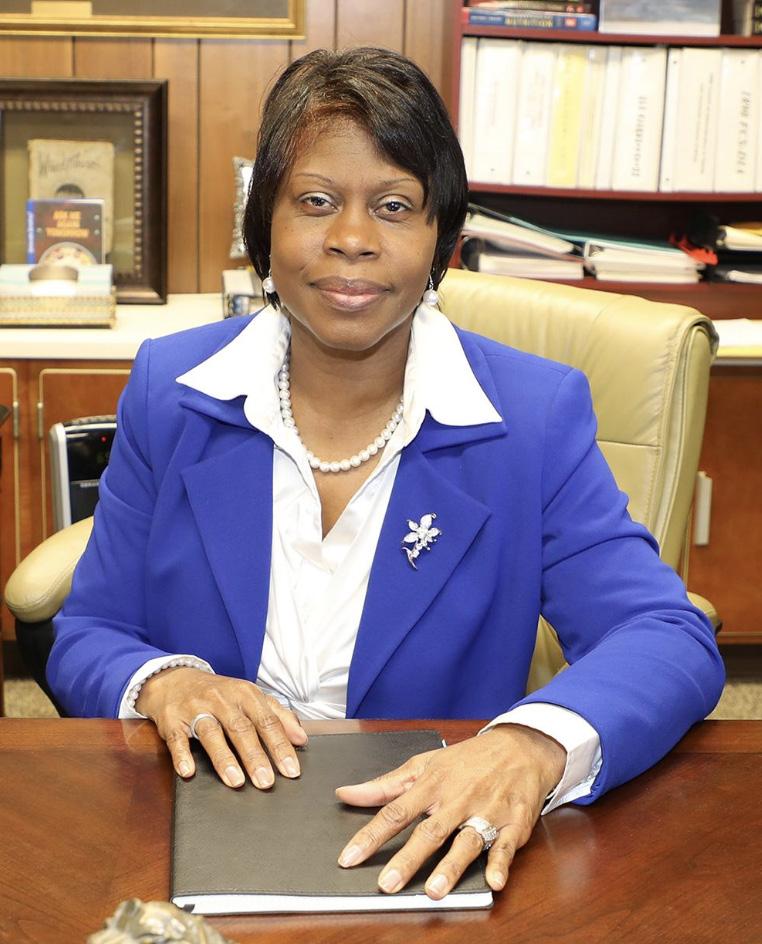
Bailey also is the executive director of UAPB’s Early Head StartChild Care Partnership Project, which distributes federal grants to families at or below the poverty level in Jefferson, Bradley, Drew and Chicot counties.
“Early Head Start is vitally important,” Bailey said. “Our program extends early learning services to children ages birth to 3. I feel that we really make a difference in supporting parents in the lower Delta region.”
As if those duties were not enough, Bailey supports UAPB faculty members who have garnered external grants totaling more than $1 million over the span of a year. The cumulative total of federal grants she has overseen in her tenure is almost $15 million.
All faculty members are mission-driven and have a focus on
teaching and research, all with an emphasis on community service, she said. Recently, the department began examining food deserts and promoting healthy food choices and gardening. Its efforts include hosting nutrition cafes and collaborating with other academic institutions and community partners to engage students in rich experiential learning and internship opportunities.
Bailey’s overarching goal is to make sure that human sciences students at UAPB acquire the highest quality education possible.
“They need to be able to compete both locally and globally,” she said. “Our program utilizes classroom instruction, experiential learning opportunities and internships. We are ultimately growing students here from the undergraduate classroom into industry readiness or graduate level pursuits.”
Students are supported by faculty members who serve as mentors and/ or advisors during their academic tenure. Students may also have opportunities to assist with research in fields relevant to their studies and present the research at conferences. Last year, UAPB students and faculty traveled to Kenya as part of a study-abroad program that Bailey called life-changing.
In the aftermath of the COVID-19 pandemic, Bailey was in charge of leading the department’s arduous self-study process for reaffirmation of accreditation. Through a teamwork approach, the unit successfully attained a 10-year reaccreditation.
In addition, Bailey is director of UAPB’s Child Development Center and the department cafeteria.
“People ask me how I am able to manage so many different responsibilities,” she said. “The one thread running through my entire adult life is my focus on remaining humble and making the world better than how I found it. It is an honor to be in service to others.”
By Sarah Coleman
Houston Davis is the 11th president at the University of Central Arkansas in Conway, and though his career had previously been focused on higher education in Oklahoma, Tennessee and Georgia, he is headed into his eighth year leading the institution and living in the Natural State.
Davis and his wife, Jenny, are fond of Arkansas and its natural beauty, but it was UCA’s national reputation that brought Davis to Arkansas’ City of Colleges in 2017.
“UCA’s reputation and Conway’s reputation of being a college-centered community is what attracted me and my wife, Jenny, to come here. We just fell in love with it,” Davis said. “Conway is a really neat place to be able to go to school and do what I do. I feel like I landed in this community that’s so supportive, and it’s a fun place to work in higher education.”
Davis has served in several higher education positions throughout his career, which required him to also spend many years as a student. He earned his bachelor’s degree in political science from the University of Memphis, his master’s degree in educational administration from Tennessee State University and his doctoral degree from Vanderbilt University.
“I had a great undergraduate experience, and I think at the heart of why I chose to work in higher education is because of some of the faculty, the staff and the bonds with organizations I had as an undergrad,” Davis said. “I love being involved on campus, and I love how you get to know so many people through building community and friendships. It’s a great blessing for me to be able to do that professionally and know that our students at UCA will have these same types of experiences.”
This approach has resulted in some social media cameos for Davis.
“I’ve found myself getting caught up in a couple of viral moments in my life, but as long as it’s for fun, positive things and as long as students are at the center of it, I don’t mind. It’s all about students having a good time while they’re here, and I know the difference this degree is going to make in their lives,” Davis said.
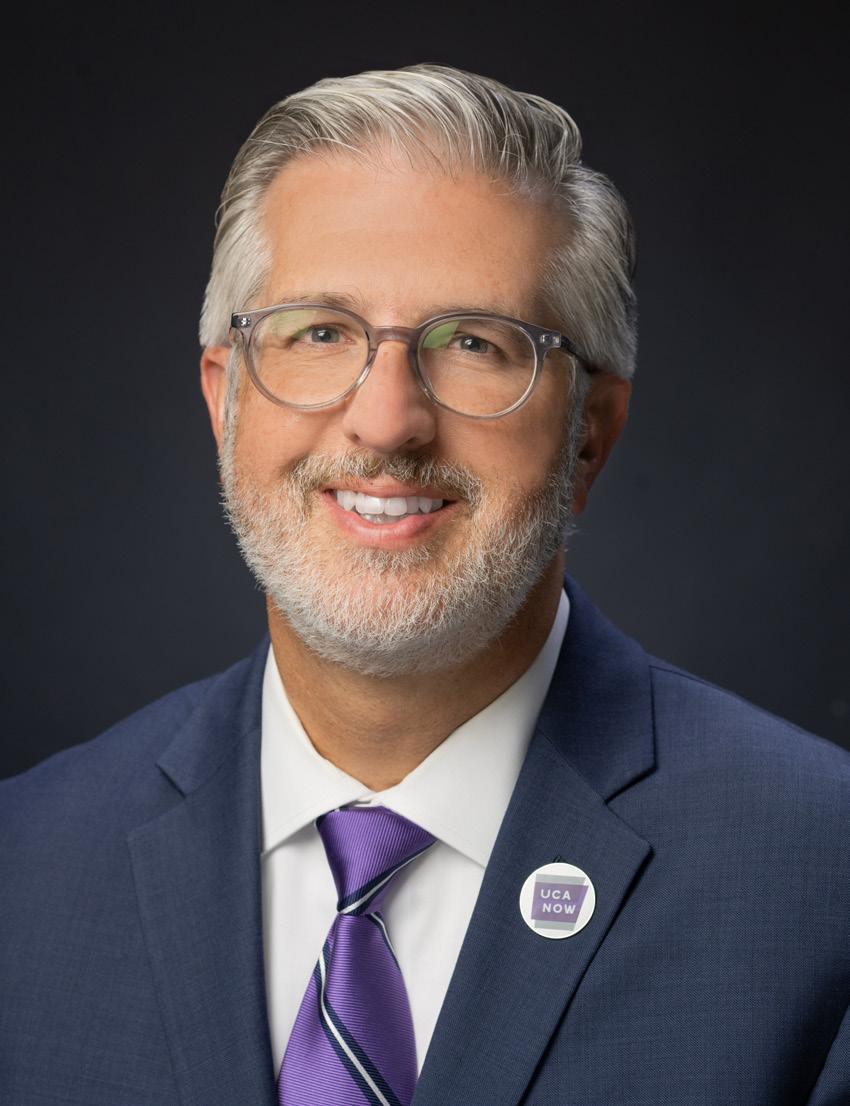
Davis said he is proud to work in a place dedicated to paving the way for students to be successful and is passionate about helping students find success. UCA still has a large number of first-generation and working students, he added, and his proudest accomplishment to date has been launching the UCA Commitment Program.
“We’ve been working to develop this for about five years. We’ve got a lot of students that have a good plan for how they can pay for the first year, but there’s a lot of concern about being able to afford college without taking on too much debt,” Davis said. “The commitment program is providing a path to a debt-free degree for any Arkansan that comes from a family making $100,000 and below.”
The UCA Commitment Program impacts new students, but it also helps those who had to leave college due to financial strain. The program will allow UCA to retain the students who are making good grades and want to finish their degree. According to Davis, more than 700 students in this upcoming class will participate in the program.
Known for being visible and available to the student body, Davis said he is intentional in his role as president and often agrees to do things with student organizations when asked.
“UCA isn’t so big that you can’t get to know students, and it’s not so big that the students can’t get to know the president,” Davis said.
“If a student is willing to come here and work hard, they’re going to be met with the support and encouragement to find success, and I can promise you that’s not the culture of a lot of universities around this country. I wanted to have a personal relationship with the student body, and helping them find success has been doubly enjoyable,” Davis said.
By Steve Spencer
After earning a Master of Business Administration and becoming a certified public accountant, Deron Hamilton went in with Neil Denman and founded Little Rock’s Denman, Hamilton & Associates CPA in 2013.
“I enjoy analytics and ratios, and I get a deep feeling of satisfaction when I sit down and develop a plan with someone who owns a business and we look back at the numbers at year-end and see the positive results of our planning,” Hamilton said.
Denman Hamilton has worked with clients in an impressive range of industries, including real estate, construction, logistics, transportation and retail. It has also worked with numerous nonprofits. Hamilton said he stresses the same fundamentals to nonprofits that he employs in the for-profit sectors.
“We insist on developing strong internal controls,” he said. Denman Hamilton helps the organizations establish sound board governance policies and a deep understanding of the analytical value of the audit process, he added.
“We truly consider ourselves partners with the organizations we work with,” he said. “I put my heart and soul into helping leaders of businesses achieve their highest levels of success.”
The most pressing issues facing the businesses the firm works wih are similar across industries — how to sustain the enterprise’s growth in revenue in a competitive market, how to increase the organization’s efficiency while still reaching its goals, how to use technology most effectively and how to build lasting relationships with client bases.
“Our central motivation for founding Denman Hamilton was to empower businesses and other enterprises with the specialized knowledge and perspectives that can help them be successful in their missions,” he said. “We strive to make a real difference in the lives of all the stakeholders involved.”
Hamilton also works to make a difference in the community by bringing the expertise he gained by advising large companies to his services as an advisor to Little Rock Kappa League.
Established by the Little Rock Alumni Chapter of Kappa Alpha Psi Fraternity, Kappa League trains students in grades six through 12 for leadership and service.
“There is nothing like seeing a young man reach his full potential and knowing that you played a small part in his journey,” Hamilton said.
He added that his faith serves as the foundation for all he does.
“I enjoy studying the Bible, looking for ways to be better,” he said.
Hamilton has been married to his wife, Felecia, for 17 years. They have a son and a daughter. He has also been a Boston Celtics fan since the Larry Bird era and enjoyed watching the team hoist NBA championship banner No. 18 in June.
“They’re the perfect example of how a team with excellent talent understands the importance of sacrifice for the good of achieving the larger goal,” he said.
That analytic bent even started him down the path of competitive chess.
“I’m not where I need to be to compete just yet, but I’m getting there,” he said.
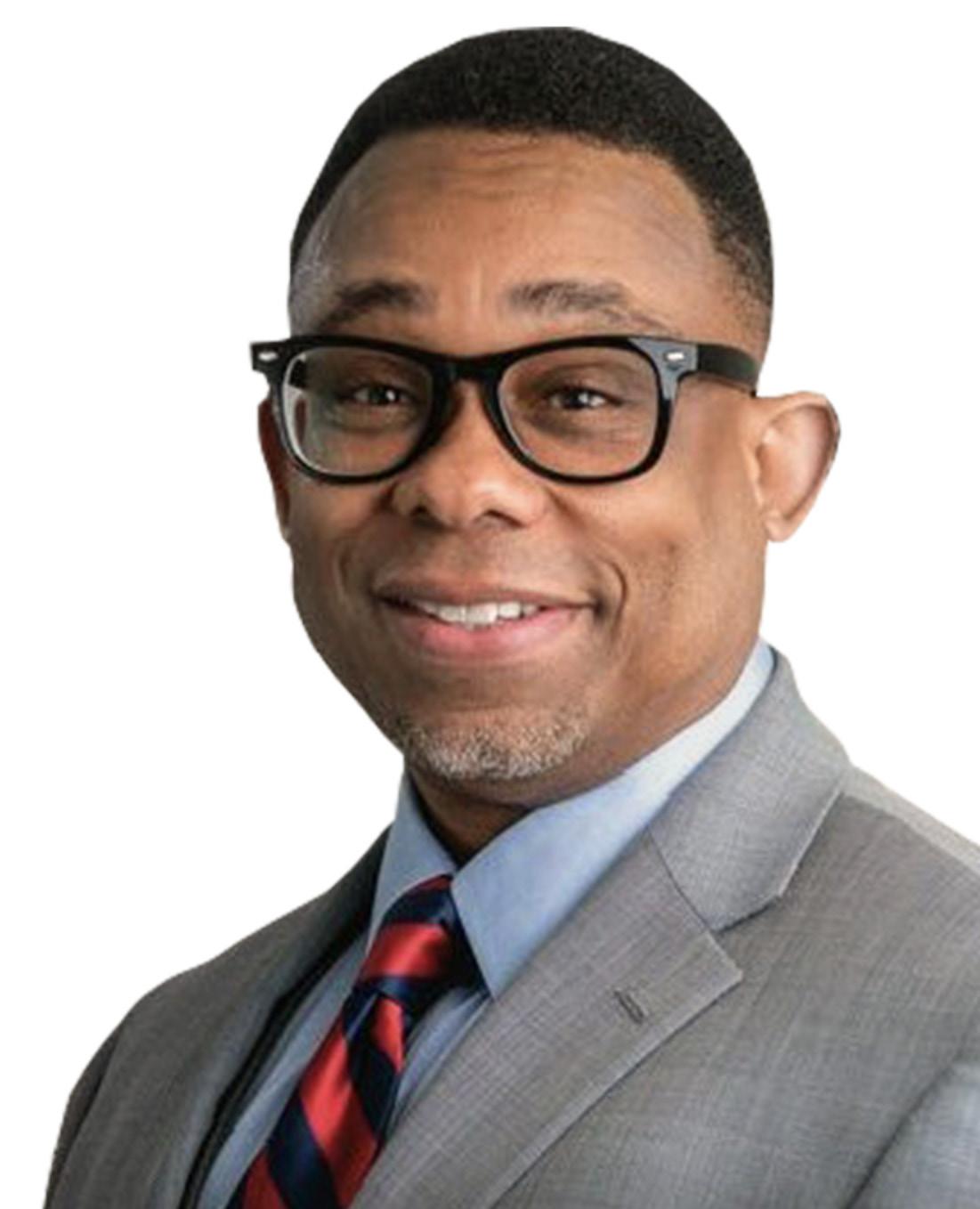
By Mark Carter
Lena Hayes was not looking to leave her position as deputy executive director of the Clinton Foundation in Little Rock. Not by a long shot.
Hayes said she was motivated by the foundation’s mission to carry on former President Bill Clinton’s creed that “everyone deserves a chance to succeed, everyone has a responsibility to act, and we all do better when we work together.”
“It was a privilege to work for an organization that embodies those values and puts people first,” she said.
Then Baptist Health came calling, in need of a new chief development officer. Hayes said she quickly learned that the values embraced by the Clinton Foundation were shared by the Baptist Health Foundation.
“Those values are transferable, and they actually exist in the culture of Baptist Health, as well,” she said.
In 2019, after more than 16 years of reporting to work at the Clinton Presidential Center, Hayes made the jump from downtown to west Little Rock to lead the fundraising arm of Baptist Health. The experience she accrued at her former job served her well in the new role, she said.
“I gained a true understanding of the importance and power of partnerships at the Clinton Foundation, and building philanthropic partnerships is our primary purpose at Baptist Health Foundation,” she said. “So much of what I learned at the Clinton Center helped prepare me for my role at Baptist Health Foundation, and I’m still learning. My experiences at Baptist Health are stretching and shaping me in an environment that is also very much dedicated to putting people first with a focus on improving health outcomes and saving lives.”
The timing of her move presented challenges. The COVID-19 pandemic started popping up in news feeds the very month she started at Baptist Health, in December 2019. Just three months later, the world was on lockdown. In her new role, Hayes said she was able to see firsthand the impact the Baptist system had on the lives of Arkansans.
“I witnessed doctors, nurses and other caregivers sacrifice their own lives to improve the health of others,” she said. “Baptist Health leaders decided that our organization would take the lead on fighting on the frontline during this unprecedented pandemic, and they leveraged every resource, no matter the cost, to stabilize the state’s crisis. Baptist Health’s motto is, ‘We’re more than a business; we’re a healing ministry.’ That was the first time of many I watched those words turn into action. I saw the health of Arkansas at its worst and the humanity of Arkansans at its best.” Hayes said Baptist Health is successful because it prioritizes access to quality care for all Arkansans, regardless of ability to pay.

“When Baptist Health acquires hospitals in rural areas around the state, this important business decision is not always good for our business,” she said. “Hospitals in rural areas around the nation are closing primarily due to financial distress. Baptist Health has made a strategic commitment to invest in our communities across the state and, more importantly, to invest in Arkansans.”
The system’s strategic priorities are aligned with its philanthropic ones, Hayes said, and that means evolving to meet the needs of Arkansans. Currently, priority needs include addressing the state’s nursing shortage, its high rates of maternal and infant mortality, and increasing access to mental health care, she said.
Hayes said very few jobs could have pulled her away from the Clinton Foundation, but “our purpose in life can evolve.” Going on five years later, Hayes and her team have helped maintain Baptist Health’s status as the state’s largest private, not-for-profit health care system.
“As we grow and encounter new opportunities, they may stimulate new passions and inspire new goals,” she said. “That’s what happened to me. A close friend told me about the opportunity, and the purpose inspired and drew me to the Baptist Health Foundation.”
“These issues are complex, resolving them is complicated, and implementing the solutions have major costs, so our foundation’s mission is becoming more and more important to Baptist Health’s success,” she said. “Our role is to connect with donors who are also interested in investing in this impactful work, and together, we can improve the health of Arkansans. As we all know, health is wealth. This fact places a huge responsibility on Baptist Health, and we don’t take our obligation lightly. We realize we all have one life, and we want to help everyone not only live but live well.”
By Mark Carter
Charlotte John’s career path did not lead her to real estate right away, though one could be forgiven for thinking the Little Rock home-selling icon was born into the business.
Necessity being the mother of invention, John reinvented herself as a real estate agent in the mid-1970s after a brief run as an IBM engineer. Today, the company that bears John’s name is one of the top-selling residential real estate firms in the state and one of central Arkansas’ most recognized brands.
John grew up in North Little Rock and went to school at the University of Arkansas in Fayetteville, where she majored in English. After graduation, she spent 12 years out of state as a military wife then as a teacher in Atlanta. Before she could realize her destiny in real estate, though, she needed to come home and find out what she did not want to do.
“After answering a newspaper ad in 1974, I was hired by IBM to be a systems engineer in data processing and was asked to move back to Little Rock,” John said. “When I realized I was in over my head with engineering, I asked to sell office equipment for them instead. They nixed that idea, and I found myself without a job.”
With sales, however, John was on the right track. She credits her entry into the Little Rock real estate market to a surprising source.
“Although straight commission sales sounded scary to me, I was encouraged to get into either insurance or real estate sales,” she said. “There were very few women in either of those areas of business. I chose real estate after talking to an old college friend of mine, Janet Morley Stover — now my friendly competitor Janet Jones. She assured me that if I worked hard, I would be able to make more money than if I taught school. I did work hard — very hard.”
Fifty years ago, of course, hard work took on a more analog disposition.
“There was no multiple listing service, no computers, no internet, no cell phones, no fax machines,” John said. “We did have typewriters and copy machines. We used carbon paper and ball point pens to write offers when we were out of the office. We went to Western Union downtown to receive acceptances/rejections from out-of-town buyers and sellers. One of our hardest jobs was finding houses that were for sale with other companies.
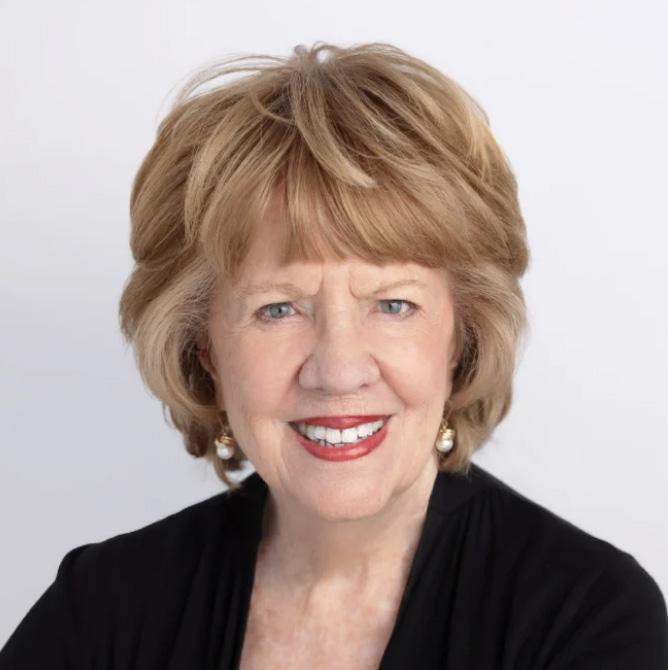
“In that era, real estate companies ran blind ads without addresses or prices. We agents had to drive through neighborhoods to find for-sale signs. Then we had to call each agent to get basic information of price and square footage. And finally, we had to go to each real estate office to borrow their particular key fob in order to show their listings.”
John’s hard work paid off. Her first year in the business, she listed and sold 30 houses. The next year, that number increased to 50.
“I never looked back,” she said.
Since her start in 1975, John said she has seen interest rates for home mortgages range from a low of less than 3 percent to a high of 21 percent. Through it all, John said she came to realize an essential truth — real estate endures. People will need to buy and sell homes regardless of the economy.
“When the rates reached 21 percent, most banks and mortgage companies completely stopped making home loans,” she said. “Most of us agents wondered how we could ever sell another house. However, many loans were assumable at that time. If a seller had to sell, they were usually agreeable to carry a second mortgage for potential buyers. That is when I realized that real estate sales go on regardless of the interest rates or the financial markets. Some people have to move for a job in a new location. Others get married and need to sell their current homes and buy one together. Others divorce and need to sell and buy. Some need a larger home for their growing family. Others need to scale down after their children are grown, and still others may simply want a change in size, style or location.”
As for trends, John said she would like to see fewer “megahouses” built for an average size family and more units that are smaller and less expensive.
Today, the Charlotte John Co. is one of the largest residential firms in Arkansas at more than 40 agents including her son, David. Real estate has been good to John and John to it, but her biggest reward from an almost 50-year run does not boil down to a sold sign.
“That would be the many friends I’ve made along the way: buyers and sellers, inspectors, insurance reps, mortgage officers, title company people, repairmen,” she said. “The list goes on and on, and I’m not done yet.”
By Lance Brownfield Tameka
Tameka Lee has worked for the Central Arkansas Library System since 2016, starting as a public relations specialist. In 2019, she was promoted to director of communications for the system and has received one more title change since then — the most recent being director of communications and community engagement.
She oversees a team of eight members, including two community liaisons.
“Years ago, I discovered my passion for working in cultural institutions,” Lee said. “The library felt like a place where I could be my authentic self and utilize the skills I’ve gained from various roles. Its diverse offerings and audience appeal to me because I enjoy reading, storytelling and helping people on their journey to become their best selves. Additionally, I can draw from my interests in dance, music and cooking. Libraries are unique places where every story is welcome.”
Starting out as a recruiter, most of her career has been spent in communications roles, including agencies and museum work.“There’s definitely a lot of coordination involved,” Lee said. “While planning and promoting events and celebrations is enjoyable, our communications strategies extend beyond that. It’s crucial to understand that a brand encompasses more than just logos and colors; it embodies the organization’s values. My role involves connecting our identity and values to our various programs and services.”
CALS consists of 15 libraries across the region, as well as the Ron Robinson Theater and Rock It! Lab, both in downtown Little Rock, and special projects such as Be Mighty, the Encyclopedia of Arkansas and the Six Bridges Book Festival.
“We empower our staff to handle some design and promotion independently, providing them with a style guide and an internal web page containing logos and graphics to maintain brand consistency,” Lee said.
Lee’s team uses a ticketing and project management system for requests. They allow each branch to manage its own Facebook page, along with some departments, while the communications team retains access and conducts checks periodically. They also attend regular meetings with programmers to stay on top of the way the assets are functioning on the various sites.
The department handles certain marketing and promotional activities, including media appearances, purchasing branded materials and advertising, to ensure brand consistency across all platforms.
Lee has advice for those who wish to find themselves in a similar work environment.
“There’s something to learn from every experience, even the unpleasant ones,” she said. “Keep learning, and don’t be afraid to explore. Fear of failure can hold you back, but taking risks is essential for progress.”
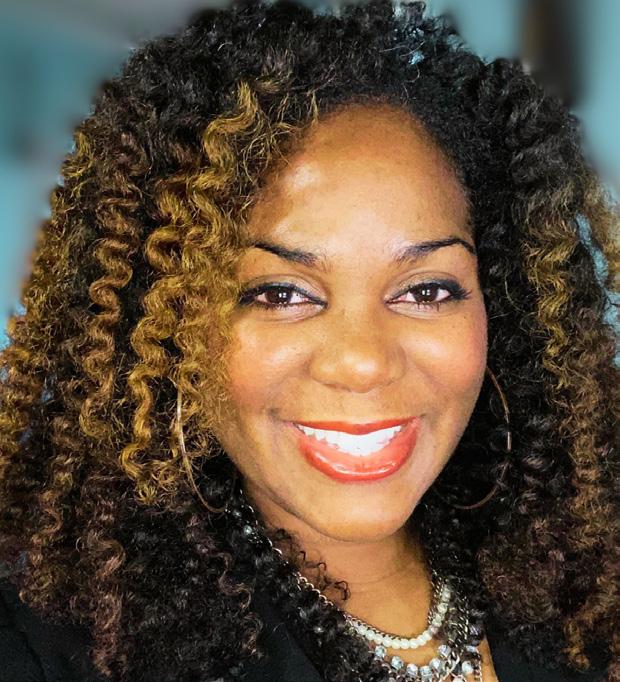
Some of her past experiences include working as a recruiter at Alltel, a community relations director at the Mosaic Templars Cultural Center in Little Rock and a PR account executive with the Design Group in Little Rock. She said these jobs all “shaped me into the professional who can handle the responsibilities of my current role.” Alltel taught her responsibility for new hires, she said, while Mosaic Templars allowed her to develop programs and coordinate events and the Design Group sharpened her writing and strategic skills.
Lee said she continues to learn in her position at CALS and takes notes from others in the industry.
“I draw inspiration from other libraries, museums and the private sector,” she said. “Although our mission vastly differs from that of for-profit organizations, I have learned a lot from their marketing and communications strategies. I pay close attention to commercials, print materials, social media and events I’ve attended to see if those techniques can be adapted for CALS.”
Lee, who also serves on the board of Potluck Food Rescue, said she works hard at making CALS a better library system, Little Rock a better community and herself a better individual. Her goal at work is to “foster partnerships that raise the library’s profile and increase awareness of our offerings, continually finding new ways to tell our story.”
She said that a strong library contributes to a healthy economy and serves as a destination for philanthropy.
“Our leadership, along with our programming and public service staff, excels at listening to residents, allowing CALS to be responsive to their needs and requests,” Lee said. “It’s an honor to work with them to advance the library’s mission, and I aim to keep enhancing our communications efforts.”
By Todd Traub
Chuck Lock’s quest for a car turned into a career.
The manager of famed outdoor retailer Mack’s Prairie Wings, which in May announced a partnership with Bass Pro Shops, was a young hunter growing up in the Stuttgart area during the 1960s and 1970s. Lock hunted and fished with his father and therefore knew Mack’s Sport Shop, as the business was then called, very well.
“My father always traded with Mack’s Sport Shop. That’s where we always got hunting and fishing gear,” Lock told Arkansas Living Magazine.
M.T. “Mack” McCollum founded Mack’s Prairie Wings in 1944 in the renowned duck hunting mecca of Stuttgart, the “Rice and Duck Capital of the World.” Originally called Mack’s Sport Shop, it was an offshoot of McCollum’s Hardware that came about as McCollum separated his sporting goods into their own store.
When McCollum died in 1979, his son M.T. “Marion” McCollum Jr. took over as president and CEO. It was Marion McCollum who hired Lock, a 15-year-old wanting to save money for a car, as a part-time employee.
He has been at Mack’s ever since, a span of almost 50 years.
Lock worked for Marion McCollum after school and on weekends, selling live bait and cane fishing poles.
“He loved me like a son, and I loved him like a dad,” Lock told KARK while rememberingMcCollum, who died at 81 in 2023.
When Lock graduated from Stuttgart High School, he asked for a full-time job, but McCollum told him he needed to go to college. Lock eventually talked McCollum into letting him go to work instead of school, and he had a ringside seat for Mack’s exponential growth into one of the nation’s leading outdoor retailers.
In May, Mack’s Prairie Wings and Bass Pro Shops announced a partnership that marries the businesses’ reputation for quality apparel and products and its longtime support of conservation efforts.
“Customers are going to benefit from Bass Pro Shops and Mack’s partnership as two specialty stores selling fun in the great outdoors,” Lock said when the partnership was announced. “We look forward to growing together with our new partners.”
“Today is a happy day for all of us at Bass Pro Shops, and we’re humbled to share this announcement which centers around passion,” said Bass Pro Shops founder Johnny Morris. “We greatly admire the passionate specialist team at Mack’s Prairie
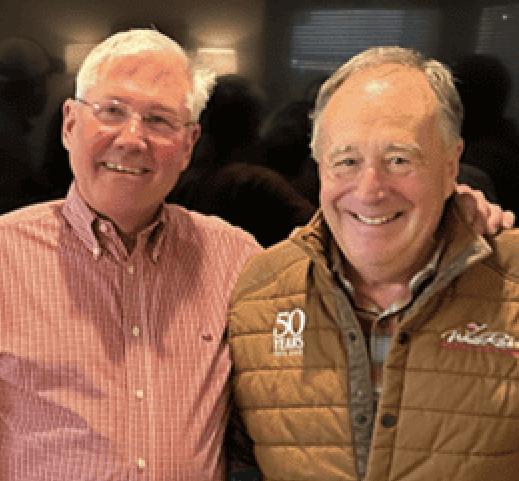
Wings for their commitment to serve the waterfowl community. By uniting, our hope is to amplify the impact of our combined expert knowledge to better serve customers and increase our shared commitment to conservation.”
Mack McCollum, Marion McCollum, other family members and partners such as Lock built Mack’s into a 125,000-squarefoot destination with a 40,000-square-foot showroom. The company employs more than 60 and has sponsored numerous conservation organizations, as well as Stuttgart’s annual World’s Championship Duck Calling Contest and the Wings Over the Prairie Festival.
Highlights of the retailer’s growth include a handful of expansions, relocation to its current site on U.S. 63, an immensely popular mail order catalog and a turkey catalog, a website, and a marine shop and boat dealership. In the past couple of years, Mack’s installed an automated warehouse system that streamlined the catalog and online orders processes.
In the days of online shopping, the physical catalog, which, in 2023, was dedicated to Marion McCollum, continues to be popular with customers and an important aid to sales.
“It drives online sales; it drives people through the front door,” Lock told Arkansas Living. “It just reinforces the story that we are America’s premier waterfowl outfitter, and it’s not something that a guy just thumbs through and throws in the trash. It’s a coffee table piece.”
The outdoor outfitter has built a national reputation as one of the leading dealers of brands such as Winchester Steel Shot, Banded, Drake Waterfowl and Benelli. Mack’s popularity has been aided no doubt by hunters, many of them celebrities ranging from political leaders to actors such as Kevin Costner, who have descended annually on the local wetlands to try their luck.
Lock always attributed the success of Mack’s to the tradition of customer service established by Mack McCollum and Marion.
“Here at Mack’s Prairie Wings, we are very hands-on,” Lock told Arkansas Living. “We take a lot of pride in the experience our staff has, and we learned customer service from probably the best guy in the business, and that was Marion McCollum. He taught us how to take care of people.”
By Sarah Coleman Jermall
Jermall Wright, superintendent of the Little Rock School District since 2022, is a strategic leader with a passion for teaching and education administration.
Originally from Florida, Wright said he knew he wanted to go into education from the time he started teaching his first Sunday school class to kindergarteners when he was in sixth grade.
“I’ve always loved teaching, and I always knew I wanted to be a teacher,” Wright said. “Before I left high school, I knew that I wanted to major in education because of the relationship I had with my high school principal.”
Wright also loved being a student. He earned his bachelor’s degree in social science secondary education and his master’s in educational leadership from the University of North Florida. He went on to earn a specialist degree in special education from the University of Florida, and his doctoral degree in leadership for educational equity, specializing in early childhood special education from the University of Colorado at Denver.
Before joining the Little Rock School District, Wright had three decades of experience in public education. Beginning his career in 1997 as a teacher in Florida, Wright quickly transitioned to administrative roles. Wright is also an experienced college and university instructor, having served in teacher preparation programs in two states and Washington, D.C.
During his time as a principal, he led elementary and secondary schools in Florida, Washington D.C. and Colorado. In 2017, he joined the Birmingham City School District in Alabama as chief academic and accountability officer. Wright was then hired in 2019 by the Mississippi State Board of Education as the founding superintendent of the Mississippi Achievement School District, a position he held until accepting his current role.
“Arkansas is the seventh state that I’ve lived in while working in education,” Wright said. “My biggest goal in any district is always to make sure that we significantly increase student achievement. My goal here in Little Rock is to make a big dent in the disparities that currently exist when it comes to academic achievement of Black students, and students of color in general.”
Upon joining LRSD, Wright launched his 100 Day Plan, which had several goals, most of which were based in collaborating with internal and external stakeholders, including parents and community partners, reviewing all major systems and launching superintendent advisory councils. The 100 Day Plan was also focused on establishing a culture of “trust, transparency, learning,
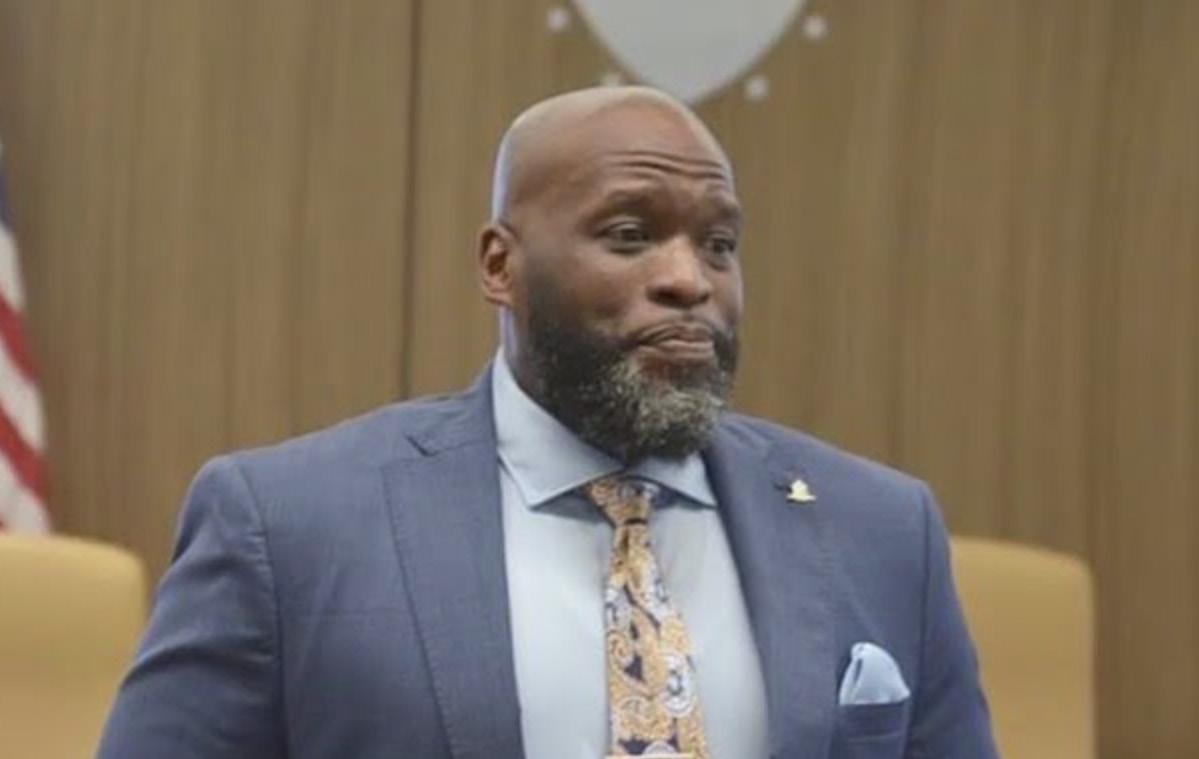
leadership, joy and love.”
With experience working in urban and rural school districts, Wright said he believes the obstacles students face in Little Rock mirror those in similar school districts. While poverty remains an ongoing obstacle for many students in the district, Wright continues to push students and educators to be achievement minded.
“I don’t use poverty as an excuse, but of course, the impact of poverty in society at large plays out in education just like it plays out in everything else,” Wright said, adding that about 80 percent of the district’s students qualify for free and reduced lunch.
Wright has also instilled the expectation that educators both expect and believe that kids can excel in LRSD, regardless of obstacles and disparities.
Wright has a track record of turning around schools, and he approaches his work in a way that demonstrates that. During his time in Denver, he improved schools by at least two performance metrics. Throughout three years in Mississippi, he saw graduation rates improve by double digits in two districts, allowing for state accreditation violations to be cleared. He also saw his former district’s first group of students in the Mississippi Delta who were on track to earn their associate degrees from Mississippi Delta Community College.
“From all of my experiences, I’ve developed a set of core values, and those core values are deeply rooted in not just the belief that kids can achieve and the power of education, but also in the power of education to right wrongs,” Wright said. “I believe in the transformational power that an educator can have in the lives of kids.”
By Sarah DeClerk
The medical industry is an ever-evolving field, especially for those in aesthetics and cosmetic surgery, but that is no problem for Suzanne Yee, M.D., owner of Dr. Suzanne Yee Cosmetic & Laser Surgery Center/Med Spa, who has been chasing the trends ever since she was a new physician.
She completed her medical degree and residency in head and neck surgery at the University of Arkansas for Medical Sciences in Little Rock, where she trained under a laser surgeon, an opportunity few surgeons have, she said. Then she completed a facial plastic and reconstructive surgery fellowship in Houston, and she still reaps the benefits of the hands-on training in fillers that she received there.
However, what really set the trajectory for her career was attending the very first course in Botox after the treatment first hit the market in 1997.
“I went to it, and it was pretty amazing, so I came back, and I asked the patients if they would like to try the Botox, and they did,” she said. “I still have some of those patients coming back to me now, after 20 years, but I think starting from Botox, it really made me realize how some of these minimally invasive procedures have become very in vogue.”
Although Yee performs a full slate of surgical and nonsurgical procedures, she said today’s patients mostly ask for minimally invasive fillers and laser treatments that require no downtown and help prevent aging, and new techniques have been developed to reduce the invasive aspects of surgery, as well.
“As a physician, there’s always something new coming out,” she said.
She added that she works to provide a full range of options to patients, and her clinic offers everything from wrinkle reduction, tattoo removal and skin tightening to face lifts, tummy tucks and breast augmentation.
“We try to make it more personal for them because not every person is one size fits all,” she said. “Some patients want a nonsurgical procedure, some patients want surgery, but we want to give them their desired outcome with whatever they feel comfortable with.”
Providing those options is important for someone who is in the business of building confidence.
“Everyone has something that bothers them, right, and it just affects their confidence, so I try to address the issues they have
that are causing them not to feel confident in themselves,” Yee said. “It’s very gratifying to be able to help patients feel good about themselves and be confident so they can concentrate on other things in their life.”
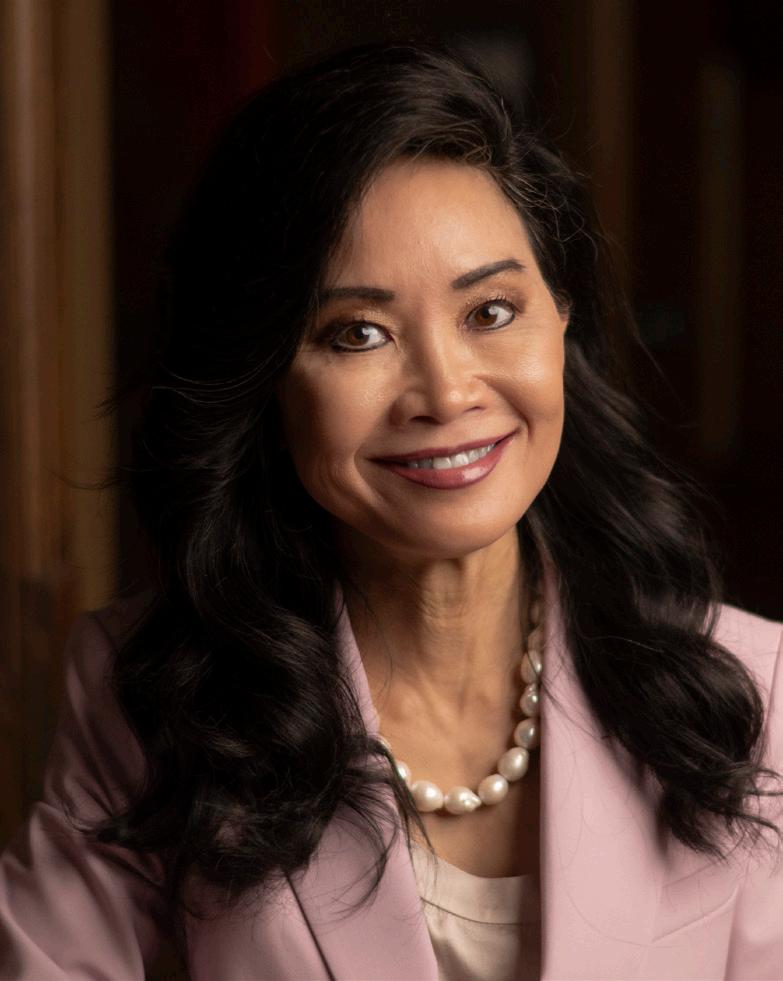
She added that her staff are essential to patient satisfaction, and she takes as much pride in creating a family-like atmosphere where employees are glad to come to work as she does in helping patients look great.
Now in her 60s, Yee has turned her attention to helping train the next generation of physicians while continuing to stay current in her field.
“I want to mentor younger physicians who are not only going into this profession, but into some type of medical field,” she said, adding that she plans to have a surgical fellow at the practice this year. “I can pass on some knowledge to them, so I’m excited about that.”
Perhaps two of her most meaningful proteges are her daughters, who have both joined the medical field.
“I think what is gratifying is that they were able to watch me as a mother, and also as someone who works outside the home, [and see] that they can do that also,” she said. “They’ve been very successful in their pursuit of going to medical school, and I’m just really proud of them.”
Paying it forward to the next generation is just one more reason to follow the latest trends, she added.
“I have to stay on top of things to be able to teach them,” she said.
Diane Zook
By Kenneth Heard
Given the right environment, all children should do well and achieve in school, Arkansas educator Diane Zook said.
Zook has seen education at work on all levels. She was born in Batesville and moved to Melbourne in Izard County at an early age when her father took over part ownership of the local newspaper, the Melbourne Times.
She graduated from the small high school there at a time when children with learning disabilities were lumped in together with the entire student body. It made an impression on Zook.
“Now public schools are required to teach [disabled children],” she said. “Before, they weren’t teaching those who were handicapped.”
She went to the University of Central Arkansas in Conway, where she earned her education degree. Zook taught at Henderson Middle School in Little Rock and the Rockefeller Demonstration School in Morrilton and later worked with a group at the University of Arkansas Medical Sciences that was researching minimal brain dysfunction. In this role, Zook said she was the first teacher of autistic children in Arkansas. She also spent 12 years as director of special education for the North Little Rock School District.
Zook moved to Atlanta when her husband, Randy Zook, took a promotion with Atlantic Envelope Co. and was relocated to company headquarters there. While in Georgia, she continued her work with children dealing with disabilities. Randy Zook, president of the Arkansas Chamber of Commerce/Associated Industries of Arkansas, retired from the manufacturing company and the couple moved back to Arkansas, taking a detour before landing back in Little Rock.
The Zooks bought and operated a small convenience store/restaurant in Melbourne called Zook’s Possum Trot. Zook said the time they spent opening the store at 4:30 a.m. would make its own story, but education remained her priority. She believed all children could succeed in school if they were guided correctly.
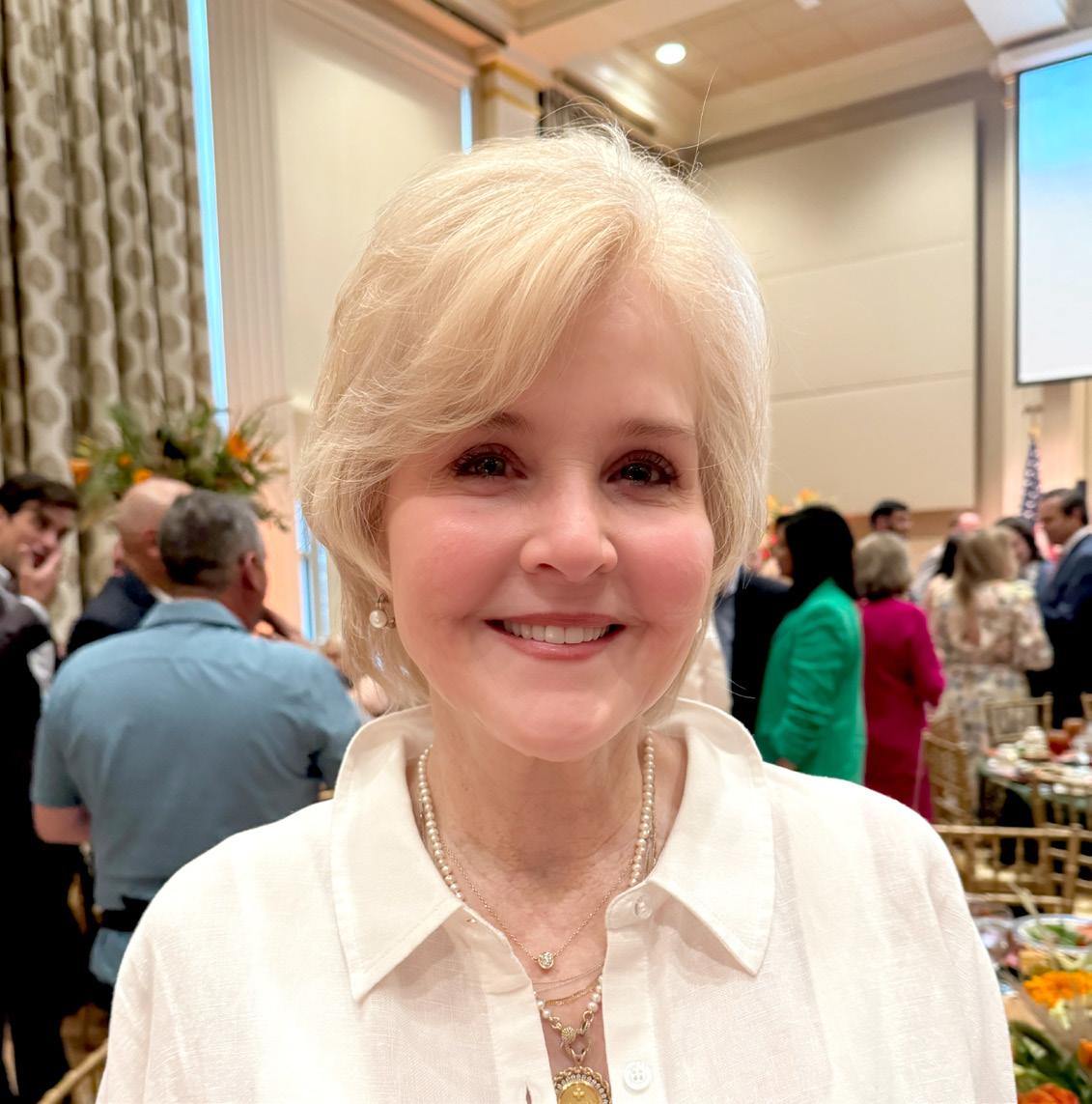
“People have always made decisions for children in schools,” she said. “They say, ‘Here, these are the needs for your child.’ There is no simple panacea. Parents can’t help but know what their children need. We need [educators] to ask parents for their help, not to tell them what their choices are.”
The Zooks ended up back in Little Rock when Randy was appointed by then-Gov. Mike Beebe to the Arkansas Economic Development Commission. Meanwhile, Diane served on the 16th District’s Court Appointed Special Advocates, which assists abused and neglected children in courts in Cleburne, Fulton, Independence, Izard and Stone counties.
In 2013, she was appointed to the Arkansas Board of Education by Beebe, a Democrat, and served as its chairperson from 2019 to 2020. In 2022, she was appointed by former Gov. Asa Hutchinson to the Atlanta-based Southern Regional Education Board, which is composed of representatives from 16 states who work to improve education from early childhood learning through doctoral educational programs.
Zook said she enjoyed her term on the state board and if she could be appointed again, she would gladly serve another term.
Looking back on her career, Zook said one of the most rewarding things is that no families ever called to say that she did not do right by their child.
“You have to have faith in the children,” she said. “You need to teach them what they need to know to succeed. You can’t skip that. You can’t teach a class; you have to teach a child.”
From trust falls and team building to paddleboarding and other adventurous activities, retreats are a quintessential pastime at corporations and nonprofit organizations. With the restrictions of the COVID-19 pandemic in the rearview mirror, those who specialize in cultivating such experiences said retreats are back in full force.
“So many people have been working from home,” said Anna Oberste, director of sales at Oaklawn Racing Casino Resort in Hot Springs. “Some of them are hybrid. Some people are traveling without offices. Corporate retreats have really become a time to bring everybody together, especially for those companies where everybody works separately.”
Danny Collins, founder of 37 North Expeditions in Bentonville, agreed that retreats have become a priority for organizations interested in regaining face-to-face connections.
“I believe bringing people physically together is more crucial than it’s ever been,” he said. “I think that some of those interactions that might have been displaced in this new era of work environments, especially, are needed, and those are fruitful for people to come together."
How organizations accomplish that task can vary wildly based on the goal of the retreat and the nature of the employees, and whether the situation calls for lots of workshops that help employees become their best selves or simply some time spent together in the great outdoors, there are plenty of local places to consider.
One of the most exemplary venues for corporate retreats is the Winthrop Rockefeller Institute atop Petit Jean Mountain in Morrilton. Just a stone’s throw from Petit Jean State Park and the Museum of Automobiles, the institute offers both an array of services and a bounty of activities on and off campus.
“Coming to Petit Jean Mountain, there’s something about that experience where you kind of wind up the mountain path on the way
to the institute,” said Janet Harris, executive director. “It allows you to just leave behind the cares of your day to day.”
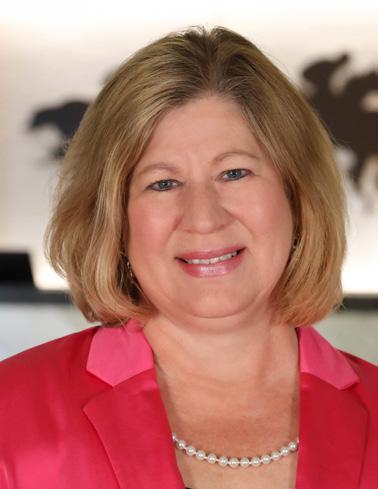
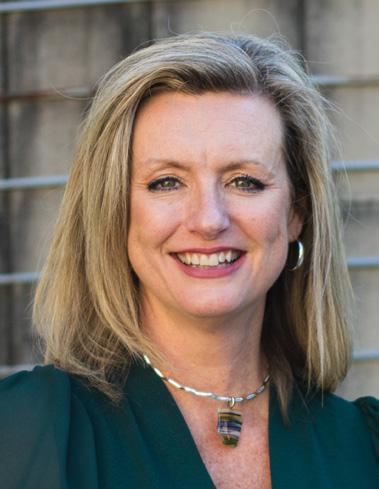
Grounded in the Rockefeller ethic championed by Gov. Winthrop Rockefeller of collaborative problem solving, respectful dialogue and diversity of opinion, the institute focuses on helping retreat participants collaborate and solve problems.

“The most important thing is having a clear, agreedupon purpose for your time together,” Harris said, adding that the purpose of a retreat may be as general as getting to know each other or learning to communicate effectively as a team or as specific as constructing a strategic plan.
Other considerations include the number of people in attendance and the length of the stay, she added. Including retreat attendees in the planning process can also help facilitate engagement.
“Again, start with your outcome,” Harris said. “What do you hope to accomplish, and what would you like to have be different when you leave?”
In addition to meeting design and facilitation services and turnkey conference services, WRI’s 188-acre campus provides a beautiful natural setting ideal for outdoor strolls or making s’mores around a firepit. The institute of-
fers kayaking and canoeing, fishing, pickleball, volleyball, bocce ball, bike rentals and more.
Some unique experiences include culinary team-building packages and leadership workshops such as Walks With the Governor.
“We all, as leaders, tend to get mired down in the day-to-day challenges that we’re in,” Harris said. “Taking an opportunity to step away from that and work proactively and strategically on our business is healthy for organizations and leadership teams.”
Although the institute offers meeting facilitation on-site at places of employment, Harris said she encourages organizations to bring employees together in a relaxed atmosphere outdoors.
“The campus on the mountain has always been a place of convening, from the time Winthrop Rockefeller built it when he moved to Arkansas in 1953,” Harris said. “We have that long legacy of bringing people to the mountain to discuss issues and learn how to work together and to collaborate more effectively. There is something special about the atmosphere of the mountain, and I think it’s because of the history. That draws people there and gives that an experience that, I believe, is kind of bespoke and unique to the institute.”
Collins agreed that having a clear goal in mind is paramount when planning a retreat.
“The word ‘retreat’ has become a little ambiguous,” he said. “I think the biggest decision, and the way we always talk about it during our first contact with anybody, is are you looking to really work on team development, employee development, leadership development, or are you just looking to spend some authentic time together and let people just be present together outside the office setting?”
He added that retreats of all kinds can improve employees’ mental health and improve work relationships.
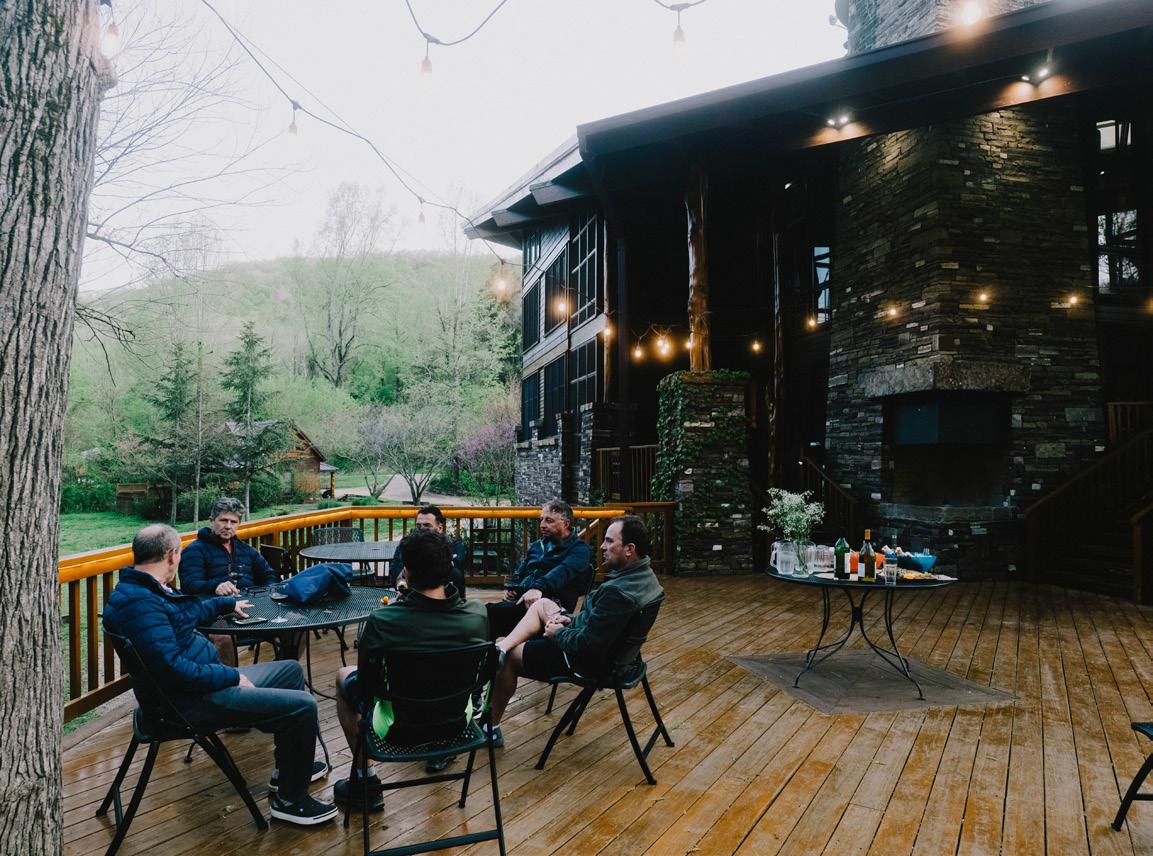
“Spending some authentic time together and outside of a work environment really allows people to bond more, and it allows them to just be more personable with each other,” he said. “That creates way better corporate environments, in general, for a lot of different reasons.”
With the Ozark Mountains in its backyard, 37 North can provide e-bike tours, hiking trips and paddling excursions, as well as sightseeing in some of northwest Arkansas’ urban meccas. The company also offers more structured team-building activities such as a map-based scavenger hunt that teaches participants skills they can use in the office, he said.
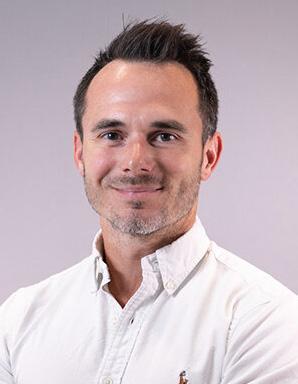
He added that 37 North functions as a logistics planner and itinerary creator that can provide for both two-hour workshop sessions and multiday retreats while handling hotel reservations, catering, transportation and other necessities.
As technology has shifted the work/life balance, authentic experiences that involve wellness and exploration are beginning to outpace traditional happy hours as a way for workers to relax and unwind, he said.
“This mentality of 9 to 5 is almost nonexistent anymore for the heavy majority of our workforce in this country, if not the world,” he said. “I think the pushback of that with the younger generations is, ‘OK, if my work is going to extend into my quote-unquote “personal time” and I’m relatively OK with that, I also want some of these things that I value outside of my work to be channeled through my work setting, as well.’”
One of the most rewarding parts of his job, he said, is watching people try new activities and continue them after the retreat is over.
“That is a really amazing relationship with your employer if your employer is creating settings where you get to have an experience you wouldn’t, probably, ever do on your own,” he said. “It’s a really special time in society that we’re seeing those kinds of stories coming from your work, not from your personal time.”
If unique retreats are the new wave, ready with a fishing pole in hand are the many attractions created by Bass Pro Shops founder Johnny Morris in southern Missouri.
“A lot of companies really want outside-of-the-box, very unique things, things that they haven’t done before,” said Tracy Kimmel, special events and group sales manager at Dogwood Canyon Nature Park in Lampe, which, along with Johnny Morris’ Wonders of Wildlife National Museum & Aquarium in Springfield, provides memorable, nature-oriented activities.
Kimmel said the most popular corporate offering is a tram tour that provides information about the history of the property, up-close encounters with elk, bison and longhorn cattle, and a banquet. Other excursions include owl prowls in fall, eagle watching in winter and year-round fly fishing.
“At the end of the day, everything we do is based around bringing everybody back to the roots of nature and outdoors,” Kimmel said. “We get groups from all over the place, and it’s a very unique experience for them and really makes them realize the natural beauty. Not having access to cellphone service and internet constantly while they’re on property helps them interact with each other, helps them build relationships.”

Debra Hartman, senior sales manager at Johnny Morris’ Conservation Attractions, said Wonders of Wildlife works alongside White River Conference Center in Springdale to provide fun corporate events that might include project announcements made by divers or plunging a CEO into the shark tank.
Even more activities, plus accommodations, can be found at Big Cedar Lodge in Ridgedale, where visitors can check out five golf courses and the Top of the Rock Lost Canyon Cave & Nature Trail, which takes patrons on a golf cart tour past waterfalls and through a cave.
“So often, [companies] have this packed agenda. It is so intense, and they’re noticing if we don’t break this up, we’re not going to get attendance,” Hartman said, adding that companies can break up a string of meetings by having a hike or another activity in the afternoon.
Retreats give people such as regional directors who may have only interacted with their colleagues by phone or email a chance to meet in person, she said, adding that she works to go beyond basic icebreakers by directing planners toward activities such as survival classes that test colleagues’ skills and farm-to-table lessons at Findley Farms in Ozark.
“I would tell retreat planners, ‘Let’s mix this up. Here’s what we can do,’” she said. “A lot of them just don’t know. They’re used to going to Vegas or some other location where they just sit in all their meetings, and they’re not really doing a lot of team building, so this really changes the game, that they can get people to interact with one another.”
In a field of retreat venues touting the benefits of the great outdoors, Oaklawn stands out as decidedly home-loving. Sure, Hot Springs National Park is available for a hike in the mountains or a stroll along Bathhouse Row, but those who retreat at Oaklawn can find plenty to do without leaving the property.
From the racetrack to the gaming floor, with a pool, a spa and several restaurants in between, Oaklawn provides for both entertainment and relaxation while allowing more traditional professional activities, such as speakers and workshops.
“To me, a retreat means to withdraw from the daily normal,” Oberste said. “For a corporation or organization, that would be for them to be intentional about getting out of the everyday hustle and bustle, out of the daily grind we all find ourselves in, so that we can relax and just kind of have time to do exactly what it says, to withdraw and reenergize so that we can become refocused.”
Like others, she stressed the importance of setting a goal for the retreat. Equally important, she said, is considering the individuals who will be a part of the retreat.
“You don’t want to plan something so far out of the box that nobody’s going to have fun or your goal’s not going to get met, so keeping your audience in mind is important, but you also have to be able to offer them an event that is going to drive the results you’re looking for,” she said. “Sometimes that does mean people have to step out of their box and do something they’re not used to.”
Those interested in team building and boosting morale can try activities such as ax throwing, virtual hockey and virtual golf, she said. If relaxation is the goal, spa trips or pool-side yoga and massages might just be the ticket. Oaklawn also offers group culinary experiences and mixology lessons.
Then there is the racing and gaming that puts Oaklawn on the map, and Oberste said staff can organize slots tournaments, sports betting tutorials and barn tours. Perhaps one of the most memorable experiences is Dawn at Oaklawn, for which visitors tour the track in the morning to watch the horses being trained.
“There’s a saying called ‘become one with the horse,’” Obserte said. “A jockey becomes one with his horse, which makes them a team, by spending time with the horse. He’s in the stall with the horse. He’s in the arena with the horse. He’s in the pasture with the horse. He’s walking the horse around the track, and then they race, and they are a team like no other. That’s really what corporate retreats are about — building these fabulous teams.”

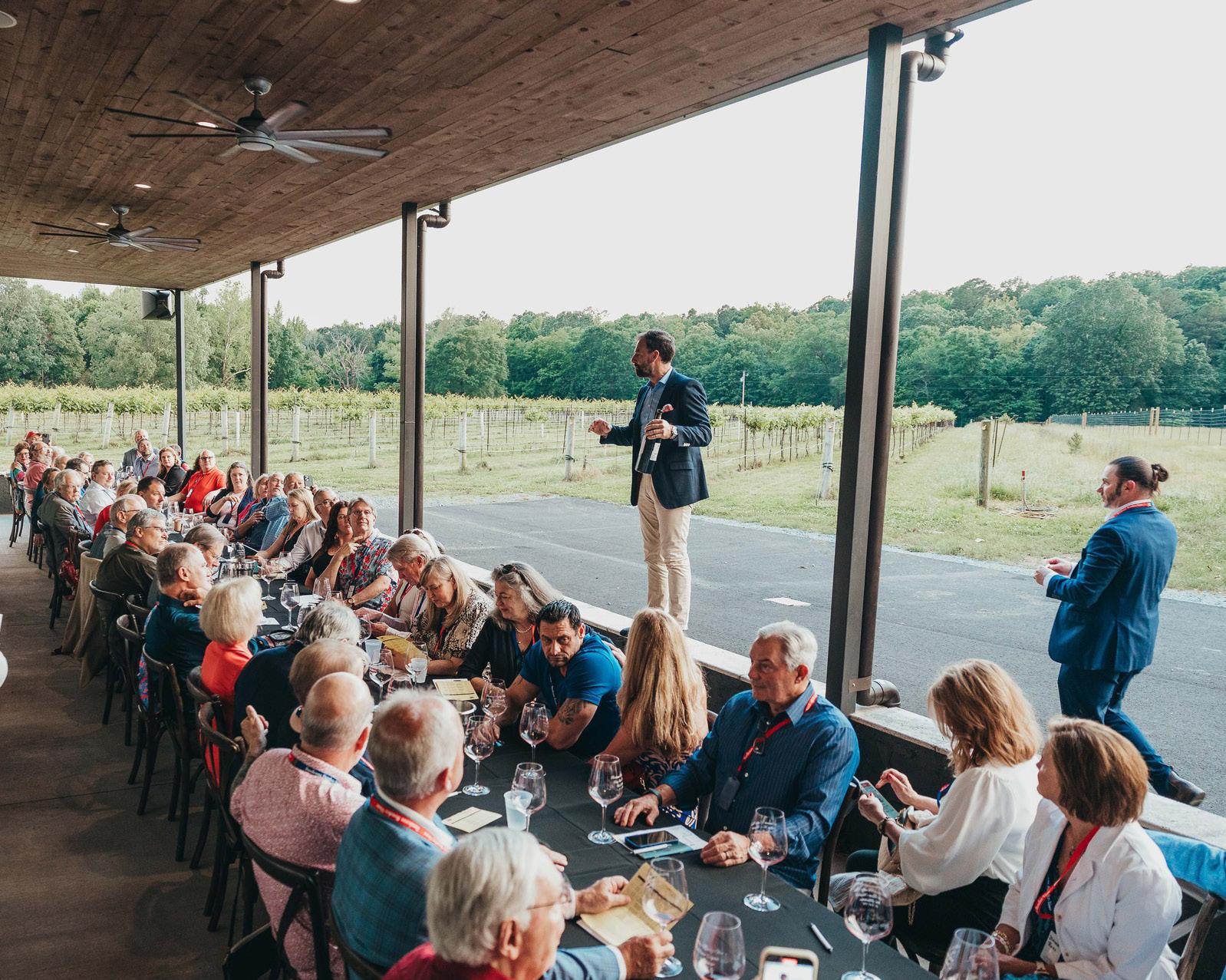
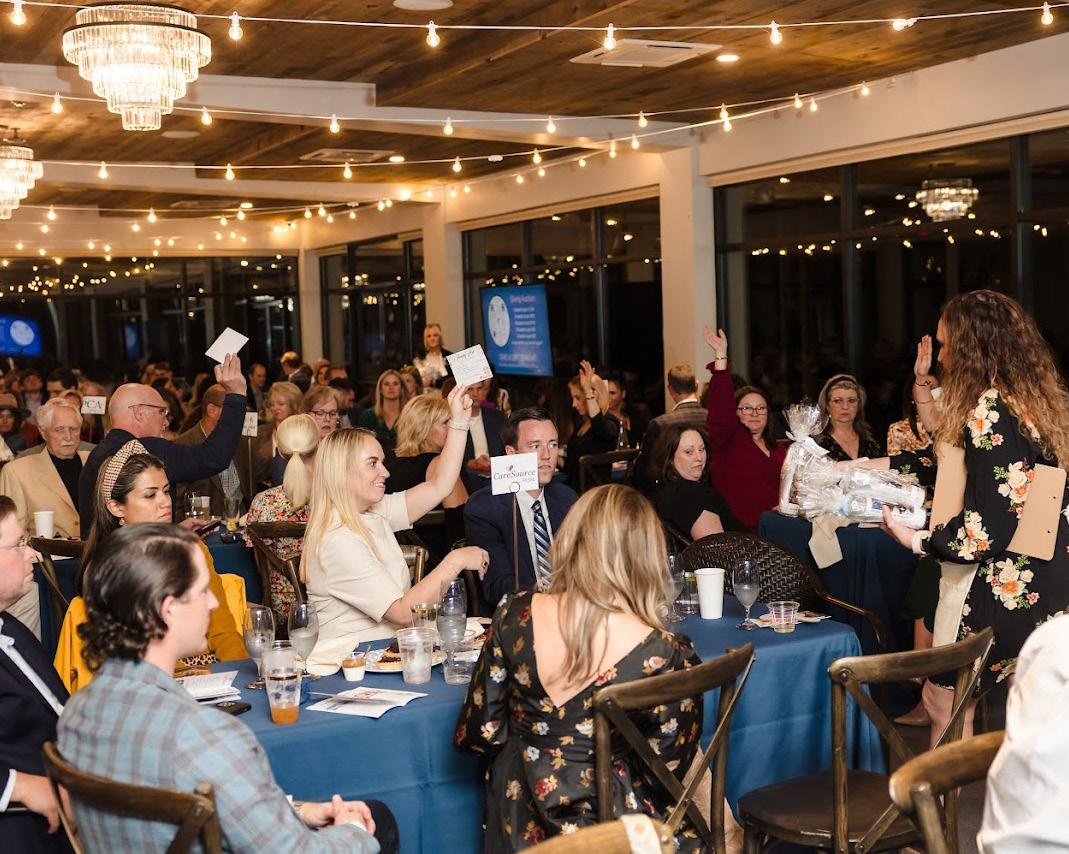



Arkansas wine an experience in agriculture, manufacturing, tourism

By Dwain Hebda
Arkansas’ wine industry, valued at $1 billion, is well down the list of the state’s agricultural product sectors, both in dollars and acres, but it is unique in its composition. Rice remains the undisputed king of Natural State crops, but tourists generally do not visit rice fields to enjoy a bowl of the stuff. Nor does the average consumer give thanks to the soybean farmer for the life of their tires, even though Goodyear plans to replace petroleum with soybean oil by 2040, the United Soybean Board states.
“If you asked anybody, ‘What’s Arkansas known for agriculturally?’ they’ll say soybeans, rice, cotton, cattle,” said Doug Meyer, president and co-founder of Rusty Tractor Vineyards in Little Rock. “Grapes will probably hardly ever be mentioned. If you asked the same thing in [California’s] Napa Valley, you’d get a totally different response.”
The state’s wine industry, however, balances an economic trinity of tourism, agriculture and commercial products that are all closely interrelated. As such, producers enjoy three times the opportunity to market themselves while dealing with triple the challenges, from crop health and manufacturing to marketing and changing consumer tastes. Still, Meyer said the potential for the industry remains unmatched.
“If I could change one thing that would help the wine industry in Arkansas, it would be to have 30 more winemakers,” he said. “Oklahoma has 50 wineries. Texas has 470. Missouri has 130. Tennessee has 69 and growing. We have 20 or 21, and it’s been 20 or 21 for the last 20 or 30 years. The best thing that could happen to the wine industry in Arkansas is to go to 60 or 70 or 80 wineries where we have bigger wine trails, increased tourism, more awareness to the general public.
“Most people in business would say, ‘I don’t need more competition,’ but with wineries, the more there are, the more people come. If you go to Napa, you might taste three different wineries in one day, but instead of going there for one day, you go there for three or four days and taste 10 different wineries. It kind of feeds off itself.”
Arkansas is home to three American Viticultural Areas, or delimited grape-growing regions with unique properties, which the wine industry identifies as geographic or climatic features that influences the character of the grape, WineSearcher states. At less than 13,000 acres, Altus is the bullseye of those three AVAs and is surrounded by the much larger Arkansas Mountain, a circle that stretches from Conway to Fort Smith. Covering 3 million acres, it is one of the largest single-state AVAs in the nation.
tainous terrain which is desirable for proper drainage and, especially in the case of Altus, creating pockets of air that help regulate temperature.
Chardonnay, merlot, niagara and muscadine grape varieties are among the most important Arkansas plantings, but not all grapes grow equally in all parts of the state. Meyer said one of the challenges to the industry below Arkansas’ River Valley is the varietal trade-offs that simply cannot be overcome due to climate and, to a lesser degree, terroir, or soil composition.
“The biggest challenge we have is our July and August, the 90- to 100-degree days with the humidity,” Meyer said. “It’s very difficult to grow cabernet or chardonnay in Arkansas, mostly because of our weather. It’s not because of the soil; it’s just because of the weather. We have to grow wines that can handle that heat and humidity.”
“Other places — Napa; Bordeaux, France; Florence, Italy — have the 90- to 100-degree days, but they don’t have the 80 to 90 percent humidity. It’s the humidity with the tight clusters of grapes that causes the problems. They have the ocean breezes and the cool air that comes in and cools the grapes down at night. Our July and August, a lot of times, you walk outside at midnight, and it’s still 80 degrees and humid. That brings challenges of different kinds of diseases, mostly fungus.”
In 2016, the University of Arkansas System Division of Agriculture introduced the first wine grapes produced from its fruit breeding program, the neutral white wine grape Opportunity and rich red wine grape Enchantment. In 2021, two more new grapes were introduced, the floral and fruity white wine grape Indulgence, and Dazzle, a pink grape that produces white Gerwürztraminer-type wine, lending a spicy aroma to the traditionally floral nose and dry flavor profile. The new grapes were lauded for disease resistance, adaptability to Arkansas growing conditions and chemical properties that made them versatile in winemaking.
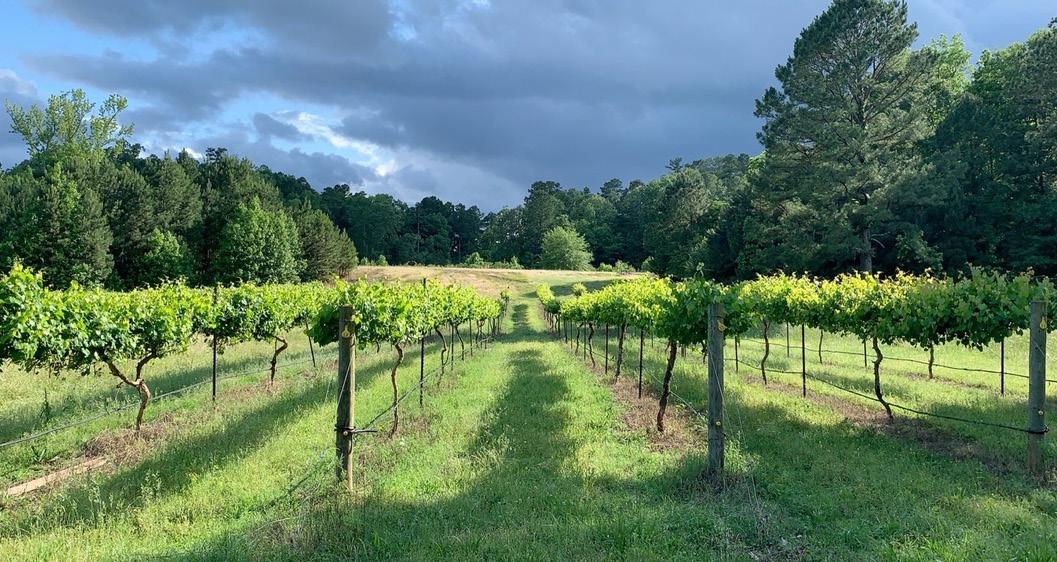
Arkansas Mountain sits entirely inside the behemoth Ozark Mountain AVA, a 3.5-millionacre patch that is one of the largest AVAs in the country, covering growing regions in Arkansas, Oklahoma and south Missouri. Broadly speaking, the three AVAs have in common a moun- Rusty Tractor Vineyards in Little Rock. (Photos provided)
Today’s tourists are far more interested in visiting a place they see as local and artisan.
Meyer praised the work of the UA for giving producers more tools in their toolkit.
“One of the fabulous things that we have is the University of Arkansas has been working on hybrids for 30, 40 years, and they are constantly bringing out new varieties that can take that deep humidity but also produce good quality grapes and, in turn, good quality wine,” he said.
Other innovations on the agricultural side resonate on several levels. Meyer has installed alternative watering systems and solar panels to provide electricity, which not only improves efficiency but strikes a chord with today’s wine tourists and consumers. Andrew Post, president of Post Winery in Altus, the largest operation in Arkansas by far, said public tastes are changing how the industry standard bearer approaches its craft.
“We’re on this push to be 100 percent organic because all of a sudden, it has much more synergy than you might think at first,” he said. “I believe that muscadines have some advantages to going organic. A muscadine is much, much more robust in its immune system than other grapes. If there’s a grape that can be utilized in the organic market, I have reason to believe that it’s muscadines.
“Consumers are looking at the health of the beverage, but there are other considerations, as well. If we could be 100 percent organic, that would have implications beyond only the customer. That would impact the health of our employees to where they’re not subjected to anything dangerous, like some sprays. It has implications for the land itself, the neighbors, where if you want to develop homes. All of a sudden, there’s no drift concerns.”
the family plats in Altus, which Post said represented an important growth strategy for the future, both for his winery and the industry overall.
“Expansion, the way to do that is we don’t try to own everything ourselves,” he said. “There’s ample work for all of us, and the trick is to embrace other farmers, other growers in Arkansas that are looking for alternative crops that perhaps pay better and can be more fitting for their philosophy and working with the land in a sustainable way. There are folks out there that can, and would love to, grow grapes.”
That said, not every farm in Arkansas is suitable for growing the crop.
“There’s a set of requirements for each site that would have to be studied,” Post said. “One of the biggest factors, for instance, is water. That’s a big limitation because you have to have a very good water source. Every plant takes about five gallons a day.”

By almost every measurement, the Post Winery operation is huge, claiming to be in the top 100 largest in the industry. Post would not disclose production figures but estimated the operation was twice the size of the rest of the state’s producers combined. Getting to such volume has meant expanding pastCutline
Like all consumer products, wineries in Arkansas have had to roll with the punches when it comes to consumer tastes and regulation. As the longest-standing winery in Arkansas, Post has a colorful history of meeting challenges posed by the times. The company has long produced sacramental wine and juices by which it withstood Prohibition, whichnearly wiped out the Arkansas industry entirely. Today, Post and its peers are having to pivot to meet younger consumers who, statistically, are drinking less wine than their parents did.
According to 8Wines, United States consumers have posted 14 straight years of year-over-year declining wine consumption. In 2010, Americans drank 9.8 liters per capita, more than double the 4.5 liters per person they are expected to consume in 2024. Even the quarantine lockdowns and shelter in place mandates of the COVID-19 pandemic year could not arrest the slide, and consumption dropped 0.3 liters per capita from 2019 to 2020.
The Wine Market Council reported in January the results of a survey that revealed several factors were at work in the decrease. One, a general reduction in alcohol consumption overall and two, inflation and economic factors that are forcing consumers to cut
their spending. As evidenced by the drop in wine and alcohol sales, such items are a cutback more easily justified as a step toward better health.
For this reason, wineries have to rely on the experience their operations offer rather than solely on the product itself, which taps into the tourism aspect of the industry. As of 2022, virtually every one of the 21 wine producers in the state have some sort of tasting room or other structure worth driving to, the National Association of American Wineries states. They vary widely from place to place from a modest tasting room snuggled into a corner of the vineyard to ancient farm buildings to the more elaborate event spaces at Rusty Tractor and the clutch of stylish wineries in Altus.

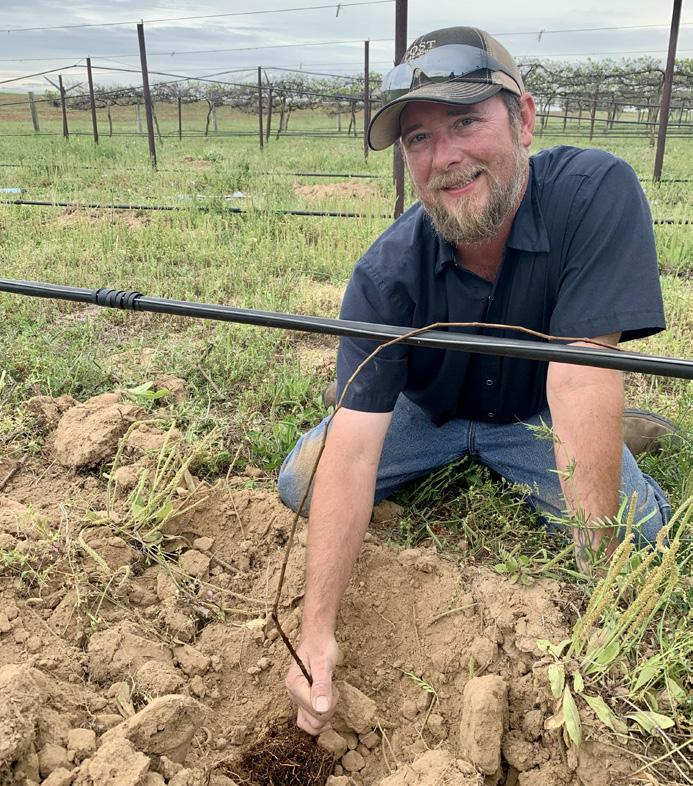
An effective experience and compelling story can be a great equalizer in the marketplace. Ten-year-old River Bottom Winery at BoBrook Farms in Roland is a fraction of the size of other wineries yet enjoys a steady to brisk pace of business thanks to the amenities it offers and the connections it makes with its customers.
“The best thing that has happened to us is Little Rock tourism. They really promote breweries and the wineries. They really do a super job helping us promote ourselves,” said Karen Bradford, River Bottom founder. “One good thing about Arkansas is around here, everybody helps promote everybody else. When people come here, we tell them, ‘Hey, don’t forget to go up to the street to An Enchanting Evening.’ We’re not each other’s competition. Every winery in the state that I’ve been to is just totally different.”
Bradford said she has also witnessed a switch in consumer tastes in that where once being small was a liability because of a lack of marketing dollars or name recognition, such attributes are now a decided advantage. Today’s tourists are far more interested in visiting a place they see as local and artisan, she said.
“People tell us all the time, ‘This is so amazing. You guys are the owners. Tell me how you did this,’” she said. “People appreciate the fact that we attempt to grow as much [grapes and fruit] here as we can, and they also appreciate the fact that we give them a great variety of other things. We offer a laid-back atmosphere. We have that mom-and-pop type thing going. We know most of our customers by name. It’s just a different vibe out here.”
River Bottom Winery produced about 10,000 gallons of product last year, which is miniscule by industry standards. Bradford said she has no interest in ramping up to compete with larger wineries or get into restaurants and retail because
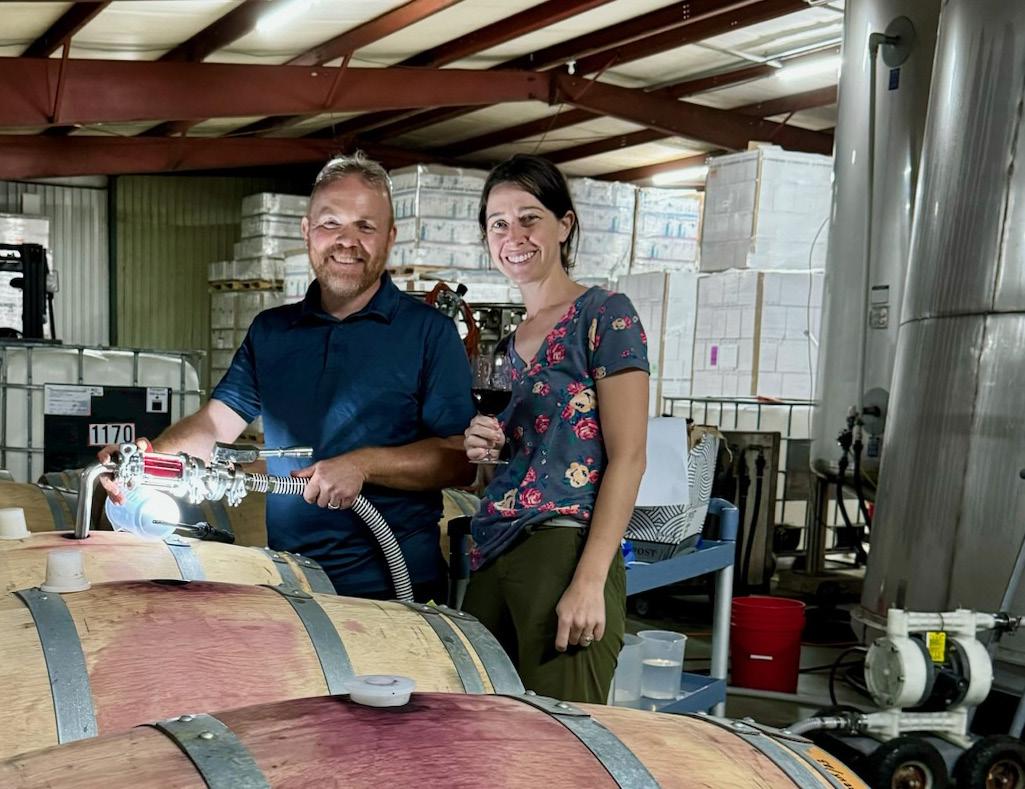
the winery was formed as an adjunct to BoBrook’s other amenities, such as the annual pumpkin patch and an on-premises wedding venue. She said those attractions, as well as tourist trends and loyal regulars, have the small farm-based winery right where she wants it.
“I’m not really a winemaker. I’ve not had any formal courses. It’s just all trial and error, and I’m fine with that,” she said. “What I love about this is I get the luxury of wondering what I could make, and then we get to try it. Sometimes it’s gross. I’ve tried things that just didn’t work, but we try to introduce at least one or two new wines every year. We’re up to something like 30 different flavors.
“What that does is= I don’t worry a lot about trends, what’s coming, what’s going, because it doesn’t seem like it affects us that much. I think it’s because we’ve got so many flavors that my eggs are not in one basket. If you don’t like one of my wines, surely you’ll like the next one.”


By Sarah Coleman

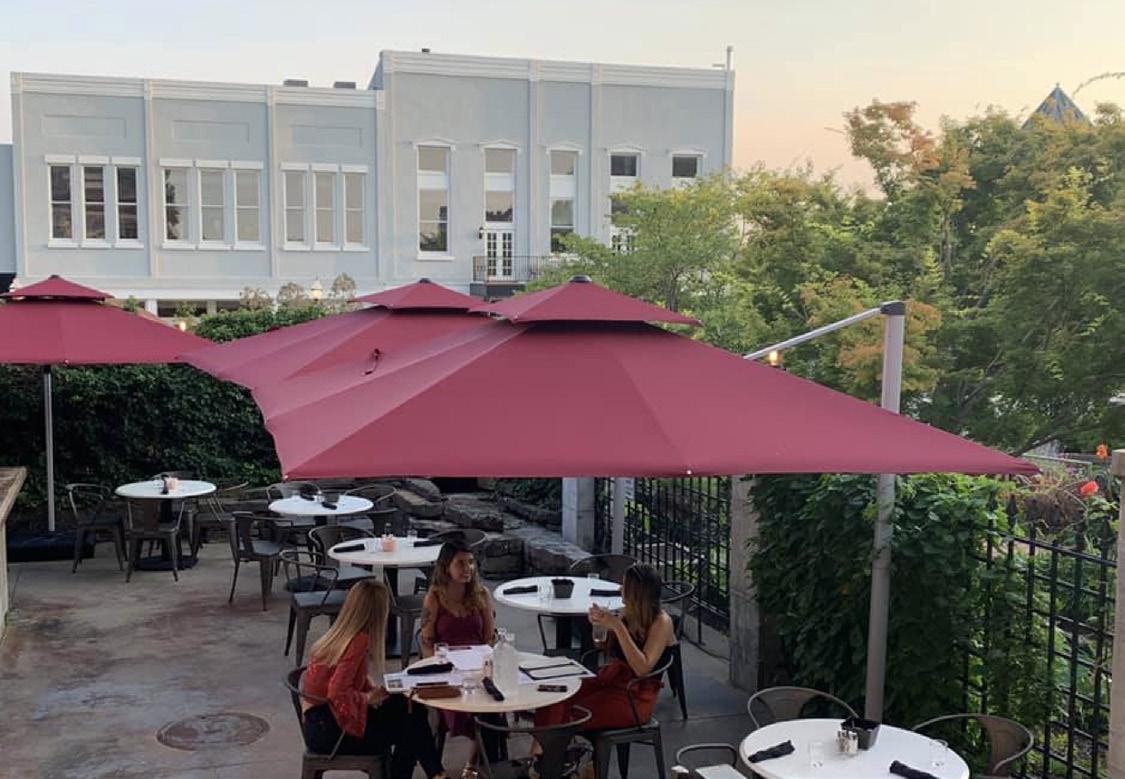
Fayetteville, as the eclectic and vibrant college town it is, is home to several iconic landmarks and buildings. One of those is the historic Old Post Office building in the center of the downtown square.
Located at 1 E. Center St., the Old Post Office was constructed on the lot that originally was occupied by the Washington County Courthouse, which was demolished in 1905 after the new courthouse opened on South College Avenue. In 1906, construction began on the iconic building that officially opened its doors in 1911 and can still be seen today. Designed by architect James Knox Taylor, the three-story, red brick building was created to give the illusion of being a one-story building, according to the National Register of Historic Places, on which it is listed.
Standing on a raised lawn, which is now considered a city park, the building is complete with wide granite steps and white limestone arches reminiscent of 18th and 19th centuries neoclassical and renaissance revival styles. Well maintained by government facilities, organizers later argued the unique style was one of several reasons to add the OPO to the National Register of Historic Places.
By the 1960s, the post office began to outgrow its building, and in 1963, new postal facilities opened at the corner of Dickson and St. Charles streets, leaving the OPO relatively empty. However, the building was remodeled for the use of various federal offices by the General Services Administration, including a classified postal station maintained through July 1971. By December, the GSA deeded the building to Downtown Fayetteville Unlimited, a business development organization, in exchange for a lot on College Avenue.
In 1974, federal offices moved to the newly opened Federal Building, leaving the OPO empty. In June 1972, Downtown Fayetteville Unlimited sold the property to the Fayetteville Housing Authority, an organization receiving and supervising the use of an urban renewal grant from the Department of Housing and Urban Development.
The iconic building’s future was in doubt when the Urban Renewal Authority proposed its demolition to develop the square into an outdoor mall. Although the project had technically been
granted approval at local and federal levels, citizens rallied with concerns about rapidly disappearing local landmarks.
As protests helped rally support for the recycling of historic buildings, organizers worked to get the OPO registered as a historic site. In addition to arguing the building was in great condition, they said the building was an outstanding example of the architectural style of its day, was an essential part of the traditional urban form to the Fayetteville Square, and provided the city with a physical symbol of historic continuity in the city’s central business district.
In 1974, the Old Post Office was finally added to the U.S. National Register of Historic Places. In 1977, Edna and Ronald Bumpass converted the building into OPO Restaurant and Bar, which served guests until the early 2000s. Since then, the building has housed a mixture of restaurants, retail stores and even a startup headquarters. They include Hog City Diner, Sodies, Urban Table, Stogie’s, Jammin’ Java, Country Outfitter and Hayseed Ventures.
Since 2019, the OPO has been home to Cheers at the OPO. Curtis Arnold and his family purchased the property in 2018 and opened the restaurant in 2019. Located within walking distance of specialty shops, boutiques and unique bars, Cheers at the OPO serves wood fire-grilled menu items such as the Kobe akaushi hamburger and pasta Orleans. The menu and the restaurant were developed in partnership with Chris Tanner of Cheers in the Heights and Samantha’s Tap Room & Wood Grill, both in Little Rock.
By Sen. John Boozman
As the lead Republican on the Senate Committee on Agriculture, Nutrition & Forestry, I am one of a handful of lawmakers charged with drafting the new Farm Bill.
This contract with our farmers covers everything from risk management tools to nutrition programs that help those in need to investments that grow America’s rural communities.
The Farm Bill’s conservation programs were recently the focus of a piece in Arkansas Money & Politics. These programs have bipartisan support because they work. Farmers, ranchers and foresters often cite these programs as an example of what the U.S. Department of Agriculture gets right because they are voluntary, incentive-based and locally led.
No one on the committee on either side of the aisle is advocating for cuts to the Farm Bill’s conservation programs. These programs are so popular that demand for them regularly exceeds available dollars.
That is why Senate Republicans are actively pushing to increase program funding for years to come.
Let me explain how.
The Inflation Reduction Act of 2022 provided more than $17 billion in new funding authority for “climatesmart” agriculture and forestry activities through existing USDA programs.
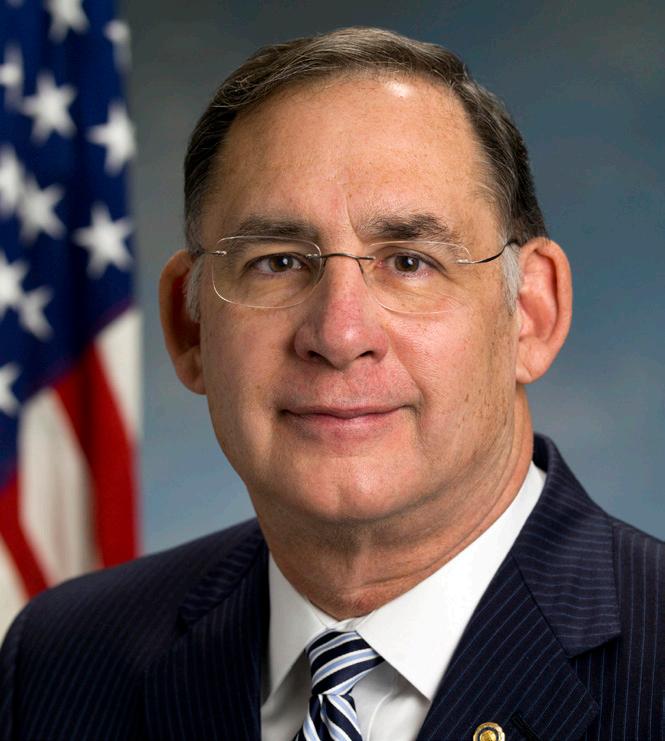
This law was written and passed through a partisan process that cut out Republicans and, worse yet, stakeholders.
The IRA expires Sept. 30, 2031. Since the law was passed along party lines, the likelihood of an extension is slim. This creates a looming conservation cliff for all IRA-related conservation activities.
We can avoid that collapse by moving IRA dollars into the conservation title as
part of a bipartisan Farm Bill. The increased funding levels would continue for conservation programs into perpetuity — subject only to congressional reauthorizations — and those funds would avoid the 2031 expiration established in the Democrats’ IRA.
This could represent a nearly 30 percent increase in funding well into the future. Over the next 25 years, we’re looking at an additional investment in conservation spending of more than $44 billion.
My Republican colleagues and I only have one stipulation — remove the “climate-smart” requirements dictated by the IRA so the funds are available to all producers for all conservation practices consistent with how these Farm Bill programs have always operated.
When Washington, D.C., decides which practices and resource concerns are more important, it undermines the continued success of USDA’s voluntary, locally led conservation programs and disadvantages certain states and farmers whose natural resource concerns can’t be addressed through the limited list of “climate-smart” practices.
Taking this action would simply open these dollars up to the diverse conservation needs of all our farmers. This approach would bring us back to the reason farmers value these programs — they empower producers to make the best decisions to meet the resource concerns of their specific operation.
Our conservation programs must reflect this reality and provide the flexibility our farmers and ranchers need, rather than be tailored to the arbitrary goals established by the administration’s agenda.
A sole focus on carbon sequestration, which is what the “climate-smart” tag applies to, ignores the massive benefits to soil health, water quality, wildlife habitat, drought resilience and more that conservation funding creates.
The next Farm Bill is a historic opportunity to build conservation baseline, but it must be done the right way. Any discussion on the IRA that doesn’t begin with building baseline risks missing out on this important opportunity.
Rogers optometrist John Boozman is Arkansas’ senior U.S. senator. The Republican served as the U.S. House representative for Arkansas’ 3rd District from 2001 to 2011, when he was first elected to the Senate.
analytic at a time.
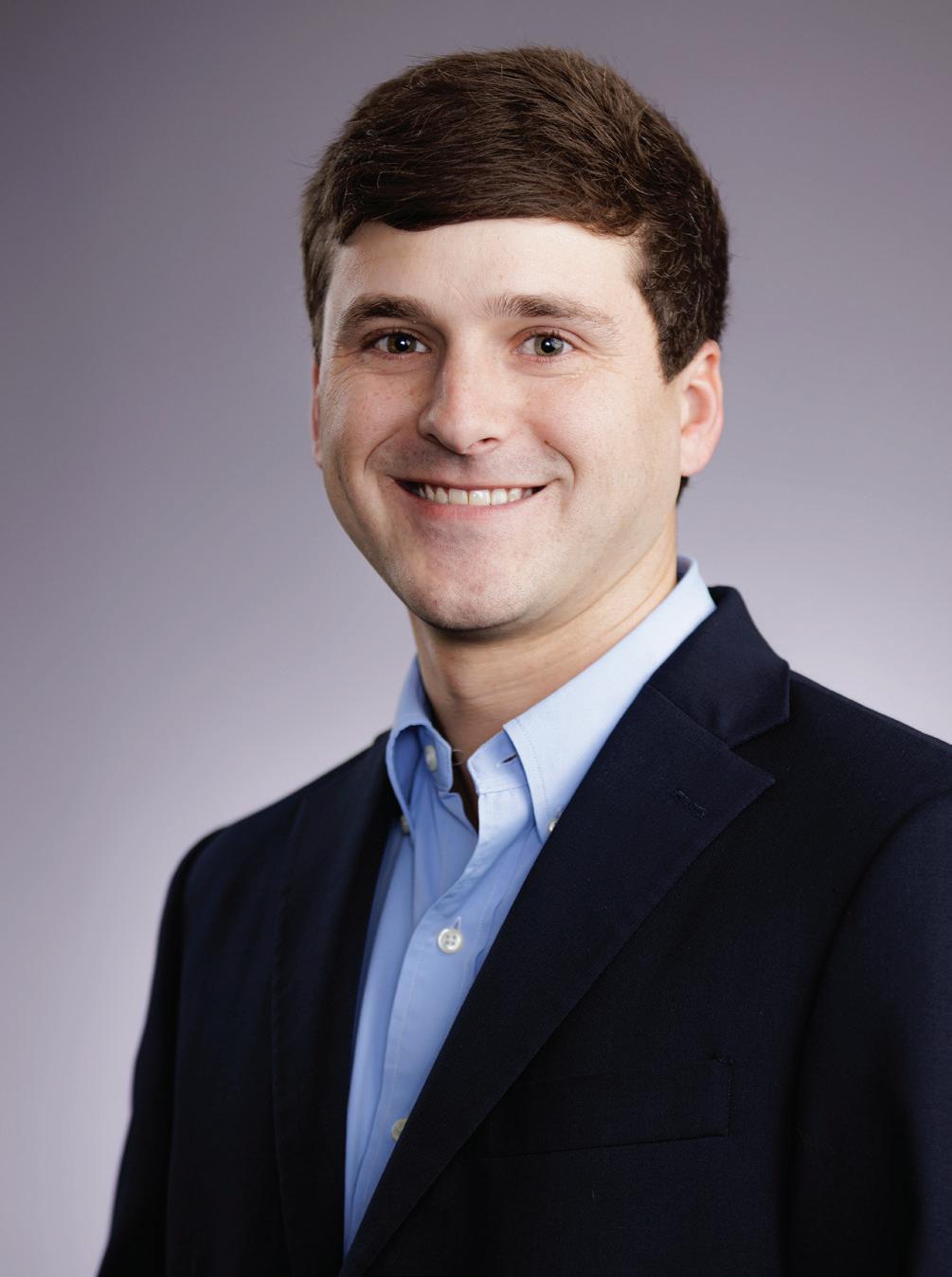
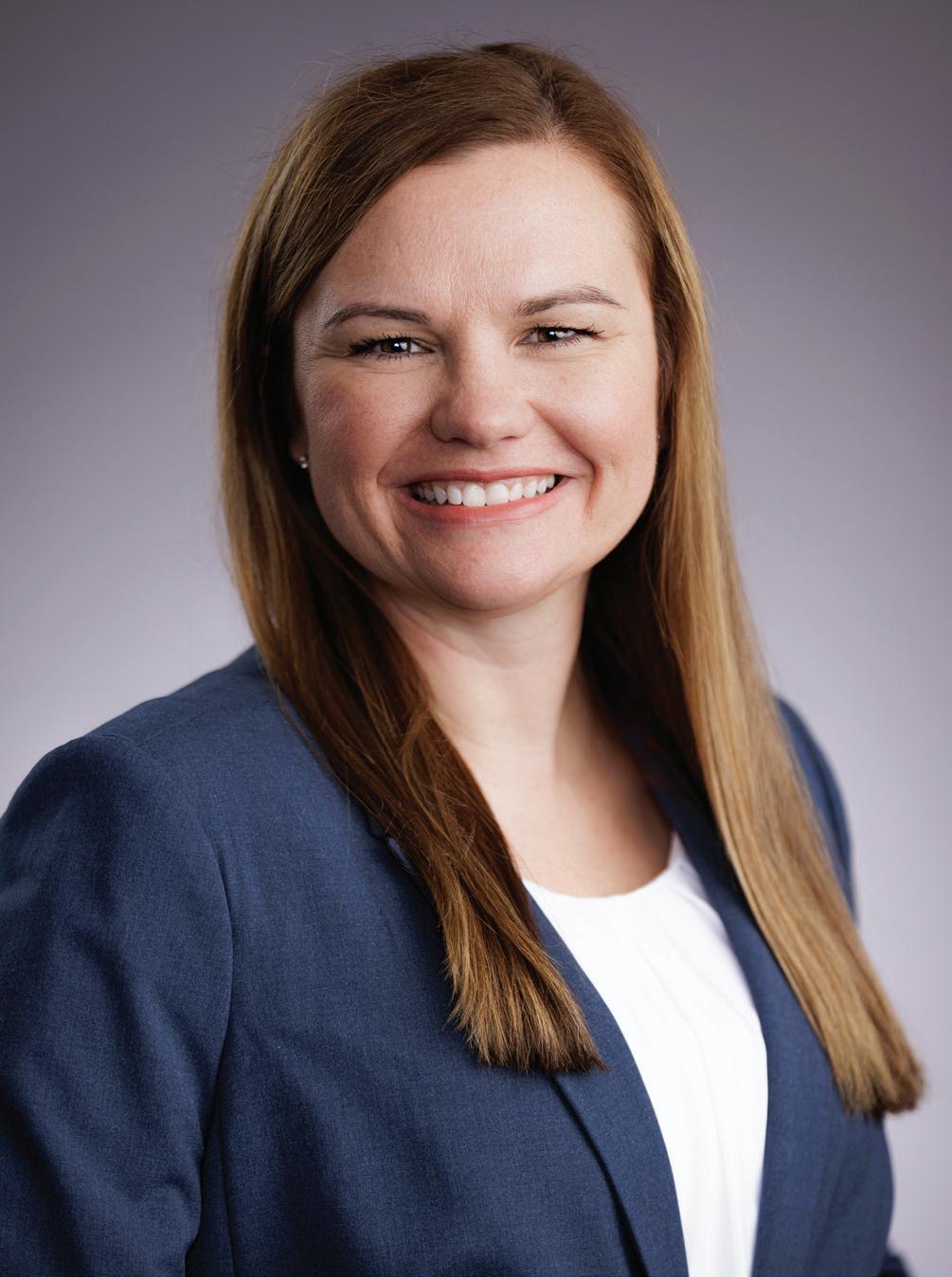

Lexicon proudly salutes Justin Lareau, Vice President for Analytics and IT, and Emily Keith, Director of Analytics for being named among AMP “Future Icons.” Their innovation, initiative, strong will and determination have taken Lexicon to new heights in efficiency, automation and productivity. They ARE the future. And we’re glad to have them on our team. Congratulations to Justin and Emily!
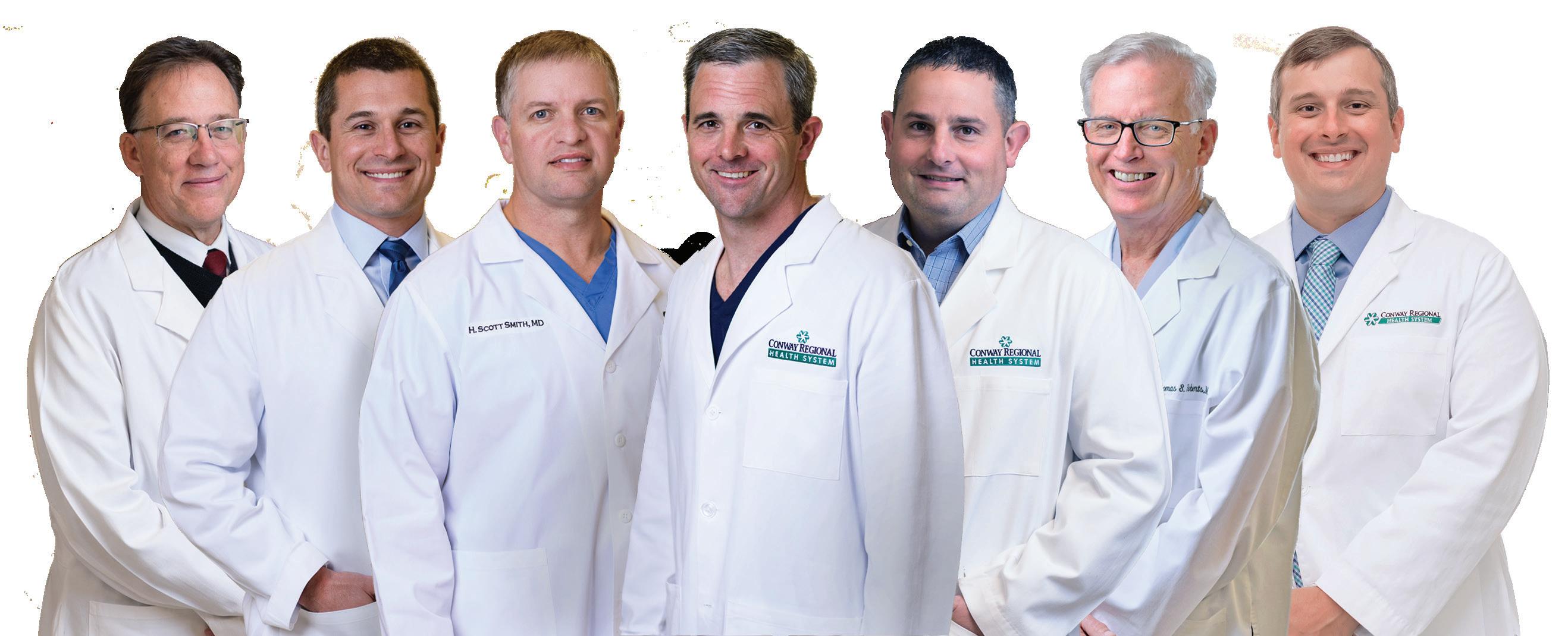
to Right: J. Tod Ghormley, MD,

At Conway Regional, our team of talented orthopedic surgeons and specialists are dedicated to helping you regain mobility and recover from injury and disease. We are honored to have been voted "Best Orthopedics” in the state by the readers of AY Magazine and “Most Admired Company” by readers of AMP for multiple years. Several of our surgeons have also been voted AY’s Best for muriple years in a row.
Learn more about our award-winning providers at ConwayRegional.org.